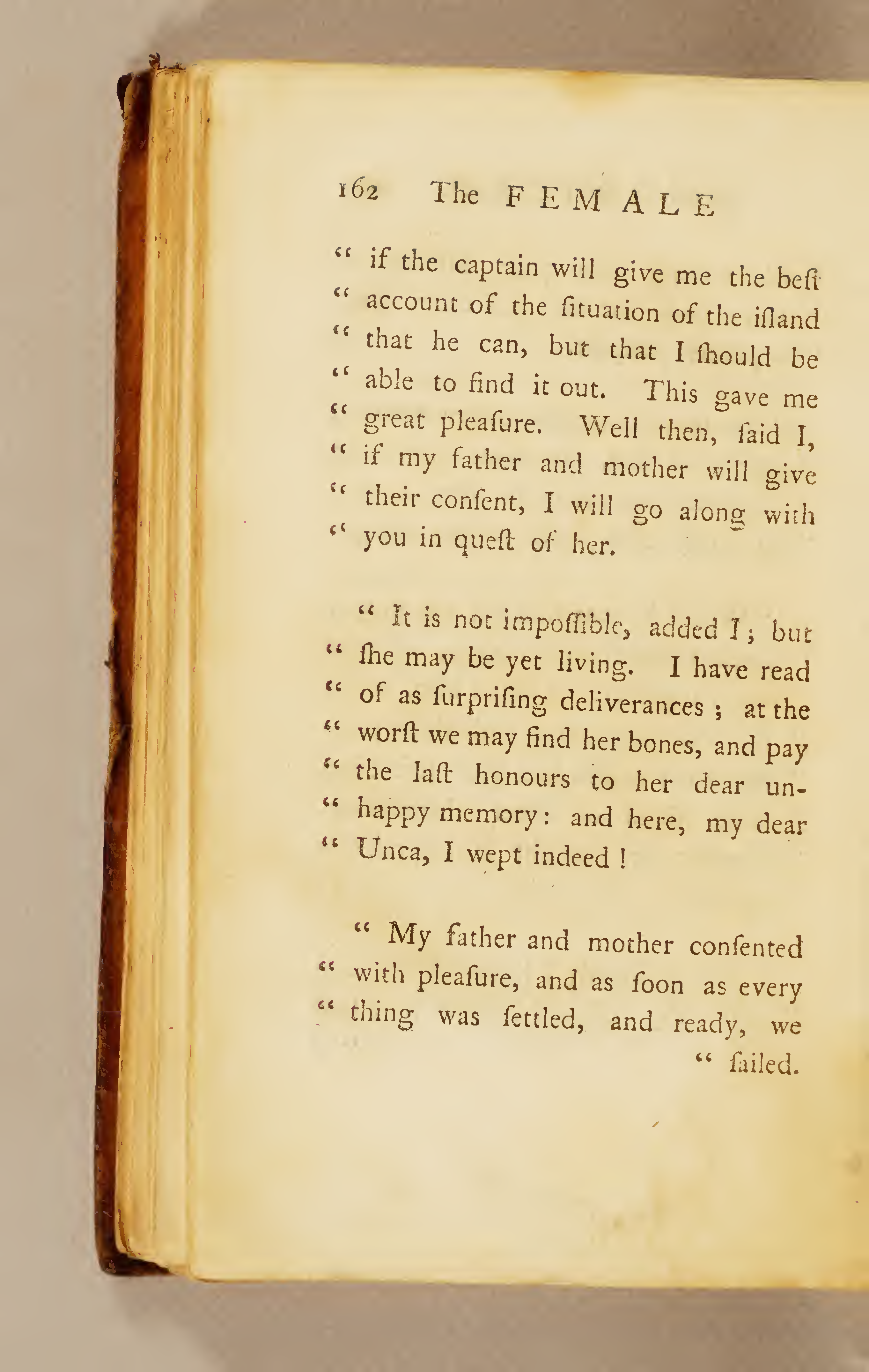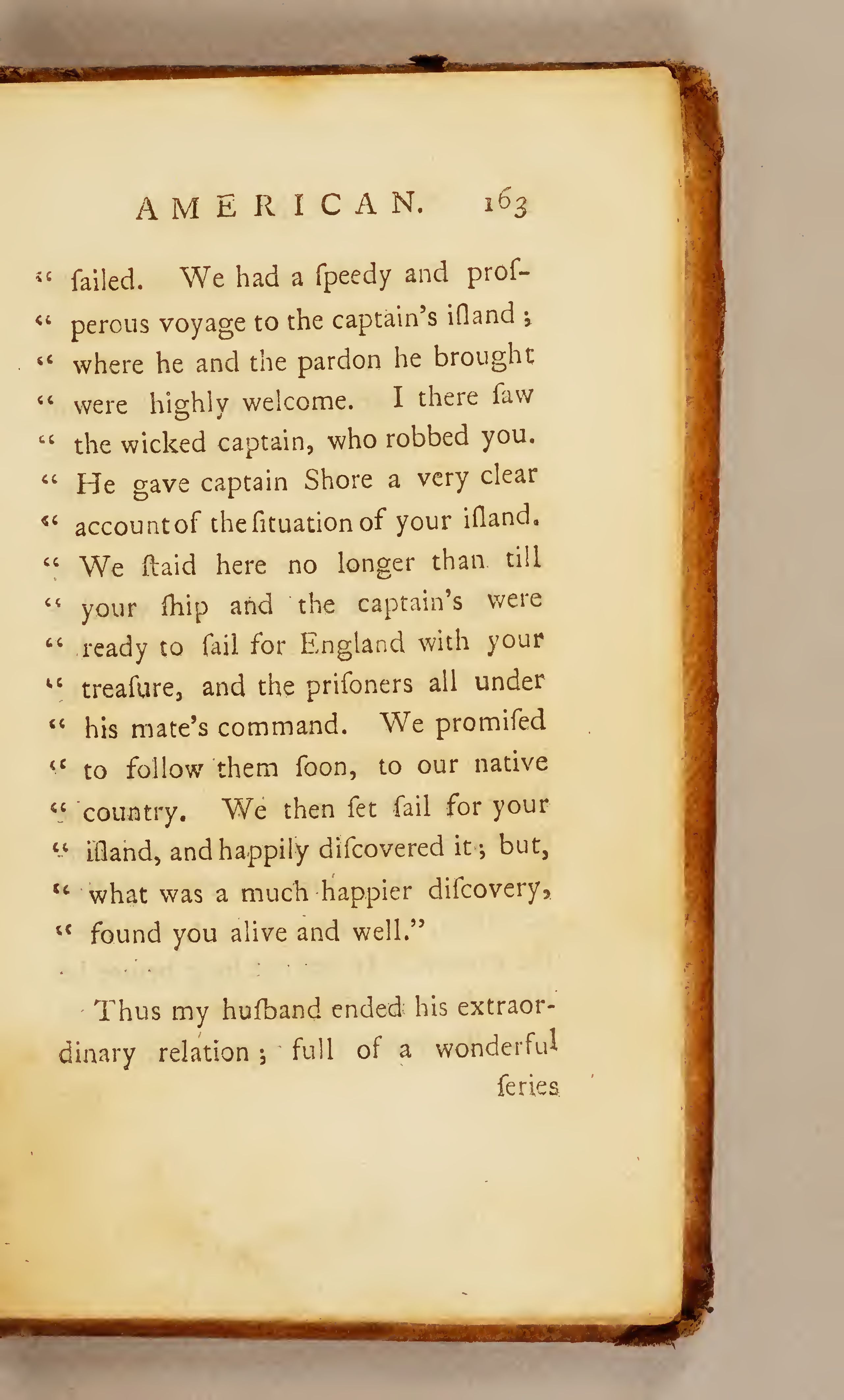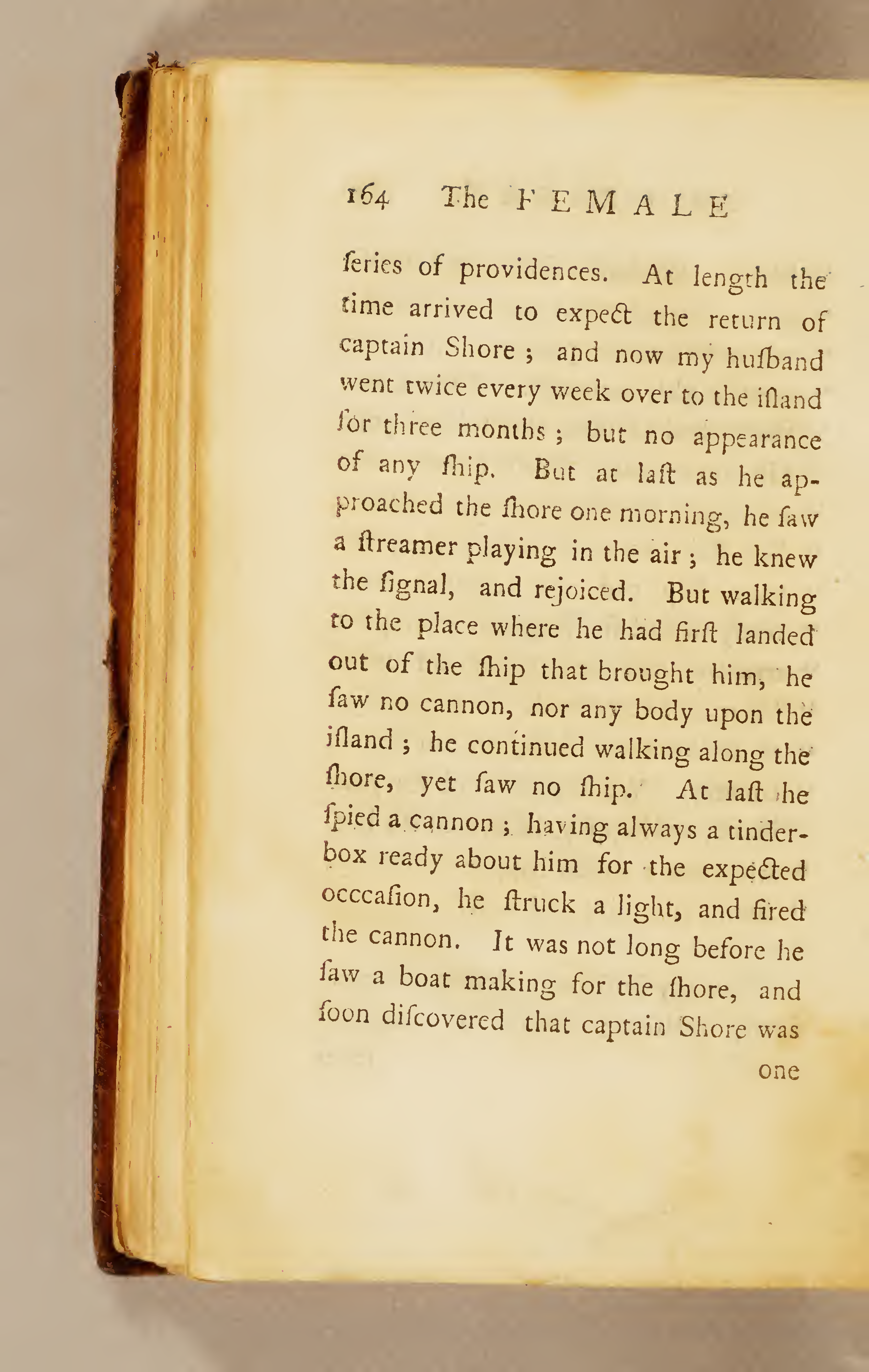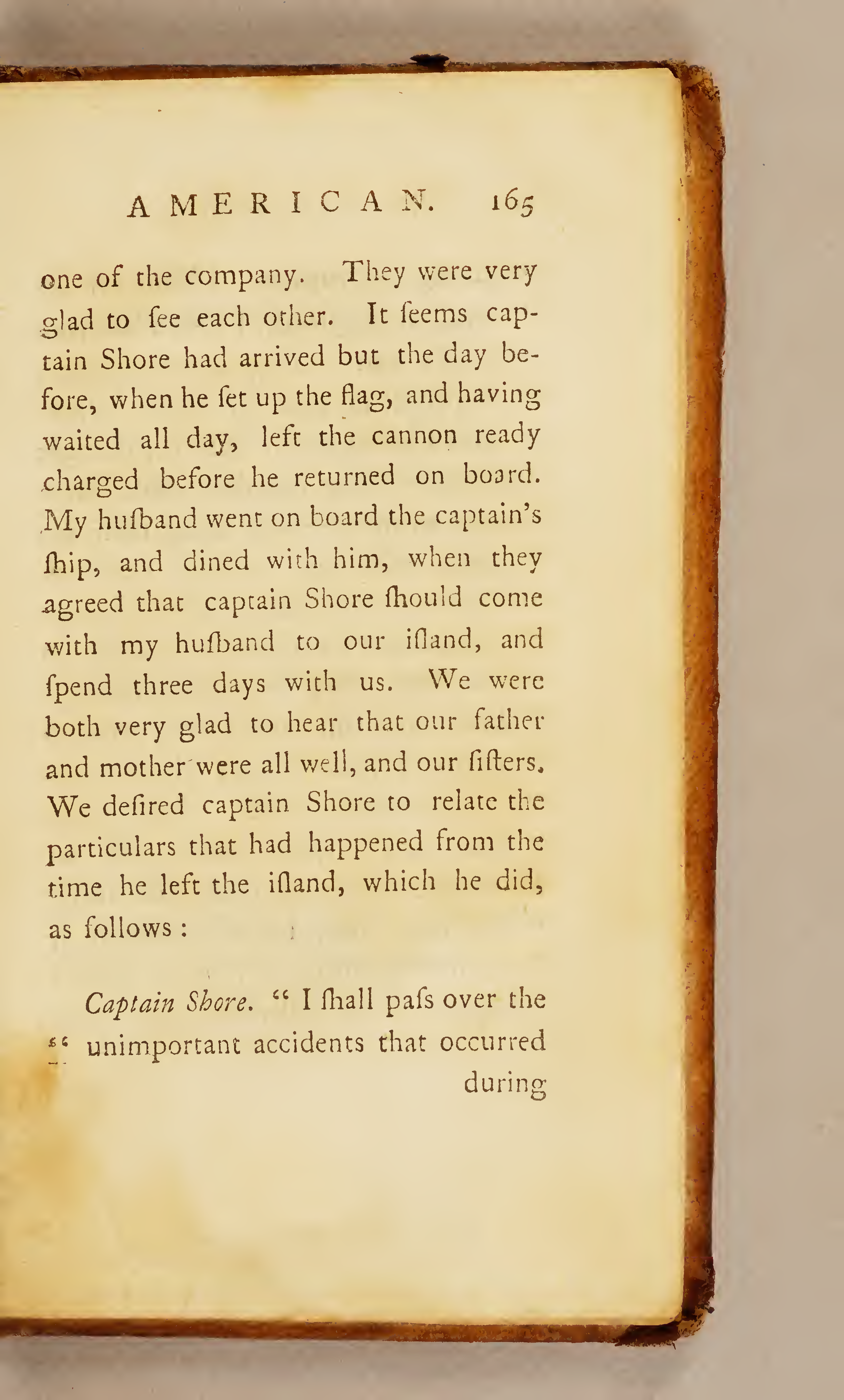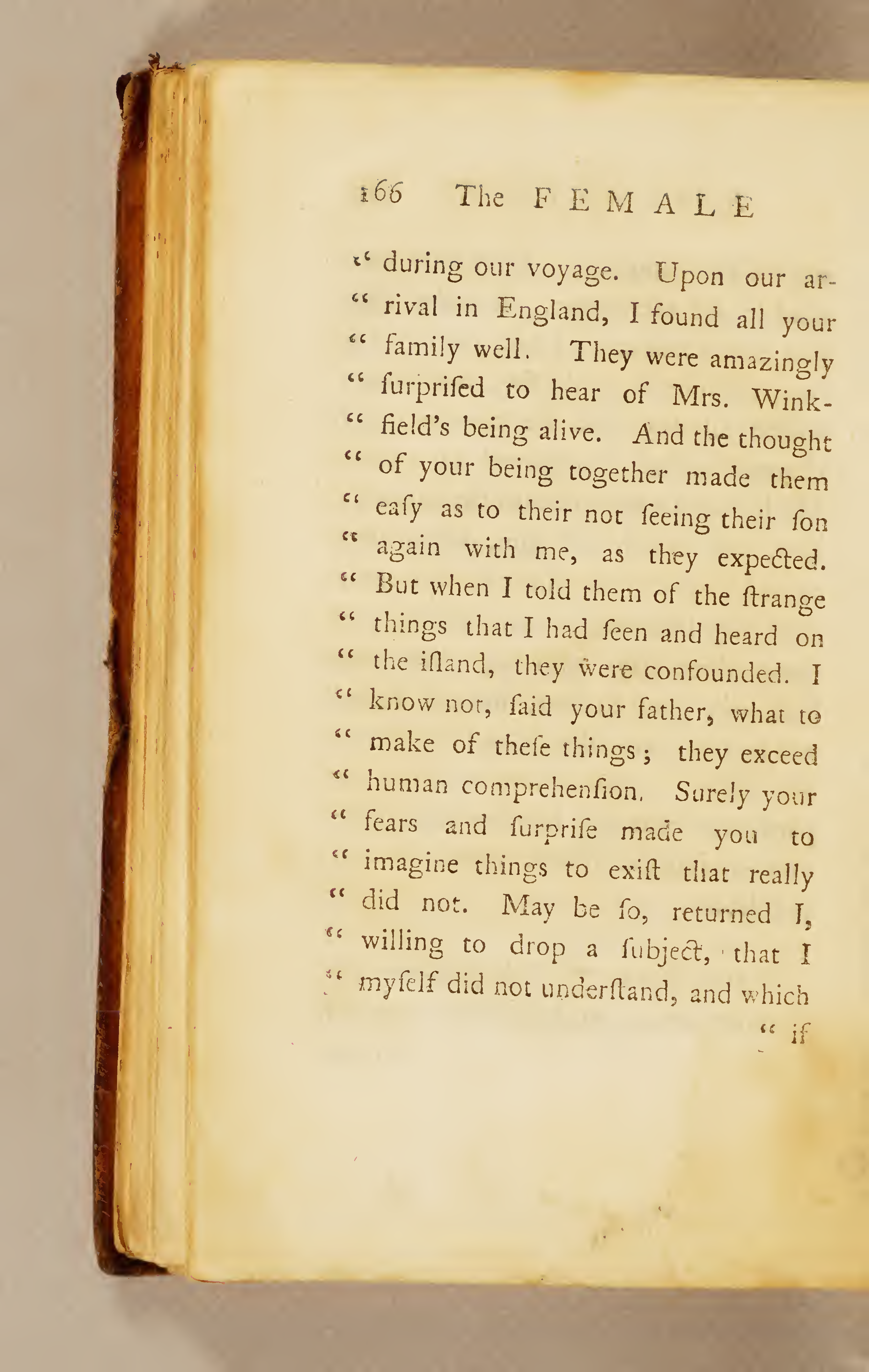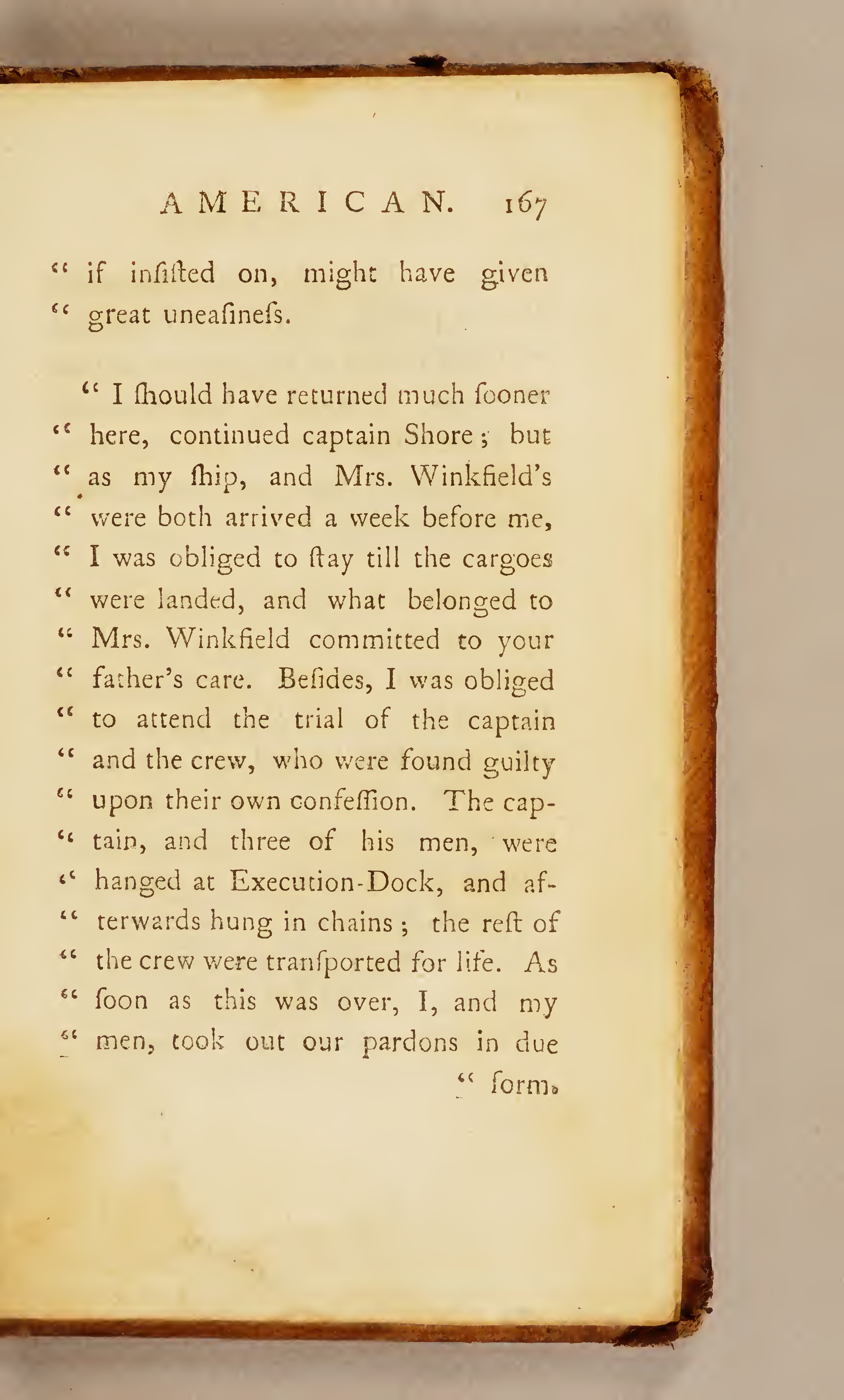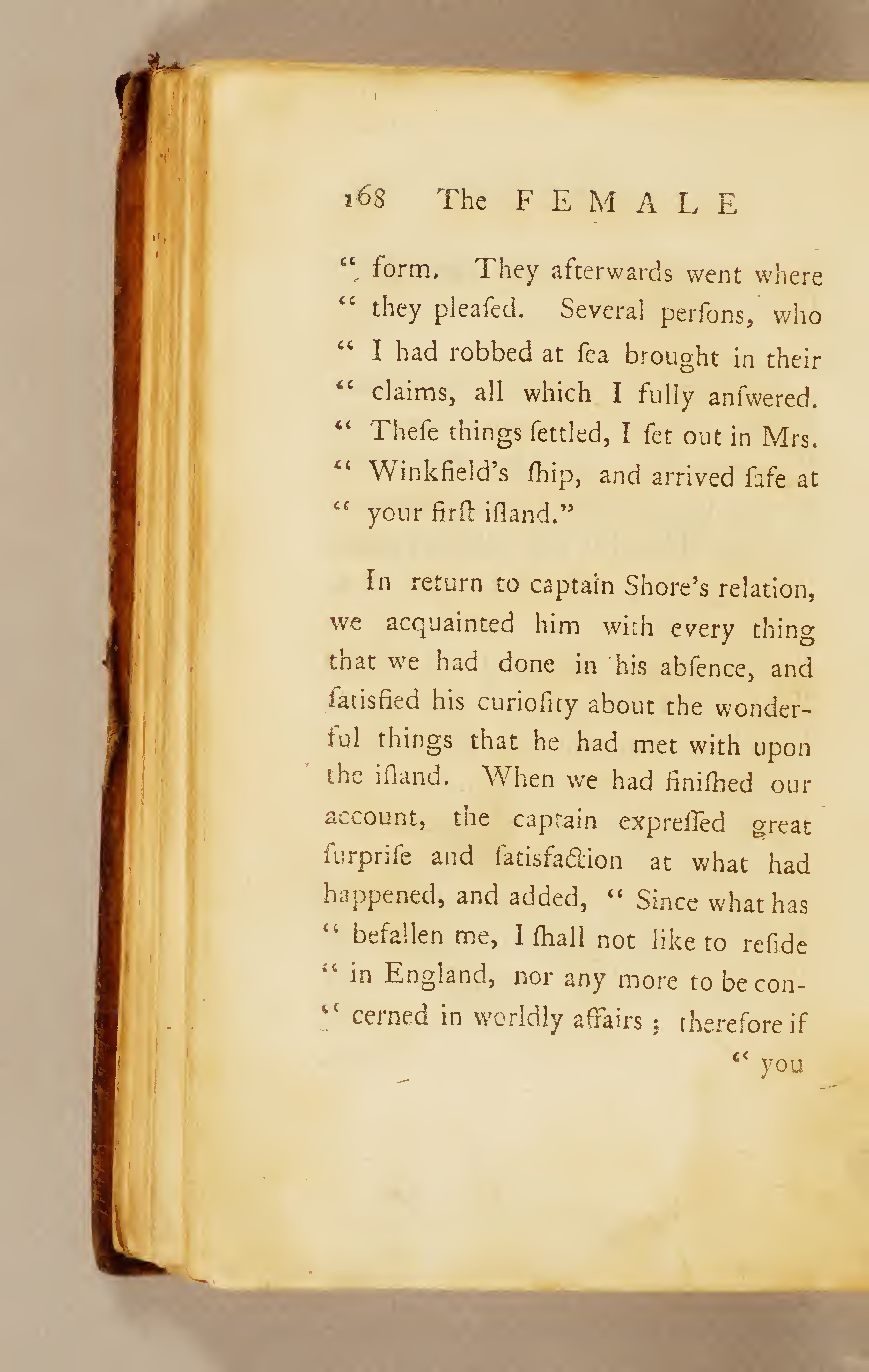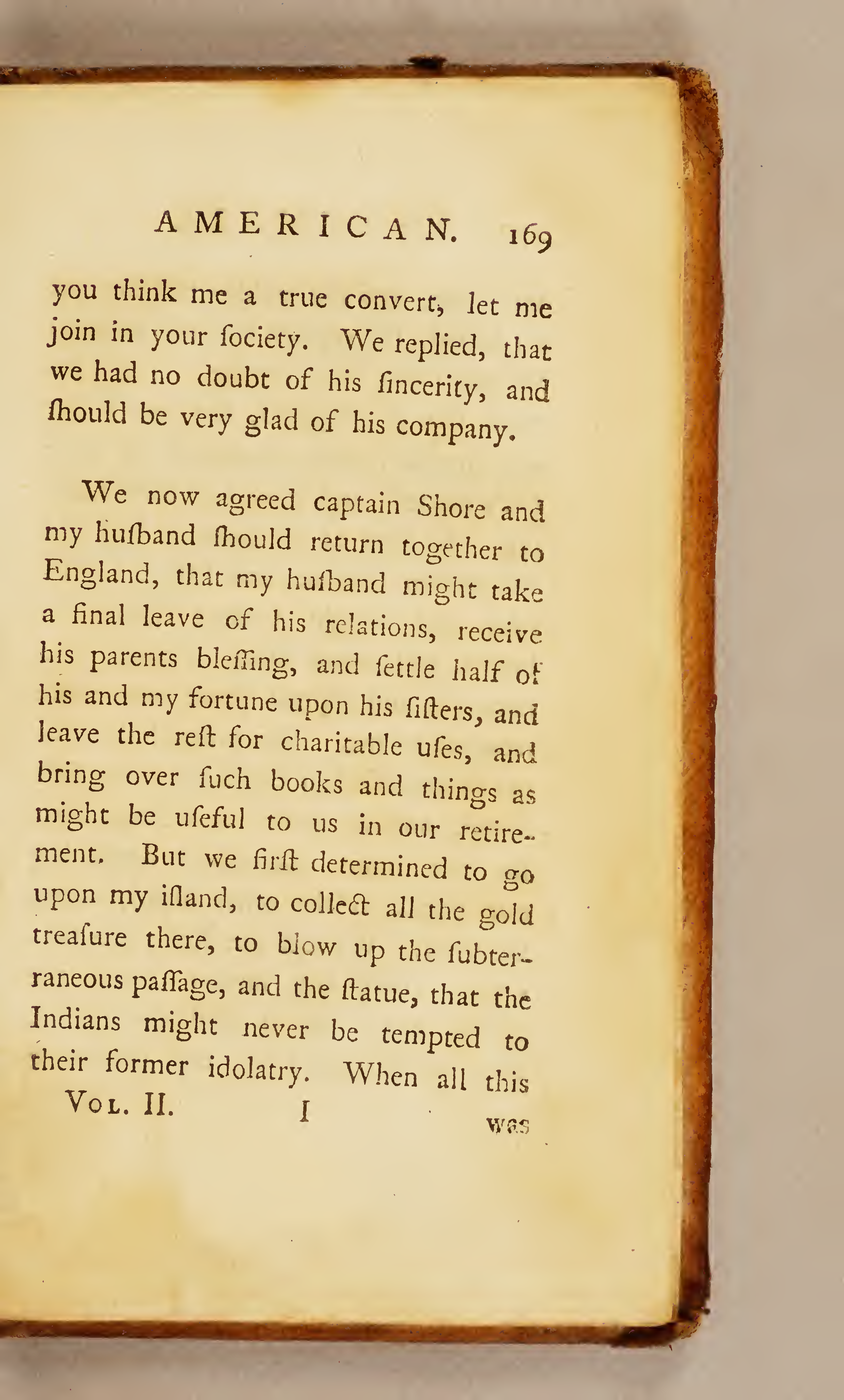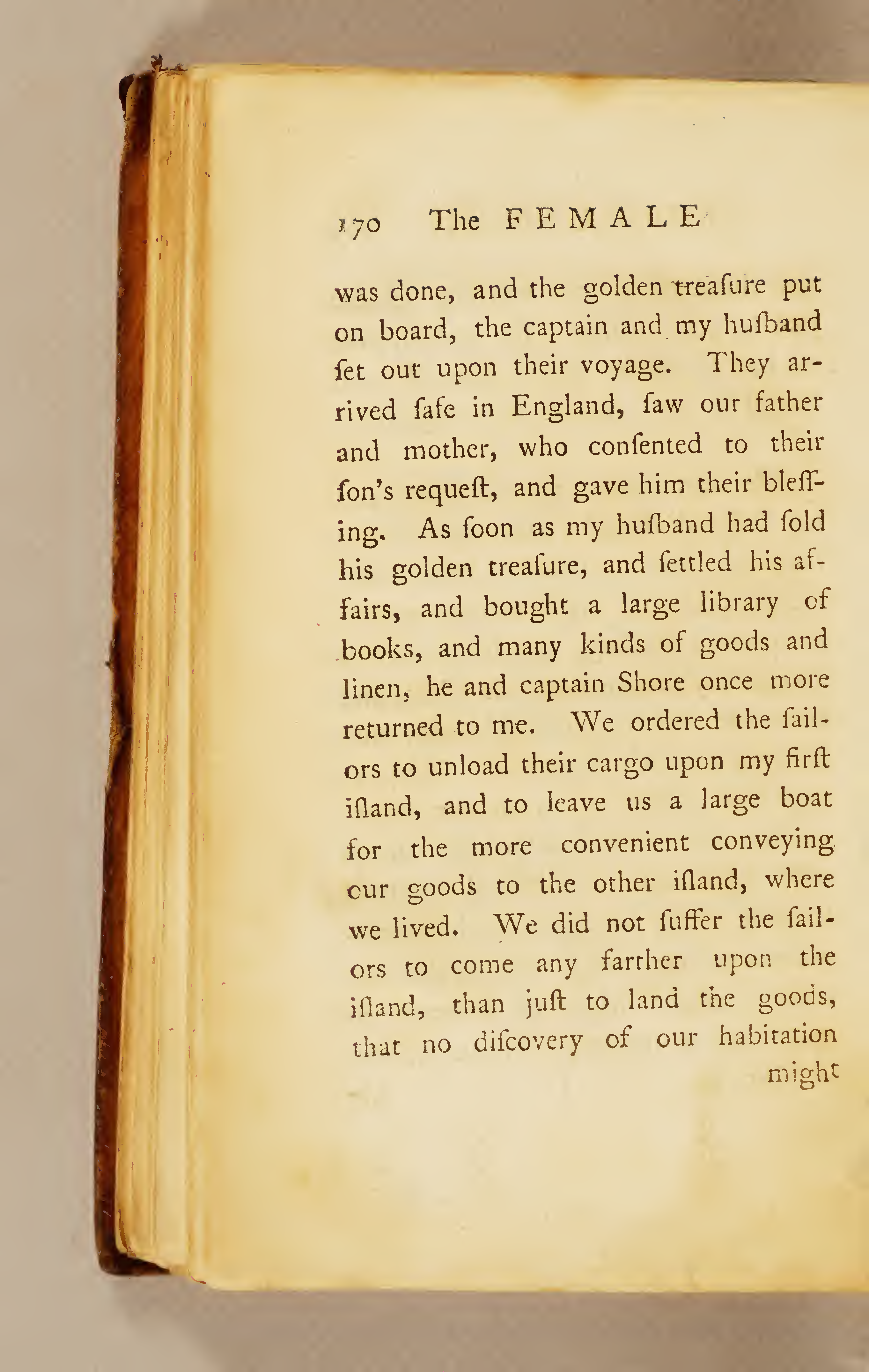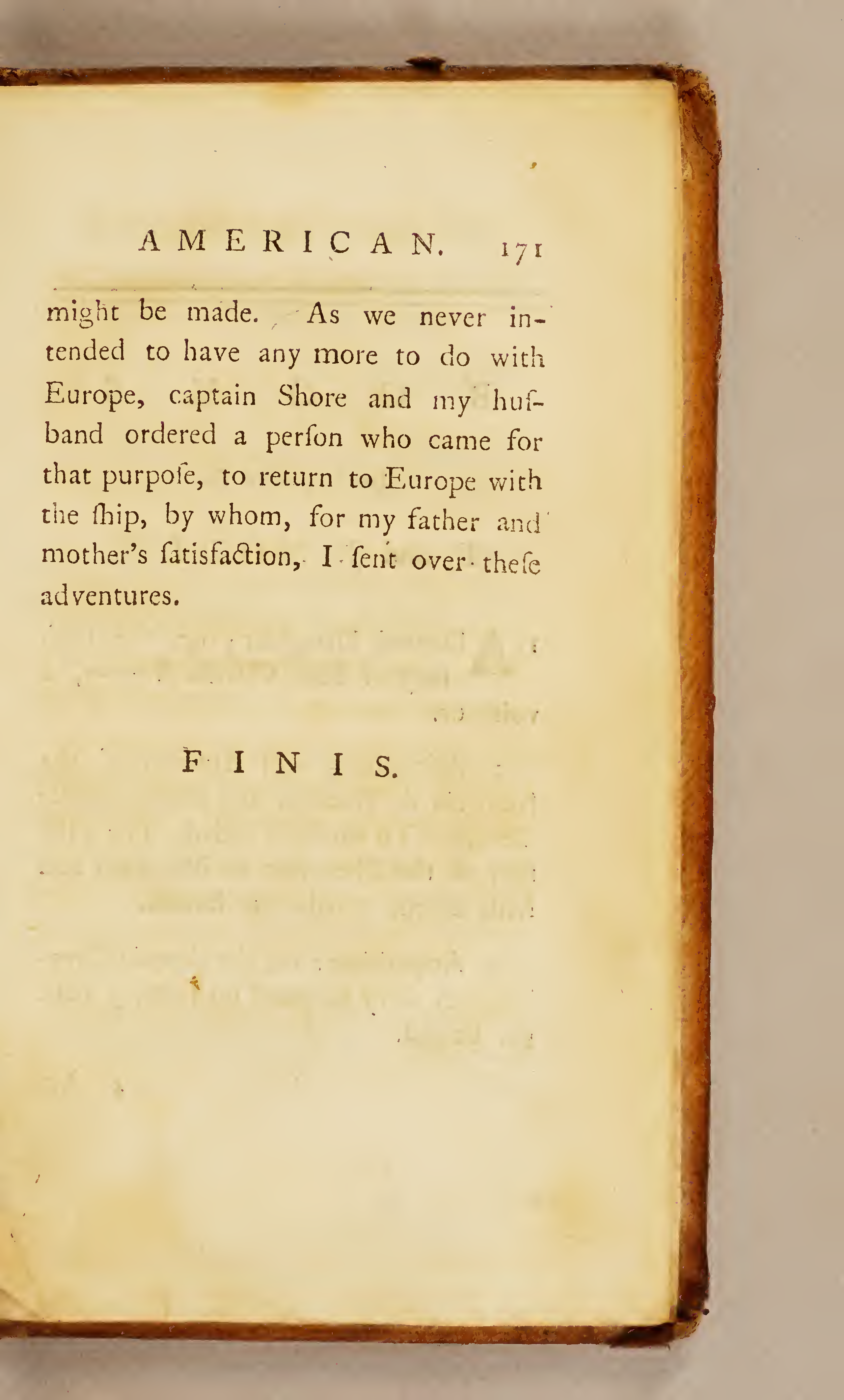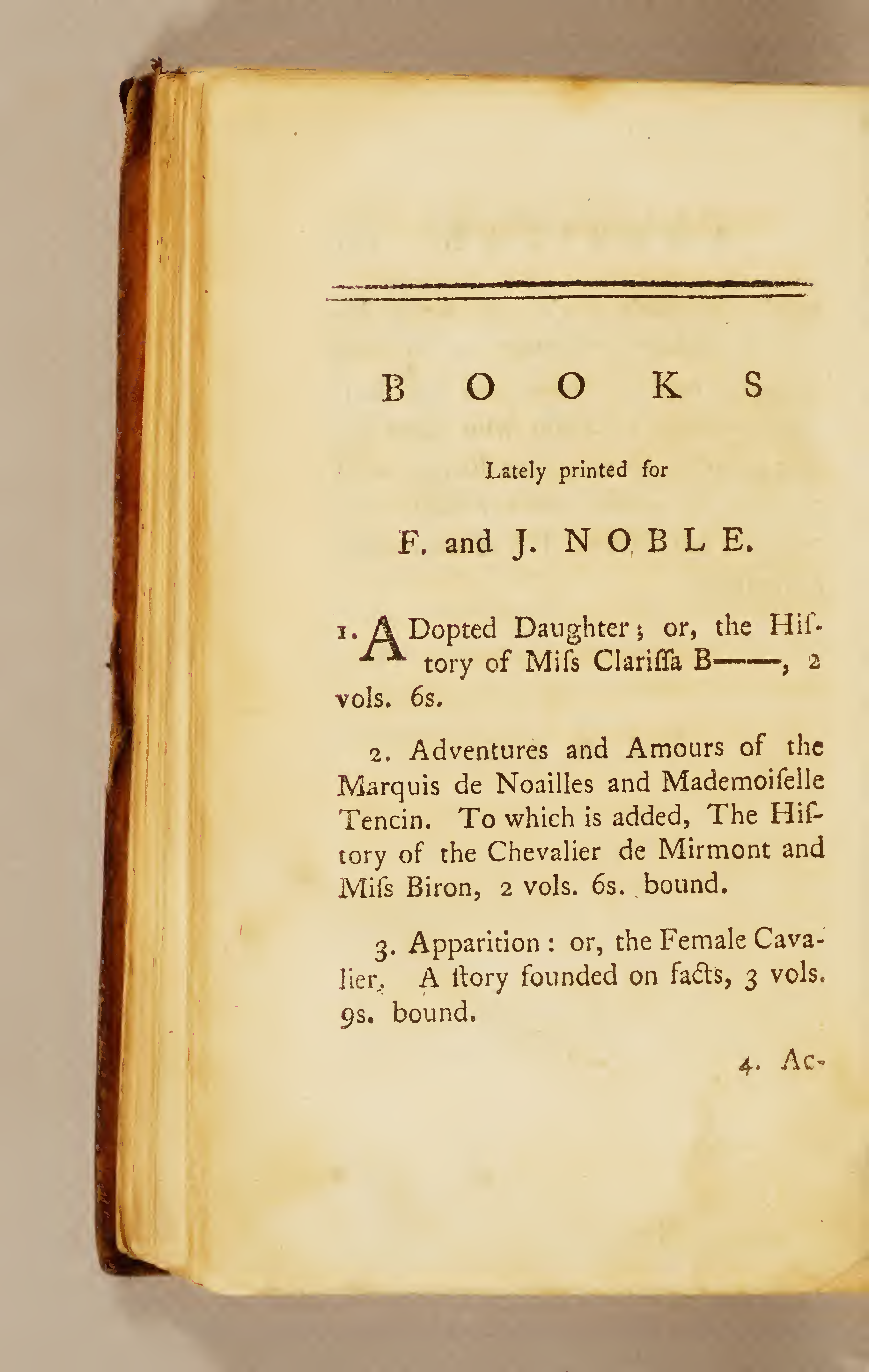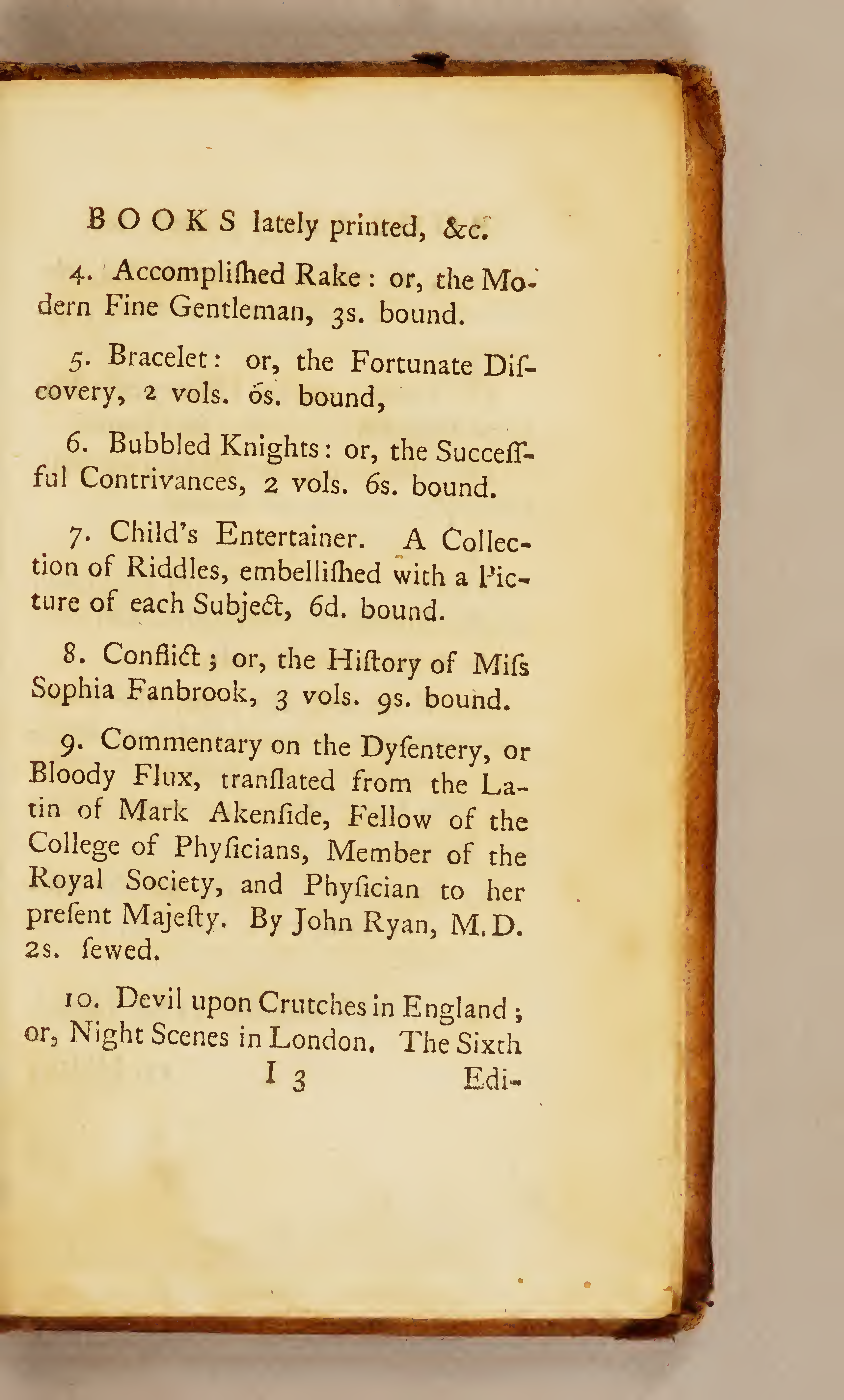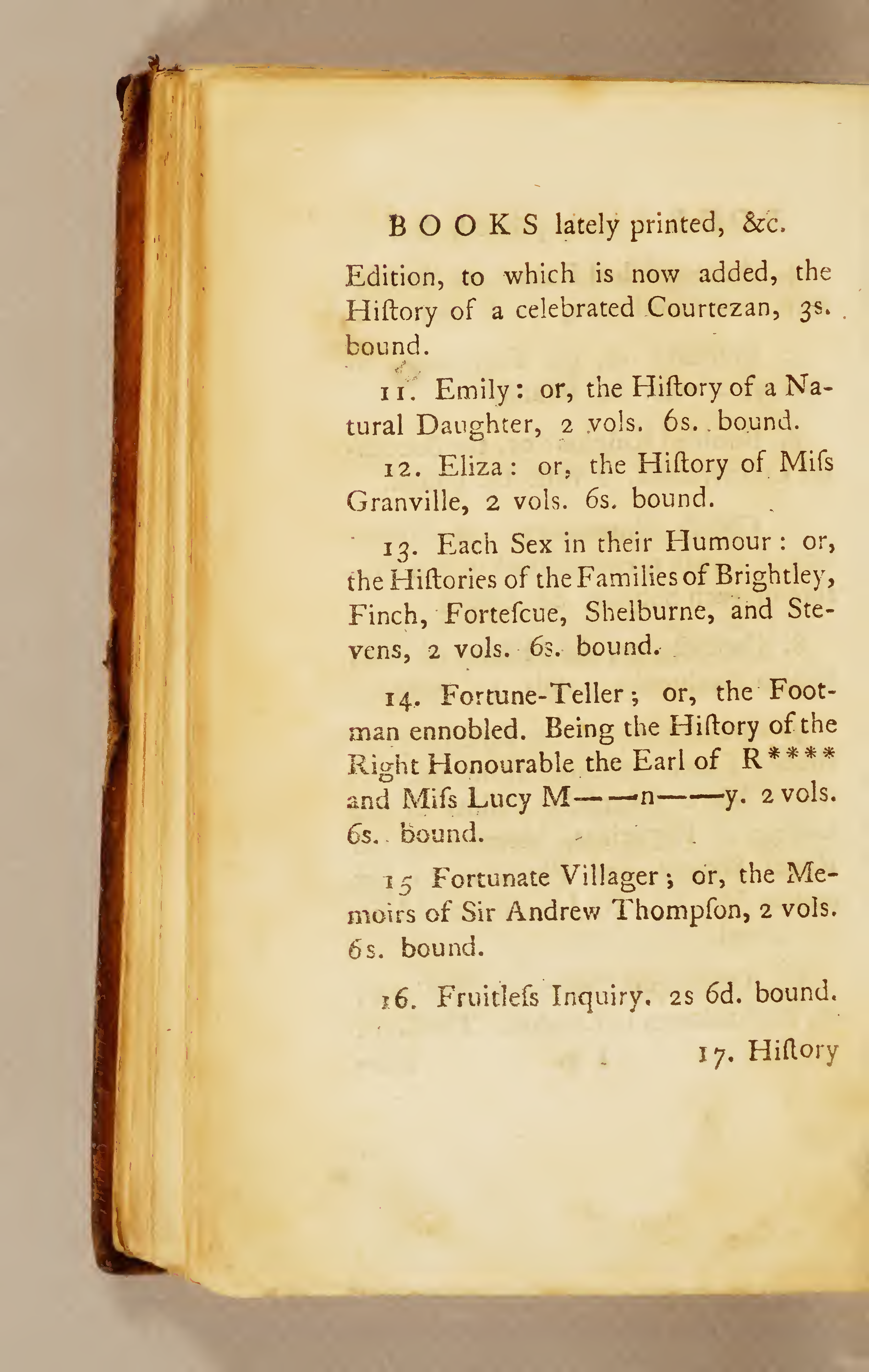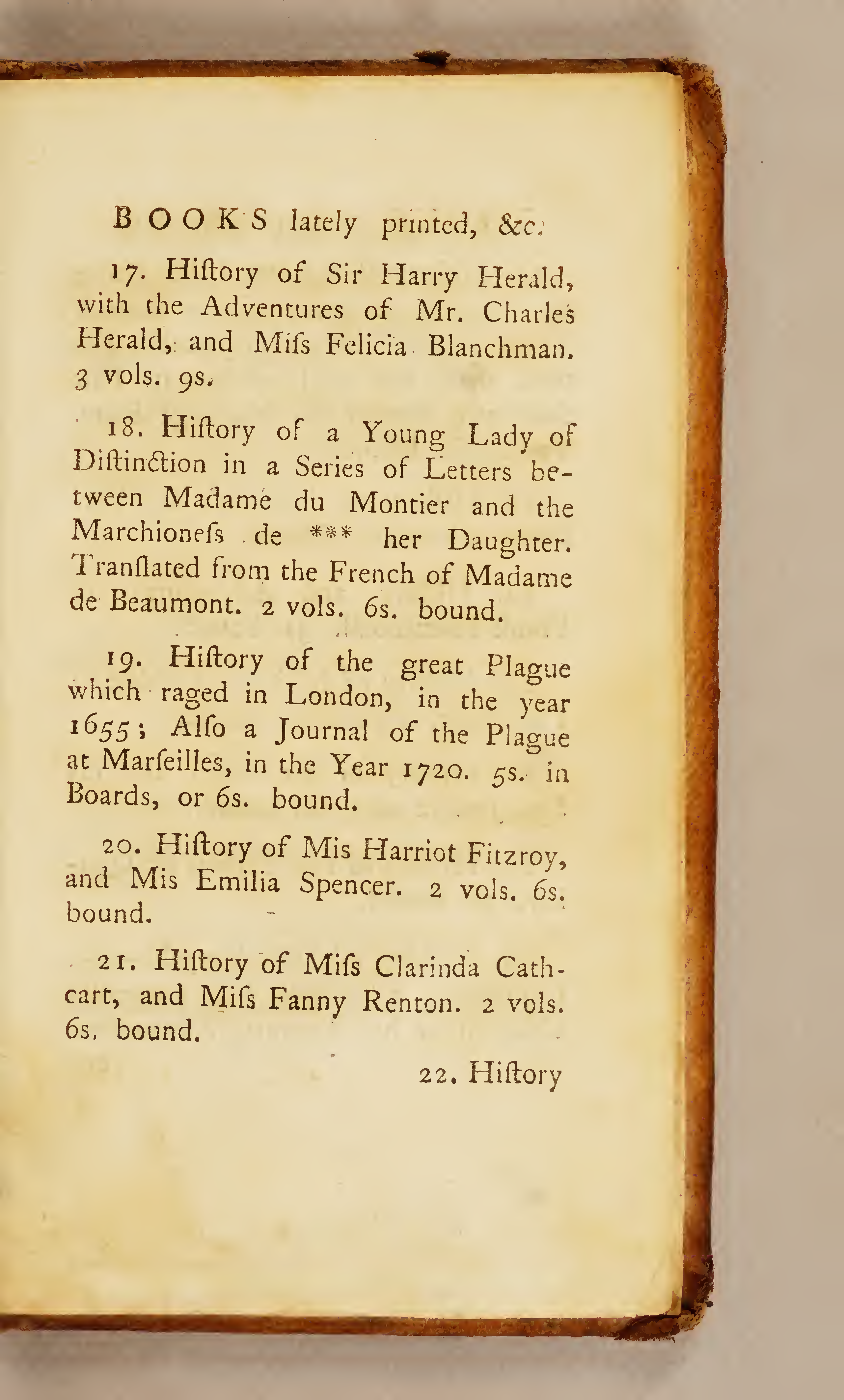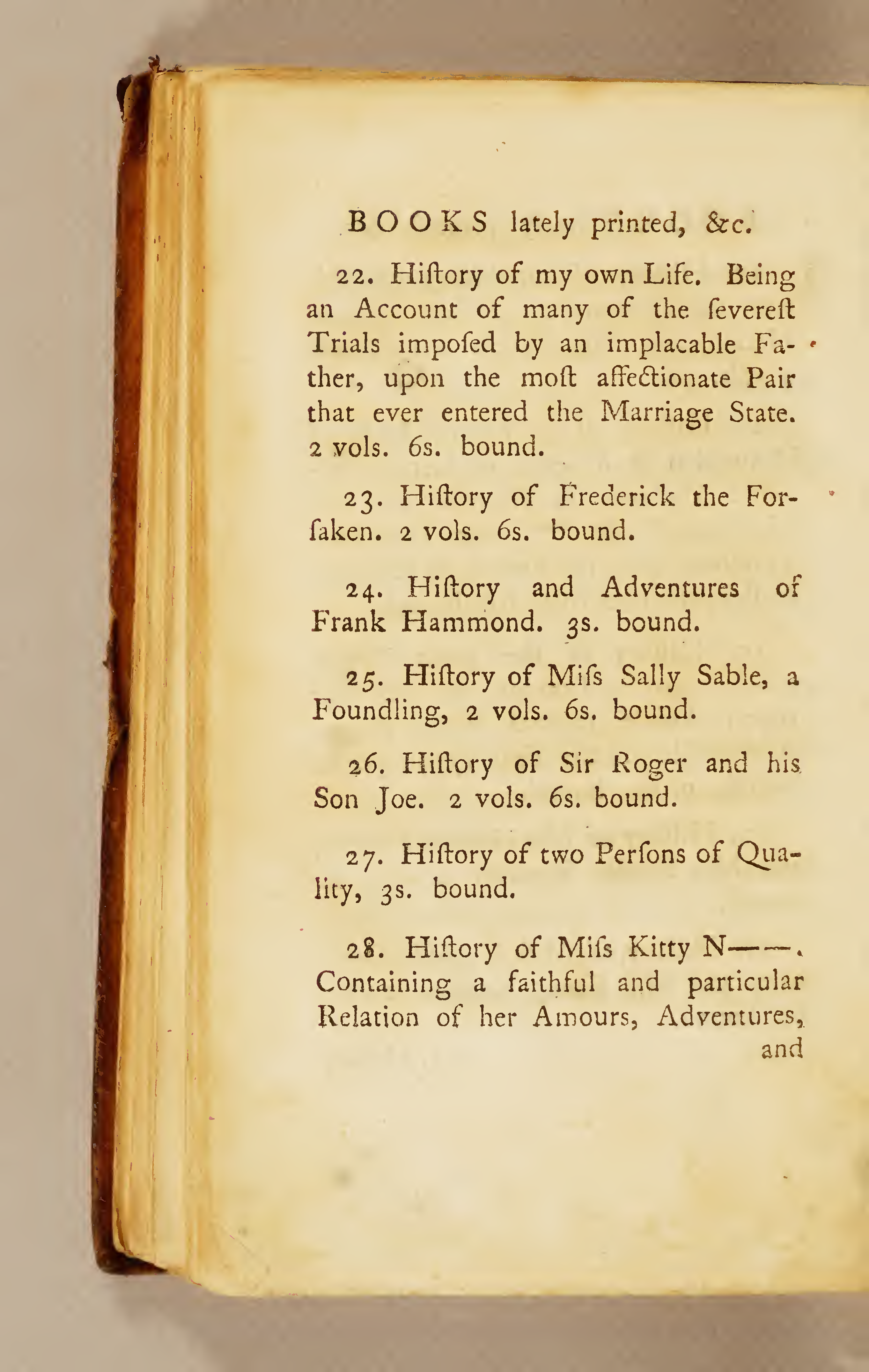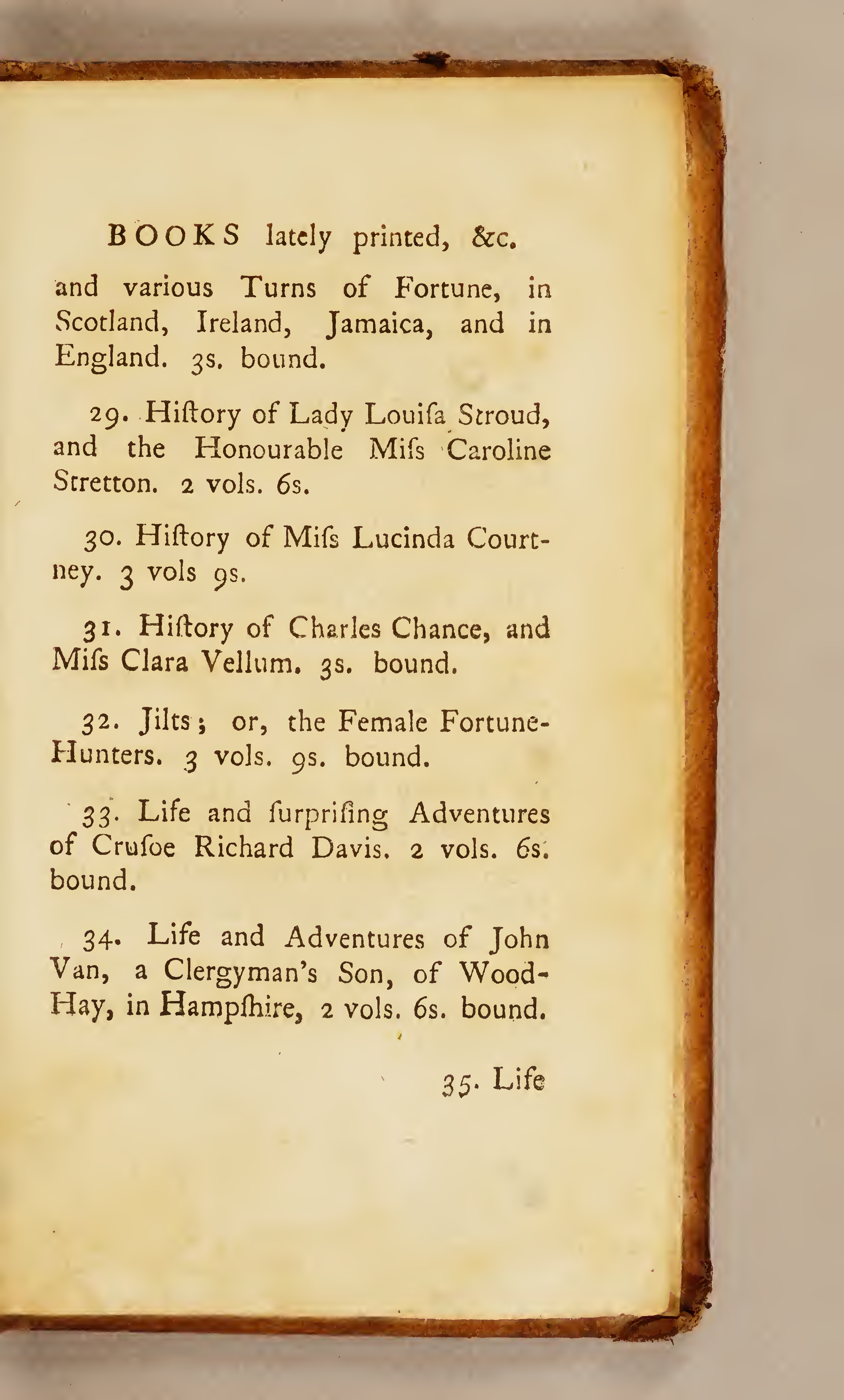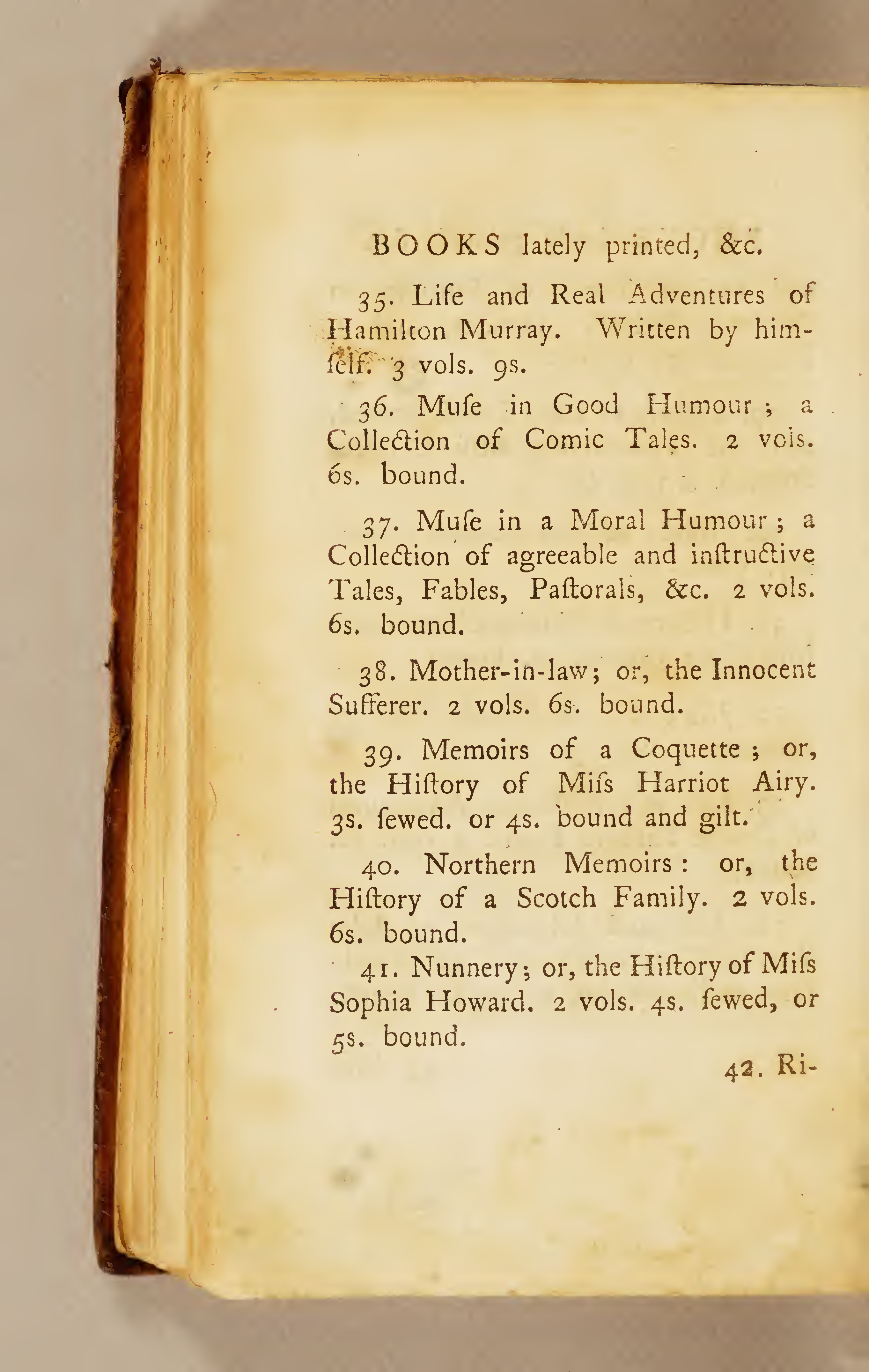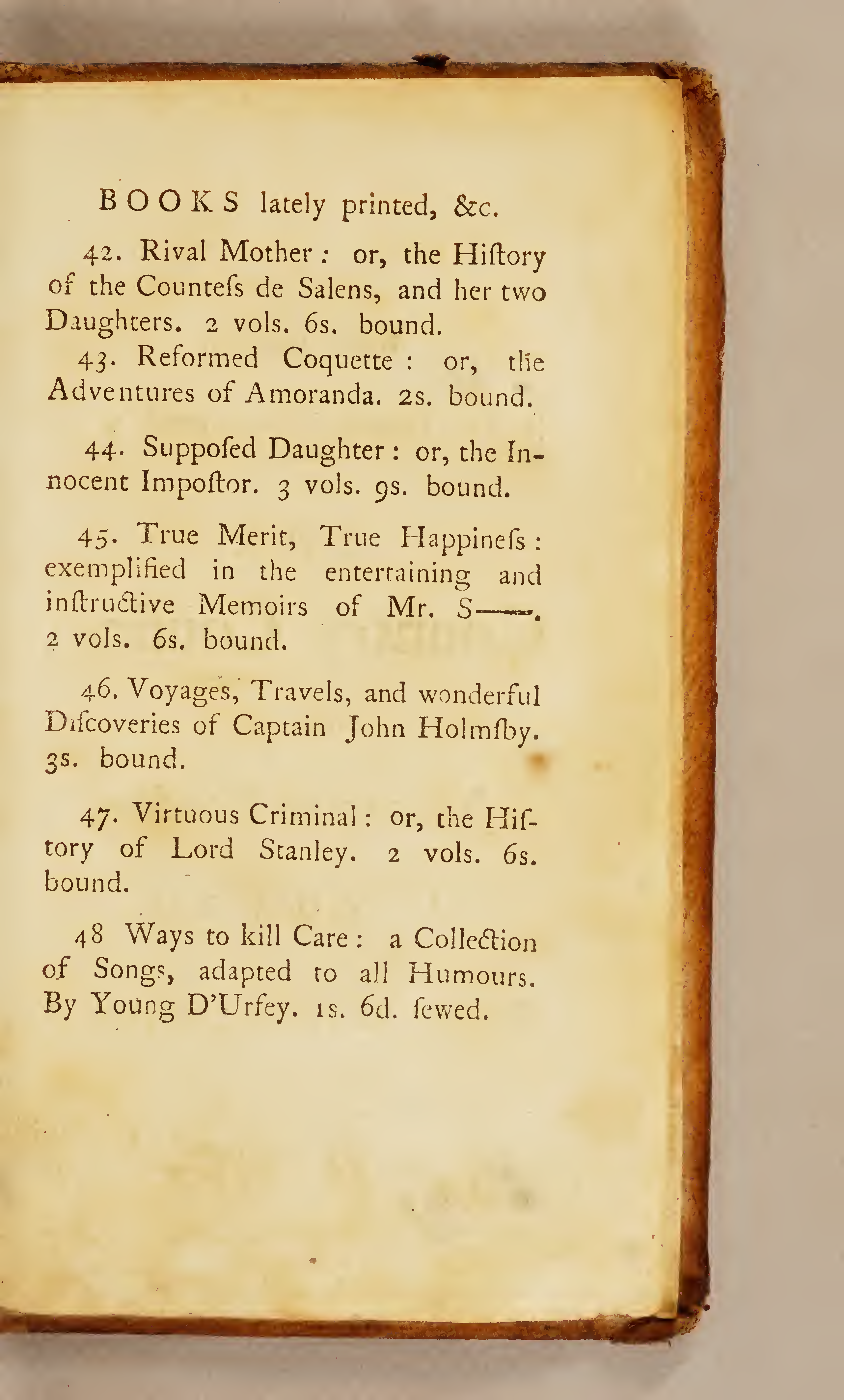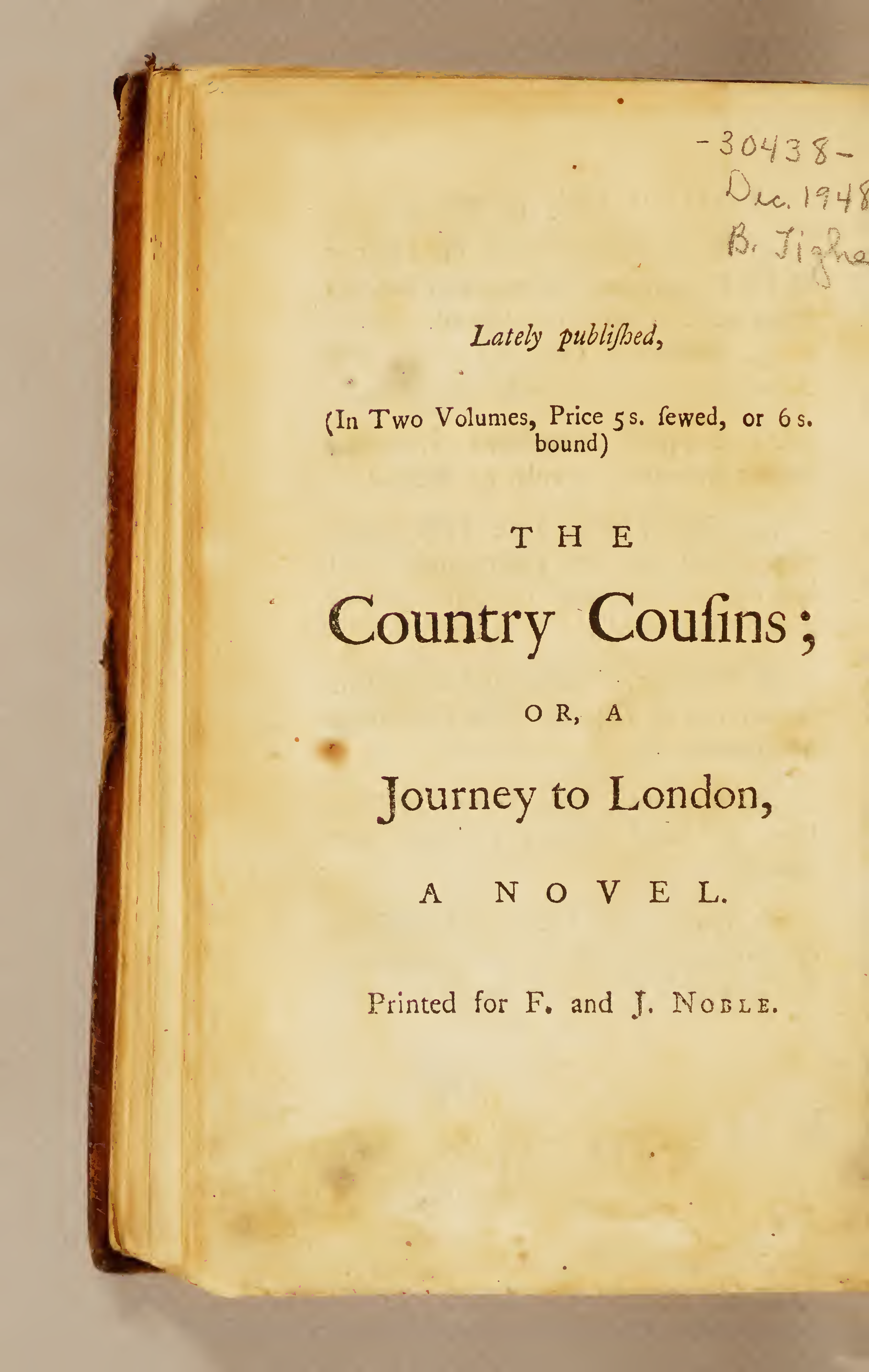The Female American; Or, The Adventures of Unca Eliza Winkfield
(Vol. II)
By
Unca Eliza Winkfield
OR, THE
ADVENTURES
OF
UNCA ELIZA WINKFIELD.
COMPILED BY HERSELF.
IN TWO VOLUMES.
VOL. II.
LONDON:
Printed for FRANCIS NOBLE, at his Circulating
Library, opposite Gray's-Inn Gate, Holbourn;
AND
JOHN NOBLE, at his Circulating Librarylibrary library
 Source: Apollo and Athena invite a reader to enjoy John Noble's library of educational and entertaining books. Frontispiece illustration to 'A new catalogue of the large and valuable collection of books: (both English and French) in John Noble's circulating library. Consisting of several thousand volumes...which are lent to read,' circa 1761. Public domain image, Folger Shakespeare Library Digital CollectionsFrancis and John Noble were booksellers and publishers who ran a
successful circulating library starting in the 1740s. Rochelle Raineri
Zuck speculates that The Female American may have
been the product of the "stable of writers" the Nobles employed "to
produce new work at a rapid pace" for their libraries-something like the
eighteenth-century equivalent of Internet
content farms. See Zuck, "Who Wrote
The Female American?" in
English Literary History 89.3 (2022): 669.
DOI:10.1353/elh.2022.0023.
- [UOStudStaff]
, in
Source: Apollo and Athena invite a reader to enjoy John Noble's library of educational and entertaining books. Frontispiece illustration to 'A new catalogue of the large and valuable collection of books: (both English and French) in John Noble's circulating library. Consisting of several thousand volumes...which are lent to read,' circa 1761. Public domain image, Folger Shakespeare Library Digital CollectionsFrancis and John Noble were booksellers and publishers who ran a
successful circulating library starting in the 1740s. Rochelle Raineri
Zuck speculates that The Female American may have
been the product of the "stable of writers" the Nobles employed "to
produce new work at a rapid pace" for their libraries-something like the
eighteenth-century equivalent of Internet
content farms. See Zuck, "Who Wrote
The Female American?" in
English Literary History 89.3 (2022): 669.
DOI:10.1353/elh.2022.0023.
- [UOStudStaff]
, in
St. Martin's-Court, near Leicester-Square.
MDCCLXVII. 1 THE
Female AmericanAmerican; American
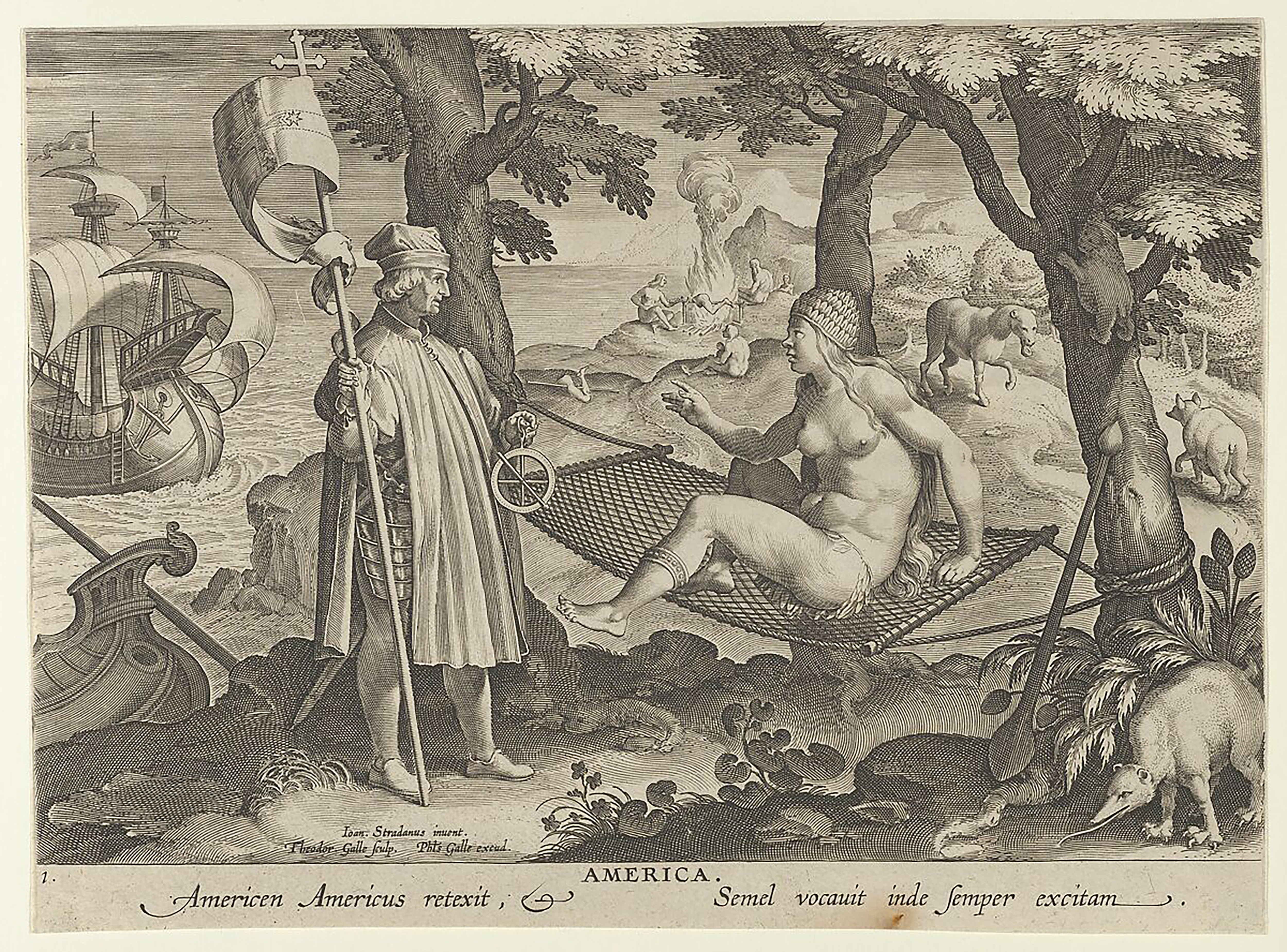 Source: Theodore Galle, 'Allegory of America,' ca. 1600. Public Domain image, Metropolitan Museum of Art.
This engraving by Netherlandish artist Theodoor Galle imitates
Johannes Stradanus' original drawing of Italian explorer Amerigo
Vespucci. In this allegorical image, Vespucci is shown 'awakening'
a woman who personifies America. The caption, 'Americen Americus
retexit, semel vocauit inde semper excitam,' roughly translates to
'Americus rediscovers America, once awakened, always aroused,'
further underscoring the sexualized and racialized ideology of
conquest. Like many depictions from this period, it visualizes
the so-called discovery of the Americas as an act of European male
dominance over feminized, exoticized, and passive land and peoples.
- [OUStudStaff]
Source: Theodore Galle, 'Allegory of America,' ca. 1600. Public Domain image, Metropolitan Museum of Art.
This engraving by Netherlandish artist Theodoor Galle imitates
Johannes Stradanus' original drawing of Italian explorer Amerigo
Vespucci. In this allegorical image, Vespucci is shown 'awakening'
a woman who personifies America. The caption, 'Americen Americus
retexit, semel vocauit inde semper excitam,' roughly translates to
'Americus rediscovers America, once awakened, always aroused,'
further underscoring the sexualized and racialized ideology of
conquest. Like many depictions from this period, it visualizes
the so-called discovery of the Americas as an act of European male
dominance over feminized, exoticized, and passive land and peoples.
- [OUStudStaff]
OR, THE
ADVENTURES
OF UNCA ELIZA WINKFIELD.
CHAP. I. Our heroine traverses the island; description of an uncommon animal, with her thoughts thereon.
I HAD matter enough to employ my thoughts during this interim, to reconsider what I had said, and what method I should pursue for the future with these people. Besides, I had some domestick cares 2 upon my hands: I now set about preparing a better convenience for my rest by night, and busied myself the remainder of the day, as soon as I perceived the people were gone off the island, with gathering leaves and other things to make my bed, which at last I made pretty tolerable. The next day I removed all the things I had concealed into the subterraneous apartments, bestowing some in one and some in another. I found it necessary also to provide myself with more fat, that I might now want light, and indeed with some meat; for these purposes I was obliged to kill a couple of goats, a task always very disagreeable to me. As my habitation was very gloomy and melancholy, I spent what leisure time I had, in walking up and 3 down the island. In these few days, I saw more of it than I had in all the time I had been upon the island. I found it well watered with little rivuletsrivulets rivuletsstreams - [UOStudStaff] and vast variety of trees, many of which bore different kinds of fruits. Those which I perceived had been pecked by birds I tasted, and found some of them very delicious.
Among the various kinds of birds I found one sort exceeding beautiful.
It was about the size of a large parrot; its feathers delightfully
variegatedvariegated
variegatedvaried - [UOStudStaff]with the colours of the
rain-bow, those of its tail spreading like those of the peacock;
but not near so large, nor numerous. Of the four-footed animals I saw one of a
most extraordinary kindextraordinary.
extraordinary
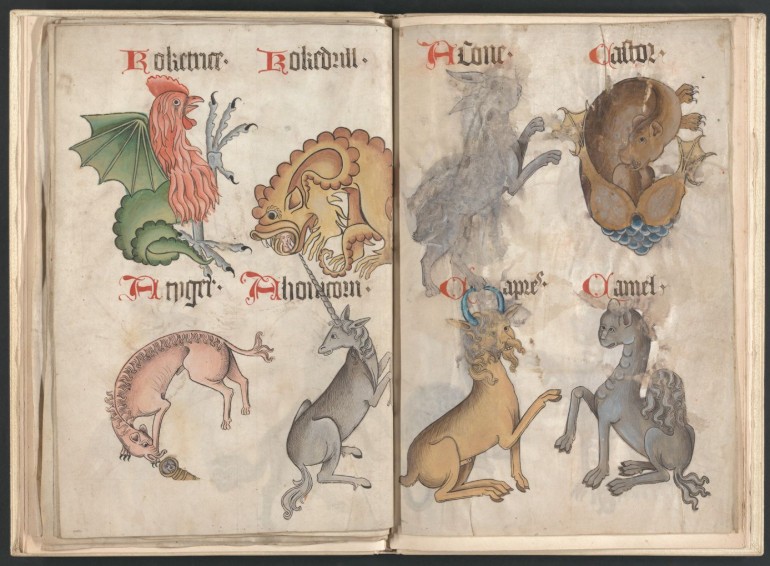 Source: Helmingham Herbal and Bestiary (1500), Yale Center for British Art. Reused under Yale Library's Open Access Policy.
The absurd nature of the fictious animal described in this passage implies
a metaphorical meaning. The animal's only means of survival is deceiving its
prey, pretending to sleep in order to capture it. Anna Brickhouse connects
this description to Unca Eliza's own deception of the island's Indigenous
people, claiming that "Unca Eliza is both transfixed and patently disturbed
by the greed and violence of this strange colonial animal. A nightmarish
embodiment of her own predicament." Brickhouse, "The Indian Slave Trade in
Unca Eliza Winkfield's The Female American."
The Yearbook of English Studies 46 (2016): 115-126.
DOI: 10.1353/yes.2016.0008.
- [UOStudStaff] It was of the size of a large
4
dog, as to its body, but its legs, which were very long, were by no means
proportioned to the bulk of this strange animal, being so slender as to bend
under him, insomuch that it could move only with the utmost slowness. I wondered
within myself how this creature could either defend, or provide for itself; but
observing it more closely, I took notice that its eyes were uncommonly large, for
an animal of that size, projecting far from the head, and so frightful as to
excite fear in me; and I should have fled from it, only that I perceived it
could not overtake me, had I walked ever so slow. The mouth of it was no less
dreadful; it kept the lips of it almost constantly drawn asunderasunderasundersplit apart - [UOStudStaff],
which showed two horrid rows of sharp, but short teeth.
Source: Helmingham Herbal and Bestiary (1500), Yale Center for British Art. Reused under Yale Library's Open Access Policy.
The absurd nature of the fictious animal described in this passage implies
a metaphorical meaning. The animal's only means of survival is deceiving its
prey, pretending to sleep in order to capture it. Anna Brickhouse connects
this description to Unca Eliza's own deception of the island's Indigenous
people, claiming that "Unca Eliza is both transfixed and patently disturbed
by the greed and violence of this strange colonial animal. A nightmarish
embodiment of her own predicament." Brickhouse, "The Indian Slave Trade in
Unca Eliza Winkfield's The Female American."
The Yearbook of English Studies 46 (2016): 115-126.
DOI: 10.1353/yes.2016.0008.
- [UOStudStaff] It was of the size of a large
4
dog, as to its body, but its legs, which were very long, were by no means
proportioned to the bulk of this strange animal, being so slender as to bend
under him, insomuch that it could move only with the utmost slowness. I wondered
within myself how this creature could either defend, or provide for itself; but
observing it more closely, I took notice that its eyes were uncommonly large, for
an animal of that size, projecting far from the head, and so frightful as to
excite fear in me; and I should have fled from it, only that I perceived it
could not overtake me, had I walked ever so slow. The mouth of it was no less
dreadful; it kept the lips of it almost constantly drawn asunderasunderasundersplit apart - [UOStudStaff],
which showed two horrid rows of sharp, but short teeth.
It was at this time labouring to get into a kind of pasture. I determined to watch its motions, thinking it might be seeking its prey; for I did not doubt but that the goodness and wisdom of providenceprovidence,providenceGod's divine plan - [UOStudStaff] which had thus wonderfully provided for its security, had doubtless taken no less care for its support. It was a long time in getting to the place it seemed designed to reach. As it walked or rather limped along, several animals passed it, many much bigger than itself, who no sooner saw it than they ran from it, as if afraid of being destroyed by it. I took notice that as any of these approached him, he rowledrowled rowledrolled - [UOStudStaff] his eyes, which encreased their fierceness, at the same time showing his teeth.
6At length he got into the grass, and then laid himself down, extended as if dead. I came up to him behind, for his looks were too terrifying to face him, and sitting down at some distance, was resolved to watch, that I might discover whether he chose this place merely for rest, or with some other view. He soon changed his posture a little, so that I could perceive that his eyes were shut, and his lips closed; I therefore concluded that he was going to sleep; however, I still continued in my place. The hair on his body was very thick and long, perhaps five or six inches; the extremities of every cluster of them formed a kind of bunch, or small tuft, as large as an hasel-nut. Having sat about a quarter of an hour, I saw a great number of field-mice 7 come up to him, who presently began to nibble at these tufts, the animal continuing to lie still; but after a very considerable number of mice had thus employed themselves, he got up, and shook himself violently; when, to my great astonishment, I found these mice, some way or other so fastened and secured to these tufts, that very few of them could disengage themselves. And now, his neck being very long, he turned his head, and devoured them very greedily, one after another. I dare say that in a few minutes, he ate near three hundred of them; for his body was almost covered with them.
My curiosity was amply gratified, if an human being may say so, of
8
the sudden destruction of such a number of innocent animals; but the
divine being has been pleased to permit animals to support themselves
by devouring one another. I say permit; for I cannot think that it was
the original design of the Almighty, that animals should at all
destroy one another. I suppose it rather to be one of the unhappy
consequences of the general corruption of nature. I know it may be
replied, that some animals seem by their make to be designed to subsist
on animal food only, and are accordingly provided with teeth and claws,
unadapted for feeding on herbageherbage,
herbagestems and leaves - [UOStudStaff] or fruits,
and with stomachs evidently made for digesting animal substances;
whilst those parts in animals who eat no animal food, are
9
quite differently formed. I know and grant this; but yet my opinion
is not by this concession destroyed. For it is highly reasonable to
suppose, that these kind of creatures were so formed to prey upon dead
animals, that by their feeding upon them, they might remove what would
otherwise be an hurtful nuisance, in more senses than one. However,
it is not my intention, here, to display the naturalist; otherwise I think,
though a woman
though-a-woman, though-a-woman
 Source: Image from Thomas Heywood's 'The exemplary lives and memorable acts of nine the most worthy women of the world' (1640). Folger Shakespeare Library, CC-0 license.
The phrase "though a woman" serves as a brief but significant
acknowledgment of gendered restrictions on knowledge in eighteenth-century
England. Although Unca Eliza is depicted as a strong and smart
individual who challenges traditional gender roles, she establishes
her credibility by referencing foundational male philosophers,
indicating her awareness of cultural expectations regarding women's
intellectual ability. Scholar Jill Conway asserts that "European
women intellectuals were either declasse, or else they lived a
contemplative life in a religious community." Unca Eliza's isolation
on the island literalizes the social exile faced by intellectual
women at the time. See Conway, "Perspectives on the History of Women's
Education in the United States."
History of Education Quarterly 14.1 (1974): 1–12.
DOI: 10.2307/367602. - [UOStudStaff] I should gain the laurel from an
Aristotle or a
Plinyaristotle,
aristotle
This moment reflects the complex changing attitudes
towards the capabilities of women during the Enlightenment. Unca Eliza both
establishes her womanhood as something inferior to male intellectuals
and simultaneously places herself above classical scholars. While women
at the time were becoming increasingly established in intellectual fields
they were still seen as inferior to men. In
Women and Enlightenment in Eighteenth Century Britain
(Cambridge University Press, 2009), Karen O'Brien writes that, while the
progress of women in eighteenth-century Britain cannot be likened to feminism
as we know it, the Enlightenment "created a framework and a language for
understanding the gendered structures of society without which nineteenth-century
feminism would not have been possible" (2). - [UOStudStaff] were they to oppose me on
this subject.
Source: Image from Thomas Heywood's 'The exemplary lives and memorable acts of nine the most worthy women of the world' (1640). Folger Shakespeare Library, CC-0 license.
The phrase "though a woman" serves as a brief but significant
acknowledgment of gendered restrictions on knowledge in eighteenth-century
England. Although Unca Eliza is depicted as a strong and smart
individual who challenges traditional gender roles, she establishes
her credibility by referencing foundational male philosophers,
indicating her awareness of cultural expectations regarding women's
intellectual ability. Scholar Jill Conway asserts that "European
women intellectuals were either declasse, or else they lived a
contemplative life in a religious community." Unca Eliza's isolation
on the island literalizes the social exile faced by intellectual
women at the time. See Conway, "Perspectives on the History of Women's
Education in the United States."
History of Education Quarterly 14.1 (1974): 1–12.
DOI: 10.2307/367602. - [UOStudStaff] I should gain the laurel from an
Aristotle or a
Plinyaristotle,
aristotle
This moment reflects the complex changing attitudes
towards the capabilities of women during the Enlightenment. Unca Eliza both
establishes her womanhood as something inferior to male intellectuals
and simultaneously places herself above classical scholars. While women
at the time were becoming increasingly established in intellectual fields
they were still seen as inferior to men. In
Women and Enlightenment in Eighteenth Century Britain
(Cambridge University Press, 2009), Karen O'Brien writes that, while the
progress of women in eighteenth-century Britain cannot be likened to feminism
as we know it, the Enlightenment "created a framework and a language for
understanding the gendered structures of society without which nineteenth-century
feminism would not have been possible" (2). - [UOStudStaff] were they to oppose me on
this subject.
But to return to the event which gave rise to this digression, I should be very glad if I could inform the reader, and especially myself, by what means 10 these mice were entangled by, or fastened to, the tufts of hair, so as not be enabled to disengage themselves, no not even when the creature shook himself so violently, which, one would naturally think, was a circumstance in their favour. However, since I am upon this subject, which at least is pleasing to myself, and I think no ignobleignoble ignoble not honourable in character or purpose - [UOStudStaff]contemplation for an ingenuous mind, I will hazard my own conjectureconjecture-noun conjecture-nounan unfounded opinion, guess, or surmise - [UOStudStaff] upon the occasion. As we know, by the assistance of the microscope, that the hairs of animals are pervious, or hollow, and that they are pervaded by some kind of liquid matter, for their growth and nourishment, perhaps that with which the hairs of this animal are filled and nourished may be of a more extraordinary glutinous kind, and as the 11 tufts formed by the extremities of these hairs are pretty big, a large quantity of this glutinous matter being lodged there, the nibbling of the mice breaking the hairs, this glutinous matter may so fasten the hairs to the inside of their mouths, as to render it exceeding difficult for them to disengage themselves, at least soon enough to prevent their being devoured: and I think the shaking of the animal must doubly contribute to their danger; because this motion prevents them from fixing their feet against his body, which would assist them in disengaging their mouths from the tufts, and being thus in a hanging state, their fear may make them bite the tufts the closer, upon the motion of the beast, and thereby 12 [page breaks after 'ren-'] render them a still easier victim: so that nature seems to have endowed him with his artifice the more effectually to secure his prey.
13 CHAP. II. The Indians return to the island; she continues her instructions, and commands them to return weekly.THUS did I busy or amuse myself; and indeed I cannot imagine to myself any situation in which a thinking being, free from pain of body, and great anxiety of mind, cannot divert itself. I can always find something, from without or within myself, for my amusement. Often have I been diverted with watching the flights of a fly, or the excursions of a spider, till my mind has been so filled with the display of the infinite wisdom of the 14Creator, in the formation of his works, as to elevate my mind to the most exaltedexalted exaltedRaised to a high level of dignity or honor. - [UOStudStaff]adoration. Nor does darkness deprive me of my mental amusements: in this state I can reflect on those things that I have seen, heard, or read of. The recollection of these sets my busy imagination at work, and I am pleased, nay, I am happy; and darkness has no horrors for me.
How miserable must those be who complain for want of amusement! How wretched such
a state! What! want matter for thought? Can a thinking being, such as man is,
say thus? Look round, is not all nature about thee teeming with subjects well
adapted for thy contemplation, happily prepared for thy entertainment? But
whither will my
15
thoughts carry me? my province is not that of a philosopher, but historian.
And if my reader has travelled thus far with me, I doubt not but he is impatient
to hear again of my late visitors, perhaps more so than I was.
Nor do I wonder that events so extraordinary should attract his attention;
and if ever they should be published in any country, I doubt not but they
will soon be naturalized throughout
Europe, and in different languages, and in succeeding ages,
be the delight of the ingenious and inquisitive; and that some future bold
adventurer's imagination, lighted up by my torch, will form a
fictitious story of one of his own sex, the solitary inhabitant of a
desolate islanddesolatedesolate Source: Frontispiece illustration and title page for the 1719 publication of The Life and Strange Surprizing Adventures of Robinson Crusoe, Of York. Public domain image, British Library.
This allusion to Robinson Crusoe(1719) establishes
Daniel Defoe's castaway novel as inspiration for
The Female American. Though these tales are similar in content and fabrication,
The Female American ironically attempts to discredit its
precursor due to its fictitious storyline. To learn more about the parallels
between these two works, see Tremaine McDowell, "An American Robinson Crusoe"
American Literature 1.3 (1929): 307-09. - [UOStudStaff].
*footnote1
Source: Frontispiece illustration and title page for the 1719 publication of The Life and Strange Surprizing Adventures of Robinson Crusoe, Of York. Public domain image, British Library.
This allusion to Robinson Crusoe(1719) establishes
Daniel Defoe's castaway novel as inspiration for
The Female American. Though these tales are similar in content and fabrication,
The Female American ironically attempts to discredit its
precursor due to its fictitious storyline. To learn more about the parallels
between these two works, see Tremaine McDowell, "An American Robinson Crusoe"
American Literature 1.3 (1929): 307-09. - [UOStudStaff].
*footnote1
Such imaginary scenes, like those of a play, may have a temporary effect, but not permanent, like the real ones of mine.
At length the appointed morning came, against whose advent I took care to be ready placed within the statue. Having waited a short time, I saw only the seven priests advancing towards me. I wondered not to see them followed by any of their people, and thought it very odd. When they were come up pretty near, they stoptstopt stoptstopped - [UOStudStaff], and having made their accustomed obeisancesobeisances, stood silent, I obeisancesgestures of respect, such as bows - [UOStudStaff] 17 supposed waiting till I spoke. After I had reflected a little on this occasion, I begun. "Why had none of the people attended you?"
High-Priest.high-priest "It is our business to instruct the people, and if you will please to teach us, we will inform them accordingly."
high-priest Unca portrays herself as a woman with strong Anglican beliefs, yet momentarily forfeits her belief system on the island when she finds the idol. She begins manipulating the people around her through the influence of the idol, and internalizes the mindset of its power. She utilizes lies, treasures, costumes and deceit to reinforce her position as a god-like figure. Scarlet Bowen explores this idea of manipulation, describing Unca Eliza's "theatrical efforts to persuade the Indians" and comparing her to "an expert stage director." Bowen, "Via Media: Transatlantic Anglicanism in The Female American." The Eighteenth Century, 53.2 (2012): 189-207. - [UOStudStaff]Answer. "Why?"
High-priest. "Because we live by teaching them, and if you only should teach them, they will not give us those good things which they now do."
Answer. "But I will not teach you only; I will teach them also. Nor 18 need you fear losing your subsistence. I will take care it shall be continued. Hear me then, and if you fear me, observe my command. Let one of you go and fetch some of the people; and let the rest of the priests wait here till the others return."
The peremptoryperemptory manner in which I uttered these words, seemed to affect them much. peremptoryinsisting on immediate attention or obedience, leaving no room for refusal - [UOStudStaff] manner in which I uttered these words, seemed to affect them much. They made their usual obeisances; and then the high priest answered, "that they were very ready to comply with my commands; but that it would rather take up too much time, to go back to their countrymen, and return again the same day, to make any convenient stay 19 [page breaks after 'after-'] afterwards, to hear my instructions; but that if I pleased they would return home, and attend me, with some of the people, in the morning."
To this I agreed, and accordingly they immediately withdrew, having taken a respectful leave.
As soon as they were gone, I descended into my subterraneous apartments, took
some refreshments, and spent the remainder of the day in providing some
necessaries, and rambling about the island. The next morning, I took care early
to place myself in the statue. Nor had I waited very long, before I perceived
the priests coming forward, with a considerable number of the people with them.
The
20
usual ceremonies past, I began to discourse upon the nature and attributes of
the Deity, from what are usually called the
principles of
natural religionnatural-religion
natural-religion
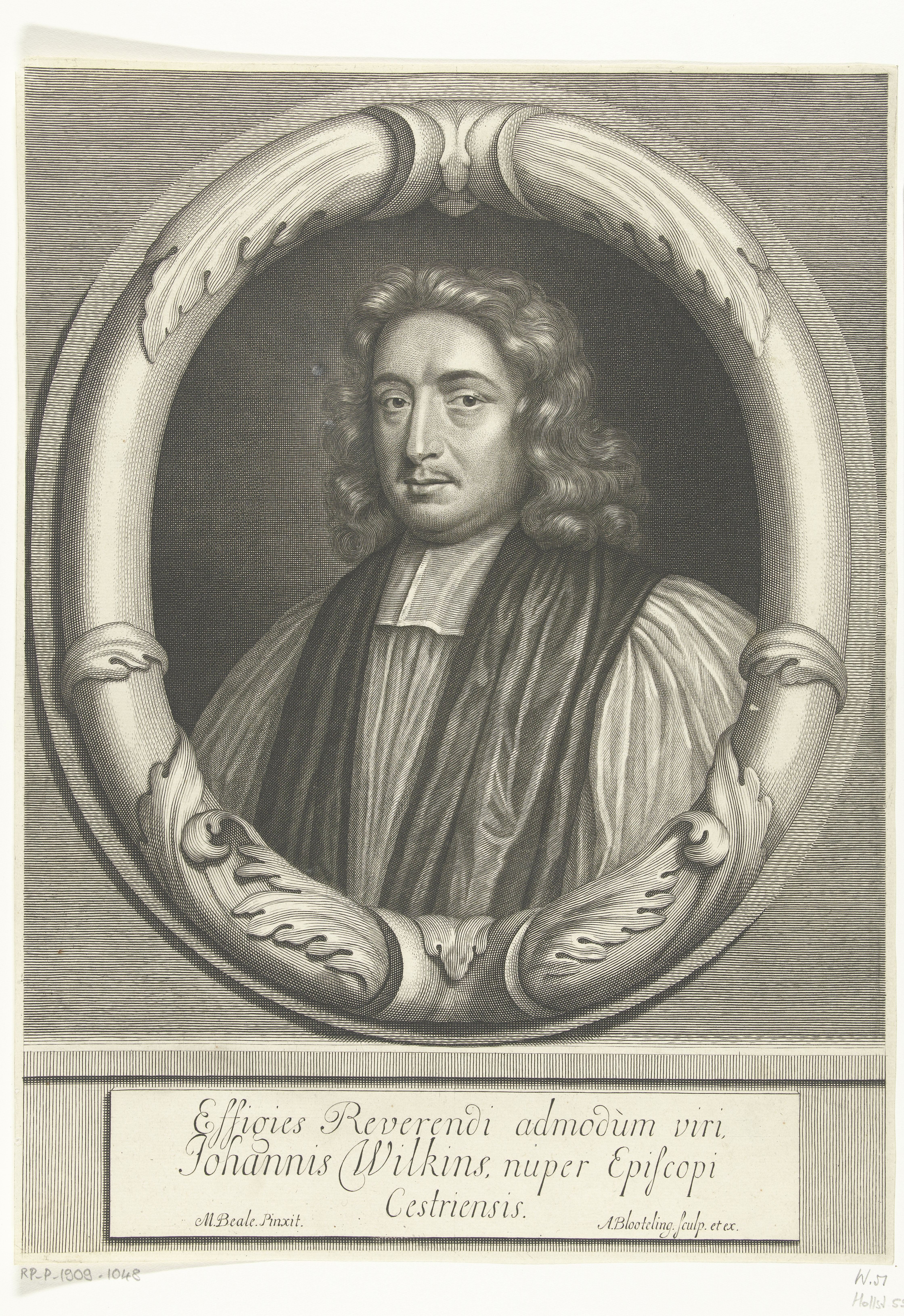 Source: Abraham Bloteling, 'Portret van John Wilkins, bisschop van Chester' ('Portrait of the very Reverend John Wilkins, late Bishop of Chester'). Original from the Rijks Museum, reproduced under a Creative Commons 1.0 license.
Unca Eliza likely refers to the work of Anglican clergyman John Wilkins (1614-1672),
pictured at right. In Of The Principles And Duties Of Natural Religion (1734),
available via the Internet Archive,
Wilkins proposed that the matter and form of living things provide evidence of God's divine authority, an idea Unca Eliza
explores here. - [UOStudStaff]
; though I believe, strictly speaking, all religion
to be revealed. I stopt at every convenient pause, two or three minutes, that I might
not weary their attention, and give them opportunity to reflect, as it were step by step,
upon what I said.
Source: Abraham Bloteling, 'Portret van John Wilkins, bisschop van Chester' ('Portrait of the very Reverend John Wilkins, late Bishop of Chester'). Original from the Rijks Museum, reproduced under a Creative Commons 1.0 license.
Unca Eliza likely refers to the work of Anglican clergyman John Wilkins (1614-1672),
pictured at right. In Of The Principles And Duties Of Natural Religion (1734),
available via the Internet Archive,
Wilkins proposed that the matter and form of living things provide evidence of God's divine authority, an idea Unca Eliza
explores here. - [UOStudStaff]
; though I believe, strictly speaking, all religion
to be revealed. I stopt at every convenient pause, two or three minutes, that I might
not weary their attention, and give them opportunity to reflect, as it were step by step,
upon what I said.
As I was well acquainted with the manners of the Indians, I adapted my discourse to their own way of reasoning, and avoided all such terms, and modes of speech, as are intelligible only to Europeans. When I had discoursed near three hours in this manner, I desisted, desiring them to take some 21 [page breaks after 're-'] refreshment, with which I saw they had provided themselves, and that afterwards I would call to them; and then the priests, or any of the people, might ask what questions they should please concerning what I had delivered. I ordered them to retire to some distance from where they were. This I did, that I might not be heard, as I intended to withdraw for a little time out of the statue, to take some refreshment myself.
As soon as I had taken my place as before, I called to my audience, who respectfully returned to their former station. I repeated the leave I had given to them, to ask any questions relative to my discourse. All the priests, in their turns, asked me 22 [page breaks after 'se-'] several pertinent and sensible questions; to which I replied as well as I was able and I believe to their satisfaction. But observing that the laity still kept silence, I endeavoured to encourage them to propose their questions also, and was answered, by some, "We know nothing; our priests know all; teach our priests, and they will teach us." From this I concluded, that the priests had dealt in private with them, and had forbid their asking any questions, that they might preserve their superiority among them.
I therefore addressed myself to them with some sharpness, reminding them of what I had told them before, "that I would not teach them only; 23 but that I would teach the people also."
Upon this the priests submissively bowed, and declared their readiness to obey my commands. I then proceeded, as well as I could, further to explain what I had delivered in the fore part of the day; and concluded with telling them, I should be ready to continue my instructions to them, for that I had much more to say, once a week, provided the priests would attend that day week, and so on, with as many of the people as should choose to come; but as the high-priest was very aged and infirm, he might come, or not, as he pleased. To this the 24 high-priest said he would conform. I then told them they might return home as soon as they pleased; and it was not long before they all quitted the island.
25 CHAP. III. Perplexed in what manner to act, she ascends the idol, addresses the Indians, and informs them, that a person shall come to instruct them in the knowledge of the true God.I Now once more found myself left to my little occupations, and to my own thoughts. I soon, and easily, fulfilled the demands of the former; but not so those of the latter. I had engaged in an affair that required the utmost attention, and not the smallest abilities. This latter reflection startled me. When an arduousarduous arduoushard to accomplish or achieve - [UOStudStaff] attempt? thought I, and was abashed;abashed abasheduneasy, confused, embarrassed - [UOStudStaff] would I had never engaged! but how can I 26 desistdesist? desiststop, delay, cease - [UOStudStaff] This was as difficult to answer, as how to go on. As I knew something of the manner of the Indians, I did not doubt of their docibility; but I was very suspicious of the priests. I foresaw they would never easily suffer themselves to become useless to the people, and nothing less could be the consequence of my instructing them. And supposing this to be got over, how was I to proceed to continue teaching them from the statue, if I hoped to make any tolerable progress, as it would render their attendance more frequent than might be convenient to them? and in the wet season they could not come at all; and further, how could I, with any possible degree of comfort, continue to live under ground even in the summer? and in the winter I 27 should be entirely confined under ground. This last thought affected me so much, that I saw the absolute necessity of going to live among the Indians, whatever my success in teaching, or reception, might prove. I determined to trust in providence for a discharge of the first; and no less to rely on its protection, as to my personal security. Though I had thus determined the part I was to take, there yet remained a great difficulty, how to introduce myself among them. They might at present conceive of me as more than mortal, reverence me, and pay an implicit faith to all my teachings;but how would their opinion of my change, when they should discover me to be a mere mortal, a destitute stranger, even needing their support! What 28 [page breaks after 'creden-'] credentials had I to support the novel doctrines that I was to introduce? How was I to combat old opinions, handed down from father to son, received with reverence, and, no doubt, maintained with obstinancyobstinancy? obstinancystubbornness, inflexibility - [UOStudStaff] What advantage would not all these difficulties give the priests over me, among an ignorant and deludeddeluded deludeddeceived, beguiled, led away from truth - [UOStudStaff] people? and what might not exasperated bigotry prompt them to? nay, I knew not, but they might even think it necessary and right to destroy one who should dare to deny the deitydeity deitydivine being, god - [UOStudStaff]of the sun, and expose the absurdity of their religion.
These were discouraging reflections, and the more I considered them, the more I was intimidated; and I heartily repented that I had ever spoken to them, 29 and again was irresoluteirresolute irresoluteunresolved, undecided - [UOStudStaff] as to going among them. Thus was I distracted whether I determined to stay, or go; to stay was attended with certain evilsattended; attendedwould bring certain misfortune - [UOStudStaff] to go, too probably, with very great ones. Miserable wretchwretch! wretchperson driven from their native country, exile. - [UOStudStaff]cried I, what shall I do? tears succeeded; and I could think no more, with any coherence. As soon as I was a little composed, I had recourse torecourse recourseturned to - [UOStudStaff] my usual consolation, prayer; and now my mind was calm, I could view the difficulties before me without terror, and distinguish between positive and real dangers.
I concluded to trust providence, in adopting that course, which, upon the most mature consideration, should appear to have the fewest difficulties, and the most advantages on its side. It 30 was to go among the Indians; the manner thus; not to acquaint them in the least with my condition, that they might not conceive any prejudices against me on that account, and that by keeping them ignorant who I was, or how I came to them, I might preserve a superiority over them, sufficient to keep them in awe, and to excite their obedience: yet I determined to speak no untruth. Accordingly, when the day of their return arrived, and the priests, and a great many of the people were present before the statue, I thus addressed them:
Oracleoracle. oracleinstrument or medium through which the gods were supposed to speak or prophesy - [UOStudStaff]"Be attentive, and hear! You are a people ignorant of the knowledge of the true and only God, who made heaven and earth, 31 and every thing thereintherein; therein in that place - [UOStudStaff]you are also ignorant of that worship, which God expects from his creatures; and of that happiness, which he will bestowbestow bestowgive as a gift, or present - [UOStudStaff] upon all those who worship him according to his holy willwill. willintention - [UOStudStaff]
"This his holy will he hath revealed to many thousands of men and women like you, who live in other parts of the earth, and now you also may know his holy will and be happy.
"God hath been pleased to send into the world, from time to time, holy men, and sometimes women, to instruct mankind in the knowledge of him; and at last his son, to instruct them more fully.
32"But forasmuch as mankind had by their great wickedness offended God, of whom you are a part, he would have punished them with a very grievousgrievous grievoussevere - [UOStudStaff] punishment; but his son, who loved them, came down upon earth and was made a man, and offered himself up a sacrifice to his father, that mankind might be forgiven, reconciled unto his father, and be made good people, by believing and doing as he taught them.
"He was, whilst upon earth, attended by certain persons, called his disciples, who wrote the history of his life. This history, with the writings of the holy men, who lived before his coming into the world, and the writings of his disciples, 33 designed to teach all men, you shall have for your instruction.
"With respect to teaching you the holy religion of the son of God from this place, it will be too inconvenient to you to come here as often as necessary; and during the rainy seasons, every year, it will be impossible for you to come at all.
"Therefore, that you may not want that instruction, which is necessary to your happiness here, and after you are dead, you shall be taught in this manner.
"A person shall come to you, like yourselves, and that you may be the less fearful or suspicious, that 34 person shall be a woman, who shall live among you as you do.
"She shall bring with her the holy writings I have been speaking of, and shall teach all of you, especially your priests, who shall instruct you after her departure, the knowledge of the true God, and the way to be happy for ever.
"You must be sure to show the greatest respect to her, do every thing that she shall command you, never ask who she is, from whencewhence whencewhere - [UOStudStaff] she comes, or when, or whether she will leave you. Never hinderhinder hinderprevent - [UOStudStaff] her from coming to this island when she pleases, nor follow her hitherhither hitherhere - [UOStudStaff] without her leave. You must 35 all believe, and do as she shall instruct you, and never presume to come to this island without her leave, or do any thing that she forbids.
"But I do not want to force her among you: if you do not choose she should come, speak, and she shall not come; and I will be dumbdumb dumbintentionally silent - [UOStudStaff] for ever."
Answer. "Let her come! let her come! let her come! and we will love and obey her."
This was the cry of all, with a noise in my ears like that of thunder; whilst they showed every outward sign of joy. As soon as all were again silent, I once more addressed them.
36Oracle. "Hear me then, let as many of you as please come here three days hence, two hours after the sun is risen, and you will see her sitting upon these steps, drestdrest drestdressed - [UOStudStaff]like the high-priest of the sun. Receive her with great respect, and conductconduct conductescort, guide - [UOStudStaff]her to your country, and remember all I have said."
I now was silent, when the whole multitude shouted,
Answer. "We will meet her! we will meet her!"
This important business of the day being thus concluded, they all returned home,
and left me not a little pleased at the happy
expedientexpedient
expedientplan to attain a certain end - [UOStudStaff]I had devised
37
to procureprocure-obtain
procure-obtainobtain, acquire - [UOStudStaff]myself a favourable
retreatretreat
retreat
 Source: A print from Carington Bowles, 'Twelve Illustrations of Robinson Crusoe,' 1783. Public domain image, Yale Center for British Art.
Unca Eliza's use of the term 'retreat'
here may be a nod to Robinson Crusoe, who describes a section of the island
as his 'Summer Retreat.' This eighteenth-century illustration of Crusoe's
retreat is captioned with a quote from Defoe's novel: 'In this place also
I had my grapes growing, which I principally depended on for my Winter Store
of Raisins, and which I never fear to preserve very carefully.' Like Crusoe,
Unca Eliza finds unexpected abundance in her new home, fueling her faith
that God has a plan for her and will provide for her needs. - [UOStudStaff] among
the Indians, and a high probability of success in my future teachings.
Source: A print from Carington Bowles, 'Twelve Illustrations of Robinson Crusoe,' 1783. Public domain image, Yale Center for British Art.
Unca Eliza's use of the term 'retreat'
here may be a nod to Robinson Crusoe, who describes a section of the island
as his 'Summer Retreat.' This eighteenth-century illustration of Crusoe's
retreat is captioned with a quote from Defoe's novel: 'In this place also
I had my grapes growing, which I principally depended on for my Winter Store
of Raisins, and which I never fear to preserve very carefully.' Like Crusoe,
Unca Eliza finds unexpected abundance in her new home, fueling her faith
that God has a plan for her and will provide for her needs. - [UOStudStaff] among
the Indians, and a high probability of success in my future teachings.
It now only remained to prepare for my departure. The day before the return of the Indians I collected together all my clothes, and the few books that I had; but had no chest to put them in, having broken that when I tumbled it down from the rock. I considered how to supply this want, and at last concluded to tie them up as well as I could with twigs, having no cords. Having first chosen such things as I intended to make my appearance in, I wrapt my bundle up in one of the priest's 38 golden vestmentsvestments, vestmentspriestly robes; ceremonial garments - [UOStudStaff] and put in two others. The last evening I spent in particular prayers upon the ensuingensuing ensuingapproaching - [UOStudStaff] occasion.
39 CHAP. IV. Apparels herself in the richest manner, and waits the approach of the Indians; acquaints them she was sent by the oracle; presents them with rings, and partakes of a repast.WHEN the expected morning came, I awoke by day-break, drestdrest drestdressed - [UOStudStaff] myself in white, and, over all, put on the high-priest's vestments that I had found upon my first searching of the subterraneous apartments. These were a kind of cassockcassock, cassockankle-length gown or cloak - [UOStudStaff] or vest, formed of gold wire, or rather of small narrow plated gold, curiously folded, or twisted together, like net-work, which buttoned close with diamonds. Over 40 this I put on, formed of the same materials, and in the same manner, a gown, sprinkled all over with precious stones, and here and there a large diamond. On my head I placed a crown of most exquisite make, richly beset with precious stones of various sizes and colours; one on the top particularly large, which emitted from all parts of it a light greater than that of either of my lamps. In my right hand I held a golden staff, or rod, with a small image of the sun on the top of it. On one of my fingers I wore the ring, and on each arm a rich bracelet, all which I found at the same time I discovered all these other things.
I had made myself a kind of wicker basket, which I filled with a great 41 number of gold rings, all from the same repositoryrepository repositorya place where things are stored for safekeeping - [UOStudStaff] . When I first discovered all these treasures, I then little thought they would ever prove of any real use to me. Nor did I now thus adorn myself from pride; but I thought the extraordinary appearance that they would give me, might procureprocure procurecause or bring about - [UOStudStaff] me a more favourable reception. The rings I designed for presents. I should have mentioned that, besides the fine ring that I put on, when first I found the rings, I put one upon each of my fingers.
When I left my subterraneous dwelling, I not only bolted the door, but covered it over with earth. Being come to the statue I sat down on the highest step, in all my finery, the crown 42 on my head, my staff in my right hand, and on my left stood my twig-basket; at some distance lay my bundle, which, being wrapt up in one of the gold vestments, glittered as the sun shone very bright.
Thus I sat, with my bow and arrows hung over my shoulders, waiting for the important interview, my mind not a little agitated between hope and fear. However, I very solemnly recommended myself and my undertakingundertaking undertakingproject - [UOStudStaff] to God; and then endeavoured to fortify my mind, so that on the approach of the Indians I might not discover the least symptom of fear; for I knew on this much depended.
43I had sat near an hour before they approached; but at last saw them advance in the same order as at their first coming. At the first sight of them my heart leapt, and every limb trembled, and for a moment I wished myself within my subterraneous habitation. But as they advanced slowly, I had time enough to recover myself, and, before they came near enough to distinguish my countenancecountenance1, countenance1facial features or expression - [UOStudStaff] I believe it was sufficiently steady.
As they came near, led by the high-priest and the others, they bowed almost to the ground at every step; I still kept my seat looking firmly at them. When they were come near enough to hold a conversation, they halted, and the priests and all the company, who were about 44 two hundred, without any children, prostratedprostrated prostratedthrew - [UOStudStaff] themselves to the ground; I then arose, and extending my golden rod towards them said, "Arise."
They did so; when, observing that they held a profound silence, I thus addressed them, with as much affabilityaffability affabilityfriendliness - [UOStudStaff] as I could; yet with an air of superiority.
"I suppose you are come to invite me to reside in your country?"
To this the high-priest answered, "Yes;" which was presently ecchoed throughout the whole multitude.
45I then desired the high-priest to sit down at my right hand, which he did, not without some mannerly reluctance; I then placed the other priests on the steps a little lower on the right and left hand.
sitting with the priests in this manner, I again addressed them:
"I suppose most of you were here three days ago, and heard, or know, what was then delivered from above," pointing up to the statue. "In consequence of what was then promised you, and to which you who were then present agreed, I am come to live among you, at least for some time, and to instruct you; observe what was then enjoined you.
46"You must obey my commands, observe my instructions, never ask who I am, from whence I come, or whether, or when, I will leave you.
"Though if at any time you should desire me to quit your country, you may tell me so, and I will leave you. And further, you are never to oppose my coming here, as I shall do from time to time, nor any of you presume to follow me hitherhither hitherhere - [UOStudStaff].
"If you will faithfully observe these things, I will come and live with you, acquaint you with the holy books of God, instruct you in the knowledge of God, and in the ways of his religion; which will make you happy for ever."
47Here I paused; when the high-priest arose up with great reverencereverence, reverencerespect - [UOStudStaff] and having bowed three times, almost to the ground, said, "Holy woman, we heard, with great attention what the oracle said, and when we returned into our country we called, the next day, all our countrymen together, and told them every thing that the oracle had delivered. Our countrymen rejoiced to hear the good news, and all desire you will come and live among them; they will love you, obey all your commands, and will make you their queen, for our king is lately dead, and as he had no children, we have not as yet chosen a new king. Will you therefore go home with us, and be our queen?"
48Answer. "I thank you for your kind offer; but I will not be your queen, therefore you may choose whom you please. But, as you desire it, I will come and live among you, and will be only your instructor."
I had scarcely finished my answer, before the whole company made the greatest acclamations of joy, crying out,
"Come! Come! Come! and make us happy."
I arose up, and, after their manner, made three respectful bows to them; which were returned with new acclamations of joy.
49As soon as all were silent again, I sat down, and taking out of my twig- basket two of the best rings, I presented them to the high-priest, and to each of the priests two others, near in goodness to those of the high-priest's; when, finding that I had a sufficient number of rings, I desired the people to come to me one by one, and I presented each with a ring, which they all received with great expressions of joy.
I soon found that they yet were confounded in their ideas about me, and conceived of me, as one more than mortal; for the high-priest, with great reverence, asked me if I ever ate and drank?
50I chearfully replied "Yes; and if you have brought any provisionsprovisions, provisionsfood and drink - [UOStudStaff] I will eat and drink with you." At this he seemed both pleased and surprised. He then called to some of the people, who came forwards, bringing a kind of wicker baskets. The contents of them were dried fish, goats flesh, and other animal food, various kinds of fruit, dried corn, and a liquor like wine.
Before I began to eat, I stood up and said grace, at which they seemed much surprised. Then the priests and I took a comfortable repastrepast repastmeal - [UOStudStaff] together; whilst the people sat down, and did the same, we all observing a profound silence during the whole time. When we had finished, I again surprised them with 51 [page breaks after 're-'] returning thanks, according to the manner of christians.
The high-priest, hearing me conclude with the name of Jesus Christ, asked me very submissively who he was? I answered the son of God, of whom he had heard three days ago, that he had offered himself up a sacrifice to his father, for mankind; therefore we ought to praise God in his name, and in his name to ask for whatever it is lawful for us to desire: but of this, added I, I shall speak to you more fully hereafter.
52 CHAP. V. She embarks with the Indians for their country; expoundsexpounds expoundsinterprets, comments on, explains - [UOStudStaff] the scriptures to them, and translates the Bible and Common Prayer into the Indian language. Visits her island.WHILST these things past, I considered, that as I was entering upon an affair of the utmost importance, it would by highly necessary to commence with prayer. I was indeed sensible that it would be, in a great measure, very unintelligible to the Indians, yet I could not be satisfied with the omission, and thought I might pray in such a manner as that they, at least, would understand that I was 53 desiring God to do them good. I therefore stood up, and told them, I would pray to God to be good to them, and that they were all to kneel down, as I did. But that they might not think I prayed to the statue, I got up to the top of the steps, and there kneeled down, with my back to the statue, and my face towards the people; and endeavoured to level my language, as well as I could, to their understandings; whilst the whole multitudemultitude multitudelarge group of people - [UOStudStaff] showed great attention.
As I could sing very well, having learnt whilst I was in England, and had composed several hymns in the Indian language, as soon as I had done praying, I stood up and sung. It is not to be expressed how the whole multitude 54were affected, showing every decent expression of joy. I now told them I was ready to attend them to their own country. On this they set up a shout of gladness. I desired that some body would carry my bundle. I then set out in company with all the priests, followed by the multitude to the sea-side, were I saw a great number of canoes. I entered into one of them, and immediately the whole company entered into theirs. During our little voyage, I could not help reflecting upon the bold undertaking in which I had engaged; nor was I without my fears. But in my heart recommending myself to providenceprovidence, providencedirection, guidance, or provision from God - [UOStudStaff] I reassumed my courage, and fortified my mind.
55When we approached the destined shore, it was covered with the natives, who, when I landed, respectively prostratedprostrated prostratedthrew oneself on the ground to show devotion - [UOStudStaff] themselves to the earth. I, in return, bowed my body to them. I observed that they viewed my addressaddress addressspeech given in front of people - [UOStudStaff] with particular attention; whilst the priests conducted me to a little town full of small huts or cottages, into one of the best of which I was desired to enter. This, by the preparations that had been made, I supposed was designed for my residence. Here I found half a dozen Indian maids appointed to attend me, who, on my entrance, kneeled before me, till I ordered them to arise. These presented me with dried fish and flesh, fruits and flowers, and different liquors, as appeared from the look of them; for I took nothing 56but some fruit, of a kind, different from any I had seen upon my own island; for I was still on an island, though much larger. After I had been here some time, with the priests, I expressed my desire to be left alone, and that I should be glad to see the priests the next morning.
How greatly was my situation changed! From a solitary being, obliged to seek my food from day to day, I was attended by a whole nation, all ready to serve meserve; serve Unca Eliza's narration emphasizes the privilege her colonial hybridity allows her on the island. Julia Kark Callander suggests that Unca Eliza becomes a "native royal... at once representative of a community and set apart from it (i.e., better than its other members)." Unca Eliza's cultural, ethnic, and national hybridity mesh into a colonial hybridity that is both novel and contradictive, a paradox that Callander notes is "quite American." "'Attended by a Whole Nation': The Americas in The Female American." 1650-1850: Ideas, Aesthetics, and Inquiries in the Early Modern Era 18 (2011): 129-149. - [UOStudStaff] and no care upon me but how to dischargedischarge dischargecarry out a task - [UOStudStaff] the important business of an apostleapostle apostle person who introduces Christianity in a region - [UOStudStaff], which I had now taken upon metaken-upon-me. taken-upon-me In calling herself an apostle, or a disciple of Christ, Unca Eliza demonstrates a key difference between The Female American (1767) and Daniel Defoe's Robinson Crusoe(1719). While Crusoe finds his religion after he is stranded on the island, Unca Eliza has always been well versed in Christianity and has "unwavering confidence in religious knowledge," according to Jonahs Kneitly. See "The Female Americanand Its Liminal Spaces." Studies in Religion and the Enlightenment3.1 2023) 28-40, DOI:10.32655/srej.2023.3.1.3 2023 - [UOStudStaff] To this purpose, besides my daily instructing the priests in the knowledge of Christianity, I once a week taught the people in public; who 57 I found very ready, and tolerably capable, to receive my instructions.
As to the priests, I had expected much difficulty with them, and no little opposition; but was very agreeably surprizedsurprized surprizedsurprised - [UOStudStaff]. They were very attentive, quick of apprehensionapprehension, apprehensionlearning, understanding - [UOStudStaff] fond of instruction, and very ready to give me what assistance they could in teaching the people. The use I made of them was this; I mean the young priests, for the high priest was mostly confined at home, by the infirmities of his great age. The use, I say, I made of the young priests was to teach the children, and young people, the church of England's catechismcatechism: catechisma book containing the basics of Christianity, meant to be taught in question-and-answer format - [UOStudStaff] for as I had found a Common Prayer Book, among the few books that were in my 58chest, I translated the catechism into the Indian tonguetranslation translation Scholars debate the significance of Unca Eliza translating Christian religious texts for the Indigenous people of the island. Some emphasize her role as a cross-cultural mediator, highlighting her ability to claim a level of religious authority typically reserved for men at the time, and drawing parallels between her character and the influential Presbyterian minister Samson Occom (Mohegan). See, for example, Scarlet Bowen, "'Via Media': Transatlantic Anglicanism in 'The Female American', The Eighteenth Century 53.2 (2012): 189-207, jstor.org/stable/41468177. Others, like Katherine Whitcomb, point out that Unca Eliza's seemingly flawless ability to understand any Indigenous language she encounters neglects the linguistic diversity of Indigenous communities and "reduces the cultures of different people to such a simplistic view that the reader cannot differentiate one culture from the next." See " Unca Eliza as Hybrid Colonizer," in The Student Theorist: An Open Handbook of Collective College Theory, Public Commons Publishing, 2018: 80. - [UOStudStaff] with a short and plain comment upon it; this I taught the priests to read, who afterwards made the children get it by heart. And as I had a Bible, I, at my leisure, translated that also, beginning with the plainest parts first, till I had finished the whole.
I from time to time read the Bible in public to them, and, as I was able, explained it. I cannot but say I found myself very happy, among these plain, illiterate, honest people. There was nothing that they could do to please me, but they did it; and often expressed their hope, of my never leaving them. I found the manner of introducing myself among them was highly serviceable to me: for though, 59 in every respect, they could not but observe that I was like them; yet it was easy to discover, that they conceived meconceived conceivedperceived me as - [UOStudStaff] more than a mere mortal. However, I did not think it my duty, any more than my interest, to undeceive them, as this opinion secured to me that respect and authority which were necessary for me to preserve, in order to carry on the great work among them, in which I was engaged.
I sometimes amused myself in shooting with my bow and arrows, in which I exceeded any of them. But even this circumstance, triflingtrifling triflingunimportant - [UOStudStaff] as it was, raised their opinion of me. In the summer season, I now and then went to visit my old island; but whenever I did so, I always ordered the Indians who 60 rowed me over, to wait with the canoe by the sea-side; or to return home and fetch me in the evening, whilst I roamed about at my own pleasure.
When the same time returned next year, at which season they used to visit the oracle, the priests asked me, in the name of the people, if they should go to visit the oracle. I answered by no means, for that they would never more hear any answers from it.
I passed near two years very agreeably among them; in which I not only finished
the translation of the Bible, as well as that of the Catechism, but indeed of
most of the
prayers in the Common Prayer-Bookprayer-book.
prayer-book
 Source: A sixteenth-century title page and verso woodcut from 'A Catechism or Institution of Christian Religion,' Folger Shakespeare Library
The Female American, like its contemporary
Robinson Crusoe (1719),
reflects the historical reality of Christian efforts that imposed
European literacy and religious practices on Indigenous populations.
Unca Eliza's translations of the Bible and the Common Prayer Book
echo these real-world initiatives, which
Catherine A. Breckus
and
W. Clark Gilpin
argues functioned as tools of colonial control, reshaping Indigenous
societies to fit European frameworks. See
American Christianities: A History of Dominance and
Diversity (University of North Carolina Press, 2011).
While the novel critiques the violence often associated with
missionary work, it still promotes a "myth of non-colonial conversion,"
as Edward Simon highlights. Christianity is portrayed as a natural
extension of human reason. The idea that rational individual would willingly
convert upon encountering Christianity obscures the coercion that
often underpinned such conversions. See Simon,
"Unca Eliza Winkfield and the Fantasy of Non-Colonial Conversion in
The Female American."
Women's Studies 45.7 (2016): 649–59. - [UOStudStaff]
I also had made a great progress in instructing the people;
61whom I happily
brought off from their
idolatryidolatry,
idolatrypractice of worshipping idols,
especially in the derogatory sense of worshiping a false god - [UOStudStaff]
to the knowledge of the true
God, and to a
tolerable idea of the christian religion. We now regularly observed the Lord's
day, according to divine appointment. Though I had no right to administer the
sacrament of the Lord's supper, yet I was well satisfied, that under the
circumstances we were in, I might baptize. But I never did so,
till I was well satisfied that the party had a tolerable notion of
the christian religion, and earnestly desired to be baptized.
Source: A sixteenth-century title page and verso woodcut from 'A Catechism or Institution of Christian Religion,' Folger Shakespeare Library
The Female American, like its contemporary
Robinson Crusoe (1719),
reflects the historical reality of Christian efforts that imposed
European literacy and religious practices on Indigenous populations.
Unca Eliza's translations of the Bible and the Common Prayer Book
echo these real-world initiatives, which
Catherine A. Breckus
and
W. Clark Gilpin
argues functioned as tools of colonial control, reshaping Indigenous
societies to fit European frameworks. See
American Christianities: A History of Dominance and
Diversity (University of North Carolina Press, 2011).
While the novel critiques the violence often associated with
missionary work, it still promotes a "myth of non-colonial conversion,"
as Edward Simon highlights. Christianity is portrayed as a natural
extension of human reason. The idea that rational individual would willingly
convert upon encountering Christianity obscures the coercion that
often underpinned such conversions. See Simon,
"Unca Eliza Winkfield and the Fantasy of Non-Colonial Conversion in
The Female American."
Women's Studies 45.7 (2016): 649–59. - [UOStudStaff]
I also had made a great progress in instructing the people;
61whom I happily
brought off from their
idolatryidolatry,
idolatrypractice of worshipping idols,
especially in the derogatory sense of worshiping a false god - [UOStudStaff]
to the knowledge of the true
God, and to a
tolerable idea of the christian religion. We now regularly observed the Lord's
day, according to divine appointment. Though I had no right to administer the
sacrament of the Lord's supper, yet I was well satisfied, that under the
circumstances we were in, I might baptize. But I never did so,
till I was well satisfied that the party had a tolerable notion of
the christian religion, and earnestly desired to be baptized.
I could not help making one observation, and that a very just one. I remembered
when I was in
England, that I
used to look into some of the
deisticaldeistical
deisticalof the nature of or pertaining to deists or
deism. - [UOStudStaff]
writers in my uncle's studydeism.
deism
 Source: A painting of Lord Edward Herbert by Isaac Oliver, ca. 1613-1614, via Wikimedia Commons.The writers that Unca Eliza remembers from her
uncle's study likely include Deists like Lord Edward Herbert (1583 - 1648, pictured),
Charles Blount (1562 - 1606),
Anthony Collins (1676-1729), and
Matthew Tindal (1657-1733),
who believed that God created the universe and then allowed it to operate
under natural law (
Oxford English Dictionary). Unca Eliza's familiarity with these writers
demonstrates to readers that, like the Deists, she believes that "religious
truth should be subject to the authority of human reason rather than divine
revelation.” See Darren Staloff,
"Deism
and the Founding of the United States" (2008). - [UOStudStaff]
62
These writers laboured to prove, that Christianity was repugnant to plain
uncorrupted reason. Yet I found this assertion intirely false; for,
here a people, who had no other guide but their reason, no sooner heard
Christianity plainly and simply expounded to them, but they soon embraced it.
And I am fully persuaded that whenever any unprejudiced person tries the
religion of Christ by his reason, though he may find it in some measure above
his reason, he yet will not find it contrary to it, and that it is worthy of
his assenting to it.
Source: A painting of Lord Edward Herbert by Isaac Oliver, ca. 1613-1614, via Wikimedia Commons.The writers that Unca Eliza remembers from her
uncle's study likely include Deists like Lord Edward Herbert (1583 - 1648, pictured),
Charles Blount (1562 - 1606),
Anthony Collins (1676-1729), and
Matthew Tindal (1657-1733),
who believed that God created the universe and then allowed it to operate
under natural law (
Oxford English Dictionary). Unca Eliza's familiarity with these writers
demonstrates to readers that, like the Deists, she believes that "religious
truth should be subject to the authority of human reason rather than divine
revelation.” See Darren Staloff,
"Deism
and the Founding of the United States" (2008). - [UOStudStaff]
62
These writers laboured to prove, that Christianity was repugnant to plain
uncorrupted reason. Yet I found this assertion intirely false; for,
here a people, who had no other guide but their reason, no sooner heard
Christianity plainly and simply expounded to them, but they soon embraced it.
And I am fully persuaded that whenever any unprejudiced person tries the
religion of Christ by his reason, though he may find it in some measure above
his reason, he yet will not find it contrary to it, and that it is worthy of
his assenting to it.
But to continue my history. In the beginning of the third summer of my being here, not having been for a long time at my old island, on account 63 of the late rainy season, answerable to winter in Europe, I ordered some Indians to row me thither, early in the morning. I told the Indians they might return back, and come again in the evening.
Every time I made this visit, I always went into my subterraneous apartments, to get some rings to distribute among the Indians. I suppose they wondered how I came by them, but never asked me. And, that they might have no suspicion that I brought them from the island, I never gave them any on my return to them; but always a few days before I intended a visit to my old habitation.
64 CHAP. VI. Lands on her island, ascends the idol, perceives two Europeans approach the statue, one of whom she finds to be her cousin, speaks to them from the oracle, and after several interrogations discovers herself.AS soon then as I was landed I walked to the iron door, which I always left covered with earth, and fastenedfastened fastenedfortified, secured - [UOStudStaff] after me, as soon as I had struck a light. I commonly ascended into the oracularoracular oracularresembling divine authority or ancient oracles - [UOStudStaff] statue, and used to sit there sometimes to view the island. I did so this time; but how greatly was I surprised, when looking forward I saw some men advancing towards me! I soon perceived that they were Europeans, 65 and, as well as I could conjectureconjecture-verbconjecture-verbguess, surmise - [UOStudStaff], at the distance they were from me, Englishmen.
I supposed that they belonged to some ship, that had either cast anchor off the island, upon some occasion, or other, or were shipwrecked; nay, thought I, they may be pirates. Whatever might be the cause of their landing, I had much to fear.
Indeed I was safe where I was; but how was I to get home? and to stay long in
such a place I could not. My next fear was for the poor Indians, who would come
in the evening, and not finding me by the shore, as usual, would no doubt come
upon the island, in search of me, and be
taken for slavesslave.
slave
 Source: 'Captive Indians Sold Into Slavery,' ca. 1890. Public domain image from the New York Public Library
Unca Eliza fears the Europeans could capture the Indigenous people of the island
and sell them into slavery. For more, see Anna Brickhouse, "The Indian Slave
Trade in Unca Eliza Winkfield's The Female American,"
The Yearbook of English Studies 46 (2016): 115-26.
DOI: 10.5699/yearenglstud.46.2016.0115. - [UOStudStaff]
66
Nor might the evil stop thus; their
country might be discovered, and probably invaded, and numbers of the people be
carried away into slavery, and other injuries committed. Thus did my busy
imagination create, as in a moment, evils that happily never came into
existence: for these strangers soon came forwards, as I supposed, to view the
statue, and being come near enough to be heard, one of them said to another, "We
have indeed found a strange thing; what can this huge statue be designed for?"
Source: 'Captive Indians Sold Into Slavery,' ca. 1890. Public domain image from the New York Public Library
Unca Eliza fears the Europeans could capture the Indigenous people of the island
and sell them into slavery. For more, see Anna Brickhouse, "The Indian Slave
Trade in Unca Eliza Winkfield's The Female American,"
The Yearbook of English Studies 46 (2016): 115-26.
DOI: 10.5699/yearenglstud.46.2016.0115. - [UOStudStaff]
66
Nor might the evil stop thus; their
country might be discovered, and probably invaded, and numbers of the people be
carried away into slavery, and other injuries committed. Thus did my busy
imagination create, as in a moment, evils that happily never came into
existence: for these strangers soon came forwards, as I supposed, to view the
statue, and being come near enough to be heard, one of them said to another, "We
have indeed found a strange thing; what can this huge statue be designed for?"
"I know not," replied one who stood by him, "nor can I take pleasure in any discovery in a place where, no doubt, my dear cousin was starved to death or devoured by beasts."
67These words, and the voice, alarmed me. "Sure," cried I within myself, "he speaks of me, and it is my cousin Winkfield."
As he came nearer, I thought more certainly it was he. I listened attentively to their conversation, in hopes to hear something that might confirm my suspicion. They stood still, I suppose, to examined the statue, when as often as one of them spoke, I was the more confirmed, by hearing and seeing him, that it was my uncle's son. "But how," cried I, "should he come here? how know I was left on this island?"
These reflections destroyed my first suspicions, and my former fears began 68 to revive; when he who I supposed was my cousin, said, "Let us stand here no longer; but as this seems undoubtedly to be an uninhabited island, let us continue our search, and perhaps we may yet find the bones of my dear Unca Winkfield; and by burying them pay the last, and only, respect we can to her unhappy memory; for if some beast destroyed her, he hardly ate her bones."
I heard these last words, including my name, too distinctly any longer to doubt, whether the speaker was my cousin, or not, and perceiving the company, was walking away cried out, "Winkfield, stay!"
69At these words my cousin started violently, and turning round, as they all did, said to his companion, "surely, Charles, I was called!" "No doubt," replied his companion Charles, "but it must be some of our companions who called you; for this island is uninhabited: we have been over it enough to see its bounds."
Mr. Winkfield "No, Charles; it was too loud a voice to be human. Did not you hear it, gentlemen?" speaking to his company.
Company. "Yes, indeed; and it was like thunder."
The joy of finding my cousin raised my spirits, and I was determined to indulge 70 an adventure which promised much pleasure, and continued as follows.
Mr. Winkfield. "Sure it must be the spirit of my dear cousin! My father, who you know is far from being superstitious, has often said, he believes, that upon very important occasions, departed spirits are suffered to appear again: O that I could hear the voice again!"
Unca Winkfield. "Is your father alive?"
Mr. Winkfield. "Hark! it speaks again, like thunder! amazing!—shall I answer? Yes I will. I hope so, he was alive a few months ago."
71One of the company. "This is strange, indeed! But it may be dangerous to stay; you know not with whom you may be conversing, it may be an evil spirit, and may hurt us. I have heard of such; let us go."
Another of the company. "I think the same; and never heard that any departed spirit, if it did return upon any particular occasion, spoke with a thundering voice as this. Besides, look at that statue, it brings to my mind the oracles that we read of in ancient history; and, to my appreension, the voice seemed to come from thence; and, perhaps, it may be true, as we have read, that devils speak from such kind of statues."
72Mr. Winkfield. "You speak with reason; but, I think, I could be almost content to speak to the devil to hear news of my cousin."
Charles. "Fie, talk not so; let us commit ourselves to God, and wait a little to hear if it will speak again, and listen if the sound comes really from the statue; but do not speak any more to it."
I could not help being much diverted at their fears; but unwilling yet to discover myself, I however determined to dissipate their terrors; and beginning a midnight hymn of my uncle's composing, which my cousin had set notes to, and taught me to sing, they started when I begun; but as 73 soon as my cousin distinguished the tune, and understood the words, he was calm, and made a motion to the company to be silent, and when I had done, said,
"An evil spirit would not sing such holy words. My father composed them, and I taught my cousin to sing them."
One of the company. "Thus is not to be accounted for; yet we read that Satan can transform himself into an angel of light."
Mr. Winkfield. Away! I have no fears; I will speak to it.—Does my cousin Unca live?"
74Unca. "She lives, and is happy."
Mr. Winkfield. "Perhaps, in heaven."
Unca. "No; she lives upon earth."
Mr. Winkfield. "Shall I ever see her?"
Unca. "You may."
Mr. Winkfield. "But when and where?"
Unca. "Here; and that soon too."
Mr. Winkfield. "Let me see her then."
Unca. "You shall, if you will do one thing."
75Mr. Winkfield. "I will do any thing that"—
Charles. "Stop, be not rash; ask what you are to do before you promise. I am myself not without my suspicions."
Mr. Winkfield. "I was going to say, I would do any thing not unworthy of a christian."
Charles. "I am satisfied."
Mr. Winkfield. "If I may see my cousin I will do any thing not unworthy of a christian."
Unca. "What I shall require is worthy of a christian"
76Mr. Winkfield. "Propose it then."
Unca. "It is only to continue all of you where you are, and do you sing your favourite hymn, and before you have done you shall see, It begins, "Whilst thus the sun illumes our sphere, And bids the earth bring forth, O spirit, deign in medeign deign find me worthy - [UOStudStaff] to rear Fruits of superior worth."
Mr. Winkfield. "I will do it—But who, or what, Charles, can this invisible being be, who seems thus intimately to know me?"
Charles. "I know not—but its request is innocent and piouspiety pietydisplaying piety; showing reverence or obedience to God - [UOStudStaff]; therefore begin."
77As this hymn was a pretty long one, I knew it would give me sufficient time to carry my design into execution; which was to go out of my subterraneoussubterraneous subterraneousunderground - [UOStudStaff]passage, drestdrest drestdressed - [UOStudStaff]in my priestly habits, and with my staff and crown; for in this manner I always came upon these insularinsular insularpertaining to or located on an island - [UOStudStaff] visits. As they stood, it would be impossible for them to see me ascend from the earth. I pleased myself much with the surprizesurprize surprizesurprise - [UOStudStaff] they would be in, to see me in a dress of which they could form no expectation, nor conceive the meaning of. I must mention one circumstance more, which contributed not a little to surprise them.
I had found among my clothes a small parcel of brass wire, which I had to mend my cages, in which I was 78carrying over some curious birds to England. After I came to live among the Indians, I made a strange kind of musical instrument. It was a long narrow box, made of thin wood, with holes cut in it, and several pieces of brass wire, placed in a particular manner. This I used to place in a tree, and when the wind blew properly upon it, it would send out certain soft pleasant notes. *footnote2
I had a mind to try what effect it would have in the statue. I found out a method to fix it, opposite to the mouth, withinside of the statue, and when the 79wind sat right to blow into it, the sounds were very delightful, and might be heard I believe almost over the whole island. After I had made this discovery I always brought it with me, and placed it in the statue, and, if the wind stood properly, I was greatly entertained with its melodiousmelodious melodioushaving a melody; tuneful - [UOStudStaff] sounds, as I walked up and down.
As I found the wind sat full against the statue, I placed the instrument before it, and heard it play with a loudness that I could not have borne long. This no doubt could not but give my visitors a new alarm; yet, from the nature of it, was less terrifying than my speaking had been, with such a magnifying voice, as the mechanism of the statue occasioned: and indeed they 80 were greatly alarmed, which gave birth to the following dialogue, just as my cousin began to sing, as I was afterwards informed.
Mr. Winkfield. "Ha! how sweet, but strange are these sounds!"
Company. "Astonishing beyond conception!"
One of the company. "This can be no human artifice; the loudness of it exceeds the power of art. I wish we were safe aboard our ships. I never was credulouscredulous; creduloustoo willing to believe; gullible - [UOStudStaff] but henceforth I shall believe every fairy tale, if I escape this adventure; which I much fear."
81Mr. Winkfield. "Let us be men, at least, and reflect that we are come in an honest cause. I own these appearances are very extraordinary: but they may portendportend portendfortell by supernatural means - [UOStudStaff] good as well as evil. Must every supernatural event terminate in evil? Why may not the interruption of the usual course of things be as well for good as hurt?"
Charles. "True—Let us construe the omen in our favour, and be composed, and let Mr. Winkfield sing the hymn he promised."
Their conversation was so earnest, that they did not perceive me advancing, taking a slope till I got behind them, though at some distance, just 82 as my cousin began his hymn. I stood still till he had done, in hopes they would see me before I walked up quite close to them; for I was afraid of alarming them too much. As soon as as my cousin had finished his hymn, and all, looking at the statue, had stood silent some minutes, my cousin exclaimed,
"I have sung the hymn, but where is Unca?"
As he said these words, I moved gently towards the left, and then walked forwards, till I came upon a line with them. The musickmusick musickmusic - [UOStudStaff] still sounding, I then stopped, holding my staff so that the image of the sun, on the top of it, prevented a full view of my face. 83 Presently, he who was called Charles saw me; when starting, aside he cried,
"Bless me! what is that?"
Upon this all turned and saw me, to their great surprize. They stood still and silent like mutes. I now bowed my staff as saluting them, and exposed my face to their full view, not very far from them, when my cousin, in his turn, exclaimed,
"It is my cousin's face! but can it be her?"
Unca. "It is."
Mr. Winkfield. "And living too?"
84Unca. "Yes, cousin, and living too; and smiling, added, but have you forgot all your gallantrygallantry, gallantrypolite display of attention - [UOStudStaff] and must I make the first advance?"
Having said this, I began, slowly, to step forward, when one of the company cried out,
"Nay, if you all have a mind to stay till the devil comes to you, I will not; and ran away as fast as he could."
I still kept slowly moving on, whilst my cousin, and the rest, stood amazed, half leaning back, as if in doubt whether to stay or run after their companion. Their great amazement confounded me. I was at a loss what to say 85 or do. I stopt short, and all of us stood silently gazing, them at me, and I at them. At last recovering from the confusion their great surprize had thrown me into, I addressed my cousin in these words:
Unca. "Dear Cousin Winkfield, be not so much alarmed, I am really your cousin Unca Eliza Winkfield."
Mr. Winkfield. "You indeed appear to be such; but the strange things which I have seen and heard to-day, and your no less extraordinary appearance, scarce leave me sufficiently master of my senses to form a right judgment of what I see and hear."
86By this time I was got close up to him, for he stood like a statue, and giving my hand said,
"Cousin Winkfield, be composed, and satisfied, that it is your cousin Unca who speaks to you."
He then took me in his arms, embraced and kissed me, and as soon as his transports, at finding me, a little subsided he said,
"But, pray my dear Unca, what mean the huge statue; the monstrous voice, loud like thunder, that talked to me and sung; this loud musick, which I still hear; the strange rich dress I see you in, and 87 how have you subsistedsubsisted subsistedsurvived - [UOStudStaff] in this strange uninhabited place? or say whether it is not the abode of invisible spirits, who have wrought the wonderful things I have heard, and whether they have not been your guardians? and whether—"
Unca. "Stop, dear cousin; you have asked too many questions, and such as cannot be answered in a hurry: and I have, on my part, my questions to ask you, for your appearance here is very surprizing to me. How you should know of my being here is what I cannot conjecture. But of these things we will talk together at our leisure, when you are more composed."
88 CHAP. VII. One of the company, terrified at Unca's appearance, runs to the ship, and makes such a report to the crew, that they refuse to take them on board.BY this time the company, being pretty well satisfied that I was a mortal, which at first they doubted of, came up to us, and wished us joy on our unexpected happy meeting. We thanked them, and I assured them, they need not be under any uneasiness; for that they were perfectly safe where they were: for however extraordinary what they had heard and seen might appear to them, the whole was the effect only of natural causes. They were too 89 mannerly to contradict what I said; but I could easily perceive that they did not believe me. However, I left them to their suspicions for that time.
My cousin now briefly informed me, that one of the gentlemen in company, whom he called Captain Shore, the very day I was left on this island, took my ship and the captain of it prisoner; and had sent him to England to be tried: that Captain Shore, coming to England, at my cousin's request, consented to bring him over in search of me; as he thought, from the account that the captain had given him, he could find the island, as he happily had. He added, the ship now lies at anchor, on the part of the island 90 behind the statue, or whatever it is, and if you please I will conduct you on board; for by this time they will expect us to dinner, and I reckon are not a little uneasy about what may have befallen us; for I suppose our companion has made a dreadful report.
I answered that I was entirely at his disposal for a few hours. "For a few hours!" returned he briskly, "why, must my dear Unca and I ever part again? You talk strangely; and once more make me almost doubt the reality of what I see and hear."
"Yes, we must part for a little," answered I, "but I will soon satisfy 91 you on that head. But let us pass on; I attend you."
As we walked along I told him, that I had come over on a visit to the island that morning, and that at night I was obliged to return back to the island on which I had lived above two years; or otherwise my friends there would be under great uneasiness at my absence. Thus we went on talking, till we came to the shore, when my cousin was greatly surprised at not seeing the boat.
"I ordered the boat," said he, "to wait for me here; and though Mr. Lock in his fright might take it to go on board, he should have sent it back, and there has been time enough for its return."
92Upon which Captain Shore took a glass out of his pocket to look at the ship, which rode at anchor, some distance off. "Bless me," said he of a sudden, "what do I see! they are preparing to set sail. Sure the crew have not mutinied." He then called to them as loud as he could, and waved his handkerchief. He then said, "they made a signal that they see me." In a little time after he saw the boat coming. It soon appeared; but as it came near to the shore, the sailors it seems heard the musick from the statue, as the wind blew directly off from the island; this, together with my tawny complectiontawny tawnytan or dark skin - [UOStudStaff], and strange dress, so terrified them, that they stopped rowing, and would come no nearer; when one of the sailors said,
93"Mr. Lock said right, this is certainly some inchanted island, and I would not row a stroke nearer if it was for the king."
second sailor. "Nor I; for I hear the devil's bagpipes playing as loud as thunder."
Third sailor. "Aye; and don't you see that she-devil there wraptwrapt wraptcovered - [UOStudStaff]in gold?"
Fourth sailor. "I suppose she is the devil's wife, and this is their wedding-day, which makes her so fine and have so much musick."
Fifth sailor. "I don't fear all the devils in hell, for I am a good 94 [page breaks after 'ca-'] catholic; I have crossed myself, and prayed to St. Patrick. But the devil shan't catch me ashore for all that."
Sixth sailor. "I wish though I had her devilship's gold crown and gown, I would go no more to sea."
Fifth sailor. "You fool, if you had them in your hand, they would all turn to dust."
We were obliged to hear this strange dialogue before captain Shore could put in a word. At last, with much ado, he made them hear him; but neither threats nor fair words could prevail upon them to come nearer the shore, whilst I stayed there. One of them said, that Mr. 95 Lock came on board in a terrible fright, and said, he had seen a monster as tall as the moon, that it talked and sung louder than thunder, and that if he had not run away, a she-devil would have run away with him; and as one of our men was rowing him back, they said, they saw a hundred devils fly away with you all into the air, whilst they saw a great devil playing upon the bag-pipes, and he said, that for that matter he played much better than ever he heard a scotchman in his life.
We therefore called a council, and had agreed to sail directly, if captain Shore had not called to us.
96As soon as the sailor had done talking, I told my cousin that I would leave them, that they might go on board their ship, and try to undeceive the crew, and that I would meet him the next morning at the steps. My cousin was much concerned at this unexpected sudden separation; but it appeared absolutely necessary, and there was no time for deliberation; for the men threatened every moment to row back to the ship.
97 CHAP. VIII. Mr. Winkfield left on shore; and after relating what passed between him and the ship's company, Unca and he retire in the evening to the other island.THUS I left them, lamenting my own folly for not having discovered myself in a less alarming manner. As soon as I was got out of sight, the sailors set up a shout of joy, whilst I pensively walked on to my subterraneous apartments. I hastened up into the statue, to remove the occasion, which had had no little effect in the late unlucky incident. Here I sat musing on what might be the consequences of this 98 affair. They may perhaps, cried I, murder my cousin, or force him to return back immediately, and not suffer him to go aboard again; or, if they do, may fail away, and take him with them. Better had it been never to have seen him again, than thus to prove the occasion of his death, or of new vexationvexation vexationtrouble, distress - [UOStudStaff] to myself. I might have concluded my life with ease and pleasure among the Indians; but if I see him no more, I shall have laid a fresh cause for uneasiness as long as I live, and drag out the remainder of my life in misery; a burden to myself, and useless to all around me. What, continued I, is human life? As a wave destroys in a moment the wave that preceded it, so often does the arising moment the joys of the last; never more to return. 99 Thus destroyed, perhaps, is all my past happiness! The sun, which in the morning saw me happy, now beholds me mourning; shedding tears which perhaps must flow, till death stops the current. Nor shall mine flow alone; an aged father, with his afflicted consort, may mourn a lost son, and curse the hour in which they first knew me, the unhappy means of bringing their gray hairs with sorrow to the grave.
I had taken no refreshment, since I came upon the island, in the morning; and my grief was too great to let me think of any, till at last, fatigued with weeping and fasting, I grew faint. I then thought I would leave the place, and take some refreshment; but not till I had sought comfort of him who 100 only can give it. Now finding my mind more composed, and having determined to banish every anxious thought, till I saw what the returning day might produce (for I purposed to come again the next morning) I made haste to get above ground.
I did so, and was walking to the place where I had put some provisions, till I might want them, when I found part of the evils that my mind foreboded but too true; for who should I see walking solitarily along towards the statue, but my poor cousin! He did not see me till I called to him.
"Cousin Winkfield, said I, what have my fears proved true? will they not receive you on board?"
101Mr. Winkfield. "No; but be not alarmed, my dear Unca, captain Shore will soon be here again, and if, in the mean time, I can be with you I shall be happy."
Unca. "But will not your father and mother be alarmed at your delay?"
Mr. Winkfield. "They will not: for as I supposed it would be uncertain how long I might be searching for you, if I ever found you, I desired two years absence."
Unca. "I am so far satisfied. But relate what happened after I left you on the shore."
102Mr. Winkfield. "As soon as you had left us, the sailors waited till you was got out of sight, and then set up a great shout, which possibly you heard."
Unca. "I did hear it, and from that moment was filled with fears, lest they should murder you, or leave you on shore, as they have done."
Mr. Winkfield. "Weep not for me, my dear Unca, for to live with you I should be contented if he never returns."
Unca. "I feel the tenderness of your expression. But my manner of living, length of time hath rendered agreeable to me; but it would be 103 very disgusting to you. Rather may you soon return to your native country, be happy and leave me"—
Mr. Winkfield. "Stop, dear cousin! nor talk of leaving you; I never can, nor"―
Unca. "Hold, this is the language of a lover, ill suited to the present time and circumstances. The day wears away apaceapace, apacequickly, promptly - [UOStudStaff] and I must soon leave this island. Let us consider how you are to be disposed of. In the interiminterim interimin the meantime - [UOStudStaff], will you partake of such mean fare as I have here? for, I suppose, you have had no refreshment since morning any more than myself."
We then walked to where I had stored my provisions, and there sat 104 down to our repast. I now desired him to continue his relation.
Mr. Winkfield. "I said the sailors shouted when you were out of sight, and instead of rowing up to us, as we expected, boldly told the captain, that they had sworn before they set out, not to bring me on board; being determined never to sail in company with, a man, who, as Mr. Locke told them, had talked and sang songs with the devil: and had it not been for us, you know, captain, said one of them, he would have brought a she-devil on board with him, and as soon as she was on board, to besure captain, she would have sunk the ship, and flown away with us all—No, no, good captain, we are bad enough, indeed; but we won't 105 keep the devil company neither; nor any of his croniescronies. croniesintimate friends or associates - [UOStudStaff] He may go after her devilship if he pleases, if he can catch her; for I saw her fly into the air. Did not you, Jack?"
Jack. "Yes, that I did. And she has left a terrible stink of brimstonebrimstone brimstonesulfur - [UOStudStaff] behind. Don't you all smell it?"
All. "Smell it! aye to be sure; do you think we have no noses?"
Captain Shore was in a great passion. He told them "they were mutineersmutineer mutineersailors who revolt against or openly resist the captain's authority - [UOStudStaff], and, he supposed, wanted to run away with the ship." To this they replied,
106"No, no, captain, though we don't like the devil's company, we are honest fellows; we don't want to run away with the ship; that would be going to the devil another way, and I warrant he would trim us for using his lady so ill. You are our captain, and we will take you on board, if you please; but Mr. Winkfield is only a passenger, and we are not obliged to take him."
Finding there was no good to be done with them, I whispered the captain that I would stay on shore all night, at all events; but desired he would come to me in the morning, and let me know if he had brought them to reason. However, as I had not 107 spoken to the sailors, I was willing to try what I could do with them. "Gentlemen," said I, "you are really under a great mistake; that genwoman, whom you call a she-devil, is my cousin she was three years ago left upon this island by a rogue of a captain, who ran away with her ship."
Sailor. "Well, sir, if she is not a devil, I suppose she is a witch, and that is as bad; and that made the captain set her on shore. And pray was that tall monster who sung and played upon the bag-pipes your cousin too? You know, sir, we heard him play ourselves, and the devil could not play louder."
108Mr. Winkfield. "I was confounded at this question, not knowing myself how to account for what I had heard. They saw my confusion, and laughed: I therefore once more told the captain I would leave them, and hoped to see him in the morning. so we shook hands, and parted; he looking at me with great concern. I remembered you said, you should not leave this place till night. I was therefore walking up to the statue, in order to wait there some time, in hopes of seeing you thereabouts; if not, I intended walking up and down in quest of you: but as I was going thither, I had the pleasure of hearing you call me."
109Unca. "I am very glad you found me so soon, for the sun is declining apace; and if you had missed me you would have passed an uneasy night. For though there is here nothing to hurt you, you could not know that. But as we have done eating, let us go down to the seaside, where a canoe will soon be ready to carry us where you shall pass the night in safety. In the morning we will return here, and I hope we shall see the captain, and hear that matters are made up on board. And as I suppose you are impatient to know that had happened to me since I was put upon this island, and to know the meaning of the extraordinary things that you have seen and heard, I will inform you as we go along."
110 CHAP. IX. They return in the morning to see whether the captain had brought the crew to obedience; but find they had forced him to sail back to Europe.WE now walked down to the seaside, where two Indians waited with my canoe. They seemed surprised at the appearance of a stranger, especially of a white man, as having never seen one before. I quickly spoke chearfullychearfully chearfullycheerfully - [UOStudStaff], and told them, that he was a relation of mine, who was come to see me. They seemed very well satisfied, and asked no questions, as they were used to pay an implicit regard to everything I said.regard regardUnca's assertion that the Indigenous people do not question the authority ofEuropeans aligns with eighteenth-century imperialist ideologies, which framed Indigenous people as submissive to conversion efforts. Michael Sievernich discusses the state-supported Christian missions in the eighteenth century which destroyed Indigenous traditions and reinforced colonial dominance under the guise of religious salvation. "Christian Mission," European History Online, Institute of European History, 19 May 2011. - [UOStudStaff] During our short voyage 111 I made a brief relation of every thing that had befallen mebefallen befallenhappened to me - [UOStudStaff] from my first being put upon the island to the time of my cousin's arrival. He listened with an attention little short of astonishment.
"What a series," cried he, "of amazing providencesprovidences! providencesdivine provisions, fortunate happenings - [UOStudStaff] I will learn their language, and end my days in carrying on the great work you have so wonderfully begun amongst them; for never shall I be able so successfully to fulfilfulfil fulfilfulfill, make complete - [UOStudStaff] the duties of my function as among a plain, uncorrupted, honest people as these I find are; for since I saw you, Unca, I have entered into holy ordersholy-orders." holy-ordersthe status of an ordained minister of the Christian church - [UOStudStaff]
112Unca. "The novelty of what you have heard, has heated your imagination, and hurried you into a resolution, that in your calmer moments you will retract. Besides, what will your parents say to their only son's becoming a voluntary exile?"
Mr. Winkfield. "They are too good to oppose so piouspious piousfaithful to religious duties and observances - [UOStudStaff] a resolve. What a glorious harvest do I see! I will return, and ask their leaveleave. leavepermission - [UOStudStaff] I know I shall obtain it. And then I shall have but one thing more to ask, and that is, Unca's handhand handpledge of marriage - [UOStudStaff]for ever, in return for my heart, which she has long had-What says my dear cousin?"
Unca. "That we must land," returned I, very gravely, "for we are 113 upon the shore, and the Indians waiting for us."
I saw he was chagrinedchagrined chagrinedtroubled, vexed, worried, grieved - [UOStudStaff] at this unexpected answer so foreign to his question; when, rising up, I gave him my hand to conduct me on shore, which he squeezed, as if he meant to punish it for the mortificationmortification mortificationembarassment, humiliation - [UOStudStaff] my tongue had given him. It was a fine moon-light night, and there were a great many Indians waiting for my return. seeing a stranger with me, they looked as if in doubt or fear, whether they should come up to me as usual. Perceiving their condition, I called to them with that air of affabilityaffability affabilityfriendliness, readiness to talk - [UOStudStaff] with which I always spoke to them, telling them I had brought a relation with me, who had come a great way to see me.
114Their usual joy at my presence now revived, and they came up to us, shewingshewing shewingshowing - [UOStudStaff] my cousin the same respect commonly paid to me. They attended us to my hut. I desired two of the priests to supsup supeat supper - [UOStudStaff] with us, that no offence might be given by being alone with a man: though such was the chaste simplicity of their manners, and their high opinion of me, that I believe the precaution was unnecessary; for suspicion reigns most in guilty hearts, and chiefly with regard to those we think meanly of. My cousin was pleased with his repast, though but the second time he had ever partaken of such kinds of provisions. The priests, who had learned a little English of me, were mightily pleased whenever they understood a word that my cousin said, and most highly 115 so as often as they could make themselves understood. When it was time to go to rest, the priests took care to provide a proper place for my cousin.
We were up the next day very early, breakfasted, and then set out for the island. During our voyage, the night before, I was the chief speaker; but now, in his turn, my cousin briefly told me how he came to know where I was; of which hereafter.
Nor did he omit any opportunity in the course of his narration to give me to understand, that he had all along preserved that affection for me that he had formerly professedprofessed. professeddeclared; already affirmed - [UOStudStaff] But as often as he dropped such expressions, I took care to show no particular regard to 116 them, but only a general attention to the thread of his discourse.
When we had reached the island, I ordered the Indians not to return as usual, not knowing what sudden occasion I might have for them; but strictly charged them not to advance a foot forward into the island, nor to row to any other part of it. My cousin and I now crossed the island to the place where we expected the boat to come to. We sat and walked up and down here, by turns, till noon, but saw no boat. We then took some of the provisions we had brought, and dined. In short, we passed the whole afternoon, till it was time to think of returning home, without seeing any signs of a boat: we therefore feared the crew had mutinied, 117 and run away with the ship, and may be murdered the captain and the other passengers; at least, that they would not suffer the captain to come on shore again. The evening being far advanced, we were obliged to return home, not a little chagrined at our disappointment.
My concern, indeed, arose upon my cousin's account, for had the ship arrived I would not have gone away in it, being determined to live and die amongst my dear Indians. Nor, indeed, was it his intention to have gone home in her, but to have sent word to his parents that he had found me, and was determined to live and die with me; which, however, as often as he mentioned it, I most strongly opposed.
118My cousin insisted upon his going without me the next morning, to which I was forced to agree; but was greatly surprised to see him return before noon. "What means this quick return? cried I; I cannot conjecture the occasion."
Mr. Winkfield. "It seems, said he, as if providence, though by a somewhat adverse stroke, designs that I shall carry my resolution to teach the Indians into practice, and spend my days with my dear Unca, whether she will or no; for as I drew near, this morning, to the part of the shore where we yesterday waited for the boat, I saw, as I thought, several chests, and casks, and such, indeed, they were: and when I came up to 119 them, I beheld a stick fixed in the ground, to the top of which was tied a letter. This I took, and found it directed to me. Here it is.
Sir,I solemnly assure you, that I have done every thing in my power, both by threats and promises, to induce the crew to let me fetch you on board; but in vain: so deeply has Mr. Locke's foolish reports wrought upon their superstitious minds; for which indeed he is now very sorry. All that I can obtain is, that they will carry all your goods, and put them on shore by break of day, to-morrow, provided they see nothing of your cousin, as I hope they will not, and that you 120 may at least have your goods, which no doubt you will want. As the men were only hired to come here, they insist upon returning to Europe. Please God I arrive safe there, I will give your father and mother the best account I can. As your cousin has found means of subsisting, I hope you will too. I intend to come again in search of you next year; for it will be impossible to come sooner. I remember your cousin said her residence was on another island, where I suppose you will live also.
If I am so happy as to live to come again, I will set up an high pole, in some conspicuousconspicuous conspicuousvisible, apparent - [UOStudStaff] part of the island with a streamerstreamer; streamerflag streaming or waving in the air - [UOStudStaff] so that 121 if you come from time to time to look for me, you will be sure to know when I am arrived; but you must not expect me much short of a year hence. But as I know not at what part of the island I may be obliged to cast anchor, or at what distance from it, when I arrive, I will place a small piece of cannon on the shore nearest to where the ship may lie, that if you come whilst we are on board, you may by firing it, give notice of your being upon the island. I most heartily wish your cousin and you health and happiness, and hope we shall meet again; nor to that end shall any thing be wanting that may be in the power of,
Sir, &c. &c. 122I was heartily sorry at reading of this; but my cousin smiled, and said he should now live with me whether I would, or not. "I am," added he, "only uneasy for my father and mother; but I know when they are assured that you are living, and that we are together, their concern will be greatly lessened, and they will comfort themselves with the pleasing hope of hearing of us both next year. And it is in your power, my dear Unca, greatly to add to their pleasure, by enabling me to acquaint them, that you have become their daughter. Let us then be united in the glorious work you have begun; teach me the Indian language, and I will join the glorious task you have commenced, and 123 tread, with you, the path that leads to glory and happiness by well doing. One motive for my seeking you was, that, if we should meet, we might be for ever united. Consider one thing more, that if you refuse me, we cannot enjoy those hours of privacy together, I at least shall wish for, without offence to those around us; at least I know your delicacy will be hurt by them."
This last remark had some weight with me, yet I declined a direct answer; for though I loved him as a friend and relation, I had never considered him as a lover; nor any other person. It appeared to me, indeed, as if it must be as he would have it, yet 124 the reflection gave me no pleasure; for though the Indians, I believed, would not entertain any ill suspicions of my conduct, yet I could not satisfy myself with the reflection of being much alone with a man, as it hurt my modesty. However, postponing the matter for further consideration, my immediate care was to provide a sufficient number of canoes, the largest that could be got, to fetch my cousin's baggage.
125 CHAP. X. Embark their effects for the inhabited island. Mr. Winkfield marries his cousin and proceeds in the work of conversion. He relates by what means he came to the knowledge of her being in that part of the world.THE next morning my cousin set out with a sufficient number of canoes, and brought all his things over. Besides a proper stock of clothes for himself, and some useful books, he had, as if certain of finding me living, and the naked inhabitant of a desolate island, brought over apparel for me. The linen indeed was very acceptable to me, as I now began to be in great want of it.
126I was very much pleased to see a basket with about a dozen live fowls, cocks and hens; with these the island was soon stocked, and were very pleasing to the Indians, who had never seen any before. But what were these to the many other things the Indians had never seen before, at which they wondered, and were delighted with? a gun and the surprising effects of gunpowder, a telescope, and many other European curiosities, and without which indeed they were sufficiently happy! However, the sight of these raised in them an high opinion of my cousin, next to that they had for me.
I passed my time happily enough, before my cousin's arrival, but more so afterwards; for from his presence I 127 enjoyed a new advantage. We now had divine service every Lord's day; which my cousin performed in English, and I was interpreter, till he had learned the Indian language, which he did much sooner than could have been well expected; and at last preached in the Indian tongue. I had now the great pleasure of once more enjoying all the ordinancesordinances ordinancesprescribed practices - [UOStudStaff] of the church, and the constant company of a religious and sensible companion, to whom, through his constant importunityimportunity, importunitypersistence - [UOStudStaff] I was at last obliged to give my hand, about two monthstwo-months two-monthsUnca Eliza's marriage to her cousin is not done out of love for him. - [UOStudStaff] after his arrival. We first married ourselves according to the church rites, the high-priest acting as father, who died about a week after. We were also married according to the custom of the Indians, that they might 128 the more perfectly be satisfied, their form having nothing in it contrary to our religion.
From the time of my cousin's settling here, or rather
my husbandmy-husband,
my-husband
 Source: William Hogarth's painting 'Marriage Settlement' (c.1743) portrays an arranged marriage between wealthy families. The scene displayes the tie between family expectations and marriage during the eighteenth century. Public domain image from the Metropolition Museum of Art
Unca Eliza refers to Mr. Winkfield as her cousin until they are married,
after she refers to him as her husband. Marriage among family members was
socially acceptable throughout the eighteenth century. Commonly, the upper
class chose familial marriages to maintain wealth and respected social
status. Susan McKinnon, "Cousin Marriage, Hierarchy, and Heredity:
Contestations over Domestic and National Body Politics in 19th-century America."
Journal of the British Academy 7 (2019): 61-88.
DOI:10.5871/jba/007.061
- [UOStudStaff]
as I must now for the future call him, the Indians were properly baptized,
married, and many of them, at their earnest desire, admitted to the Lord's supper.
My husband and I spent much of our time in teaching the christian religion to the
children; he the boys and I the girls: so that, what with
catechisingcatechising,
catechisingteaching the elements of religion - [UOStudStaff]
and his preaching twice a week, we had greatly the appearance of a christian country.
The natural simplicity and purity of the Indian manners greatly accelerated
this work.
Source: William Hogarth's painting 'Marriage Settlement' (c.1743) portrays an arranged marriage between wealthy families. The scene displayes the tie between family expectations and marriage during the eighteenth century. Public domain image from the Metropolition Museum of Art
Unca Eliza refers to Mr. Winkfield as her cousin until they are married,
after she refers to him as her husband. Marriage among family members was
socially acceptable throughout the eighteenth century. Commonly, the upper
class chose familial marriages to maintain wealth and respected social
status. Susan McKinnon, "Cousin Marriage, Hierarchy, and Heredity:
Contestations over Domestic and National Body Politics in 19th-century America."
Journal of the British Academy 7 (2019): 61-88.
DOI:10.5871/jba/007.061
- [UOStudStaff]
as I must now for the future call him, the Indians were properly baptized,
married, and many of them, at their earnest desire, admitted to the Lord's supper.
My husband and I spent much of our time in teaching the christian religion to the
children; he the boys and I the girls: so that, what with
catechisingcatechising,
catechisingteaching the elements of religion - [UOStudStaff]
and his preaching twice a week, we had greatly the appearance of a christian country.
The natural simplicity and purity of the Indian manners greatly accelerated
this work.
Being now more at leisure, I desired my husband to recount to me at large, what he had at first but briefly told me of, concerning his learning where I was, and of the captain who had robbed me, and set me on the uninhabited island. It was thus:
"There came one day," said my husband, "a sea-faringsea-faring sea-faringa person who makes their living by traveling the sea - [UOStudStaff] man to my fatherwinkfield-sr, winkfield-sri.e., Winkfield senior, Unca Eliza's paternal uncle - [UOStudStaff] who enquired of him if he had not a niece at Virginia of the same name with himself. To this my father replied, that he had a brother, and niece, at that place, if they were not come away, for that he had expected them some months, his brother having sent over great part of his effects, which he had received, and who had informed him by 130 letter, that he and his daughter would soon followsoon-follow;soon-followWinkfield senior refers here to the events of Volume I of the novel, leading up to Unca Eliza becoming stranded on the island. - [UOStudStaff] but, added he, do you, sir, know any thing of them?"
"Yes, sir," replied the stranger: "your brother, I am sorry to inform you, died just as he was about to set out for England."
Mr. Winkfield senior. "I am very much concerned to hear of my dear brother's death— But as to my niece, does she intend to come over to England, or to continue there? perhaps she has sent you with orders concerning her effects."
Stranger. "As to your niece, I do not come from her. I never was at Virginia in my life, nor did I ever 131 see her: yet I have some news to acquaint you withacquaint acquaintmake you aware of - [UOStudStaff] concerning her; but which I am sorry to say will give you much concern."
Mr. Winkfield senior. "Indeed, after hearing of the death of my brother, I shall be still farther grieved to hear of any affliction that may have befallenbefallen befallenhappened to - [UOStudStaff] my dear niece; but God's will be done: pray let me hear it, whatever it is."
Stranger. "I shall be ready to give you all the information that I can about her. But as I cannot do so in a few words, I must beg your patience, whilst I relate to you circumstantially all the particulars that I know."
132"I am, sir, a captain of a merchant-shipstranger. strangerAfter this point, the "stranger" is referred to as "merchant captain." - [UOStudStaff]As we were sailing from the West-Indies for this my native country, we met with a sail, which fired a gun for us to bring to. This alarmed us; for as it was a time of peace, I feared it might be a pirate, as indeed it proved; but happily one from whom we received not the least injury, as you will hear."
"We were, in no wise, capable of defending ourselves, the pirate being a ship of force: we, therefore, were obliged to suffer them to come aboard us. As soon as the captain got upon deck, he addressed himself to me in these words:"
133Piratepirate. pirate The speaker called "Pirate" here is referred to later in the dialogue by his name, captain Shore. - [UOStudStaff]"Be not alarmed: I am, indeed, a pirate, but design no hurt to you. I come on board only to ask a favour, which you can easily grant, if you, as I see you are my countryman, are bound to England; if not, I will return to my own ship, and leave you unmolestedunmolested unmolestedundisturbed, untroubled - [UOStudStaff] to pursue your own course."
Merchant Captain. "I am bound, sir, for England, and if I can render you any service there, will readily and faithfully do it."
Pirate. "If you please, I will go into your cabin with you, and there open my business more fully."
134Merchant Captain. "According to his request, captain Shore, (for that he told me was his name) and his mate, and I, retired into my cabin, when he soon resumed his discoursediscourse discoursespeech - [UOStudStaff] in this manner.
Captain Shore. "I was a few years ago, as I find you are, a merchant captain; but having very bad success, I proposed to my mate, here, to turn pirate, to which he consenting, we broke our intentions to the crew, who too readilyreadily readilywillingly - [UOStudStaff] agreed to our proposal. However, we all resolved never to commit a murder, and rather quit our prey than kill any, if we could not otherwise get master of them: and this resolution we have happily kept to this 135 moment. We have been very successful in our robberies. But not daring to put into any port in these parts, and as little to return to England, we fought for, and found, a small uninhabited island, where we stored our treasures, and at times resided. This was privately situated, and where we were in no danger of being discovered, and lay very convenient to put to sea from, and retreat to, as we saw occasion.
"The last prize we made was in this manner. Discovering a small ship, we, as usual, made what sail we could till we came pretty near to her, and then fired a gun for her to bring to. As she was a ship of no force, and we had our guns out ready to 136 fire upon her, she immediately surrendered. As soon as we came on board, we saw an Indian hanging up alive, and bleeding at the yard-armyard-arm yard-armeither of two outer ends of a shipyard - [UOStudStaff]. I asked the captain the meaning of this cruel treatment. He replied, that he was a very wicked fellow, and had thrown him over-board, and that he and five others of his countrymen had conspired to murder all the crew, and run away with the ship; but that he and his men had overpowered and killed the five others. Though this seemed very plausible, such things often happening at sea, yet I could not help observing a confusion in the countenancecountenance2, countenance2facial expression - [UOStudStaff] of the captain, which destroyed the credit of this story. Naturally abhorring cruelty, and suspecting something 137 bad, I ordered the Indian to be immediately taken down, and his wounds to be dressed. Being determined to make what enquiry I could into this affair, I ordered the captain, and the poor Indian to be carried, for indeed he could not walk, to go down into the cabin with me and my mate: and here a dismal scene presented! the floor and wainscotwainscot wainscotwooden paneling used to line the walls of a room - [UOStudStaff] of the cabin all smeared with blood, and two female Indians wounded and bleeding, who seemed to start with horror at the sight of the captain. Having imposed silence on the captain, I ordered the women to give me an account of what had happened, which, as well as their fright and weakness would permit, they did; and the poor Indian, in a few words, 138 not being able to speak much, confirmed what the women had said: but the captain absolutely denied their relation, and appealed to the crew, who confirmed his denial.
"But suspecting the captain to be guilty"—
Here Mr. Winkfield senior interrupted him somewhat peevishly. "Pardon me, sir," cried he, "you are very prolixprolix. prolixwordy, long-winded - [UOStudStaff] I am confounded, and want to know what all this has to do with my niece; the part of the world, the slaves alarm me; let me know the worst at once: was my niece murdered, sir, on board this ship?"
139Merchant Captain. "No, sir, she was not, and may be yet living for ought I know to the contrary."
Mr. Winkfield senior. "May be yet living! you talk mysteriously. I thought you came to tell me news about her, and you only say she may be yet living—I abhor suspence; if you know any thing concerning her, tell it me at once."
Mr. Winkfield junior. "Honoured sir, don't be in such a hurry, you will offend the gentleman, and we may never come to the perfect knowledge of this affair."
Merchant Captain. "Sir I take no offence, I attribute your father's 140 interruption to his concern for his niece, but cannot give him the information he wants, except in the manner I was going to do it. If it be agreeable, I will proceed."
Mr. Winkfield senior. "I am of a warm temper, sir, the subject is very interesting, and in affection I know no difference between my niece and my daughter; I hope therefore you will excuse my rude interruption, and be pleased to proceed in your own way."
Merchant Captain. "I am satisfied. I left off I think, with saying that notwithstanding the captain's denial of what the Indians accused him of, and though backed by his crew, 141that captain Shore still thought him guilty."
Mr. Winkfield senior. "You did, good sir, what am I next to hear? poor Unca?"
Merchant Captain. "I was determined, said captain Shore, to come to the bottom of this affair, and therefore made every inquiry that I could. The account the Indians gave me was this, that their mistress's name was Unca Eliza Winkfield; that her father, a very rich man, had lately died at Virginia; that she was coming over to England to an uncle, her father's brother, a clergyman; that she had great riches on board the ship; and that the ship also 142 was her's, which she had promised to give upon her arrival in England to the captain, who took care of it for her, and who was a poor broken man; that the captain would have forced her to sign a bond, to marry his son upon their arrival in England, where he lived; that upon her absolute refusal to sign this bond, he threatened to put her upon some uninhabited island. Saying this in the hearing of her male-slaves, who loved her dearly, he who had been hanged up at the yard-arm, and another, threw the captain out of the cabin window into the sea; but that swimming to the ship, he was taken up again, when at the head of his men he came into the cabin, murdered five of the male Indians, 143and hung the sixth up at the yard-arm, intending there to let him die; and then put their mistress upon a desolate island, and was proceeding to sail away with the ship and all their mistress's effects."
144 CHAP. XI. Continues his relationcontinues. continues Unca Eliza's cousin and husband, Winkfield junior, continues his relation (i.e., story) of having heard the stranger (a.k.a. the merchant captain) retell the story he heard from the pirate (a.k.a. captain Shore). - [UOStudStaff] Some account of captain Shore, who resolves to leave off his piratical practices."HAVING heard this relation, continued captain Shoreheard-relation, heard-relationThe opening line of this chapter is spoken by captain Shore. The "relation" he refers to is the story he heard about Unca Eliza being cast away. - [UOStudStaff] I immediately searched among the goods on board, and found sufficient proofs that they belonged to Mrs. Winkfield.
"However, I was determined, if possible, to make the captain confess his guilt: looking therefore very sternly, I gave orders that my men should take and hang him up at the yard-arm, where the poor Indian 145 had lately hung, and there to remain till he should confess his crime, or die; when he, seeing my command was going to be carried into execution, immediately acknowledged his crime, and, falling down at my feet, besought my pardon. No, cried I, if the innocent could find no mercy, the guilty shall not. You was deaf to the cries of the injured Mrs. Winkfield, and I will be deaf to yours; you shall be hanged.
"At the instant I uttered this command these words of scripture came strong upon my mind, suddenly like lightning, Thou art inexcusable, O man, whosoever thou art, that judgest: for wherein thou judgest another, thou 146 condemnest thyself: for thou that judgest doest the same things. And thinkest thou this, that thou shalt escape the judgment of God? I was so sensibly struck with these words, that I started up, as in a fright, from my seat. What, cried I to myself, am I doing? is such a wicked wretch as I am a proper person to set in judgment upon another? I have not murdered indeed, but how many robberies have I not committed? My heart was changed, as it were in a moment, I saw my own wickedness, abhorred myself, and repented. But concealing my confusion, as well as I could, from those about me, I turned about to the captain, and said, I will not take upon myself to execute the sentence upon you that your crimes 147 deserve; but I will take care to have you and your men sent to England, there to be tried by the laws of your own country.
"I then ordered that he should be secured, and all his men, and to make the best of our way with both ships to our island. When we arrived there, I ordered all possible care to be taken of the three Indians. But the poor Indian who had been hung up, died in a few days. Whilst he lived, he greatly lamented the fate of his mistress, and almost his last words were, Pray hang the wicked captain. As to the females they soon recovered, their wounds being but slight.
148"The day after we reached our island, I told my mate what had passed in my mind the day before; and that I was determined to leave off the evil course I had unhappily engaged in, at all events. He seemed much affected with what I said, and, after pausing some time, answered, But how shall we be able to extricateextricate extricatefree - [UOStudStaff] ourselves? Where go to live with safety?
"To this I replied, that I was determined to save my soul, if I could not my body, and would sooner get, by some means or other, to England and be hanged, than continue the life I had led. For I considered the words that came into my mind yesterday as no less than the words 149 of God. To this my mate replied, I am not a little affected with what happened to you yesterday, and do pray that I may be enabled to follow you in so good a resolution; and may God give to us both, a repentance not to be repented of. But what shall we do with our men?
"I answered, I have not been without my thoughts concerning them. You know they all love me much, and are not such wicked men as most of their profession commonly are. And I have at times heard them lament their long absence from their families, and now and then express some dislike at the unhappy way they are in. I intend therefore to talk to them, and to propose a way 150 by which possibly we may all obtain our pardon, and return again to our own country.
"Accordingly the same evening I called them all together, and, my mate being present, thus addressed them:
"My dear countrymen!
"I once was so unhappy, and so wicked, as to persuade you to join with me in the evil course, which we have but too successfully followed for some years. What distress, by our robberies, have we brought upon many innocent persons? But how much greater distress will come upon us, unless we most seriously repent of our sins? 151 "You know what happened, yesterday, on board the ship, we took. Whilst I was, in presence of some of you, reprovingreproving reprovingrebuking or reprimanding - [UOStudStaff] that wicked man, my own conscience smotesmote smotepast tense of 'smite'; hit - [UOStudStaff] me with these words of holy writ, Thou art inexcusable, O man, whosoever thou art, that judgest: for wherein thou judgest another, thou condemnest thyself: for thou that judgest doest the same things. And thinkest thou this, that thou shalt escape the judgment of God?
"From that moment it was, I hope, given me to repent, and I am determined to break off my sins, let the event be what it will. As I once led you into the ways of sin, happy should I be, if I might recover you to the paths of virtue. 152 "Consider, though we have hithertohitherto hithertountil now - [UOStudStaff] escaped the vengeance of man, we cannot escape that of God. Nor, indeed, can we in all probability, to the end, escape the justice of man. The wretch who yesterday no doubt gloried in his success over an innocent, helpless woman, before night fell into our hands, and has lost his liberty, and the riches for which he damned his soul. Let his fate be a warning to us before the like befallsbefalls befallscomes upon - [UOStudStaff] us: I have thought of a method by which we may very probably escape the punishment due to our crimes, do a noble piece of justice, and have an opportunity, if God shall please to bless it, to repent.
153"It is to keep the prisoners we took yesterday close confined on board their own ship, and to secure that and the treasure in it, and to draw up the whole account of this affair to send it to the injured lady's uncle in England, acquainting him that if he will apply to king James, and procure a pardon for us, that we may return to England, upon condition that we bring the captain and all his crew there, that they may suffer for their crimes, and deliver up to the lady's uncle the ship and all the effects on board. This no doubt will be complied with. To carry this scheme into execution, is to stop the first small ship that we may meet with going to England; I will tell the captain our 154 situation, and desire him to take me on board, and set me down on the coast of Holland or France, as may be most convenient, where I may wait in safety, whilst he carries my letters to England, and till I can receive the conditional pardon and a passport for myself and you to return to England in a convenient limited time; which, as soon as I receive, I will hire a small sailing-vessel, and make what haste I can to you, that we may once more see our native country. As we have always divided among ourselves what we have taken, if I reach England, I will publish my return, with an offer to restore the effects I have unjustly taken, to such persons as can satisfy me that I robbed them, though 155"I should have nothing left. For if I don't do so, I shall doubt the sincerity of my own repentance; for there can be no true repentance without restitution. As to you, I must leave it to your own consciences, whether you will follow my example, or not. But God grant you may! Consider what I have said, and may God direct you, and tomorrow give me your answer.
"They accordingly came to me the next morning, when they all expressed their hearty consent to my proposal. Though I could not but observe, that this unanimityunanimity unanimityagreement between all parties - [UOStudStaff] of opinion proceeded from different motives; in some it arose only from fear of being caught and hanged, in 156 others, from a desire of enjoying their ill-gotten wealth: but I had the pleasure to find that a few were touched with what I had said, and seemed to manifest signs of repentance.
"I answered, that since they were come to this resolution, our immediate business was to watch for the opportunity, and that when it offered, I told them, that they must be sure to continue upon the island till I should return, unless I staidstaid staidstayed - [UOStudStaff] so long as to give them good reason to conclude, that some accident had happened to me. This they all most solemnly promised to do.
157"And now, sir, said captain Shore, speaking still to me, the wished-for opportunity offers, if you please to afford it; but I lay you under no restraint; for though I wish you may grant my desire, you are at your liberty. If you have any reason to object to it, you are welcome to pursue your voyage in peace and safety; for I will not offer the least injury to you, or any with you."
"For my part, answered I, I am very ready to give you all the assistance in my power, towards carrying so good a resolution into action, and as I have some business to transact upon the coast of France, I can very conveniently land you there, and when I 158 arrive in England will diligently and faithfully execute what commission you shall please to give me."
"Well then," replied captain Shore, "I will go on board my own ship, and get together such things as I want, and return to you, that we may proceed upon our voyage. In the mean time, sir, in order to remove any bad impressions that your crew may have conceived of me, be pleased to inform them that I did not stop you as a pirate, but only to request the favour of a passage to France. I promised I would do so; and accordingly did; and they were all well satisfied."
159"As soon as captain Shore returned on board with his baggage, we set sail, and when we arrived upon the coast of France, I there left him, and, being myself returned safe to England, have waited on you. And here, sir, continued the strange captainstrange-captainstrange-captainThe "strange captain," also known as the "merchant captain," is the "stranger" from the beginning of this series of inset narratives. - [UOStudStaff] to my fathermy-father, my-fatheri.e., Mr. Winkfield senior, Unca Eliza's uncle is a letter from captain Shore to you, bills of parcels of the goods on board your niece's ship, and some other papers belonging to your niece."
160 CHAP. XII. After captain Shore had obtained a pardon for himself and crew, he returns in search of Mrs. Winkfield. Fate of the captain who left her on the uninhabited island. They resolve to settle their affairs in England, and live with the Indians. Conclusion."MY father and I heard this wonderful relation with great attention and surprise; but still mourned for you, my dear Unca, being ignorant of your fate. However, we proceeded to bring the captain to justice. The case was laid before the king and council, together with captain Shore's petition, on behalf of himself and people. I got the conditional pardon 161 [page breaks after 'grant'] granted, having three years allowed to bring home the ship and crew, with a proper passport.
"As soon as captain Shore received notice of this, he came home to England, in order to hire a ship to carry him back to his people.
"Whilst he was making the proper preparations for his voyage, we were much together. I asked him, as he was well acquainted with those parts where my cousin had been left upon some island or other thereabouts, whether he thought it improbable to discover the island.
"He answered, I know those parts extremely well, and I doubt not, that 162 if the captain will give me the best account of the information of the island that he can, but that I should be able to find it out. This gave me great pleasure. Well then, said I, if my father and mother will give their consent, I will go along with you in quest of her.
"It is not impossible, added I; but she may be yet living. I have read of as surprising deliverances; at the worst we may find her bones, and pay the last honours to her dear unhappy memory: and here, my dear Unca, I wept indeed!
"My father and mother consented with pleasure, and as soon as every thing was settled, and ready, we 163 sailed. We had a speedy and prosperous voyage to the captain's island; where he and the pardon he brought were highly welcome. I there saw the wicked captain, who robbed you. He gave captain Shore a very clear account of the situation of your island. We staid here no longer than till your ship and the captain's were ready to sail for England with your treasure, and the prisoners all under his mate's command. We promised to follow them soon, to our native country. We then set sail for your island, and happily discovered it; but, what was a much happier discovery, found you alive and well."
Thus my husband ended his extraordinary relation; full of a wonderful 164 series of providences. At length the time arrived to expect the return of captain Shore; and now my husband went twice every week over to the island for three months; but no appearance of any ship. But at last as he approached the shore one morning, he saw a streamer playing in the air; he knew the signal, and rejoiced. But walking to the place where he had first landed out of the ship that brought him, he saw no cannon, nor any body upon the island; he continued walking along the shore, yet saw no ship. At last he spied a cannon; having always a tinderbox ready about him for the expected occcasion, he struck a light, and fired the cannon. It was not long before he saw a boat making for the shore, and soon discovered that captain Shore was 165 one of the company. They were very glad to see each other. It seems captain Shore had arrived but the day before, when he set up the flag, and having waited all day, left the cannon ready charged before he returned on board. My husband went on board the captain's ship, and dined with him, when they agreed that captain Shore should come with my husband to our island, and spend three days with us. We were both very glad to hear that our father and mother were all well, and our sisters. We desired captain Shore to relate the particulars that had happened from the time he left the island, which he did, as follows:
Captain Shore. "I shall pass over the unimportant accidents that occurred 166 during our voyage. Upon our arrival in England, I found all your family well. They were amazingly surprised to hear of Mrs. Winkfield's being alive. And the thought of your being together made them easy as to their not seeing their son again with me, as they expected. But when I told them of the strange things that I had seen and heard on the island, they were confounded. I know not, said your father, what to make of these things; they exceed human comprehension. Surely your fears and surprise made you to imagine things to exist that really did not. May be so, returned I, willing to drop a subject, that I myself did not understand, and which 167 if insisted on, might have given great uneasiness."
"I should have returned much sooner here, continued captain Shore; but as my ship,
and Mrs. Winkfield's were both arrived a week before me, I was obliged to stay
till the cargoes were landed, and what belonged to Mrs. Winkfield committed to
your father's care. Besides, I was obliged to attend the trial of the captain
and the crew, who were found guilty upon their own confession. The captain, and
three of his men, were hanged at
Execution-Dockexecution-dock,
execution-dock
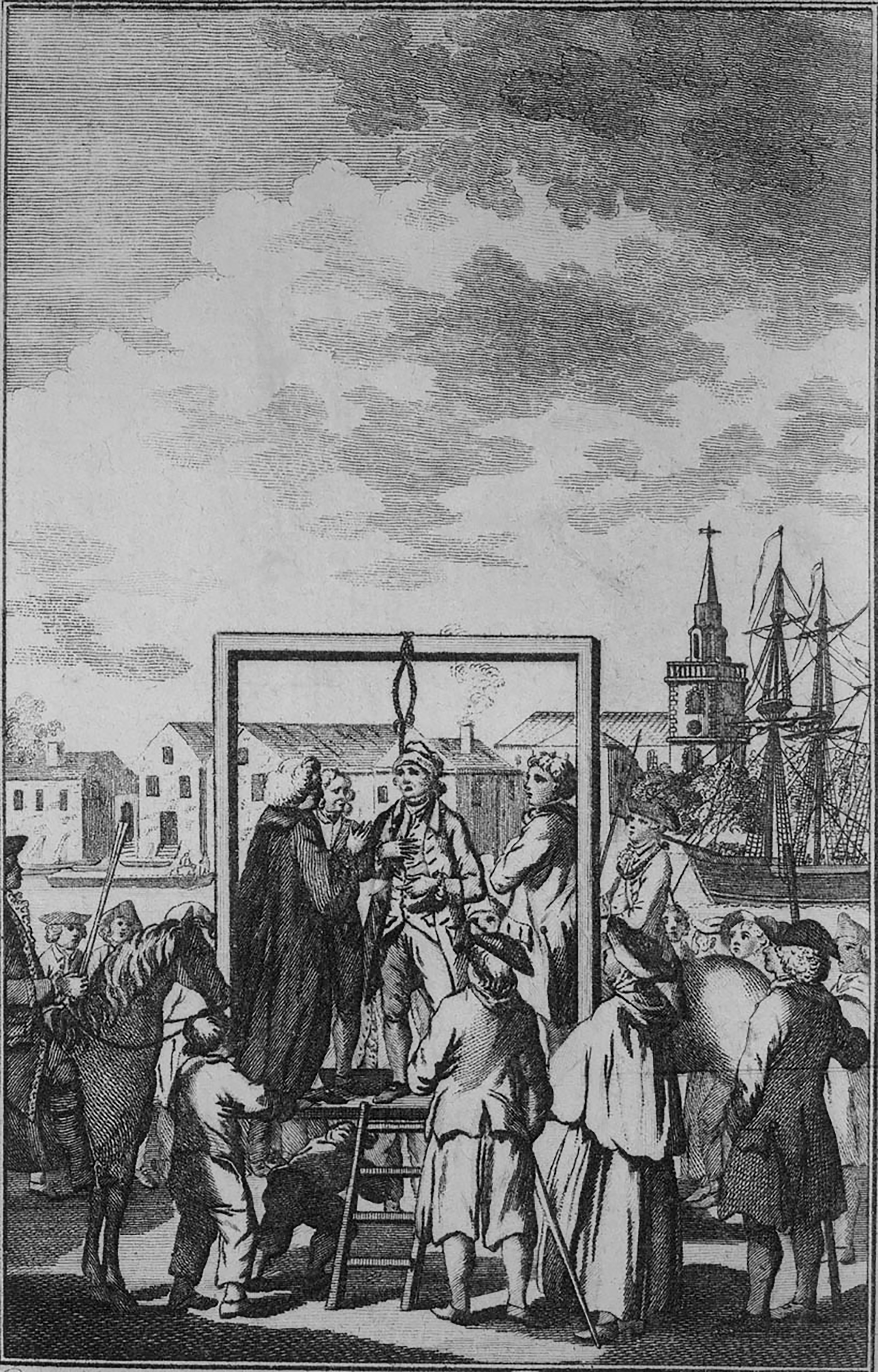 Source: Engraving, ca. 1795. Royal Museum Greenwich, CC-BY-NC-ND license
Piracy was punishable by the death penalty. In the engraving at right,
a pirate, thought to be Captain James Lowry, is awaiting execution by hanging at
Execution-Dock,
a gallows in London by the
Thames River.
Digital image made available by the
National Maritime Museum,
Greenwich. - [UOStudStaff]
and afterwards hung in chains; the rest of the crew were transported for life.
As soon as this was over, I, and my men, took out our pardons in due
168
form. They afterwards went where they pleased. Several persons, who I had robbed
at sea brought in their claims, all which I fully answered. These things settled,
I set out in Mrs. Winkfield's ship, and arrived safe at your first island."
Source: Engraving, ca. 1795. Royal Museum Greenwich, CC-BY-NC-ND license
Piracy was punishable by the death penalty. In the engraving at right,
a pirate, thought to be Captain James Lowry, is awaiting execution by hanging at
Execution-Dock,
a gallows in London by the
Thames River.
Digital image made available by the
National Maritime Museum,
Greenwich. - [UOStudStaff]
and afterwards hung in chains; the rest of the crew were transported for life.
As soon as this was over, I, and my men, took out our pardons in due
168
form. They afterwards went where they pleased. Several persons, who I had robbed
at sea brought in their claims, all which I fully answered. These things settled,
I set out in Mrs. Winkfield's ship, and arrived safe at your first island."
In return to captain Shore's relation, we acquainted him with every thing that we had done in his absence, and satisfied his curiosity about the wonderful things that he had met with upon the island. When we had finished our account, the captain expressed great surprise and satisfaction at what had happened, and added, "Since what has befallen me, I shall not like to reside in England, nor any more to be concerned in worldly affairs; therefore if 169 you think me a true convert, let me join in your society." We replied, that we had no doubt of his sincerity, and should be very glad of his company.
We now agreed captain Shore and my husband should return together to
England, that my husband might
take a final leave of his relations, receive his parents blessing, and settle
half of his and my fortune upon his sisters, and leave the rest for charitable
uses, and bring over such books and things as might be useful to us in our
retirement. But we first determined to go upon my island, to collect all the
gold treasure there, to blow up the subterraneous passage, and the statue, that
the Indians might
never be tempted to their
former idolatry.tempted
tempted
 Source: Johann Baptist Zwecker, 'Robinson Crusoe destroying an Idol of the Tartars' (1872). Public Domain image from New York Public Library Digital Collections. In this 19th-century illustration, Robinson Crusoe destroys Cham Chi-Thaungu, referred to in the engraving's original caption as the 'idol' of the 'Tartars' --a historically inaccurate label often used in European literature to describe various Central and East Asian peoples.
The destruction of the idol might reflect Unca Eliza's Christian conversion
of the island's Indigenous people, in the removal of what she believes to be
an idolatrous figure. Yet Roslyn Irving reads this moment as symbolic of Unca Eliza'
integration with the Indigenous people in America, where "removing the statue is
perhaps symbolic of a conversion narrative never fully realised."
See "Reading for Friday in The Female American (1767),"
Nordic Journal of English Studies 23 (2024): 41.
DOI: 10.35360/njes.2024.23287. - [UOStudStaff]
When all this
170
was done, and the golden treasure put on board, the captain and my husband set out
upon their voyage. They arrived safe in
England, saw our father and
mother, who consented to their son's request, and gave him their blessing. As
soon as my husband had sold his golden treasure, and settled his affairs, and
bought a large library of books, and many kinds of goods and linen, he and
captain Shore once more returned to me. We ordered the sailors to unload their
cargo upon my first island, and to leave us a large boat for the more convenient
conveying our goods to the other island, where we lived. We did not suffer the
sailors to come any farther upon the island, than just to land the goods, that
no discovery of our habitation
171
might be made. As we never intended to have any more to do with
Europe, captain Shore and my
husband ordered a person who came for that purpose, to return to
Europe with the ship, by whom,
for my father and mother's satisfaction, I sent over these adventures.
Source: Johann Baptist Zwecker, 'Robinson Crusoe destroying an Idol of the Tartars' (1872). Public Domain image from New York Public Library Digital Collections. In this 19th-century illustration, Robinson Crusoe destroys Cham Chi-Thaungu, referred to in the engraving's original caption as the 'idol' of the 'Tartars' --a historically inaccurate label often used in European literature to describe various Central and East Asian peoples.
The destruction of the idol might reflect Unca Eliza's Christian conversion
of the island's Indigenous people, in the removal of what she believes to be
an idolatrous figure. Yet Roslyn Irving reads this moment as symbolic of Unca Eliza'
integration with the Indigenous people in America, where "removing the statue is
perhaps symbolic of a conversion narrative never fully realised."
See "Reading for Friday in The Female American (1767),"
Nordic Journal of English Studies 23 (2024): 41.
DOI: 10.35360/njes.2024.23287. - [UOStudStaff]
When all this
170
was done, and the golden treasure put on board, the captain and my husband set out
upon their voyage. They arrived safe in
England, saw our father and
mother, who consented to their son's request, and gave him their blessing. As
soon as my husband had sold his golden treasure, and settled his affairs, and
bought a large library of books, and many kinds of goods and linen, he and
captain Shore once more returned to me. We ordered the sailors to unload their
cargo upon my first island, and to leave us a large boat for the more convenient
conveying our goods to the other island, where we lived. We did not suffer the
sailors to come any farther upon the island, than just to land the goods, that
no discovery of our habitation
171
might be made. As we never intended to have any more to do with
Europe, captain Shore and my
husband ordered a person who came for that purpose, to return to
Europe with the ship, by whom,
for my father and mother's satisfaction, I sent over these adventures.
FINIS.
I2v BOOKS Lately printed for F. and J. NOBLE.1. ADopted Daughter; or, the History of Miss Clarissa B-, 2 vols. 6s.
2. Adventures and Amours of the Marquis de Noailles and Mademoiselle Tencin. To which is added, the History of the Chevalier de Mirmont and Miss Biron, 2 vols. 6s. bound.
3. Apparition: or, the Female Cavalier, a story founded on facts, 3 vols. 9s. bound.
I3r4. Accomplished Rakerake rakea vain, immoral and/or promiscuous man - [UOStudStaff]: or, the Modern Fine Gentleman, 3s. bound.
5. Bracelet: or, the Fortunate Discovery, 2 vols. 6s. bound,
6. Bubbled Knights: or, the Successful Contrivances, 2 vols. 6s. bound.
7. Child's Entertainer. A Collection of Riddles, embellished with a Picture of each Subject, 6d. bound.
8. Conflict; or, the History of Miss Sophia Fanbrook, 3 vols. 9s. bound.
9. Commentary on the Dysentery, or Bloody Flux, translated from the Latin of Mark Akenfide, Fellow of the College of Physicians, Member of the Royal Society, and Physician to her present Majesty. By John Ryan, M.D. 2s. sewed.
10. Devil upon Crutches in England; or, Night Scenes in London. The Sixth I3v Edition, to which is now added, the History of a celebrated Courtezan, 3s, bound.
11. Emily: or, the History of a Natural Daughter, 2 vols. 6s. bound.
12. Eliza: or, the History of Mis Granville, 2 vols. 5s. bound.
13. Each Sex in their Humor: or, the Histories of the Families of Brightley, Finch, Fortescue, Shelburne, and Stevens, 2 vols. 6s. bound.
14. Fortune-Teller; or, the Footman ennobled. Being the History of the Right Honourable the Earl of R***** and Miss Lucy M--n--y. 2 vols. 6s. bound.
15. Fortunate Villager; or, the Memoires of Sir Andrew Thompson, 2 vols. 6s. bound.
16. Fruitless Inquiry. 2s 6d. bound.
I4r17. History of Sir Harry Herald, with the Adventures of Mr. Charles Herald, and Miss Felicia Blanchman. 3 vols. 9s.
18. History of a Young Lady of Distinction in a Series of Letters between Madame du Montier and the Marchioness de *** her Daughter. Translated from the French of Madame de Beaumont. 2 vols. 6s. bound.
19. History of the great Plague which raged in London, in the year 1655; Also a Journal of the Plague at Marseilles, in the Year 1720. 5s. in Boards, or 6s. bound.
20. History of Mis Harriot Fitzroy, and Mis Emilia Spencer. 2 vols. 6s. bound.
21. History of Miss Clarinda Cathcart, and Miss Fanny Renton. 2 vols. 6s. bound.
I4v22. History of my own Life. Being an Account of many of the severest Trials imposed by an implacable Father, upon the most affectionate Pair that ever entered the Marriage State. 2 vols. 6s. bound.
23. History of Frederick the Forsaken. 2 vols. 6s. bound.
24. History and Adventures of Frank Hammond. 3s. bound.
25. History of Miss Sally Sable, a Foundling, 2 vols. 6s. bound.
26. History of Sir Roger and his Son Joe. 2 vols. 6s. bound.
27. History of two Persons of Quality, 3s. bound.
28. History of Miss Kitty N--. Containing a faithful and particular Relation of her Amours, Adventures, I5r and various Turns of Fortune, in Scotland, Ireland, Jamaica, and in England. 3s. bound.
29. History of Lady Louisa Stroud, and the Honourable Miss Caroline Stretton. 2 vols. 6s.
30. History of Miss Lucinda Courtney. 3 vols. 6s.
31. History of Charles Chance, and Miss Clara Vellum. 3s. bound.
32. Jilts; or, the Female Fortune-Hunters. 3 vols. 9s. bound.
33. Life and Surprising Adventures of Crusoe Richard Davis. 2 vols. 6s. bound.
34. Life and Adventures of John Van, a Clergyman's Son, of Wood-Hay, in Hampshire, 2 vols. 6s. bound.
I5r35. Life and Real Adventures of Hamilton Murray. Written by himself. 3 vols. 9s.
36. Muse in Good Humour; a Collection of Comic Tales. 2 vols. 6s. bound.
37. Muse in a Moral Humour; a Collection of agreeable and instructive Tales, Fables, Pastorals, &c. 2 vols. 6s. bound.
38. Mother-in-law; or, the Innocent Sufferer. 2 vols. 6s. bound.
39. Memoirs of a Coquette; or, the History of Miss Harriot Airy. 3s. sewed, or 4s. bound and gilt.
40. Northern Memoirs: or, the History of a Scotch Family. 2 vols. 6s. bound.
41. Nunnery; or, the History of Miss Sophia Howard. 2 vols. 4s sewed, or 5s. bound.
I5v42. Rival Mother: or, the History of the Countess de Salens, and her two Daughters. 2 vols. 6s. bound.
43. Reformed Coquette: or, the Adventures of Amoranda. 2s. bound.
44. Supposed Daughter: or, the Innocent Imposter. 3 vols. 9s. bound.
45. True Merit, True Happiness: exemplified in the entertaining and instructive Memoires of Mr. S-. 2 vols. 6s. bound.
46. Voyages, Travels, and wonderful Discoveries of Captain John Holmsby. 3s. bound.
47. Virtuous Criminal: or, the History of Lord Stanley. 2 vols. 6s. bound.
48. Ways to kill Care: a Collection of Songs, adapted to all Humours. By Young D'Urfey. 1s. 6d. sewed.
I6r Lately published,(In Two Volumes, Price 5s. sewed, or 6s. bound)
THE
Country Cousins;
OR, A
Journey to London,
A NOVEL.
Printed for F. and J. Noble.
Footnotes
 Source: Apollo and Athena invite a reader to enjoy John Noble's library of educational and entertaining books. Frontispiece illustration to 'A new catalogue of the large and valuable collection of books: (both English and French) in John Noble's circulating library. Consisting of several thousand volumes...which are lent to read,' circa 1761. Public domain image, Folger Shakespeare Library Digital CollectionsFrancis and John Noble were booksellers and publishers who ran a
successful circulating library starting in the 1740s. Rochelle Raineri
Zuck speculates that The Female American may have
been the product of the "stable of writers" the Nobles employed "to
produce new work at a rapid pace" for their libraries-something like the
eighteenth-century equivalent of Internet
content farms. See Zuck, "Who Wrote
The Female American?" in
English Literary History 89.3 (2022): 669.
DOI:10.1353/elh.2022.0023.
Source: Apollo and Athena invite a reader to enjoy John Noble's library of educational and entertaining books. Frontispiece illustration to 'A new catalogue of the large and valuable collection of books: (both English and French) in John Noble's circulating library. Consisting of several thousand volumes...which are lent to read,' circa 1761. Public domain image, Folger Shakespeare Library Digital CollectionsFrancis and John Noble were booksellers and publishers who ran a
successful circulating library starting in the 1740s. Rochelle Raineri
Zuck speculates that The Female American may have
been the product of the "stable of writers" the Nobles employed "to
produce new work at a rapid pace" for their libraries-something like the
eighteenth-century equivalent of Internet
content farms. See Zuck, "Who Wrote
The Female American?" in
English Literary History 89.3 (2022): 669.
DOI:10.1353/elh.2022.0023.
 Source: Theodore Galle, 'Allegory of America,' ca. 1600. Public Domain image, Metropolitan Museum of Art.
This engraving by Netherlandish artist Theodoor Galle imitates
Johannes Stradanus' original drawing of Italian explorer Amerigo
Vespucci. In this allegorical image, Vespucci is shown 'awakening'
a woman who personifies America. The caption, 'Americen Americus
retexit, semel vocauit inde semper excitam,' roughly translates to
'Americus rediscovers America, once awakened, always aroused,'
further underscoring the sexualized and racialized ideology of
conquest. Like many depictions from this period, it visualizes
the so-called discovery of the Americas as an act of European male
dominance over feminized, exoticized, and passive land and peoples.
Source: Theodore Galle, 'Allegory of America,' ca. 1600. Public Domain image, Metropolitan Museum of Art.
This engraving by Netherlandish artist Theodoor Galle imitates
Johannes Stradanus' original drawing of Italian explorer Amerigo
Vespucci. In this allegorical image, Vespucci is shown 'awakening'
a woman who personifies America. The caption, 'Americen Americus
retexit, semel vocauit inde semper excitam,' roughly translates to
'Americus rediscovers America, once awakened, always aroused,'
further underscoring the sexualized and racialized ideology of
conquest. Like many depictions from this period, it visualizes
the so-called discovery of the Americas as an act of European male
dominance over feminized, exoticized, and passive land and peoples.
 Source: Helmingham Herbal and Bestiary (1500), Yale Center for British Art. Reused under Yale Library's Open Access Policy.
The absurd nature of the fictious animal described in this passage implies
a metaphorical meaning. The animal's only means of survival is deceiving its
prey, pretending to sleep in order to capture it. Anna Brickhouse connects
this description to Unca Eliza's own deception of the island's Indigenous
people, claiming that "Unca Eliza is both transfixed and patently disturbed
by the greed and violence of this strange colonial animal. A nightmarish
embodiment of her own predicament." Brickhouse, "The Indian Slave Trade in
Unca Eliza Winkfield's The Female American."
The Yearbook of English Studies 46 (2016): 115-126.
DOI: 10.1353/yes.2016.0008.
Source: Helmingham Herbal and Bestiary (1500), Yale Center for British Art. Reused under Yale Library's Open Access Policy.
The absurd nature of the fictious animal described in this passage implies
a metaphorical meaning. The animal's only means of survival is deceiving its
prey, pretending to sleep in order to capture it. Anna Brickhouse connects
this description to Unca Eliza's own deception of the island's Indigenous
people, claiming that "Unca Eliza is both transfixed and patently disturbed
by the greed and violence of this strange colonial animal. A nightmarish
embodiment of her own predicament." Brickhouse, "The Indian Slave Trade in
Unca Eliza Winkfield's The Female American."
The Yearbook of English Studies 46 (2016): 115-126.
DOI: 10.1353/yes.2016.0008.
 Source: Image from Thomas Heywood's 'The exemplary lives and memorable acts of nine the most worthy women of the world' (1640). Folger Shakespeare Library, CC-0 license.
The phrase "though a woman" serves as a brief but significant
acknowledgment of gendered restrictions on knowledge in eighteenth-century
England. Although Unca Eliza is depicted as a strong and smart
individual who challenges traditional gender roles, she establishes
her credibility by referencing foundational male philosophers,
indicating her awareness of cultural expectations regarding women's
intellectual ability. Scholar Jill Conway asserts that "European
women intellectuals were either declasse, or else they lived a
contemplative life in a religious community." Unca Eliza's isolation
on the island literalizes the social exile faced by intellectual
women at the time. See Conway, "Perspectives on the History of Women's
Education in the United States."
History of Education Quarterly 14.1 (1974): 1–12.
DOI: 10.2307/367602.
Source: Image from Thomas Heywood's 'The exemplary lives and memorable acts of nine the most worthy women of the world' (1640). Folger Shakespeare Library, CC-0 license.
The phrase "though a woman" serves as a brief but significant
acknowledgment of gendered restrictions on knowledge in eighteenth-century
England. Although Unca Eliza is depicted as a strong and smart
individual who challenges traditional gender roles, she establishes
her credibility by referencing foundational male philosophers,
indicating her awareness of cultural expectations regarding women's
intellectual ability. Scholar Jill Conway asserts that "European
women intellectuals were either declasse, or else they lived a
contemplative life in a religious community." Unca Eliza's isolation
on the island literalizes the social exile faced by intellectual
women at the time. See Conway, "Perspectives on the History of Women's
Education in the United States."
History of Education Quarterly 14.1 (1974): 1–12.
DOI: 10.2307/367602. Source: Frontispiece illustration and title page for the 1719 publication of The Life and Strange Surprizing Adventures of Robinson Crusoe, Of York. Public domain image, British Library.
This allusion to Robinson Crusoe(1719) establishes
Daniel Defoe's castaway novel as inspiration for
The Female American. Though these tales are similar in content and fabrication,
The Female American ironically attempts to discredit its
precursor due to its fictitious storyline. To learn more about the parallels
between these two works, see Tremaine McDowell, "An American Robinson Crusoe"
American Literature 1.3 (1929): 307-09.
Source: Frontispiece illustration and title page for the 1719 publication of The Life and Strange Surprizing Adventures of Robinson Crusoe, Of York. Public domain image, British Library.
This allusion to Robinson Crusoe(1719) establishes
Daniel Defoe's castaway novel as inspiration for
The Female American. Though these tales are similar in content and fabrication,
The Female American ironically attempts to discredit its
precursor due to its fictitious storyline. To learn more about the parallels
between these two works, see Tremaine McDowell, "An American Robinson Crusoe"
American Literature 1.3 (1929): 307-09. Source: Abraham Bloteling, 'Portret van John Wilkins, bisschop van Chester' ('Portrait of the very Reverend John Wilkins, late Bishop of Chester'). Original from the Rijks Museum, reproduced under a Creative Commons 1.0 license.
Unca Eliza likely refers to the work of Anglican clergyman John Wilkins (1614-1672),
pictured at right. In Of The Principles And Duties Of Natural Religion (1734),
available via the Internet Archive,
Wilkins proposed that the matter and form of living things provide evidence of God's divine authority, an idea Unca Eliza
explores here.
Source: Abraham Bloteling, 'Portret van John Wilkins, bisschop van Chester' ('Portrait of the very Reverend John Wilkins, late Bishop of Chester'). Original from the Rijks Museum, reproduced under a Creative Commons 1.0 license.
Unca Eliza likely refers to the work of Anglican clergyman John Wilkins (1614-1672),
pictured at right. In Of The Principles And Duties Of Natural Religion (1734),
available via the Internet Archive,
Wilkins proposed that the matter and form of living things provide evidence of God's divine authority, an idea Unca Eliza
explores here. Source: A print from Carington Bowles, 'Twelve Illustrations of Robinson Crusoe,' 1783. Public domain image, Yale Center for British Art.
Unca Eliza's use of the term 'retreat'
here may be a nod to Robinson Crusoe, who describes a section of the island
as his 'Summer Retreat.' This eighteenth-century illustration of Crusoe's
retreat is captioned with a quote from Defoe's novel: 'In this place also
I had my grapes growing, which I principally depended on for my Winter Store
of Raisins, and which I never fear to preserve very carefully.' Like Crusoe,
Unca Eliza finds unexpected abundance in her new home, fueling her faith
that God has a plan for her and will provide for her needs.
Source: A print from Carington Bowles, 'Twelve Illustrations of Robinson Crusoe,' 1783. Public domain image, Yale Center for British Art.
Unca Eliza's use of the term 'retreat'
here may be a nod to Robinson Crusoe, who describes a section of the island
as his 'Summer Retreat.' This eighteenth-century illustration of Crusoe's
retreat is captioned with a quote from Defoe's novel: 'In this place also
I had my grapes growing, which I principally depended on for my Winter Store
of Raisins, and which I never fear to preserve very carefully.' Like Crusoe,
Unca Eliza finds unexpected abundance in her new home, fueling her faith
that God has a plan for her and will provide for her needs. Source: A sixteenth-century title page and verso woodcut from 'A Catechism or Institution of Christian Religion,' Folger Shakespeare Library
The Female American, like its contemporary
Robinson Crusoe (1719),
reflects the historical reality of Christian efforts that imposed
European literacy and religious practices on Indigenous populations.
Unca Eliza's translations of the Bible and the Common Prayer Book
echo these real-world initiatives, which
Catherine A. Breckus
and
W. Clark Gilpin
argues functioned as tools of colonial control, reshaping Indigenous
societies to fit European frameworks. See
American Christianities: A History of Dominance and
Diversity (University of North Carolina Press, 2011).
While the novel critiques the violence often associated with
missionary work, it still promotes a "myth of non-colonial conversion,"
as Edward Simon highlights. Christianity is portrayed as a natural
extension of human reason. The idea that rational individual would willingly
convert upon encountering Christianity obscures the coercion that
often underpinned such conversions. See Simon,
"Unca Eliza Winkfield and the Fantasy of Non-Colonial Conversion in
The Female American."
Women's Studies 45.7 (2016): 649–59.
Source: A sixteenth-century title page and verso woodcut from 'A Catechism or Institution of Christian Religion,' Folger Shakespeare Library
The Female American, like its contemporary
Robinson Crusoe (1719),
reflects the historical reality of Christian efforts that imposed
European literacy and religious practices on Indigenous populations.
Unca Eliza's translations of the Bible and the Common Prayer Book
echo these real-world initiatives, which
Catherine A. Breckus
and
W. Clark Gilpin
argues functioned as tools of colonial control, reshaping Indigenous
societies to fit European frameworks. See
American Christianities: A History of Dominance and
Diversity (University of North Carolina Press, 2011).
While the novel critiques the violence often associated with
missionary work, it still promotes a "myth of non-colonial conversion,"
as Edward Simon highlights. Christianity is portrayed as a natural
extension of human reason. The idea that rational individual would willingly
convert upon encountering Christianity obscures the coercion that
often underpinned such conversions. See Simon,
"Unca Eliza Winkfield and the Fantasy of Non-Colonial Conversion in
The Female American."
Women's Studies 45.7 (2016): 649–59. Source: A painting of Lord Edward Herbert by Isaac Oliver, ca. 1613-1614, via Wikimedia Commons.The writers that Unca Eliza remembers from her
uncle's study likely include Deists like Lord Edward Herbert (1583 - 1648, pictured),
Charles Blount (1562 - 1606),
Anthony Collins (1676-1729), and
Matthew Tindal (1657-1733),
who believed that God created the universe and then allowed it to operate
under natural law (
Oxford English Dictionary). Unca Eliza's familiarity with these writers
demonstrates to readers that, like the Deists, she believes that "religious
truth should be subject to the authority of human reason rather than divine
revelation.” See Darren Staloff,
"Deism
and the Founding of the United States" (2008).
Source: A painting of Lord Edward Herbert by Isaac Oliver, ca. 1613-1614, via Wikimedia Commons.The writers that Unca Eliza remembers from her
uncle's study likely include Deists like Lord Edward Herbert (1583 - 1648, pictured),
Charles Blount (1562 - 1606),
Anthony Collins (1676-1729), and
Matthew Tindal (1657-1733),
who believed that God created the universe and then allowed it to operate
under natural law (
Oxford English Dictionary). Unca Eliza's familiarity with these writers
demonstrates to readers that, like the Deists, she believes that "religious
truth should be subject to the authority of human reason rather than divine
revelation.” See Darren Staloff,
"Deism
and the Founding of the United States" (2008). Source: 'Captive Indians Sold Into Slavery,' ca. 1890. Public domain image from the New York Public Library
Unca Eliza fears the Europeans could capture the Indigenous people of the island
and sell them into slavery. For more, see Anna Brickhouse, "The Indian Slave
Trade in Unca Eliza Winkfield's The Female American,"
The Yearbook of English Studies 46 (2016): 115-26.
DOI: 10.5699/yearenglstud.46.2016.0115.
Source: 'Captive Indians Sold Into Slavery,' ca. 1890. Public domain image from the New York Public Library
Unca Eliza fears the Europeans could capture the Indigenous people of the island
and sell them into slavery. For more, see Anna Brickhouse, "The Indian Slave
Trade in Unca Eliza Winkfield's The Female American,"
The Yearbook of English Studies 46 (2016): 115-26.
DOI: 10.5699/yearenglstud.46.2016.0115. Source: William Hogarth's painting 'Marriage Settlement' (c.1743) portrays an arranged marriage between wealthy families. The scene displayes the tie between family expectations and marriage during the eighteenth century. Public domain image from the Metropolition Museum of Art
Unca Eliza refers to Mr. Winkfield as her cousin until they are married,
after she refers to him as her husband. Marriage among family members was
socially acceptable throughout the eighteenth century. Commonly, the upper
class chose familial marriages to maintain wealth and respected social
status. Susan McKinnon, "Cousin Marriage, Hierarchy, and Heredity:
Contestations over Domestic and National Body Politics in 19th-century America."
Journal of the British Academy 7 (2019): 61-88.
DOI:10.5871/jba/007.061
Source: William Hogarth's painting 'Marriage Settlement' (c.1743) portrays an arranged marriage between wealthy families. The scene displayes the tie between family expectations and marriage during the eighteenth century. Public domain image from the Metropolition Museum of Art
Unca Eliza refers to Mr. Winkfield as her cousin until they are married,
after she refers to him as her husband. Marriage among family members was
socially acceptable throughout the eighteenth century. Commonly, the upper
class chose familial marriages to maintain wealth and respected social
status. Susan McKinnon, "Cousin Marriage, Hierarchy, and Heredity:
Contestations over Domestic and National Body Politics in 19th-century America."
Journal of the British Academy 7 (2019): 61-88.
DOI:10.5871/jba/007.061
 Source: Engraving, ca. 1795. Royal Museum Greenwich, CC-BY-NC-ND license
Piracy was punishable by the death penalty. In the engraving at right,
a pirate, thought to be Captain James Lowry, is awaiting execution by hanging at
Execution-Dock,
a gallows in London by the
Thames River.
Digital image made available by the
National Maritime Museum,
Greenwich.
Source: Engraving, ca. 1795. Royal Museum Greenwich, CC-BY-NC-ND license
Piracy was punishable by the death penalty. In the engraving at right,
a pirate, thought to be Captain James Lowry, is awaiting execution by hanging at
Execution-Dock,
a gallows in London by the
Thames River.
Digital image made available by the
National Maritime Museum,
Greenwich. Source: Johann Baptist Zwecker, 'Robinson Crusoe destroying an Idol of the Tartars' (1872). Public Domain image from New York Public Library Digital Collections. In this 19th-century illustration, Robinson Crusoe destroys Cham Chi-Thaungu, referred to in the engraving's original caption as the 'idol' of the 'Tartars' --a historically inaccurate label often used in European literature to describe various Central and East Asian peoples.
The destruction of the idol might reflect Unca Eliza's Christian conversion
of the island's Indigenous people, in the removal of what she believes to be
an idolatrous figure. Yet Roslyn Irving reads this moment as symbolic of Unca Eliza'
integration with the Indigenous people in America, where "removing the statue is
perhaps symbolic of a conversion narrative never fully realised."
See "Reading for Friday in The Female American (1767),"
Nordic Journal of English Studies 23 (2024): 41.
DOI: 10.35360/njes.2024.23287.
Source: Johann Baptist Zwecker, 'Robinson Crusoe destroying an Idol of the Tartars' (1872). Public Domain image from New York Public Library Digital Collections. In this 19th-century illustration, Robinson Crusoe destroys Cham Chi-Thaungu, referred to in the engraving's original caption as the 'idol' of the 'Tartars' --a historically inaccurate label often used in European literature to describe various Central and East Asian peoples.
The destruction of the idol might reflect Unca Eliza's Christian conversion
of the island's Indigenous people, in the removal of what she believes to be
an idolatrous figure. Yet Roslyn Irving reads this moment as symbolic of Unca Eliza'
integration with the Indigenous people in America, where "removing the statue is
perhaps symbolic of a conversion narrative never fully realised."
See "Reading for Friday in The Female American (1767),"
Nordic Journal of English Studies 23 (2024): 41.
DOI: 10.35360/njes.2024.23287.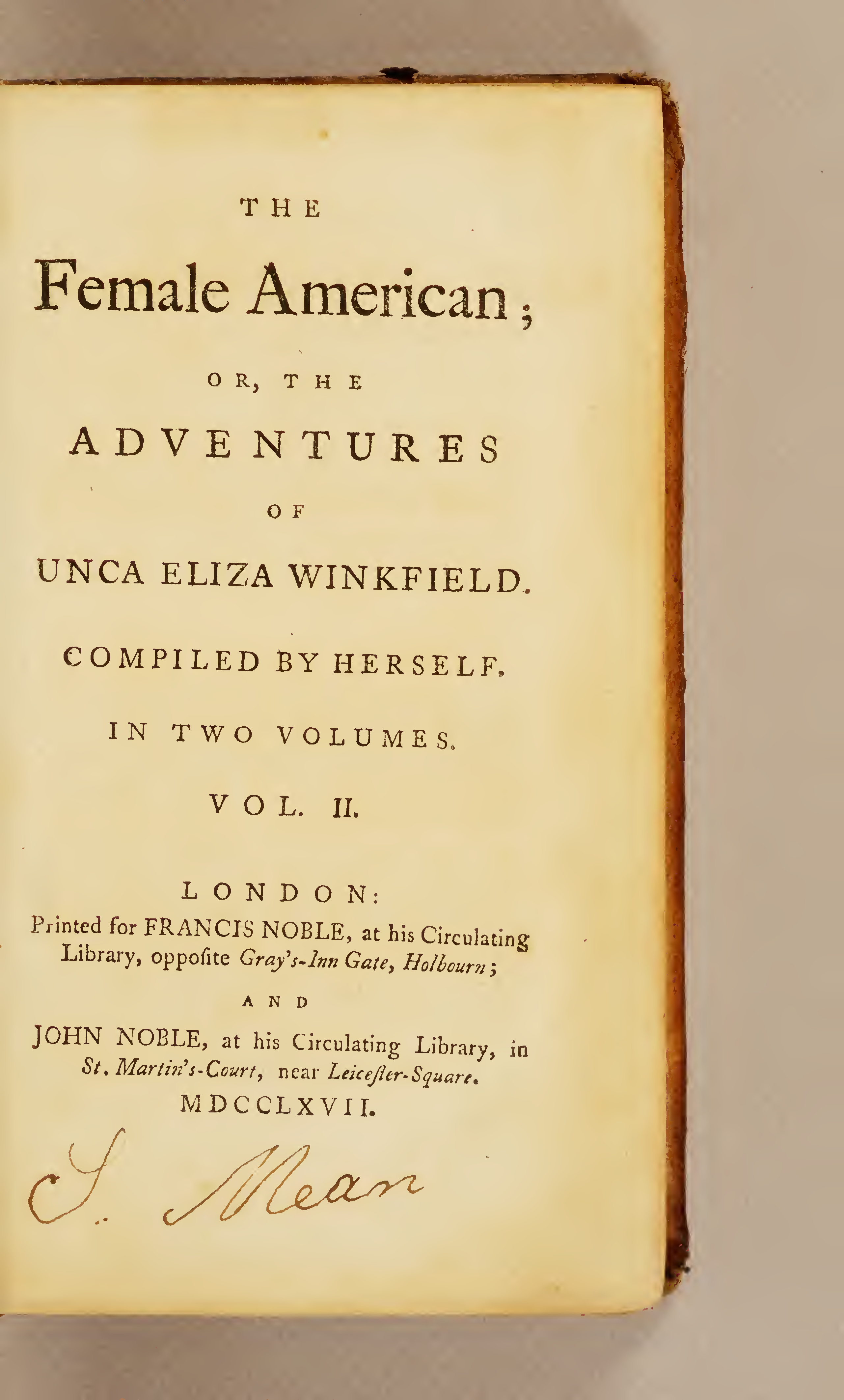
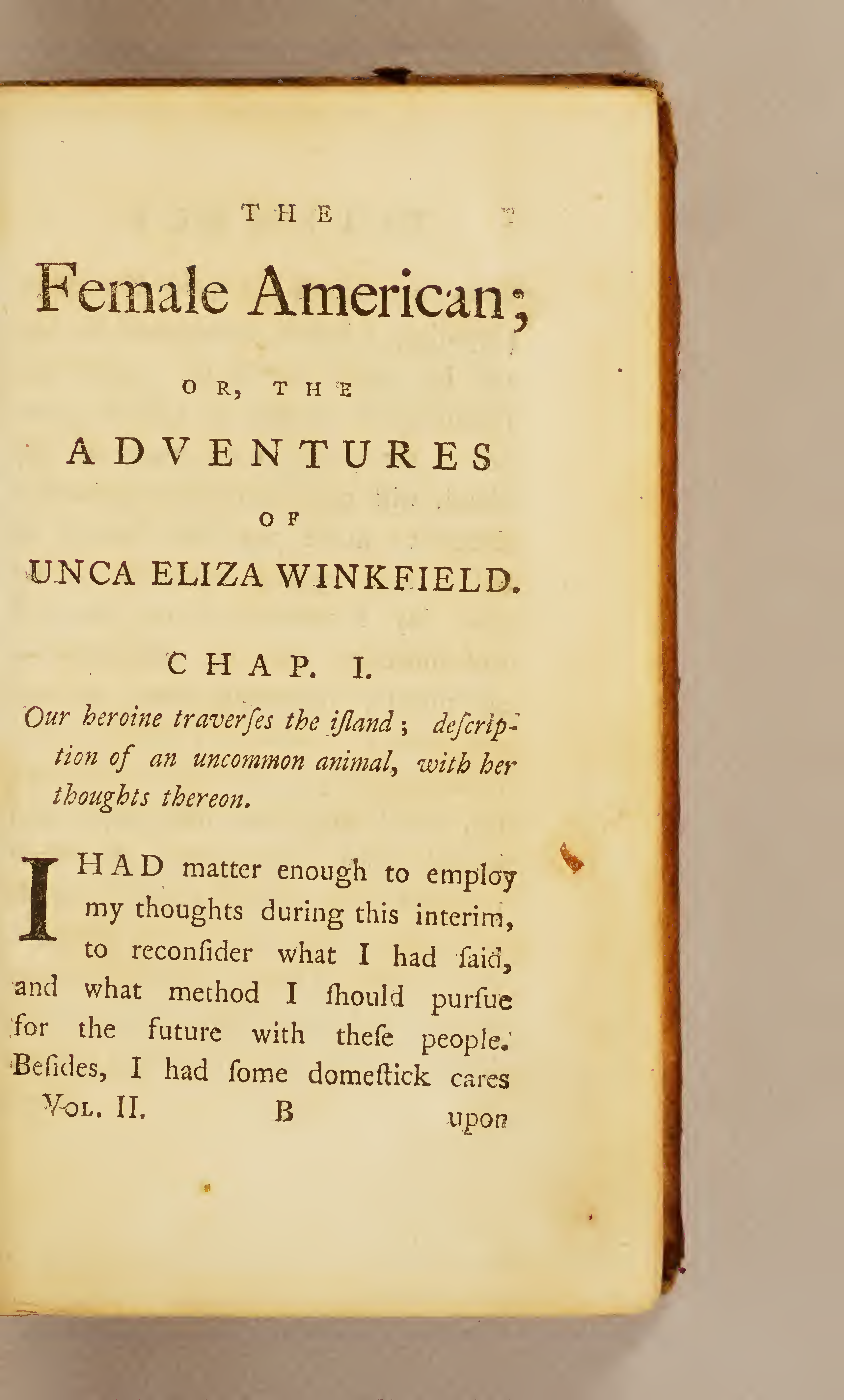
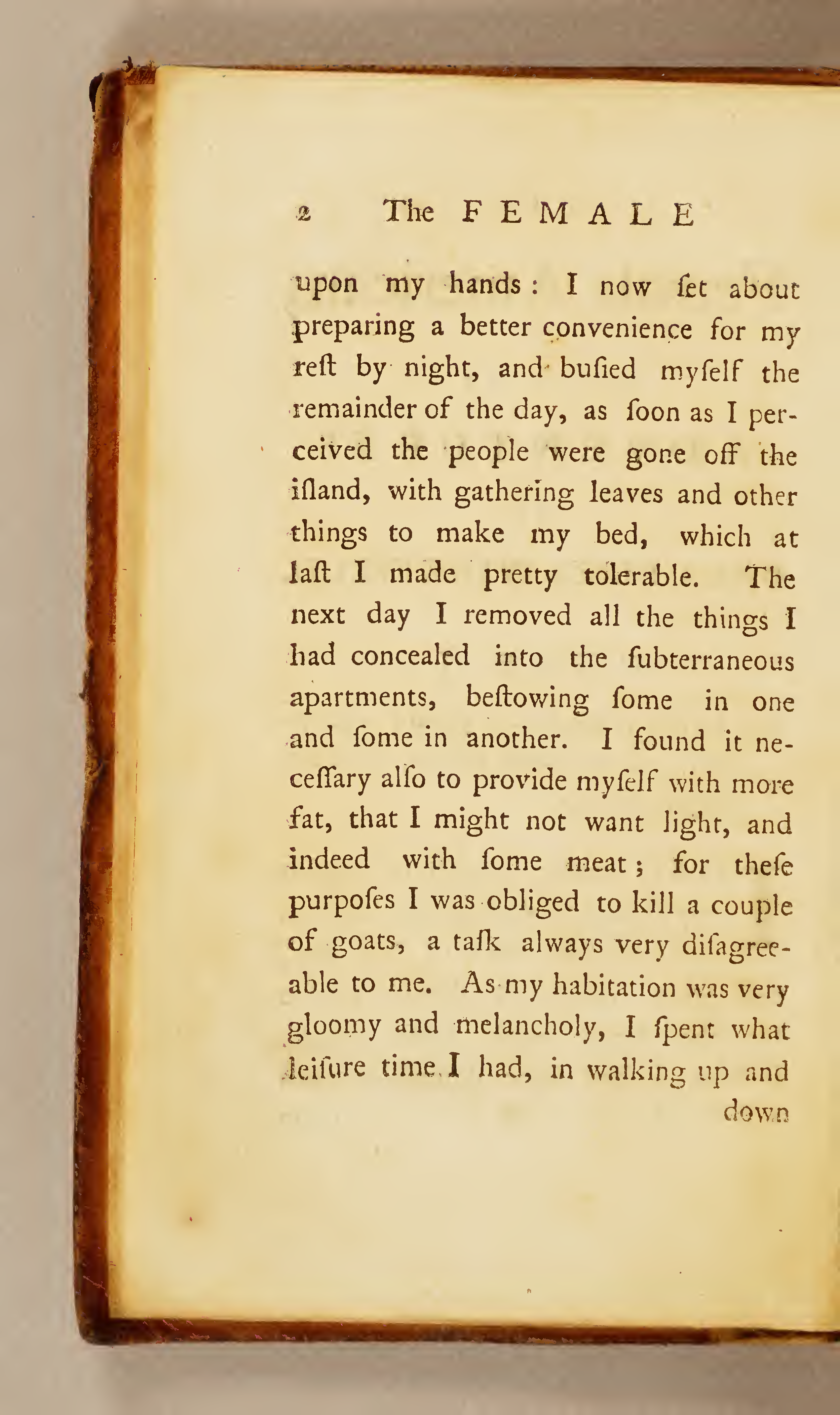
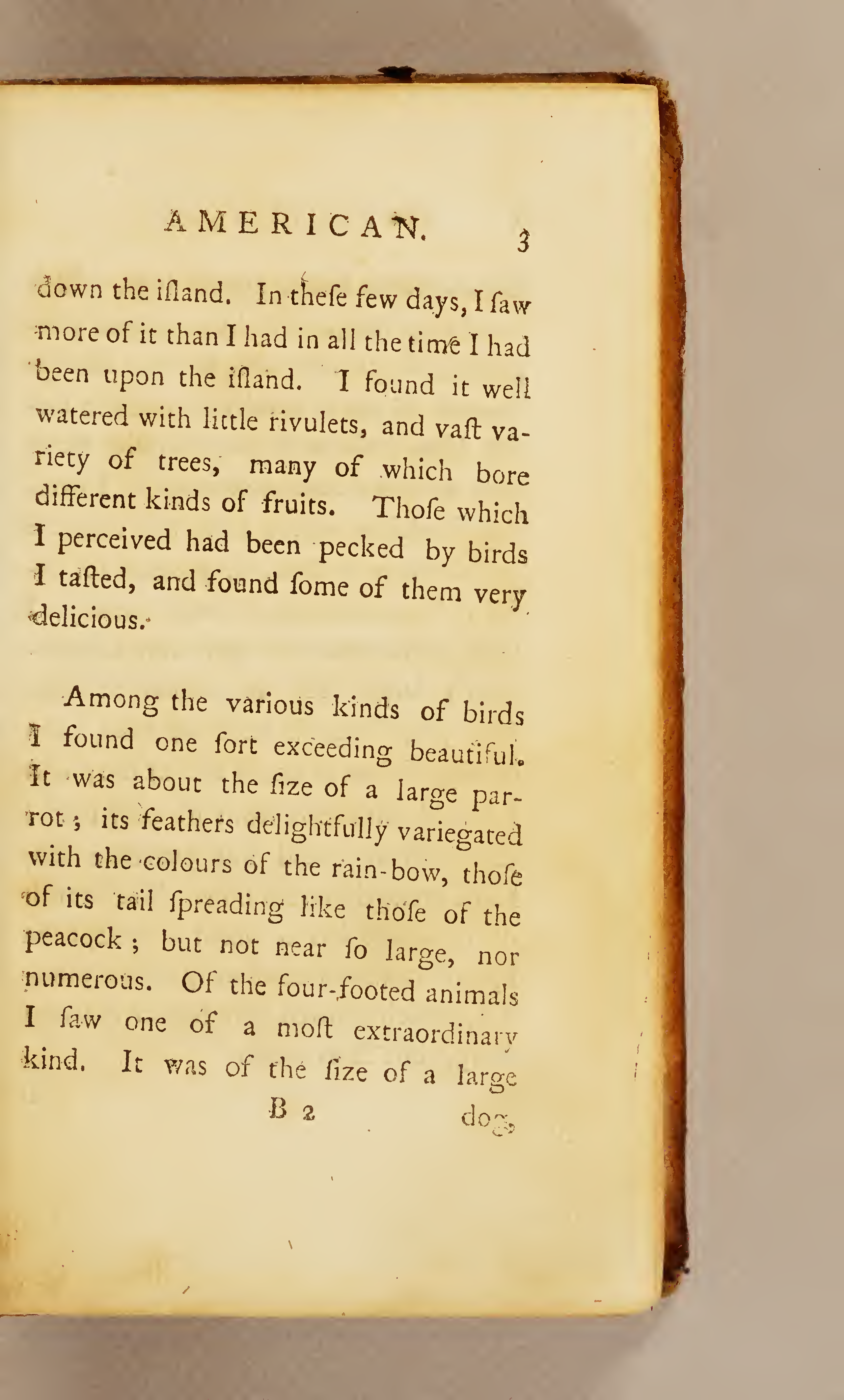
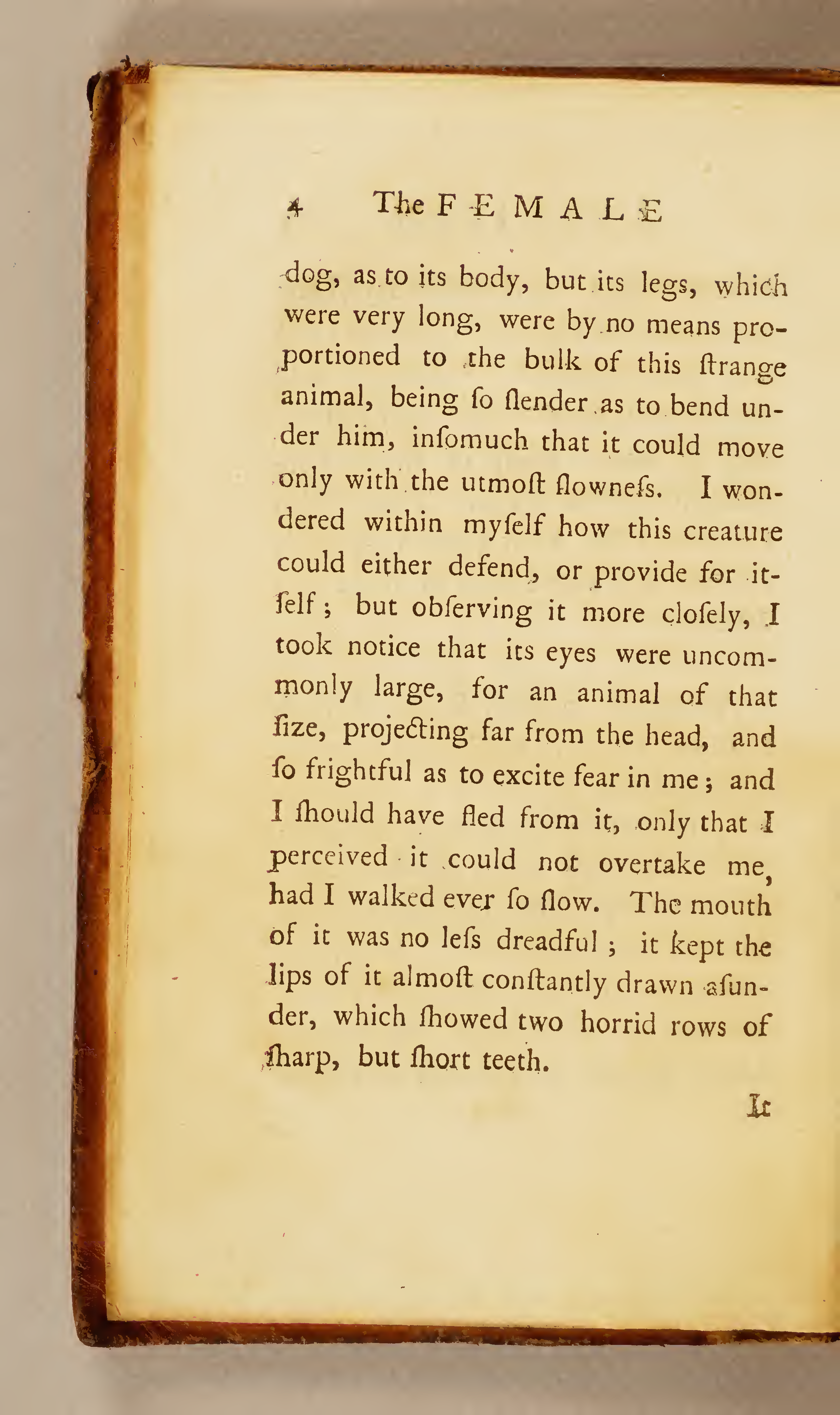
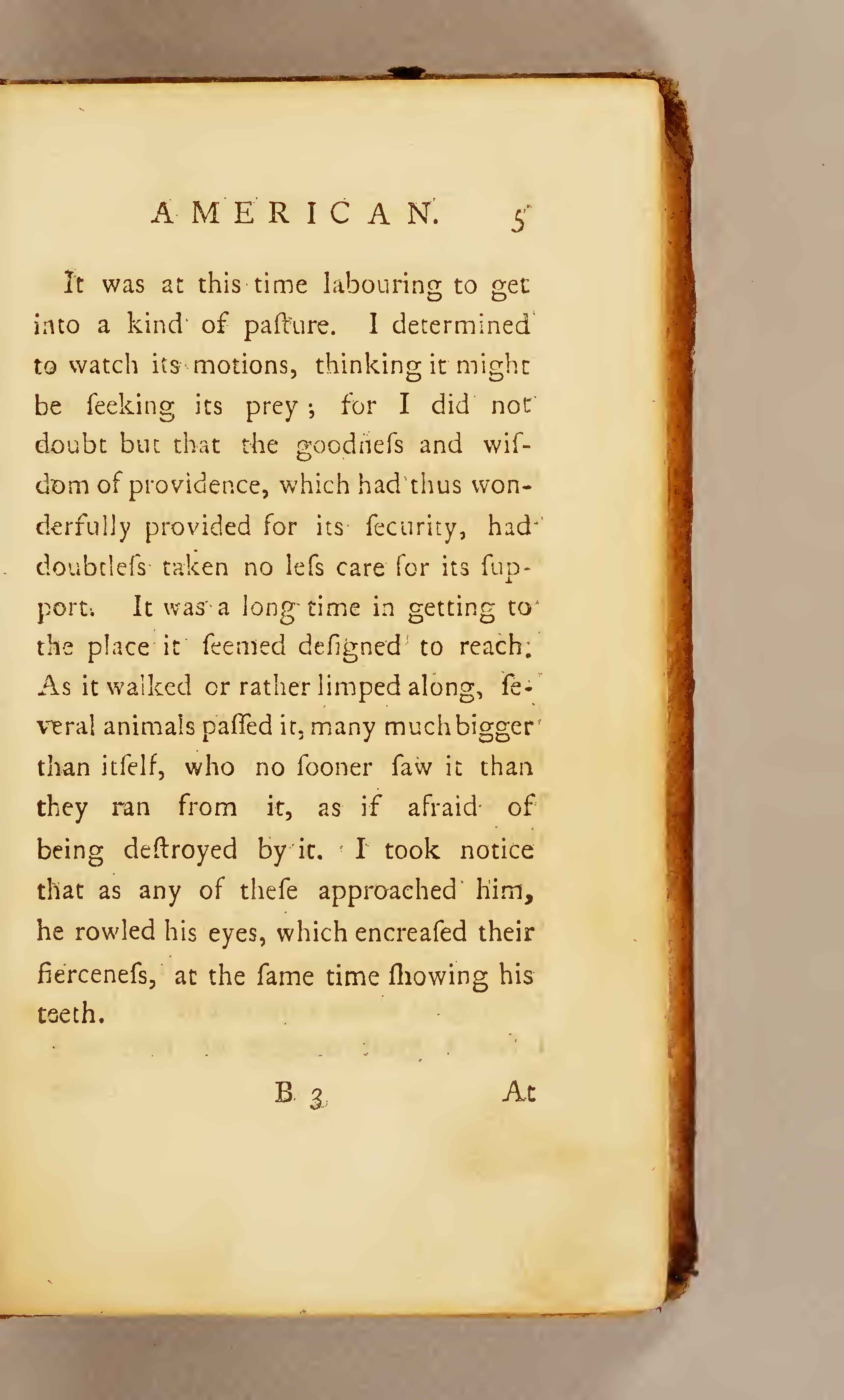
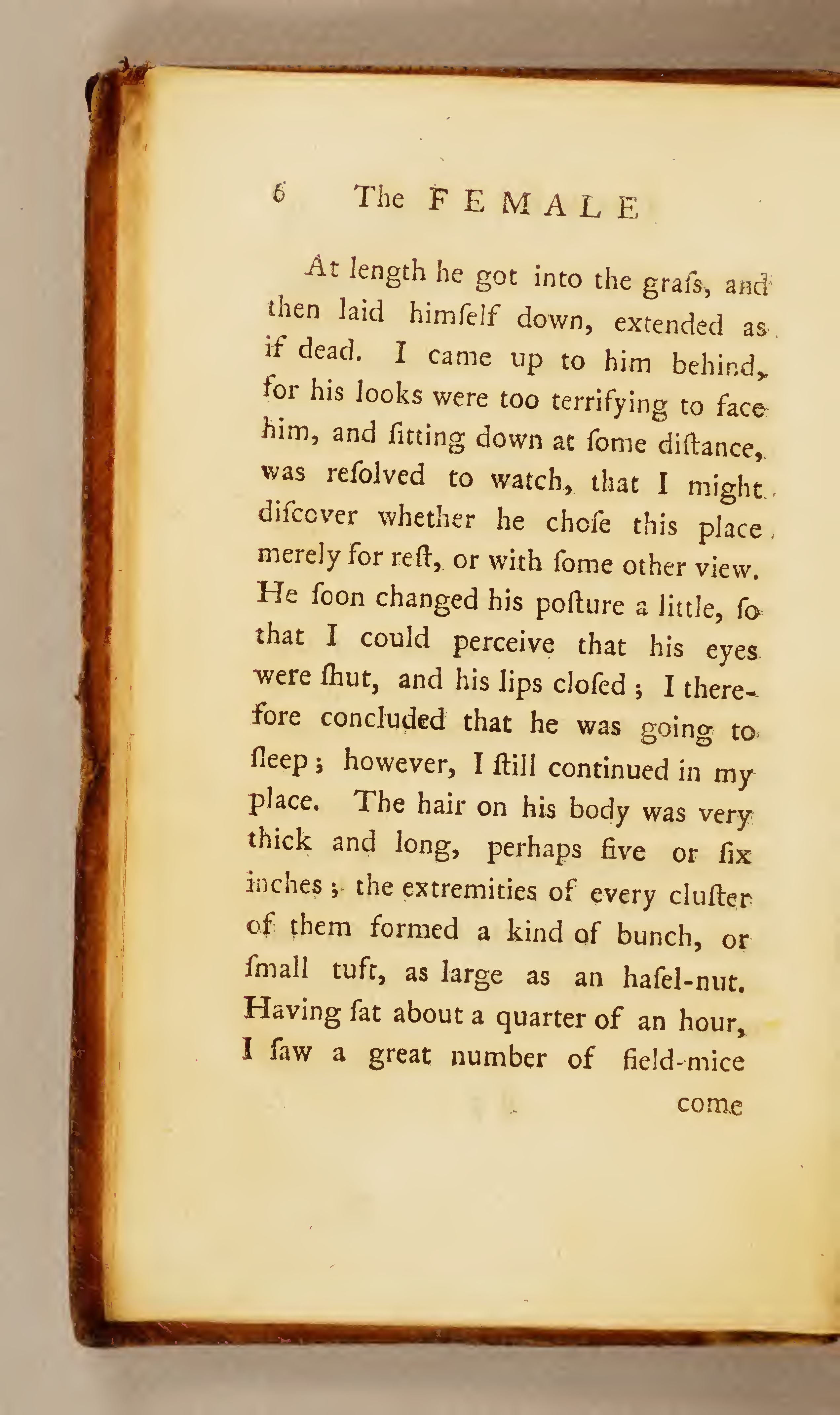
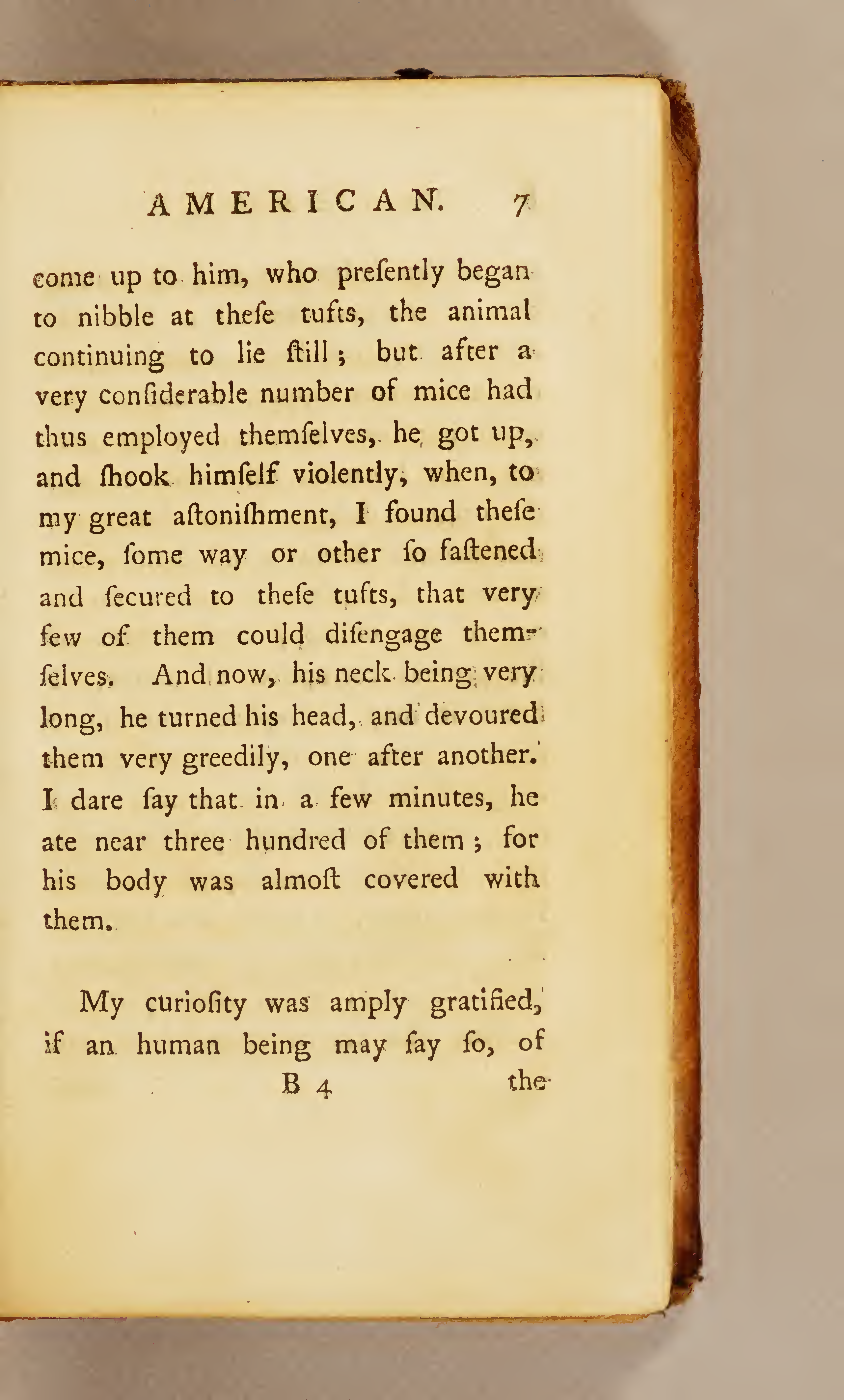
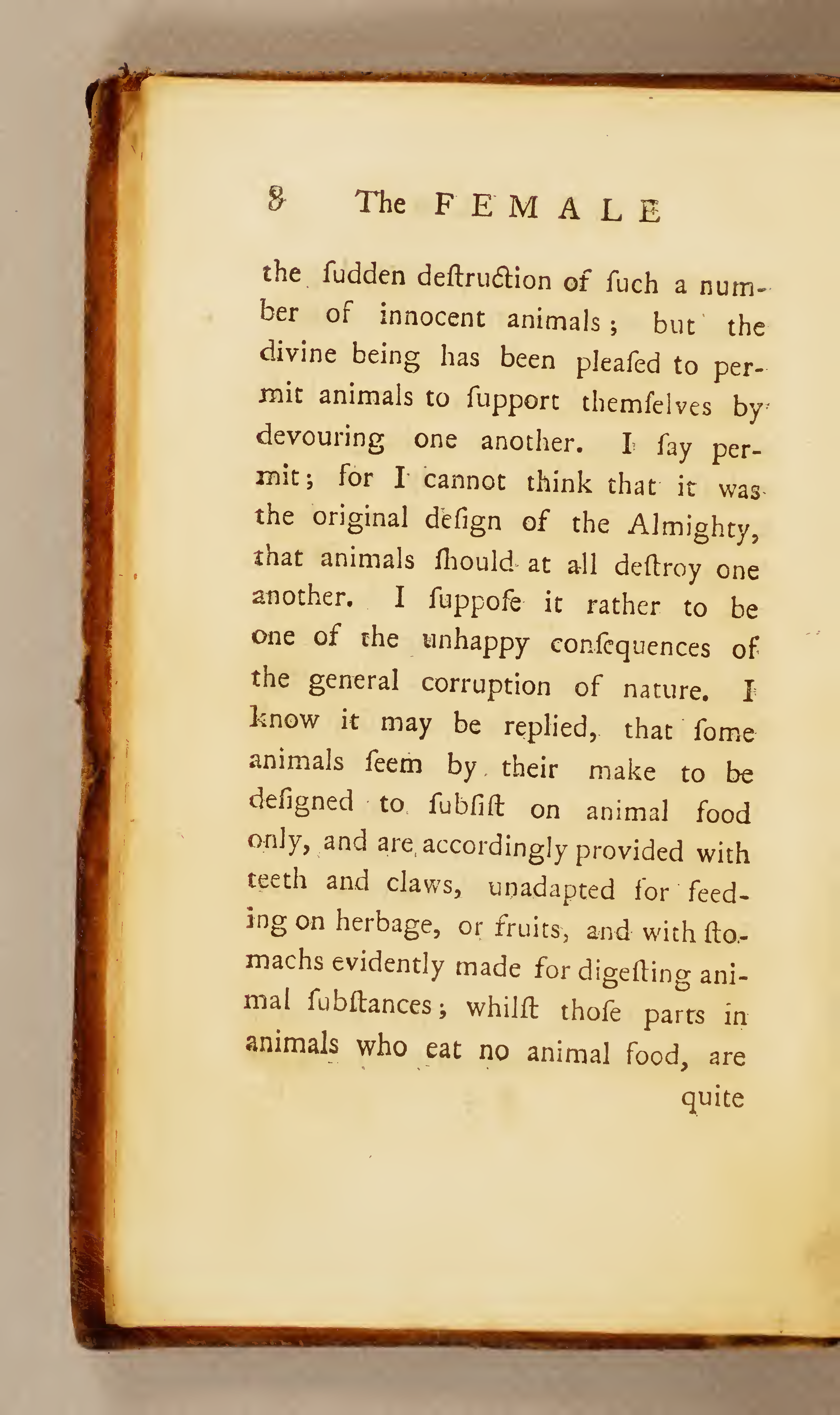
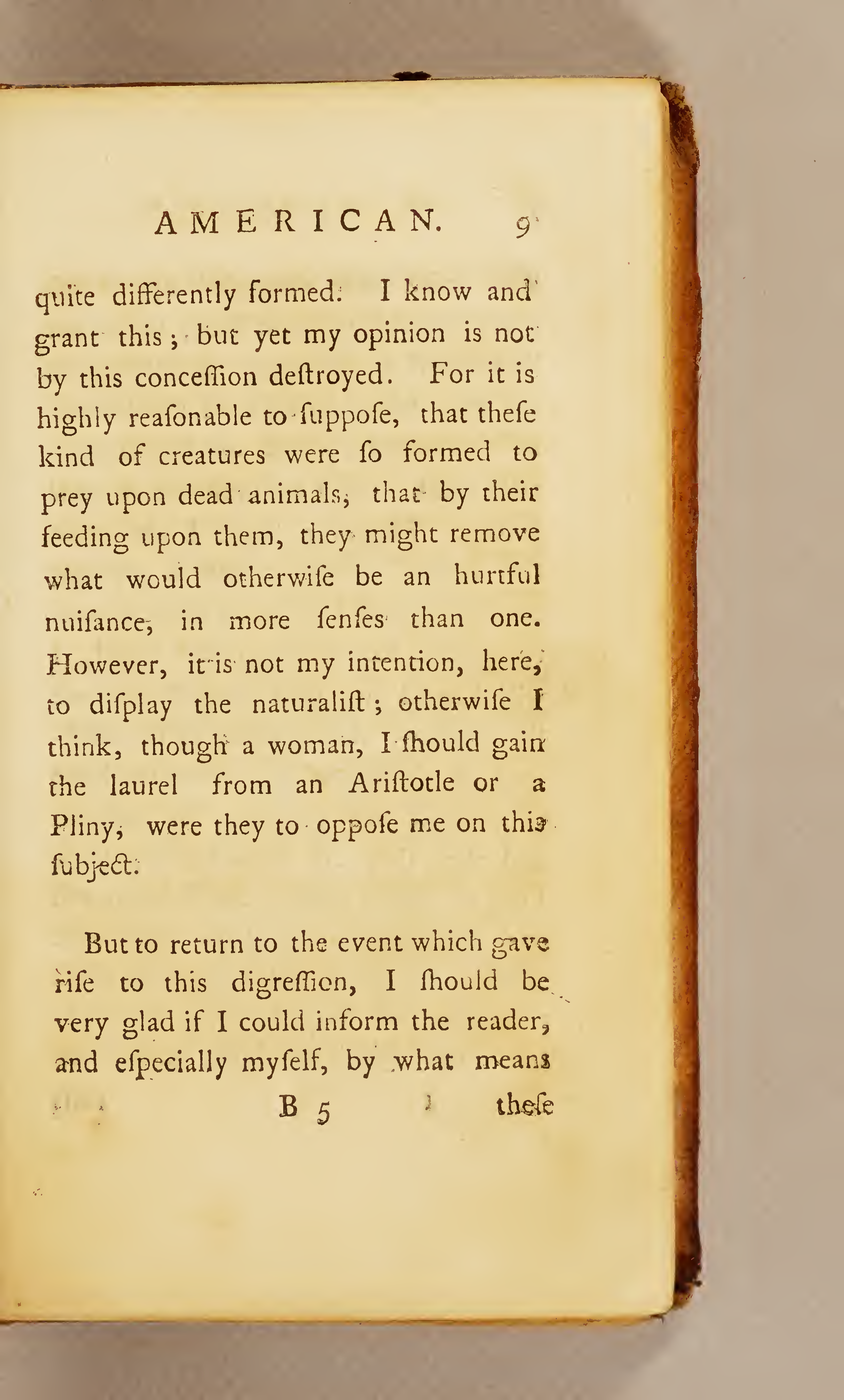
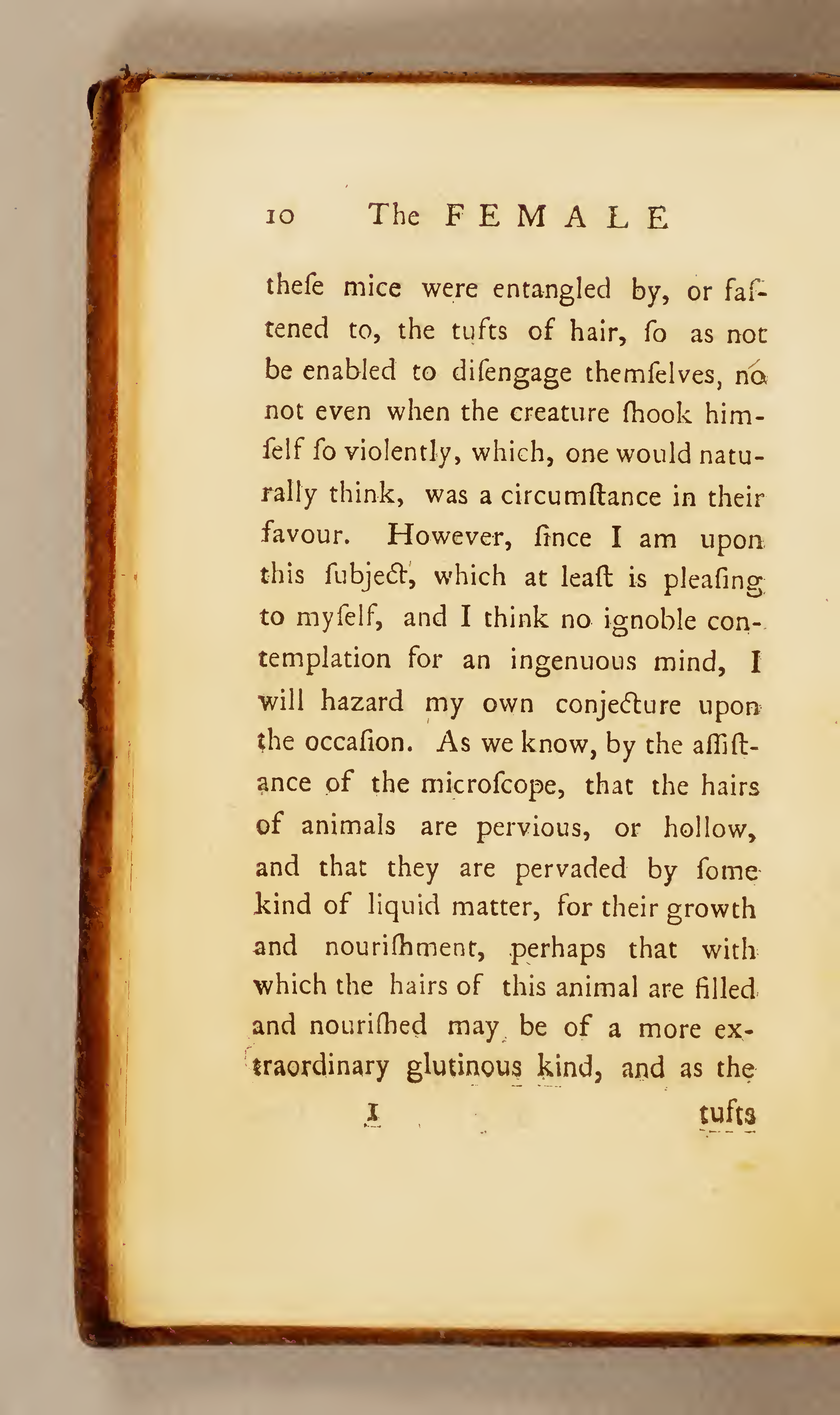
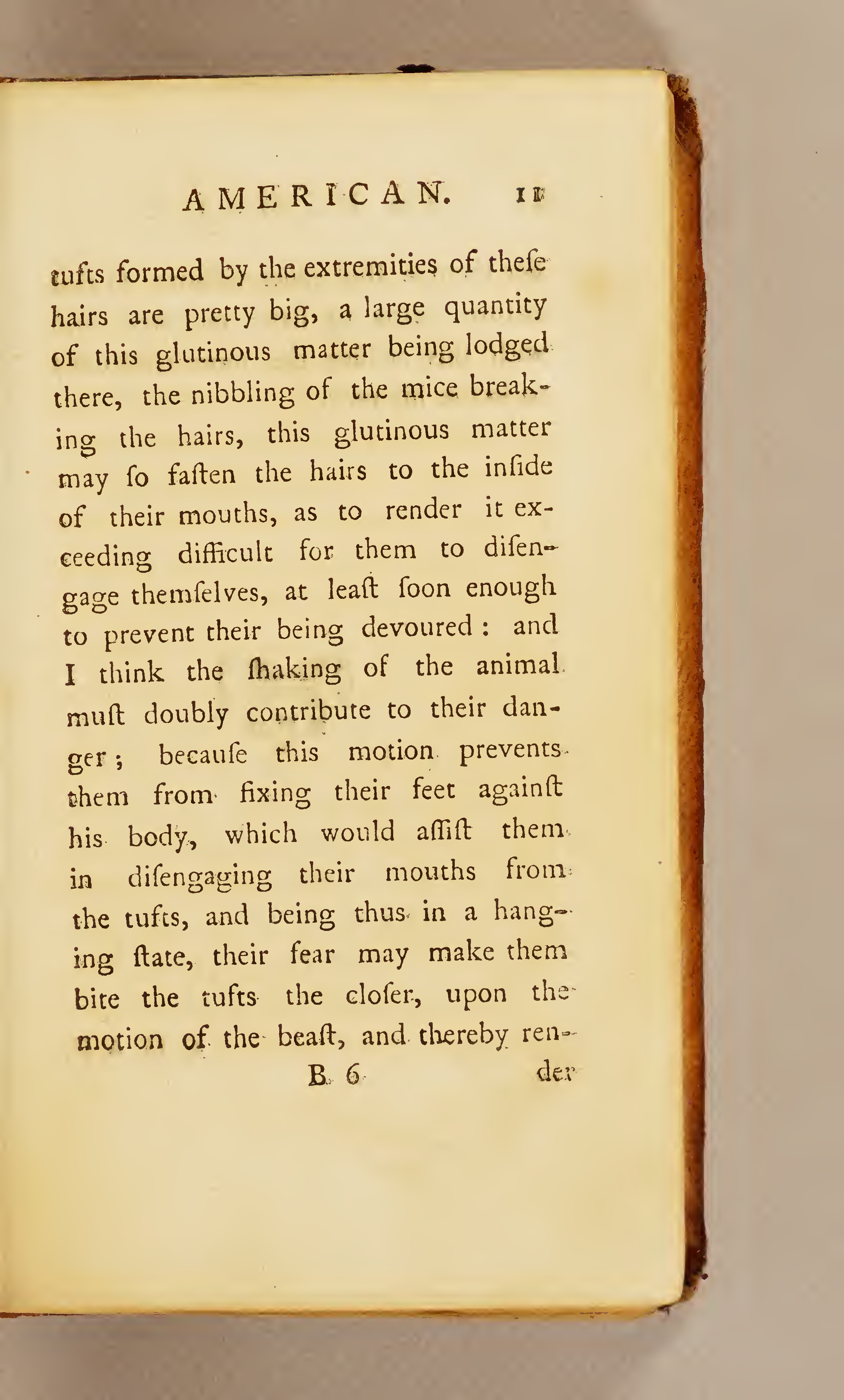
![Page 12 [page breaks after 'ren-']](https://anthologyassetsdev.lib.virginia.edu/winkfield-female-american-2/pageImages/fa_Page_013.png)
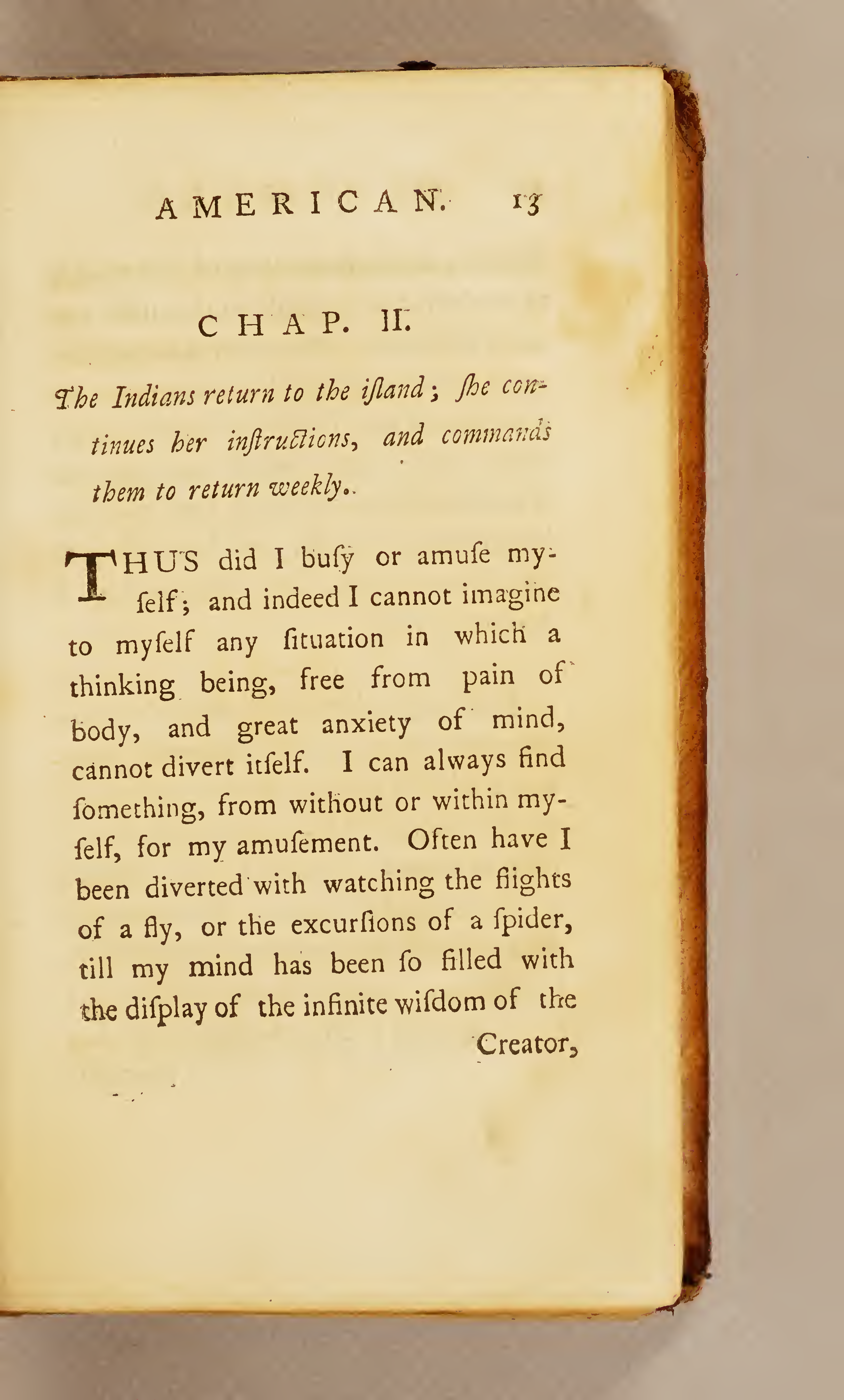
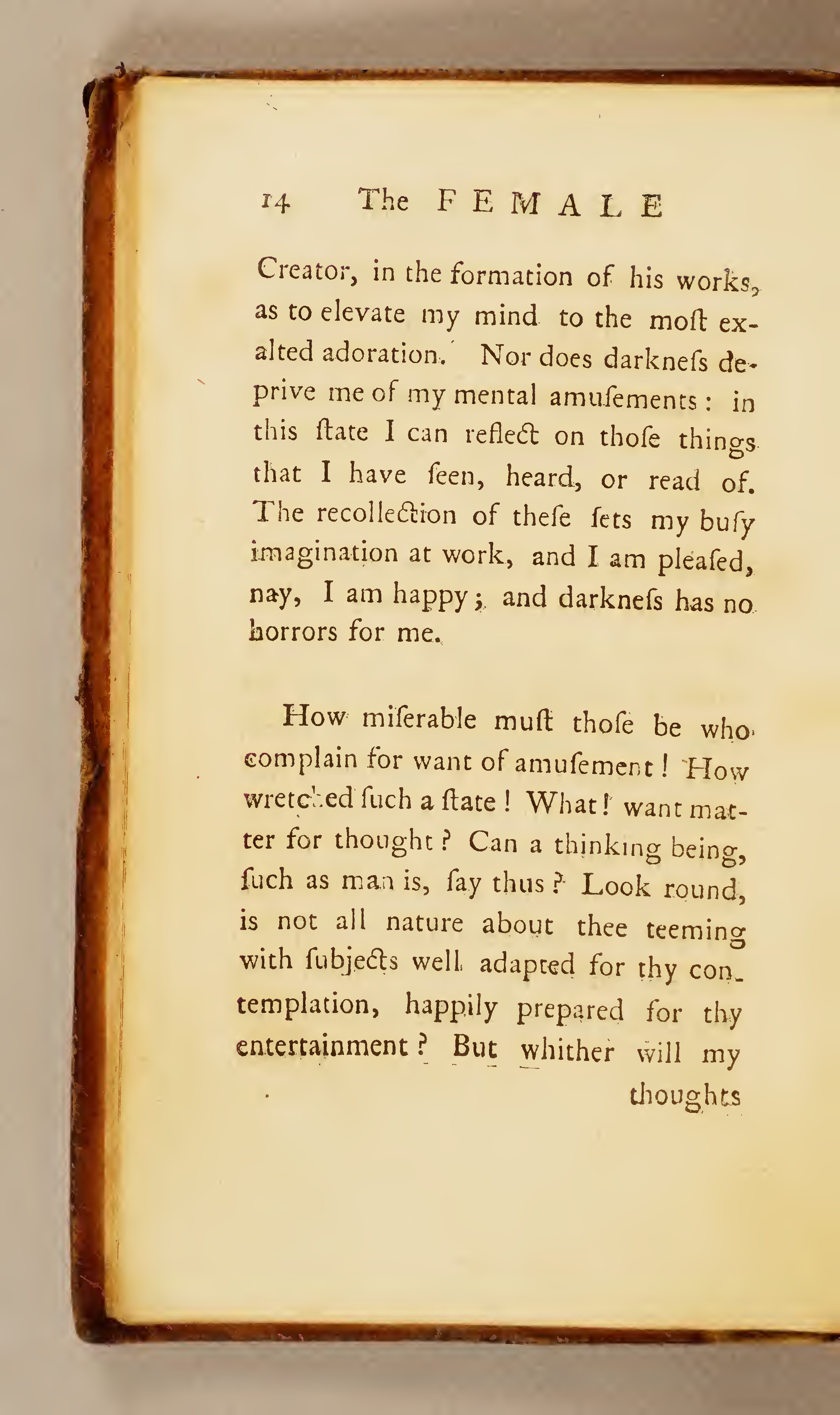
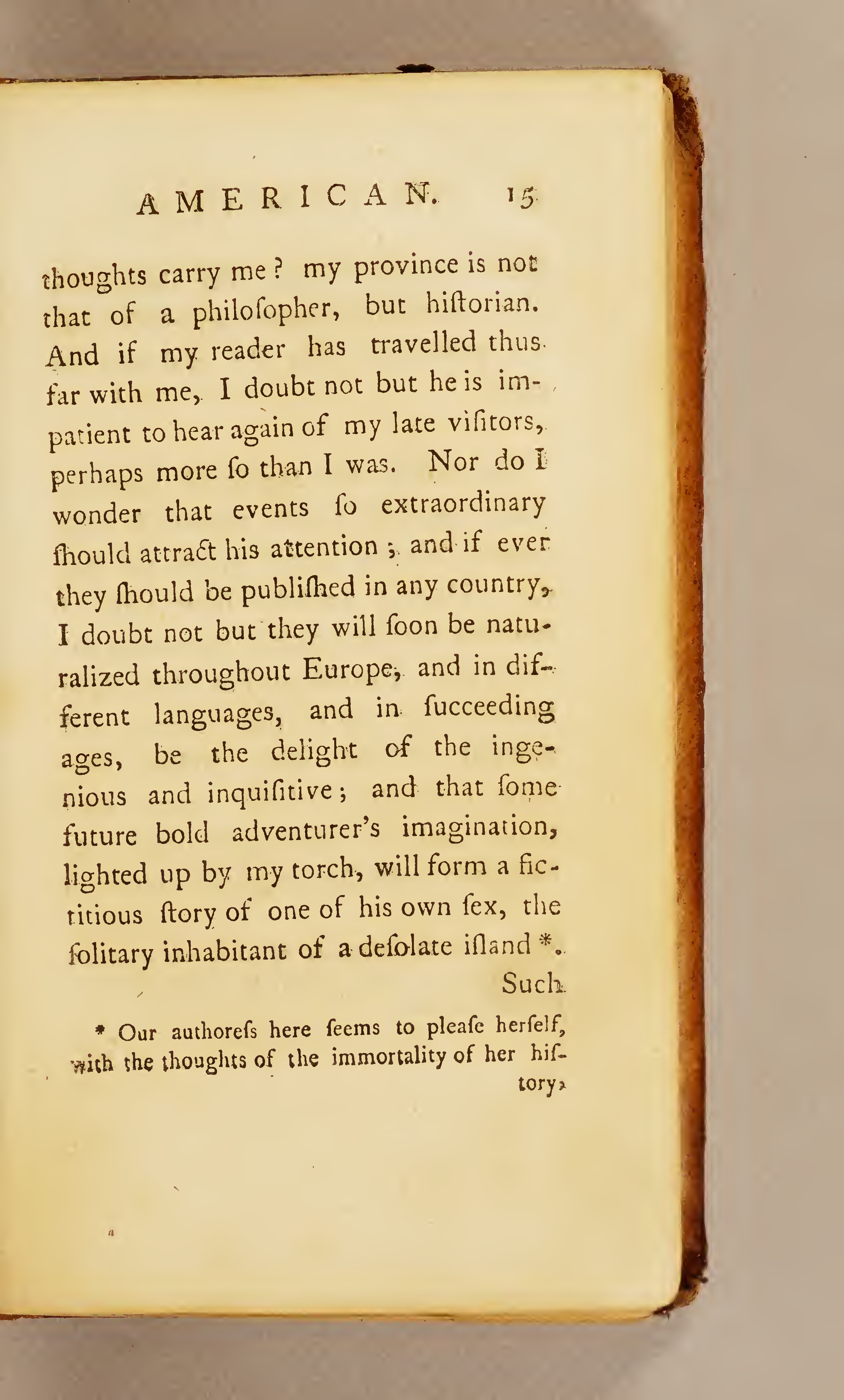
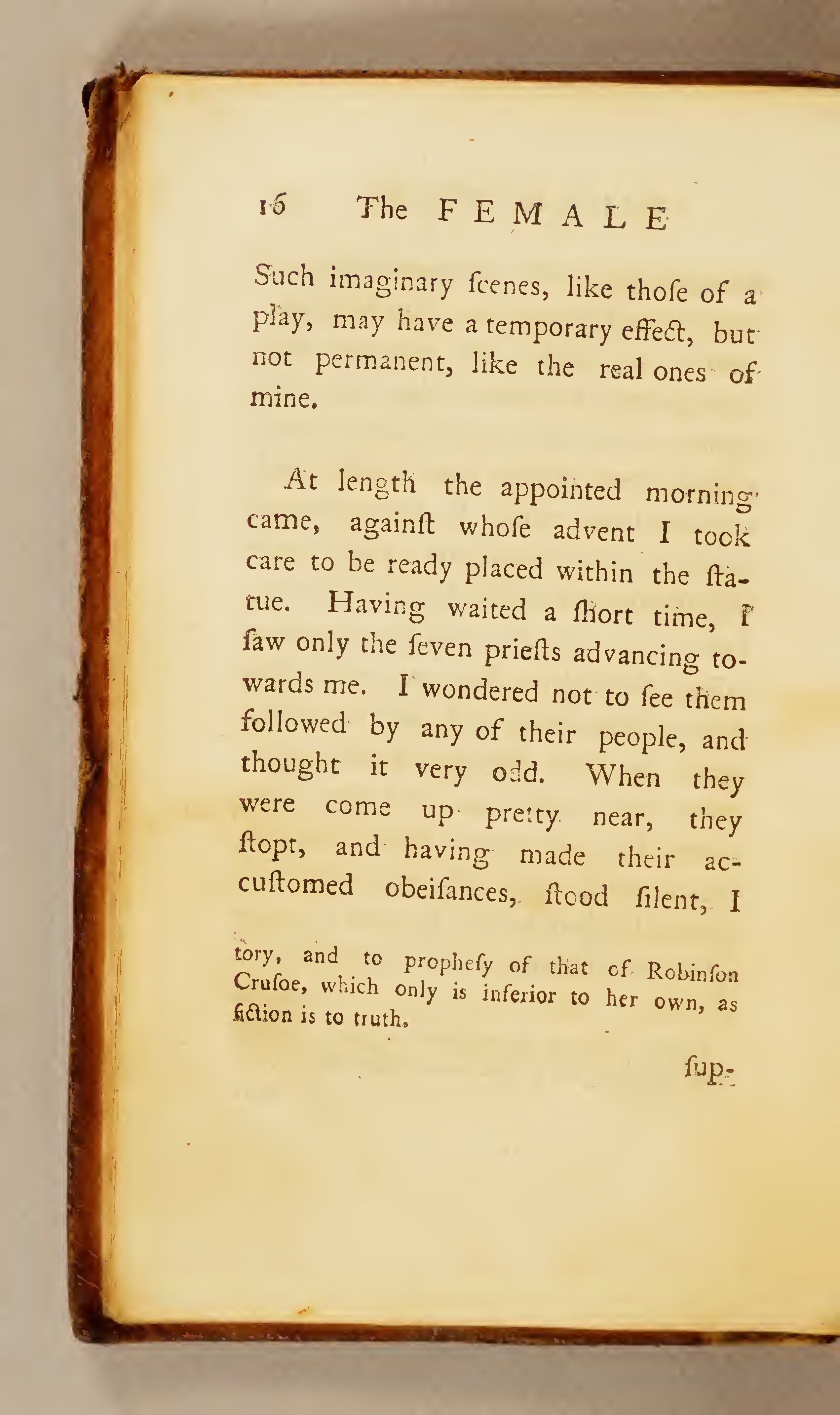
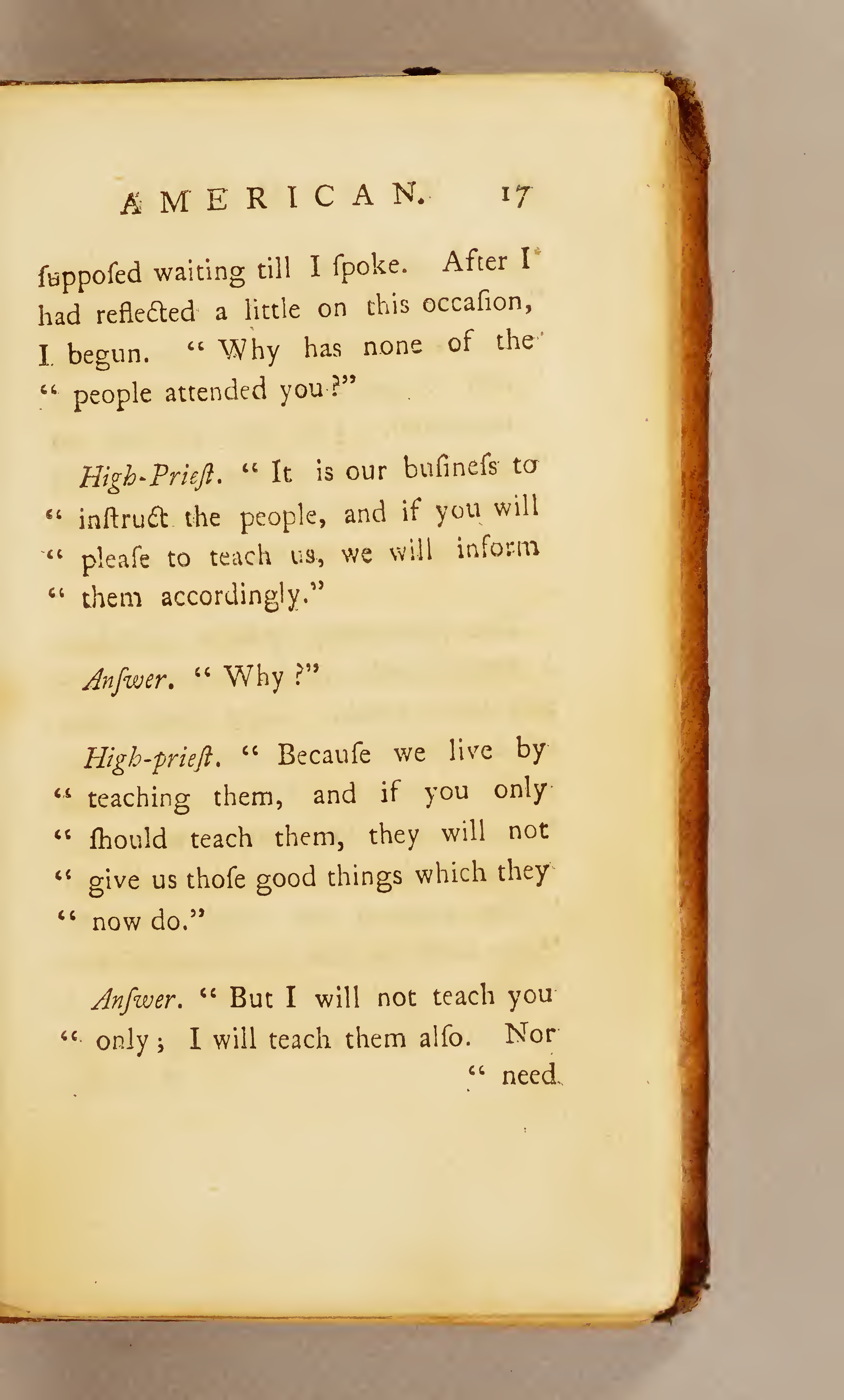
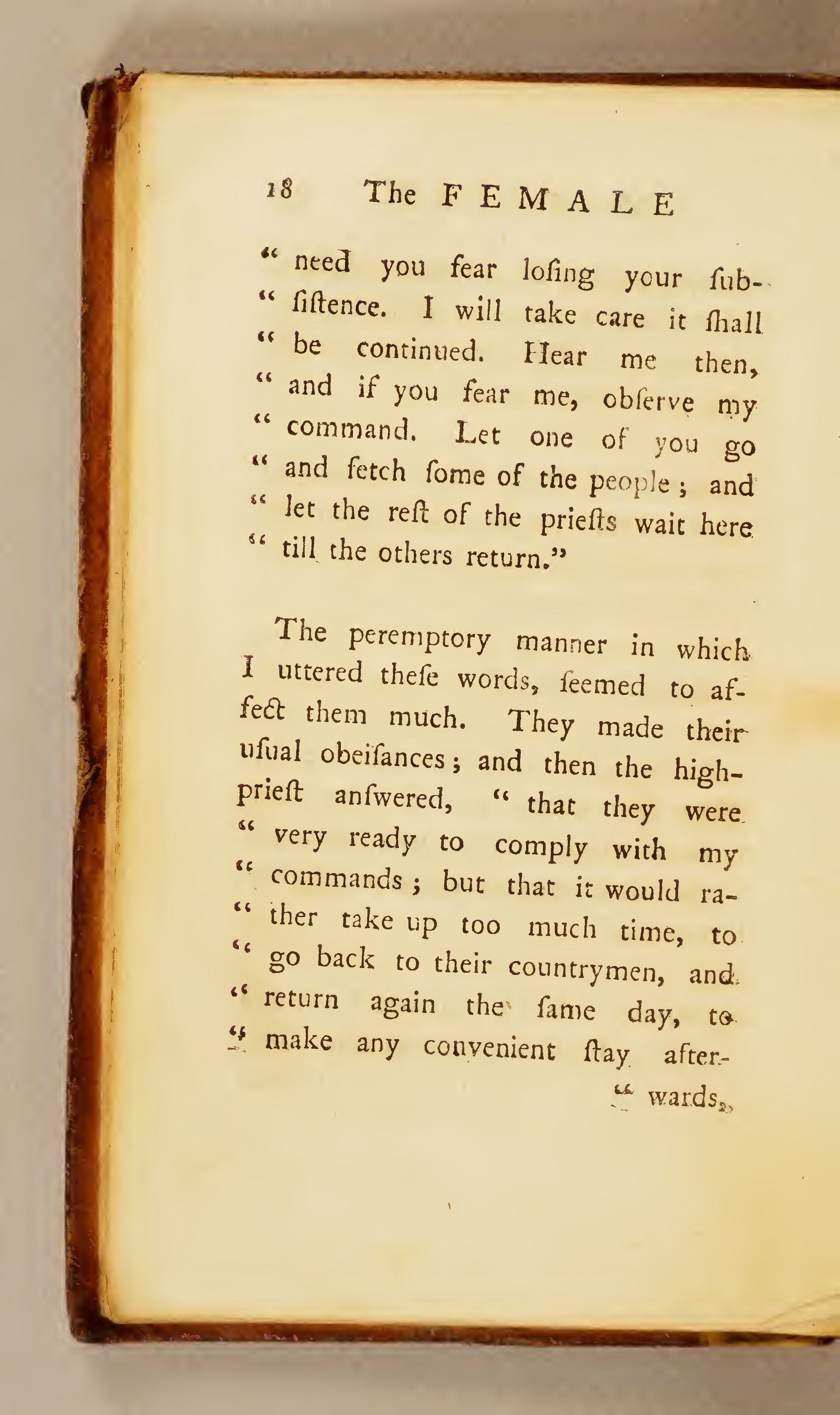
![Page 19 [page breaks after 'after-']](https://anthologyassetsdev.lib.virginia.edu/winkfield-female-american-2/pageImages/fa_Page_020.png)
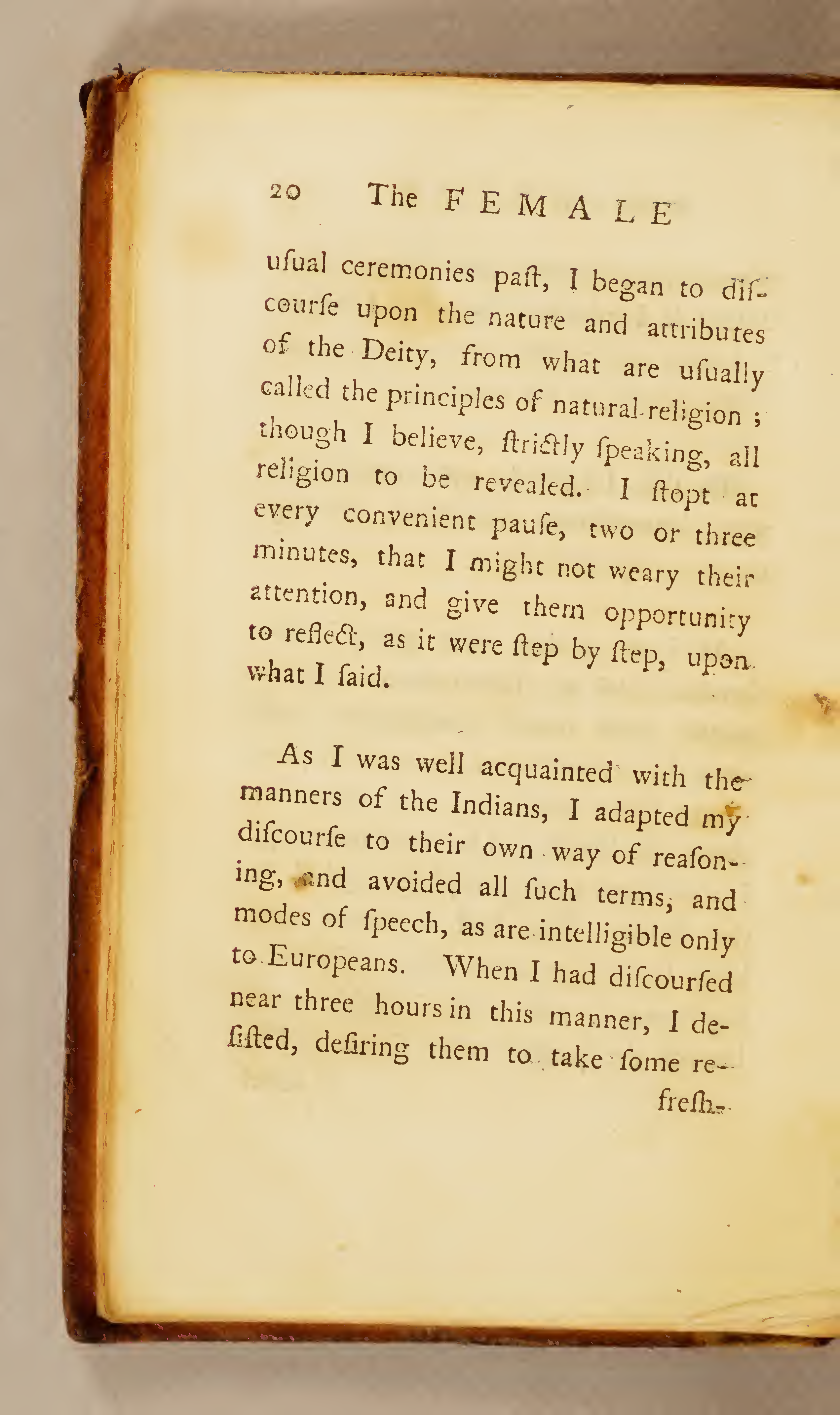
![Page 21 [page breaks after 're-']](https://anthologyassetsdev.lib.virginia.edu/winkfield-female-american-2/pageImages/fa_Page_022.png)
![Page 22 [page breaks after 'se-']](https://anthologyassetsdev.lib.virginia.edu/winkfield-female-american-2/pageImages/fa_Page_023.png)
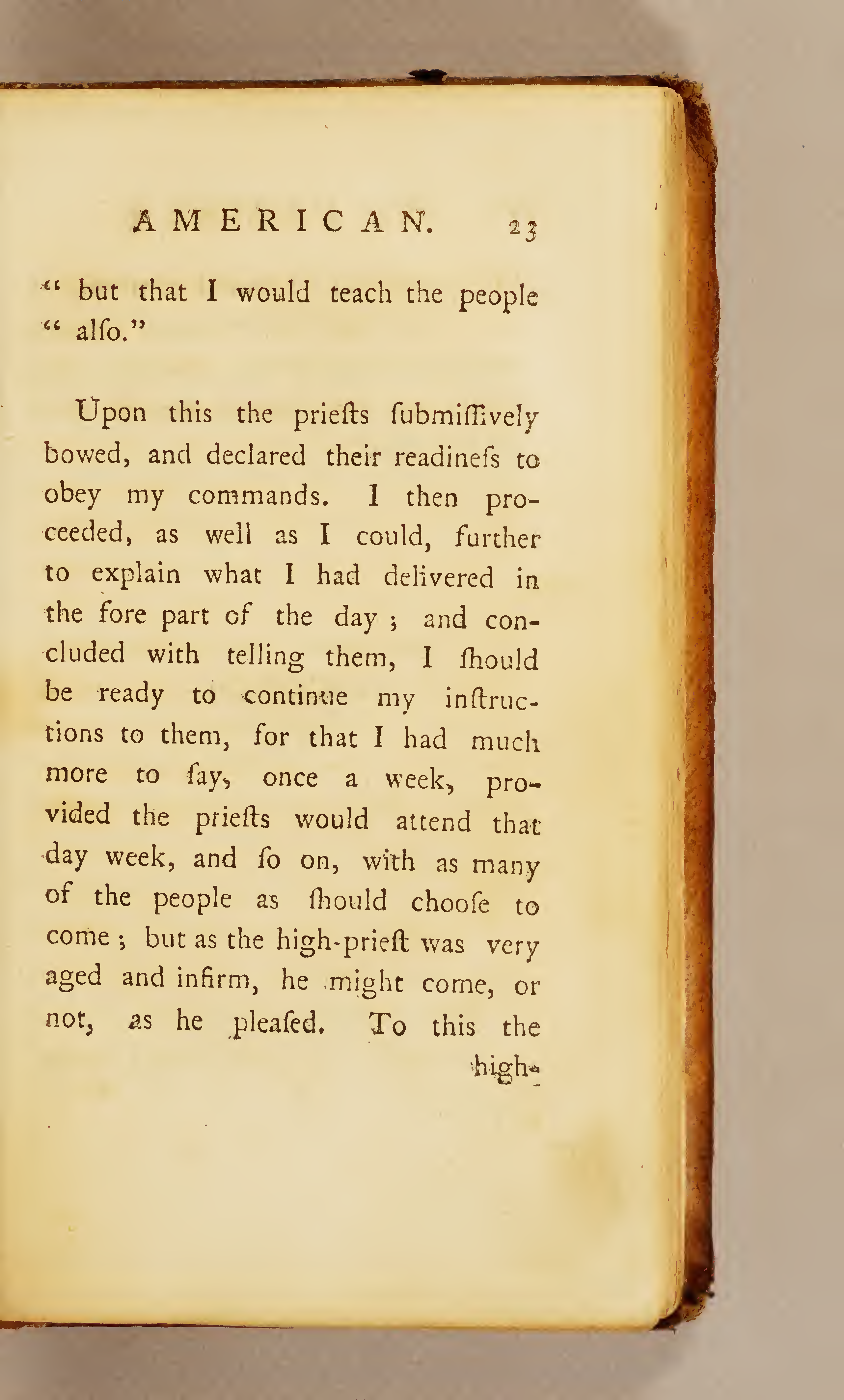
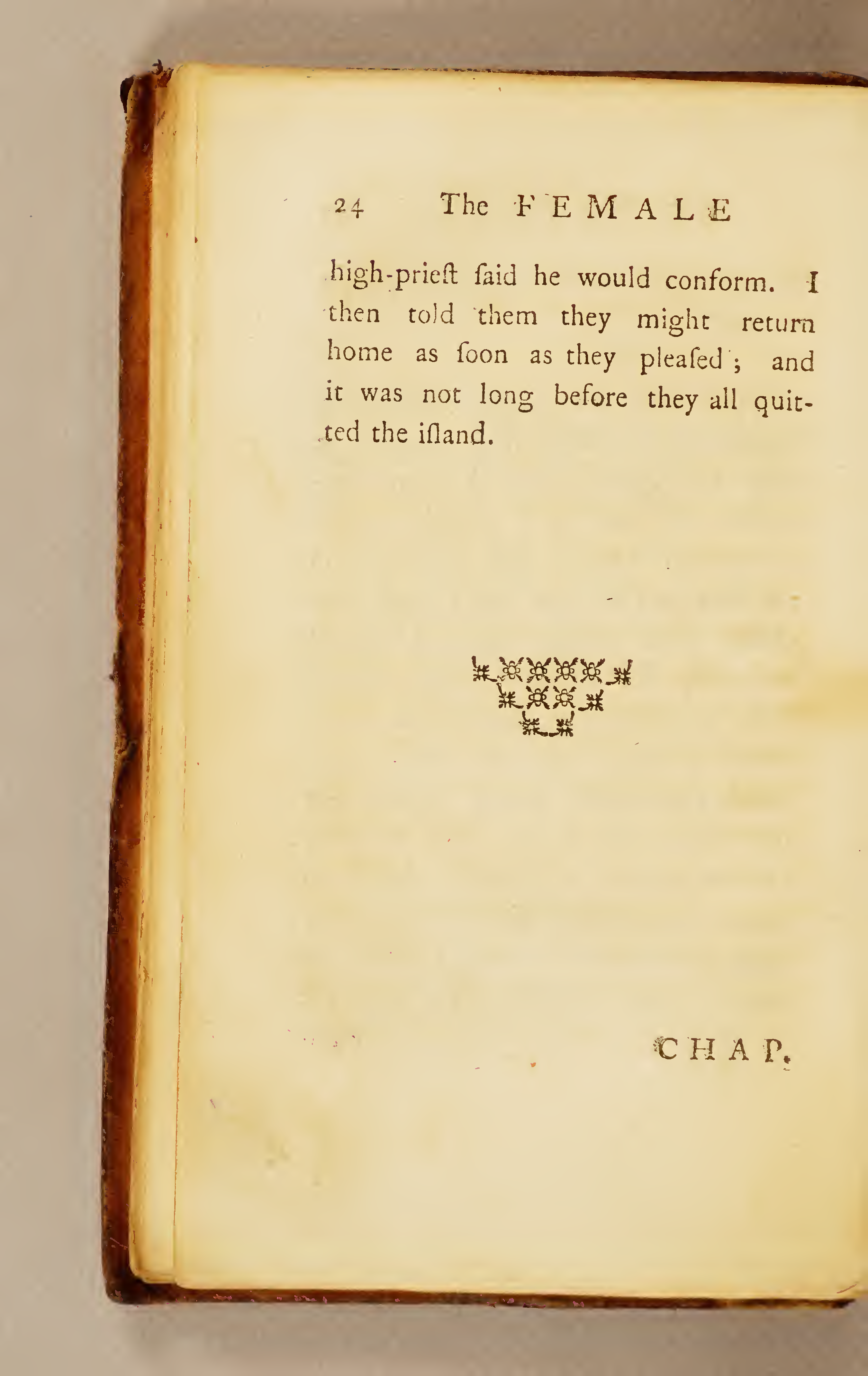
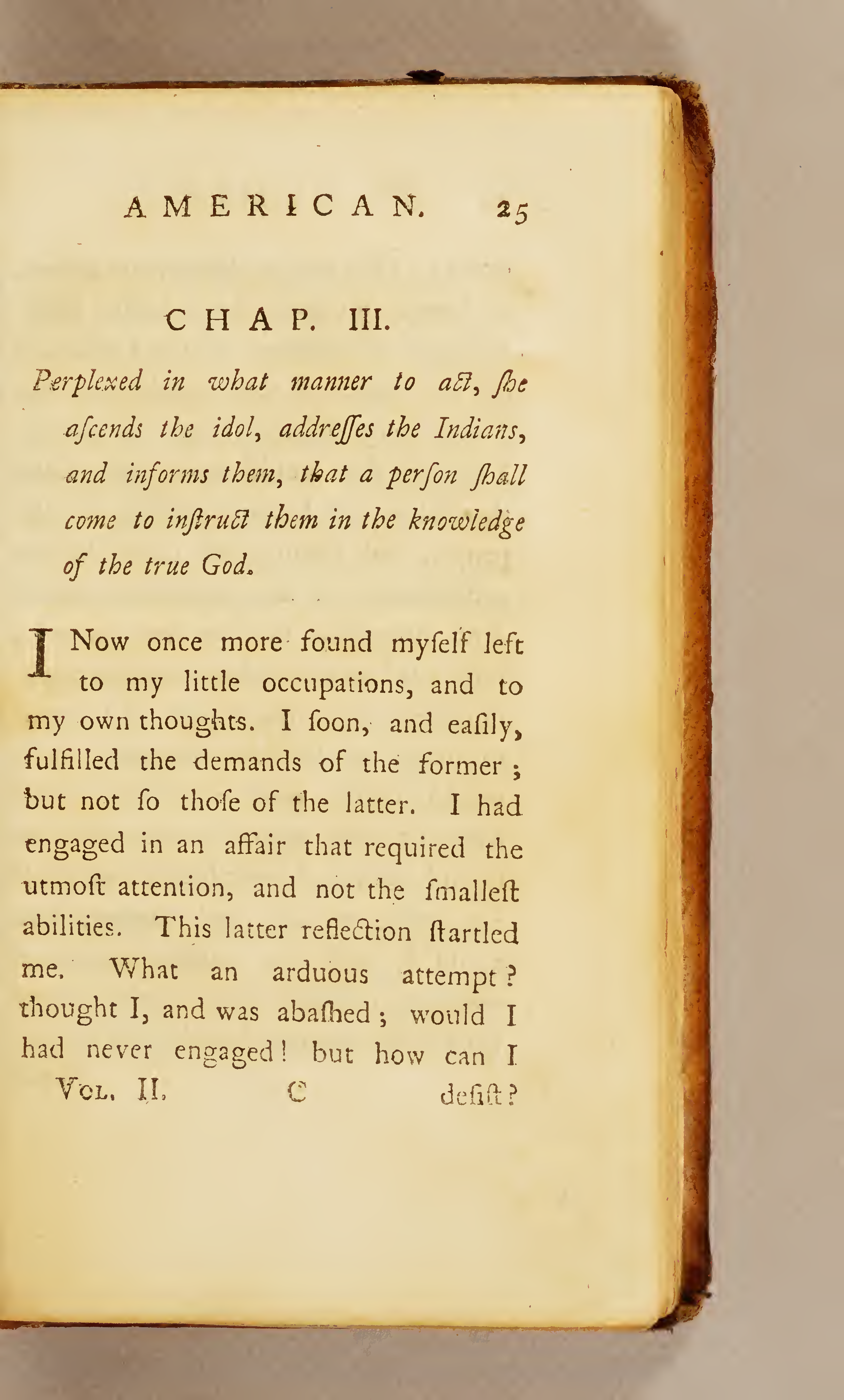
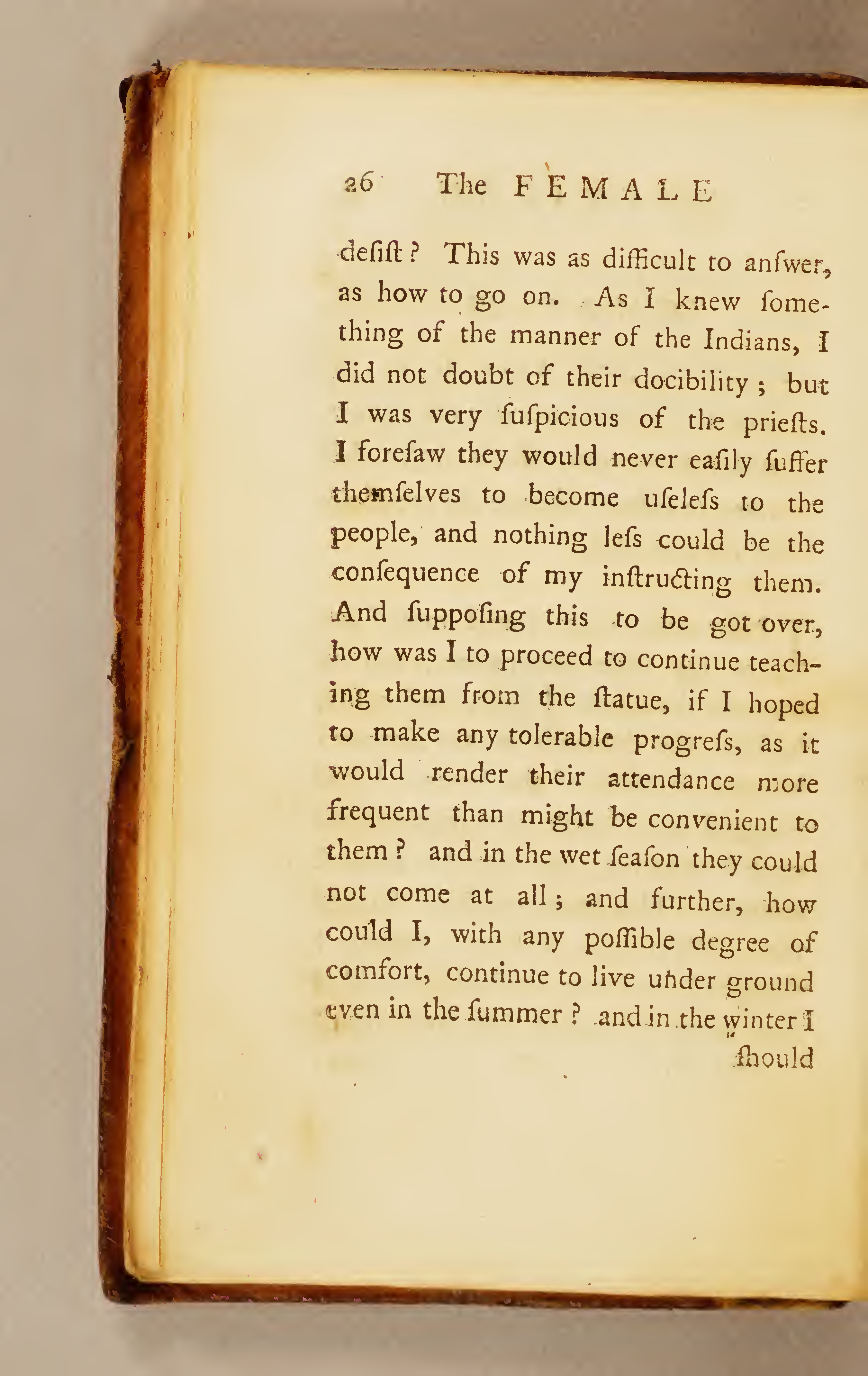
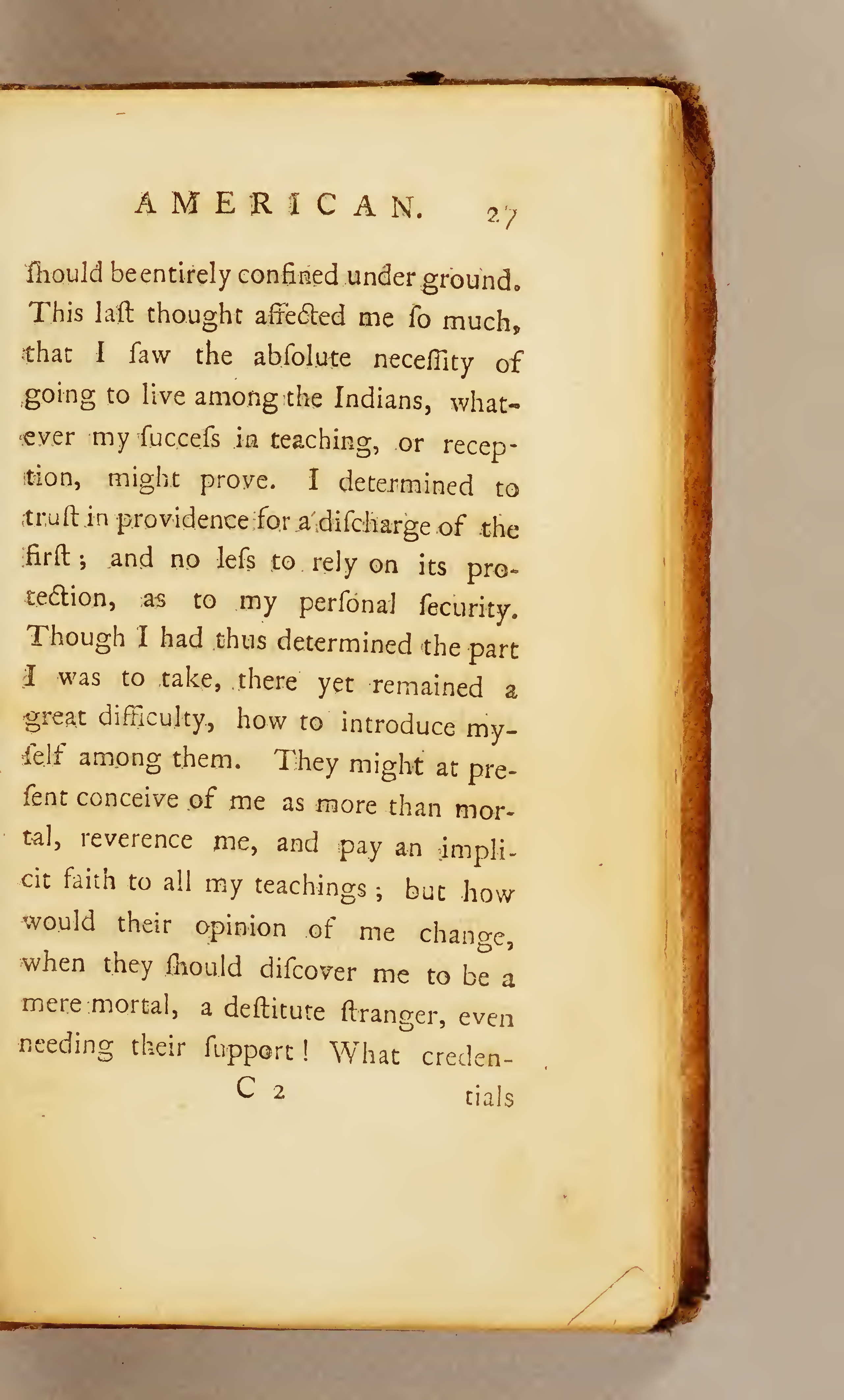
![Page 28 [page breaks after 'creden-']](https://anthologyassetsdev.lib.virginia.edu/winkfield-female-american-2/pageImages/fa_Page_029.png)
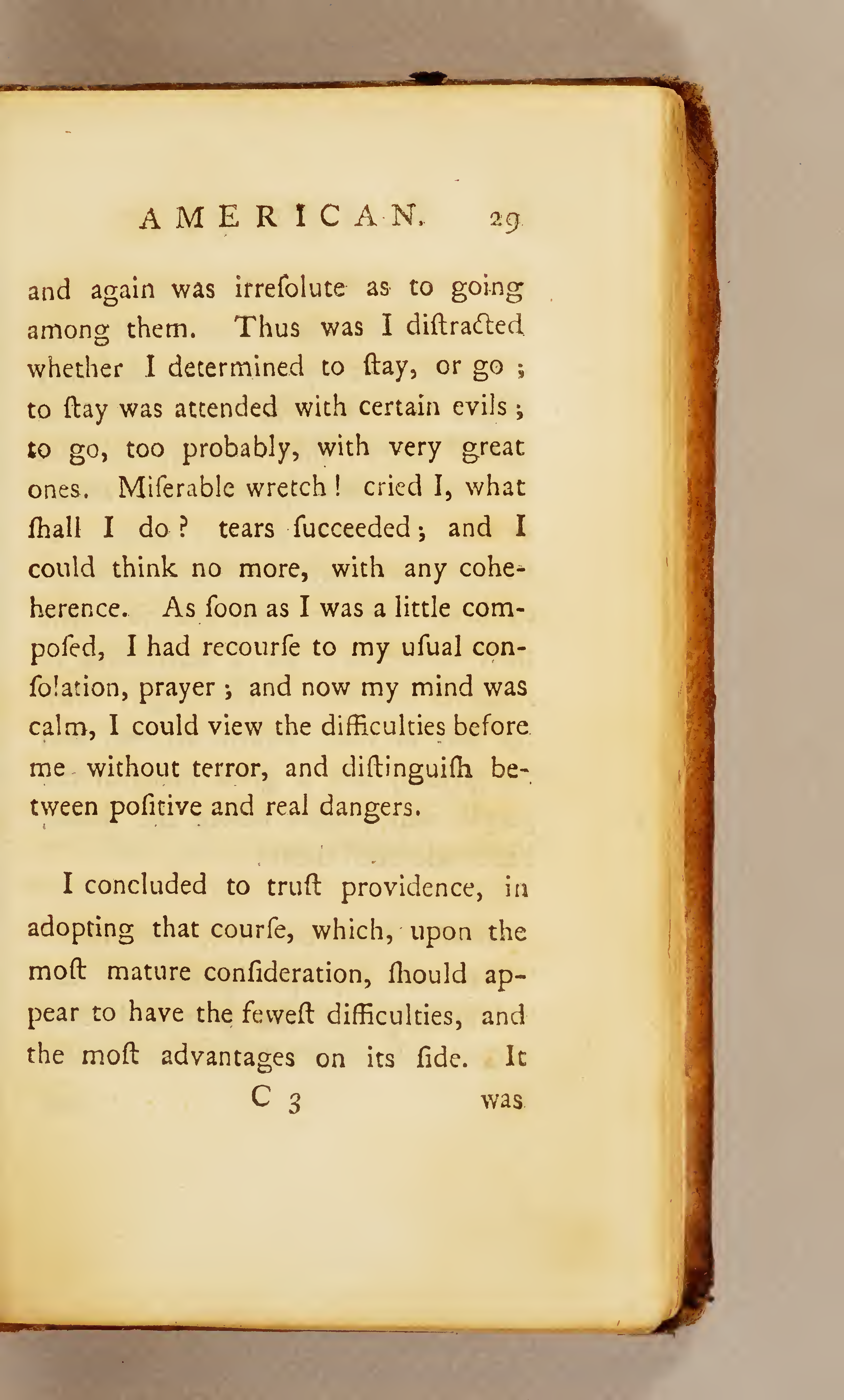
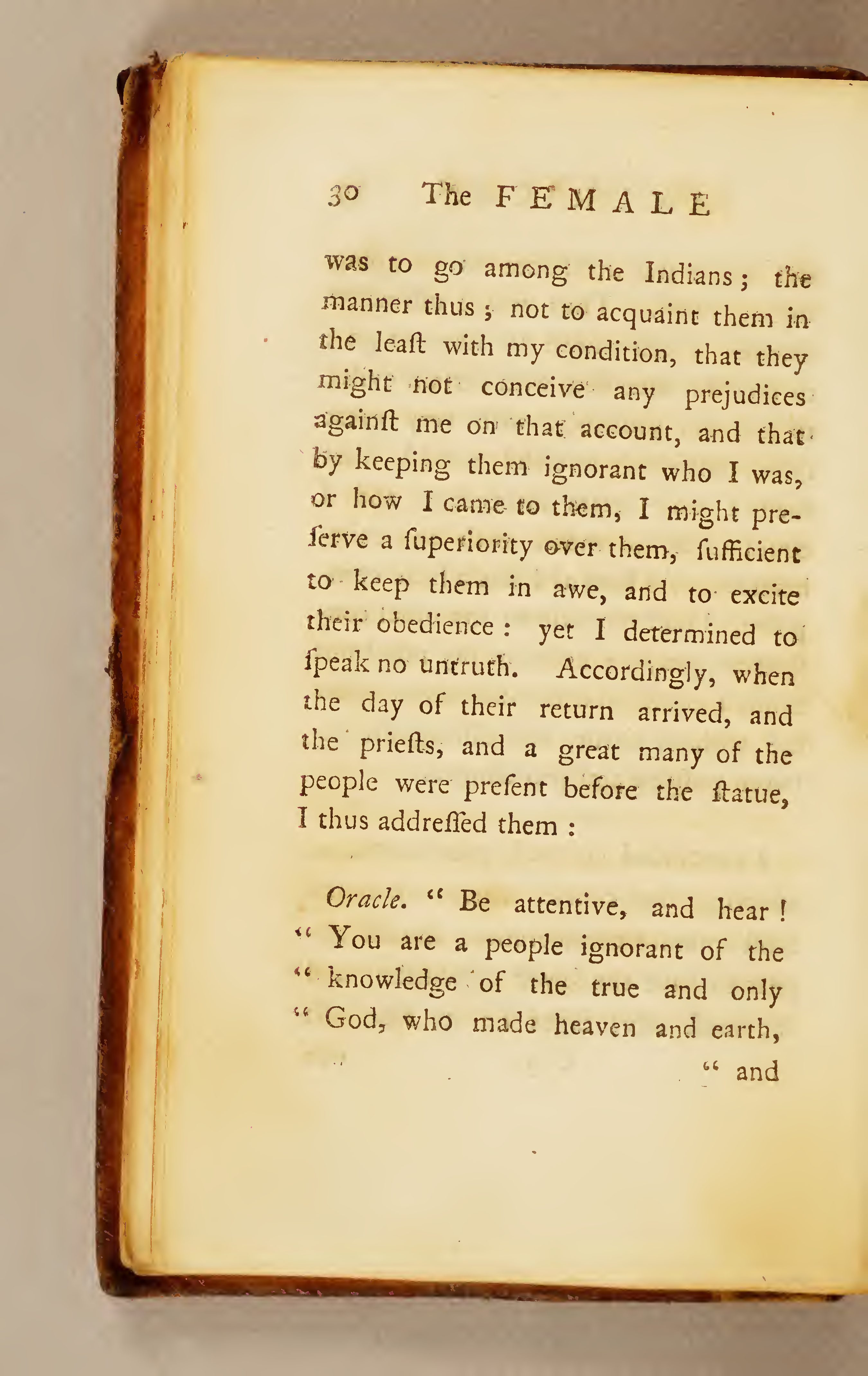
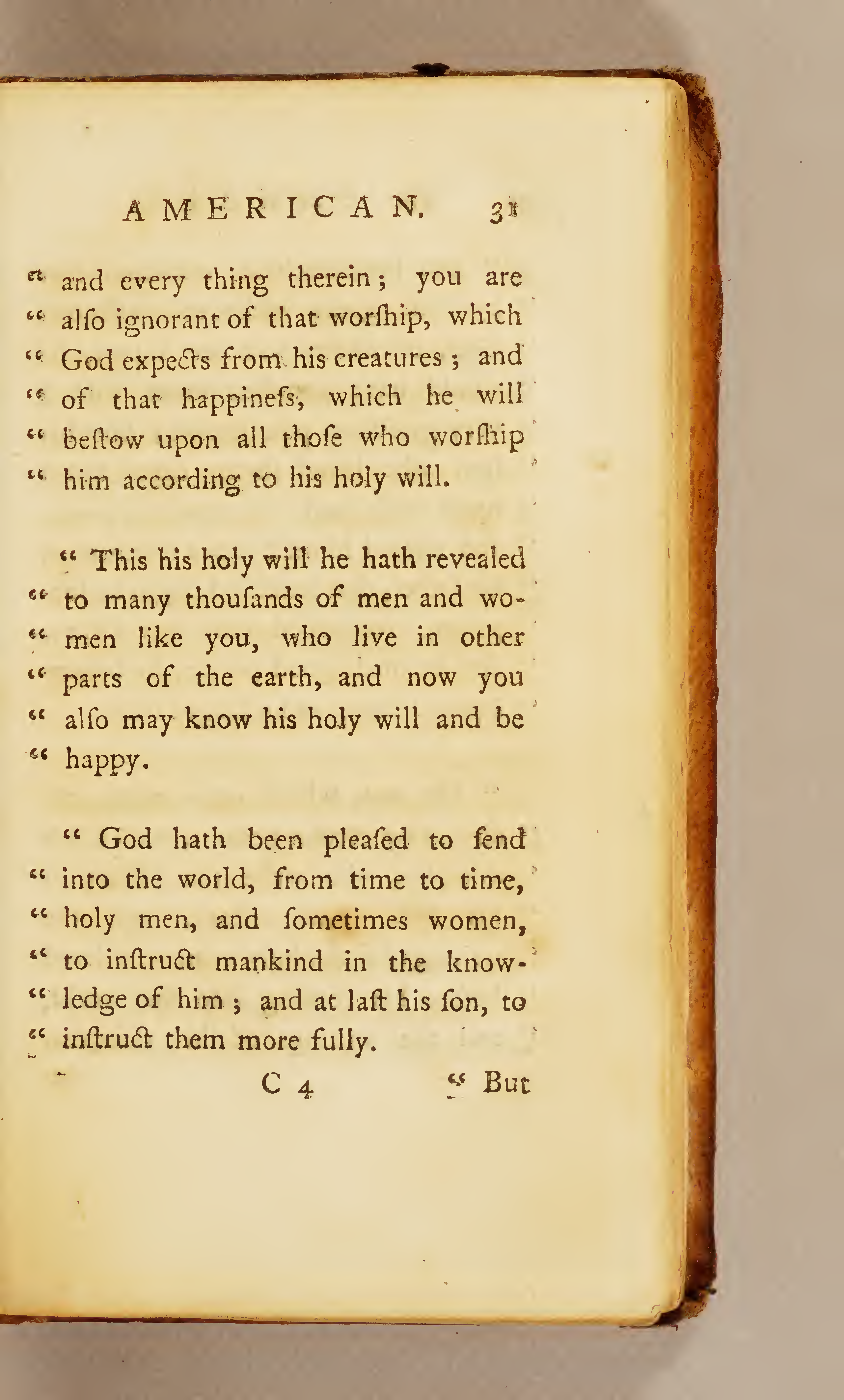

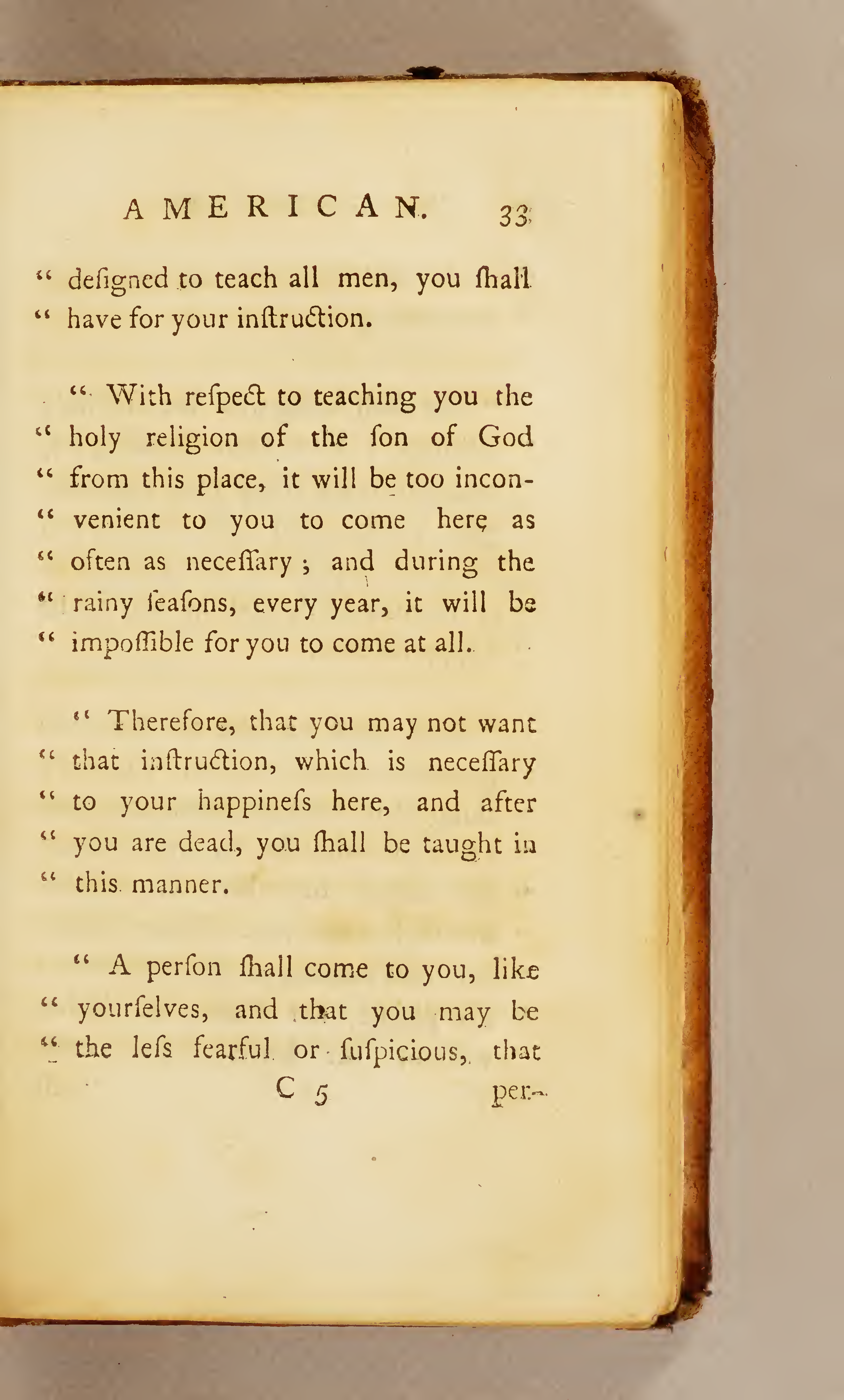
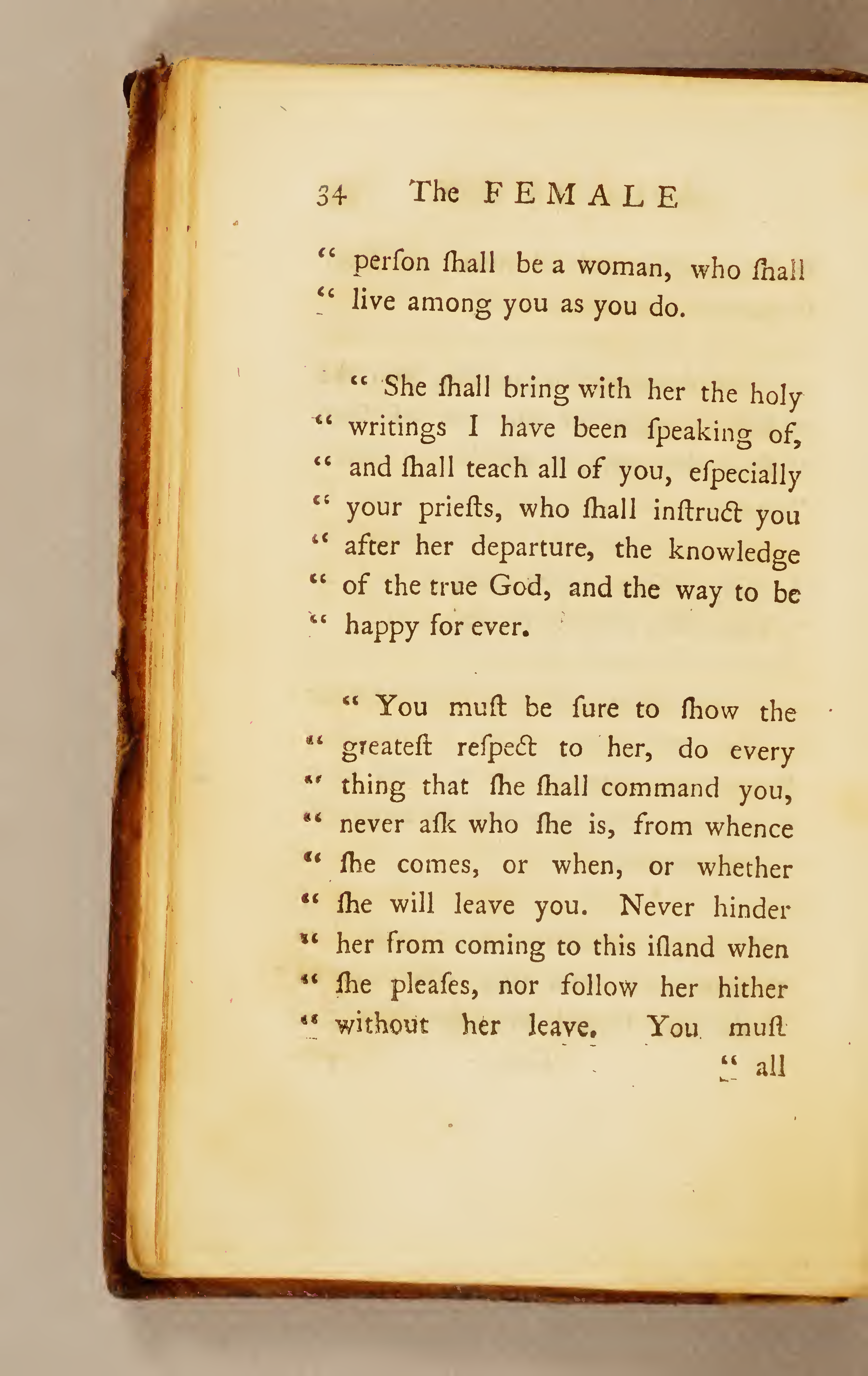
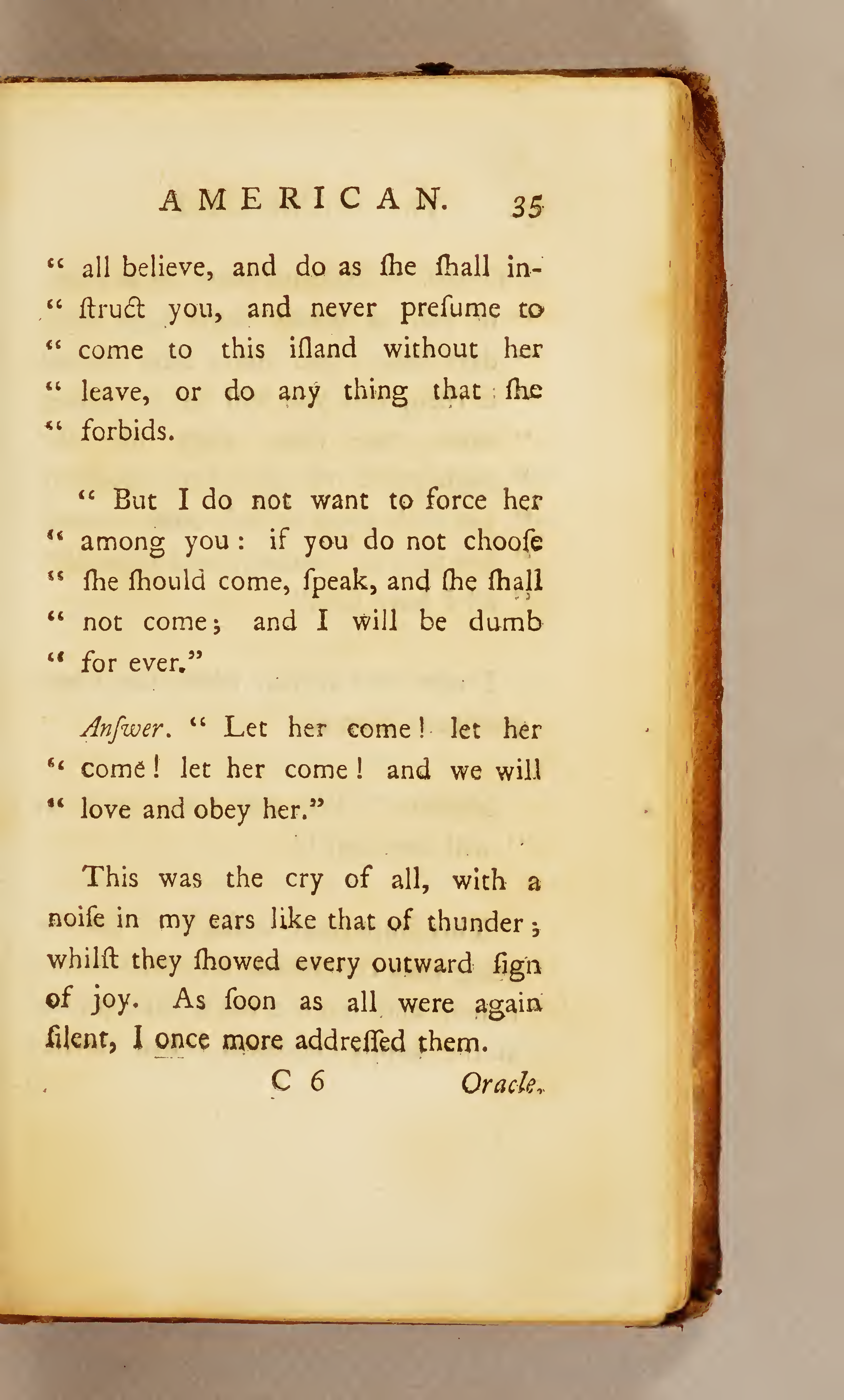

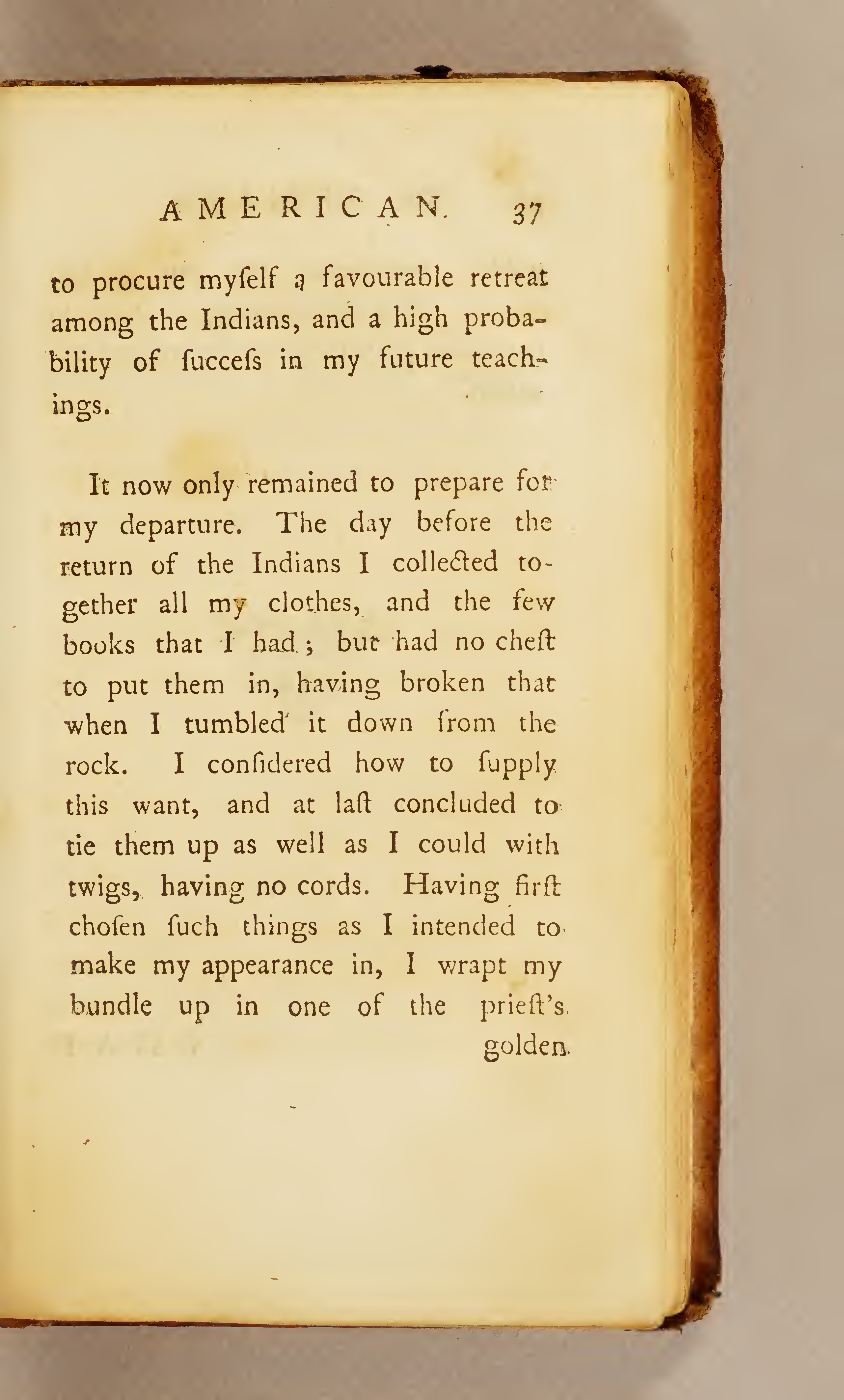
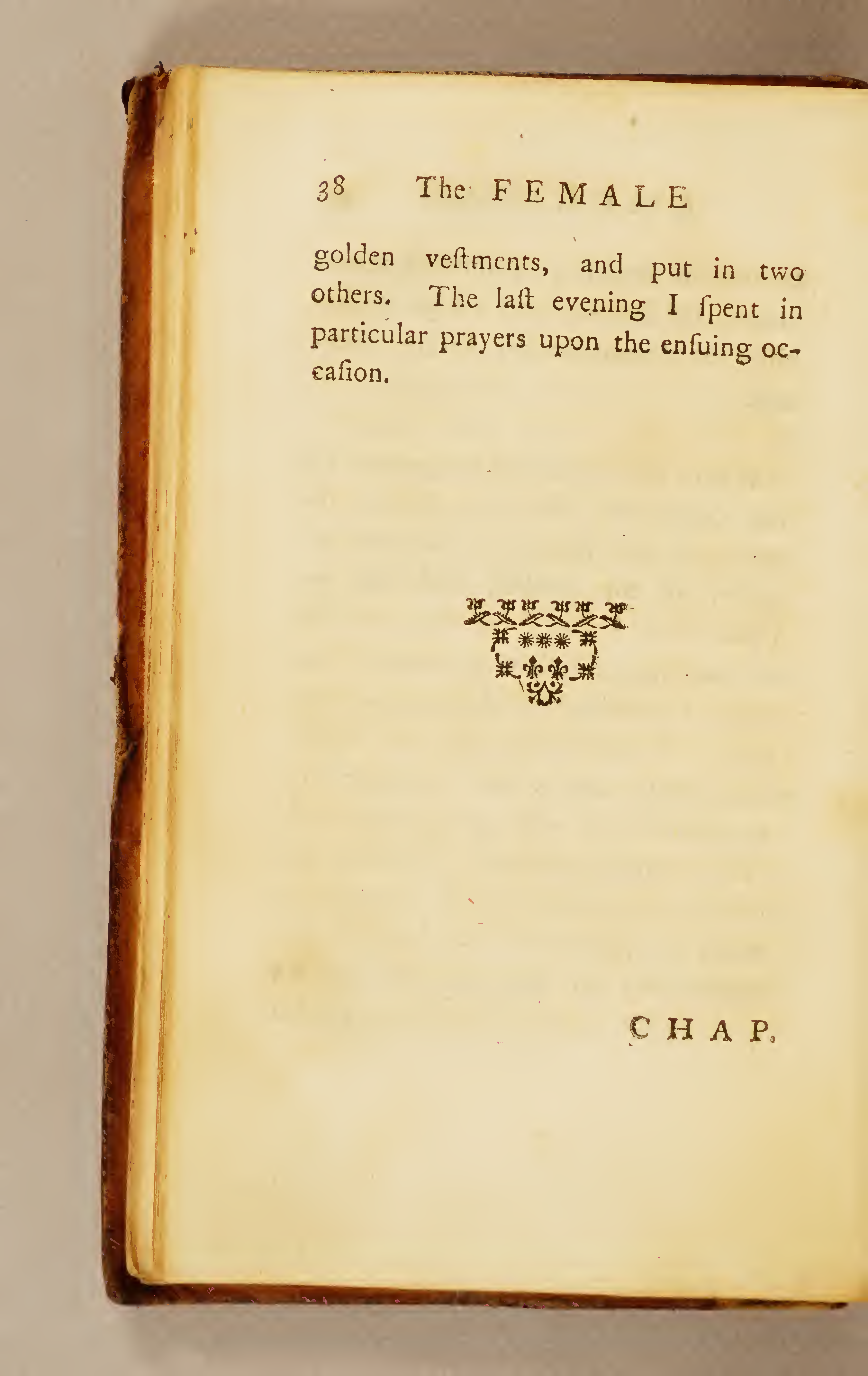
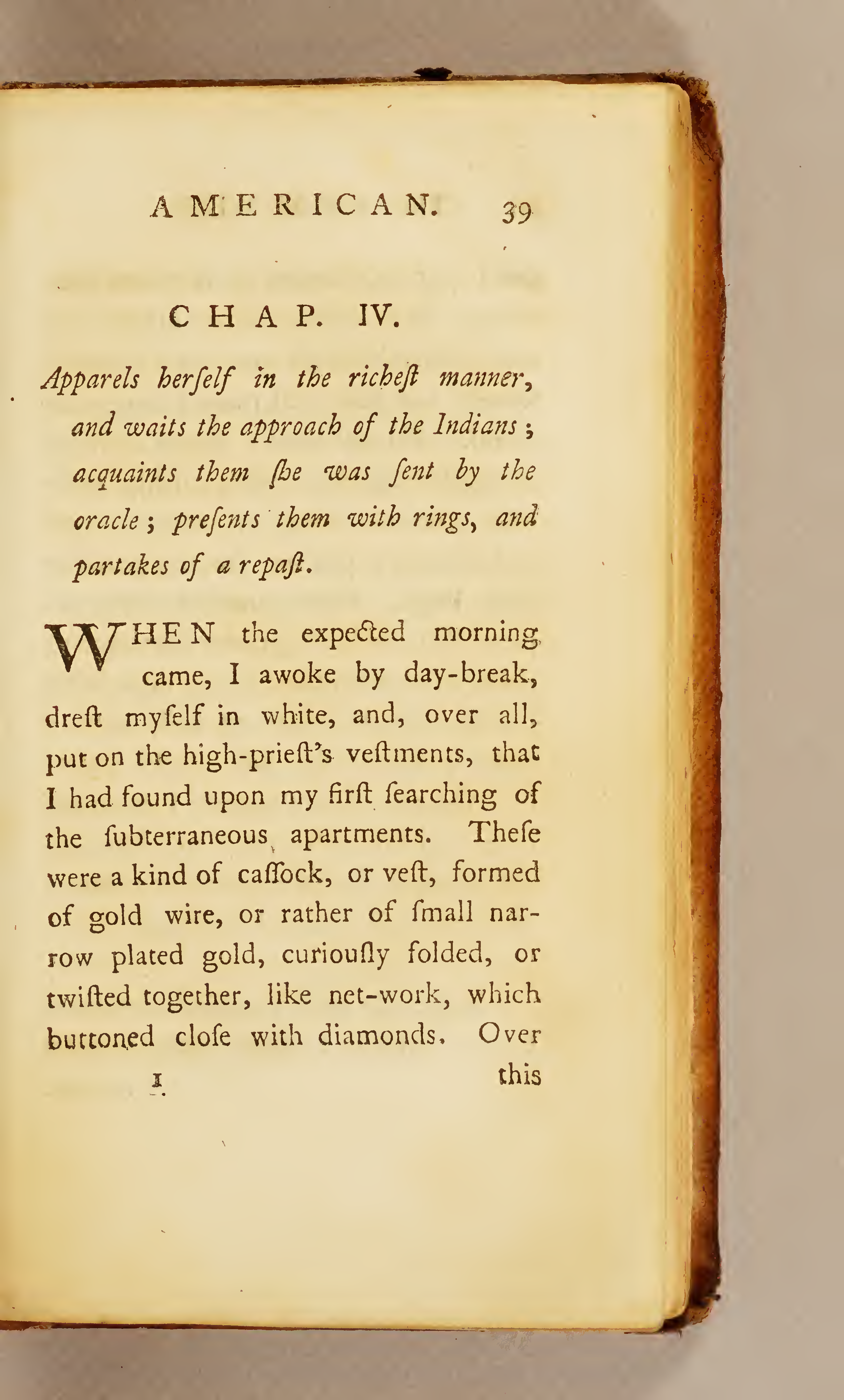
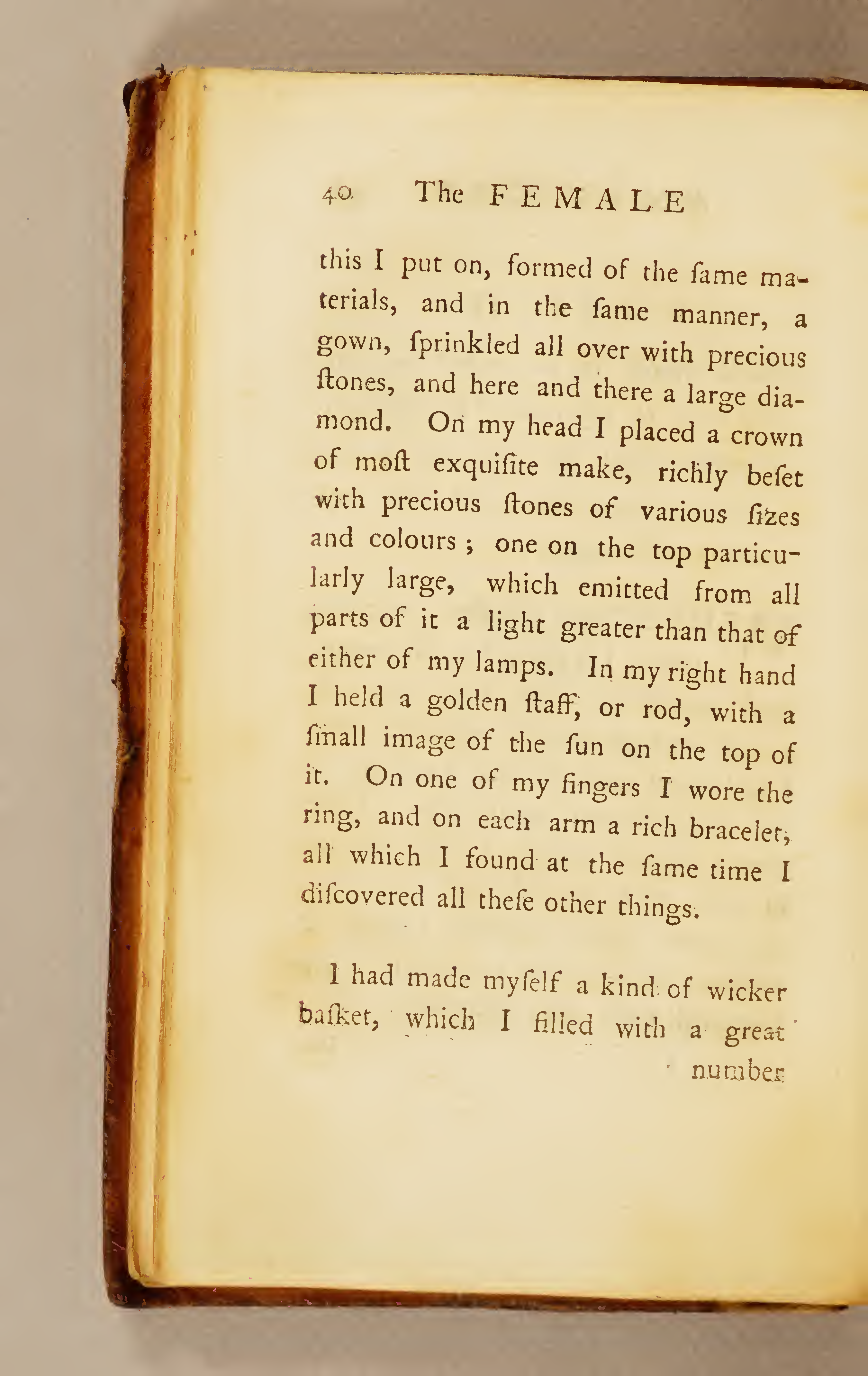
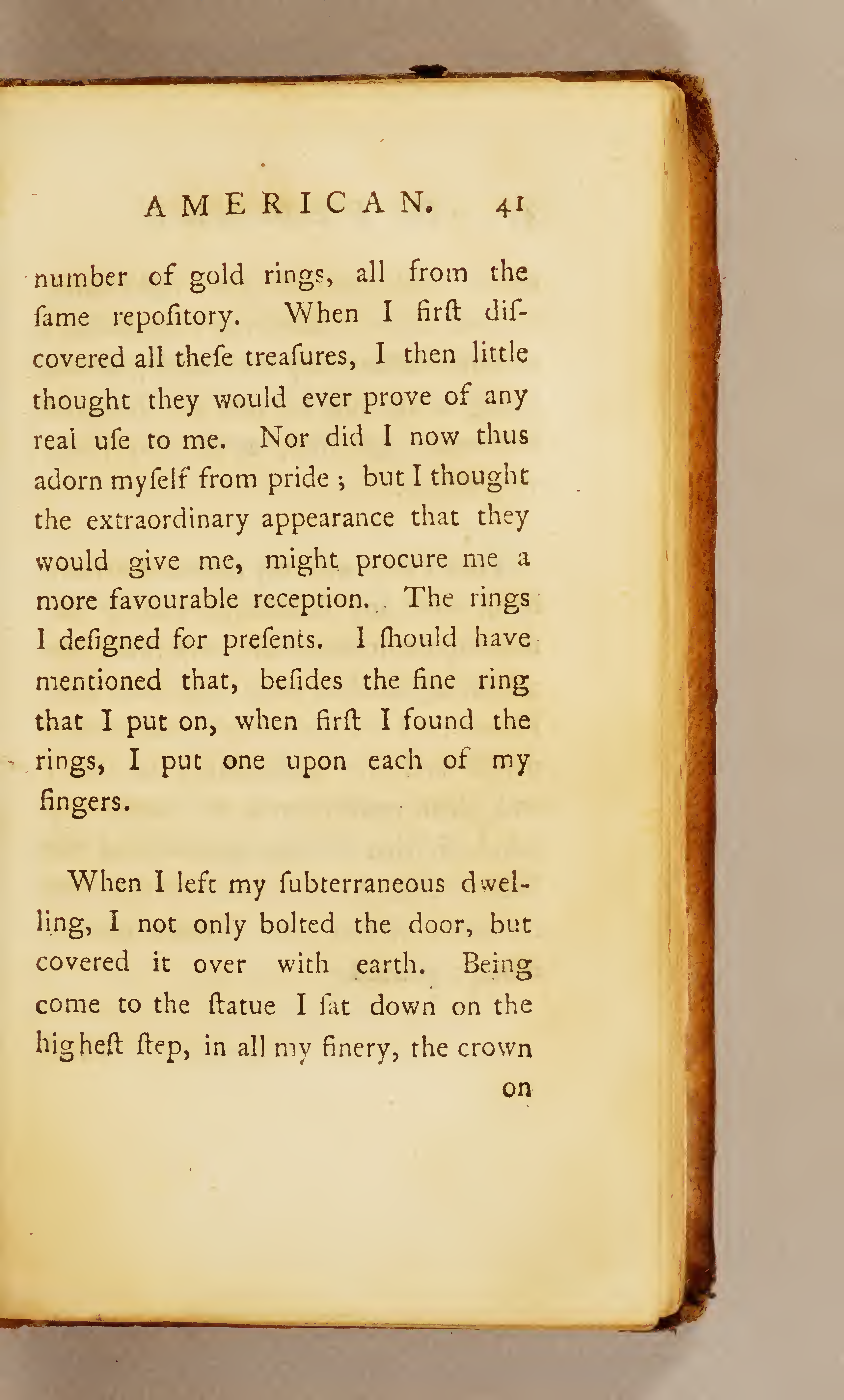

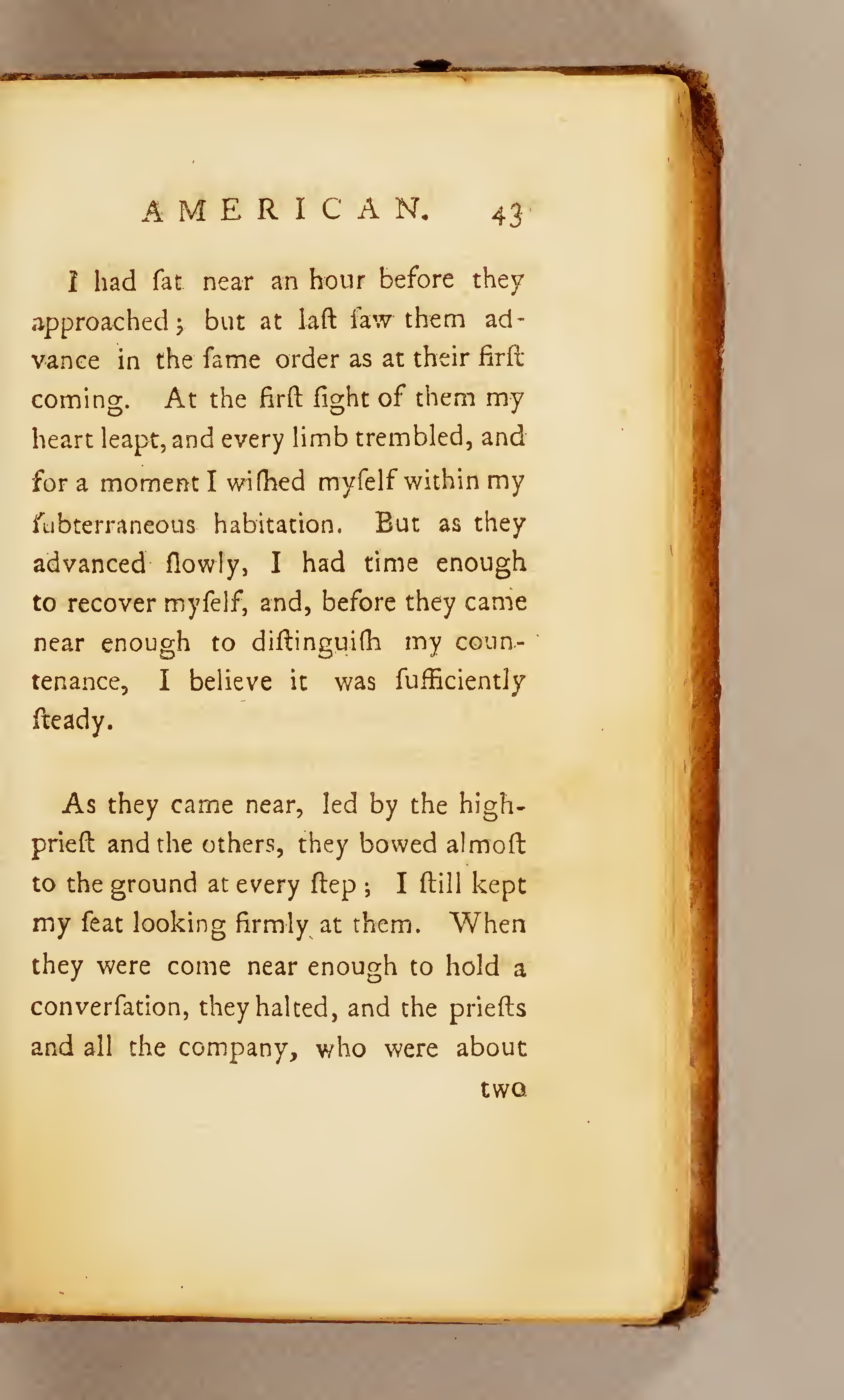
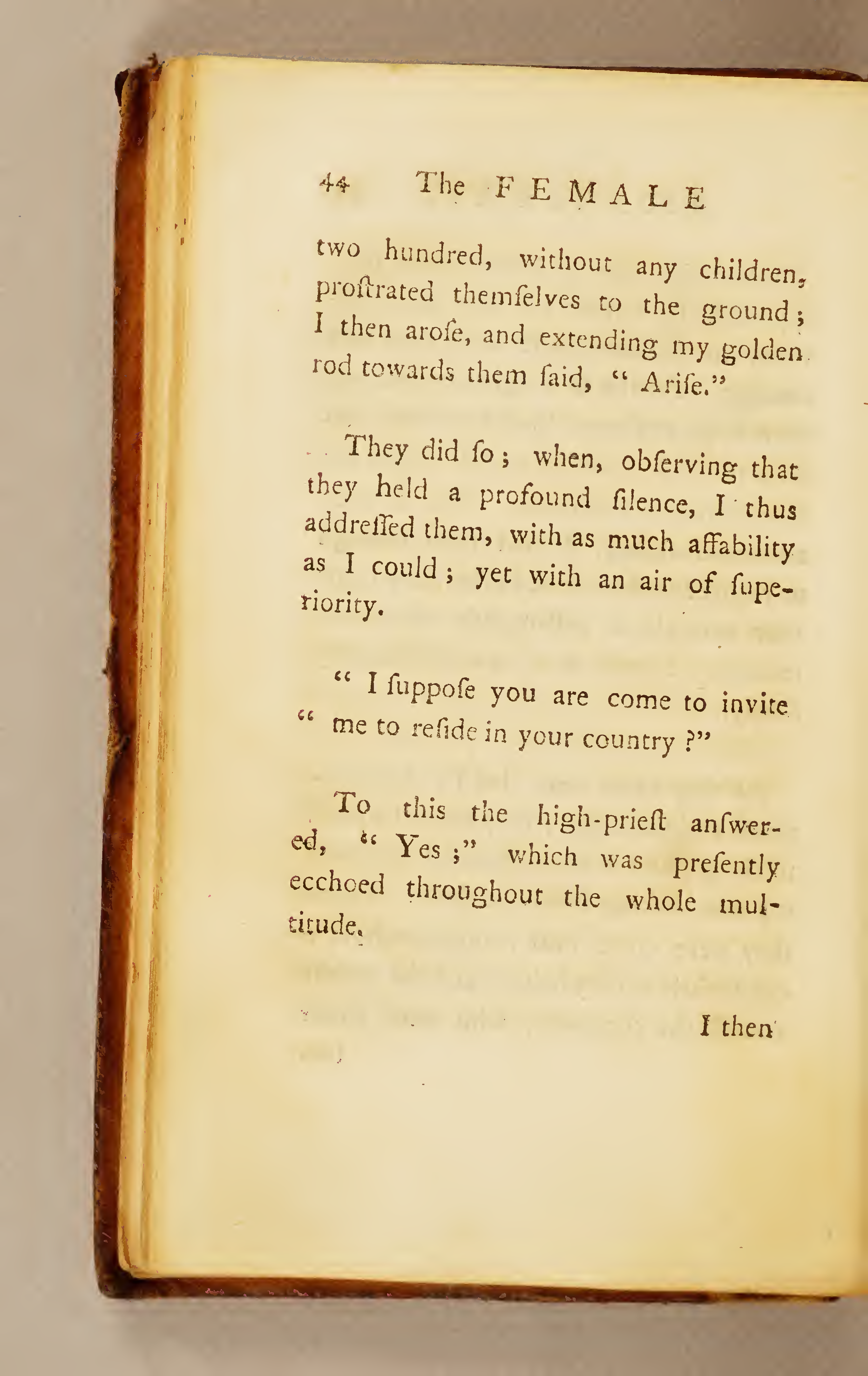
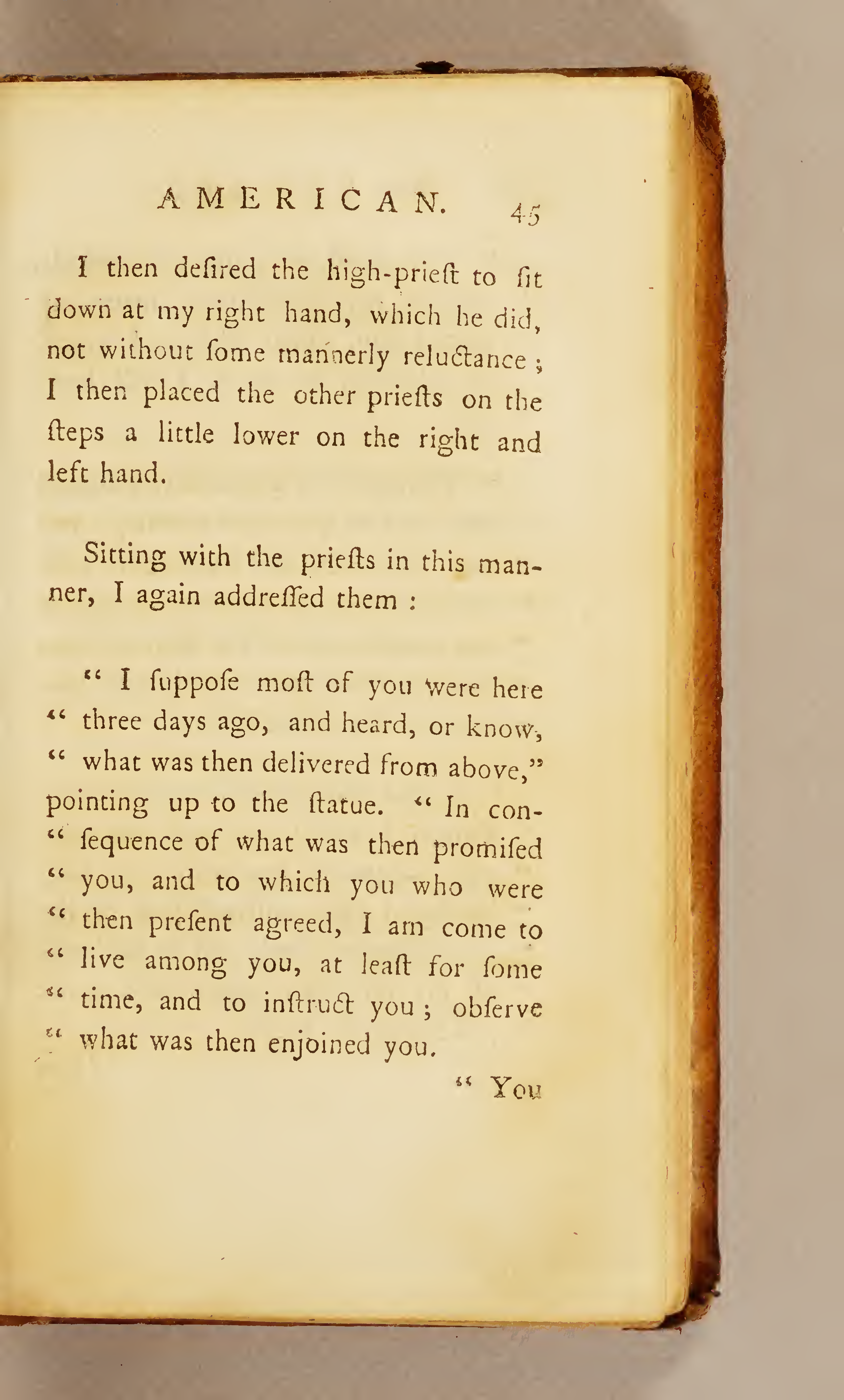

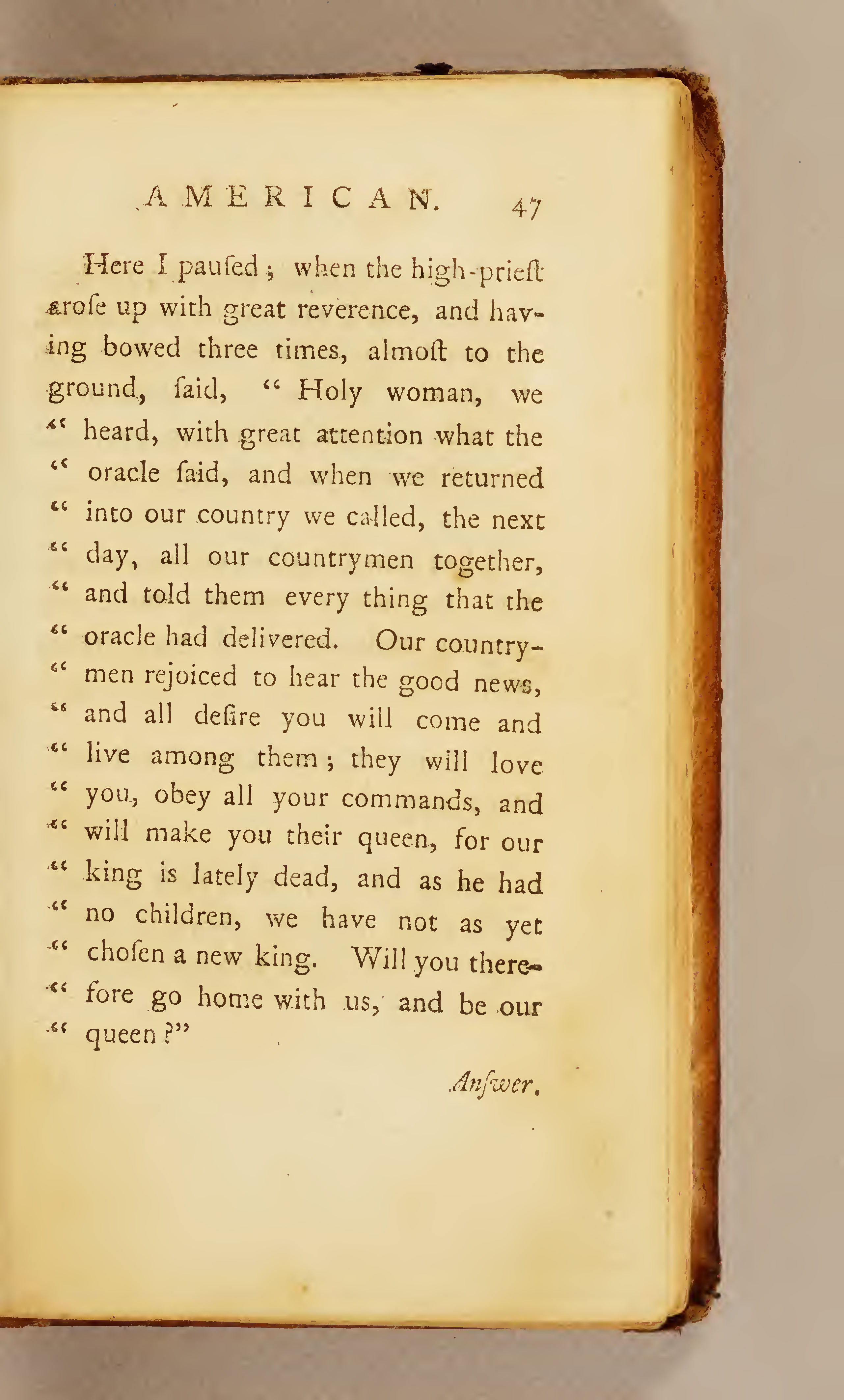
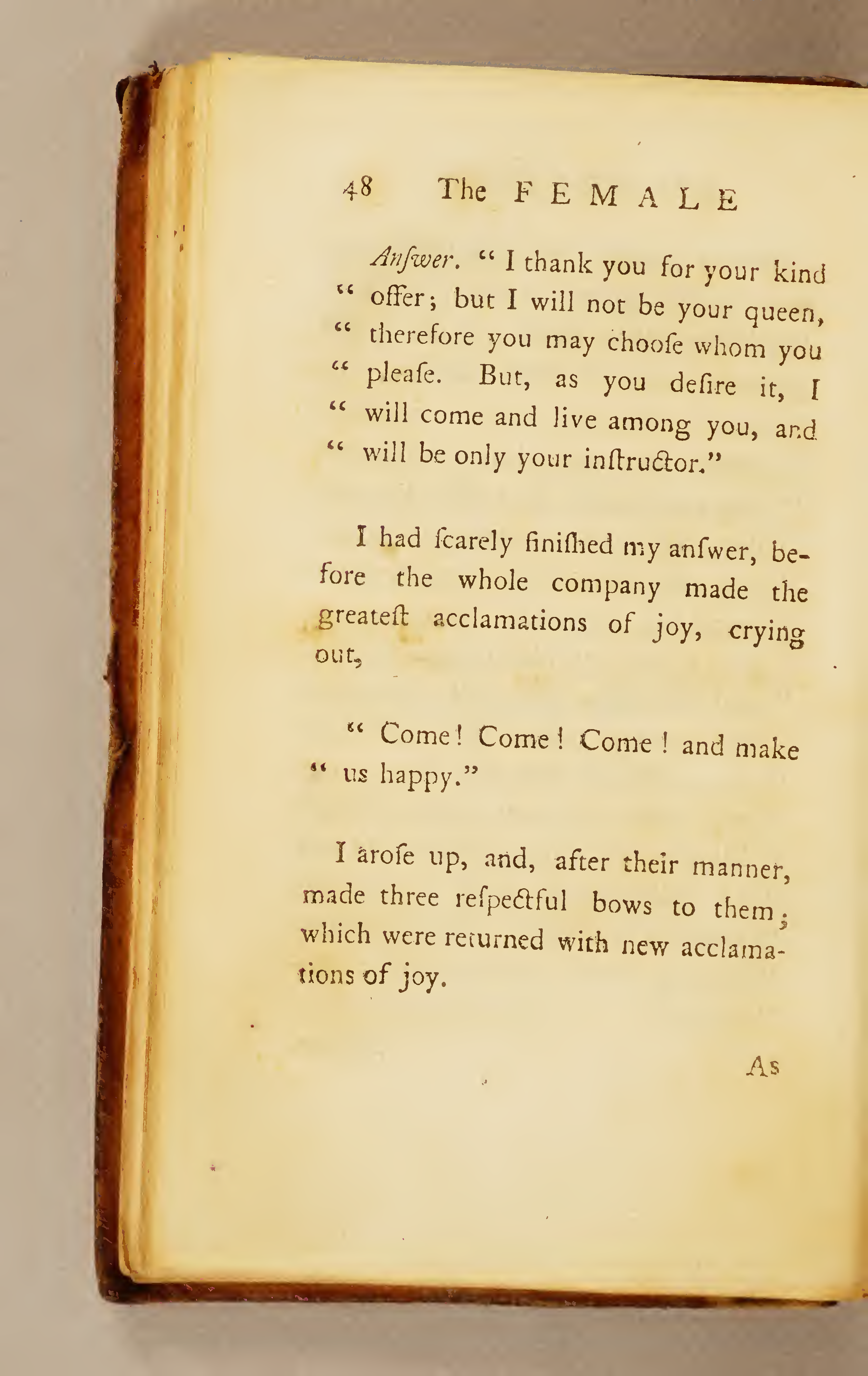
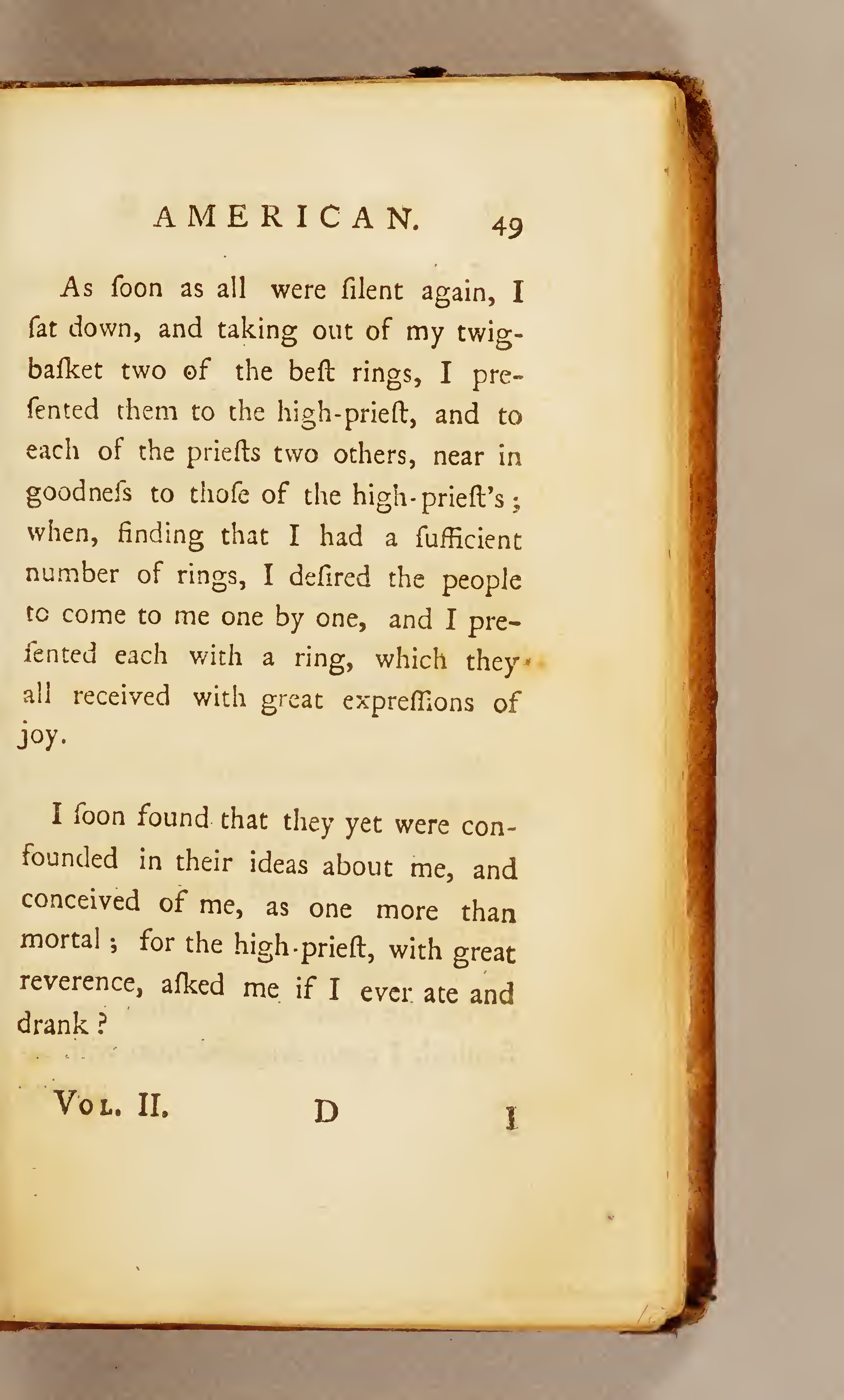
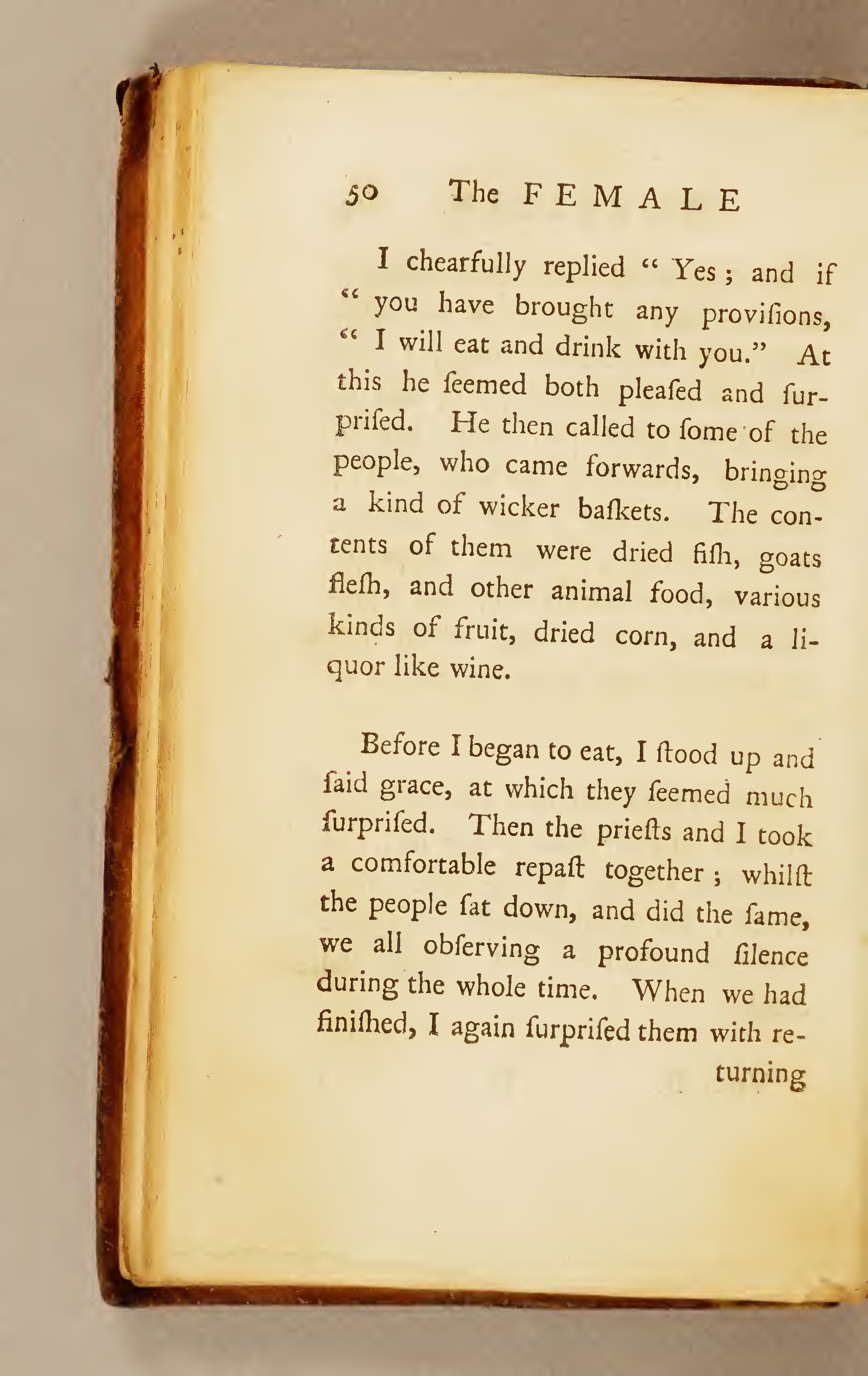
![Page 51 [page breaks after 're-']](https://anthologyassetsdev.lib.virginia.edu/winkfield-female-american-2/pageImages/fa_Page_052.png)
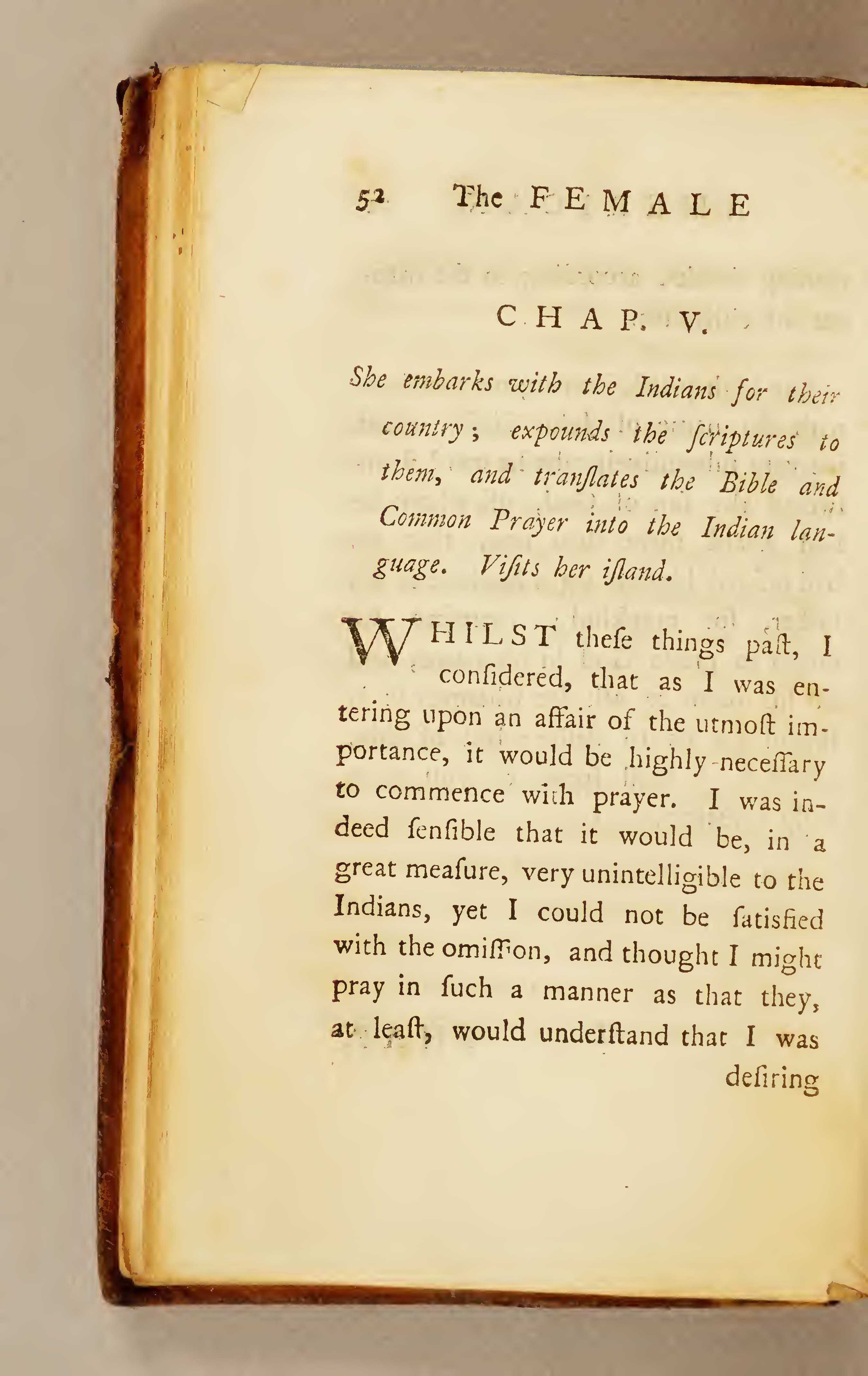
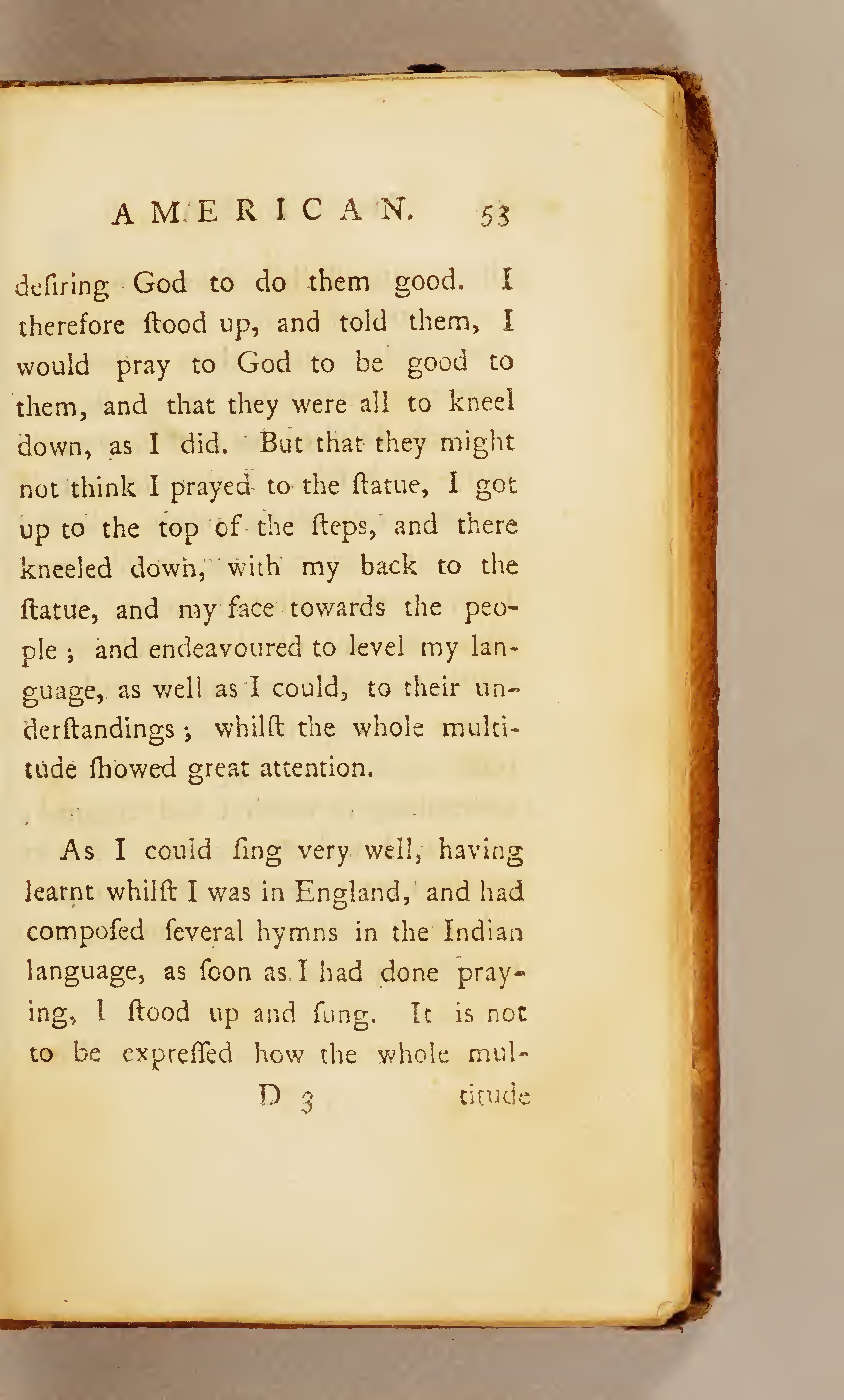
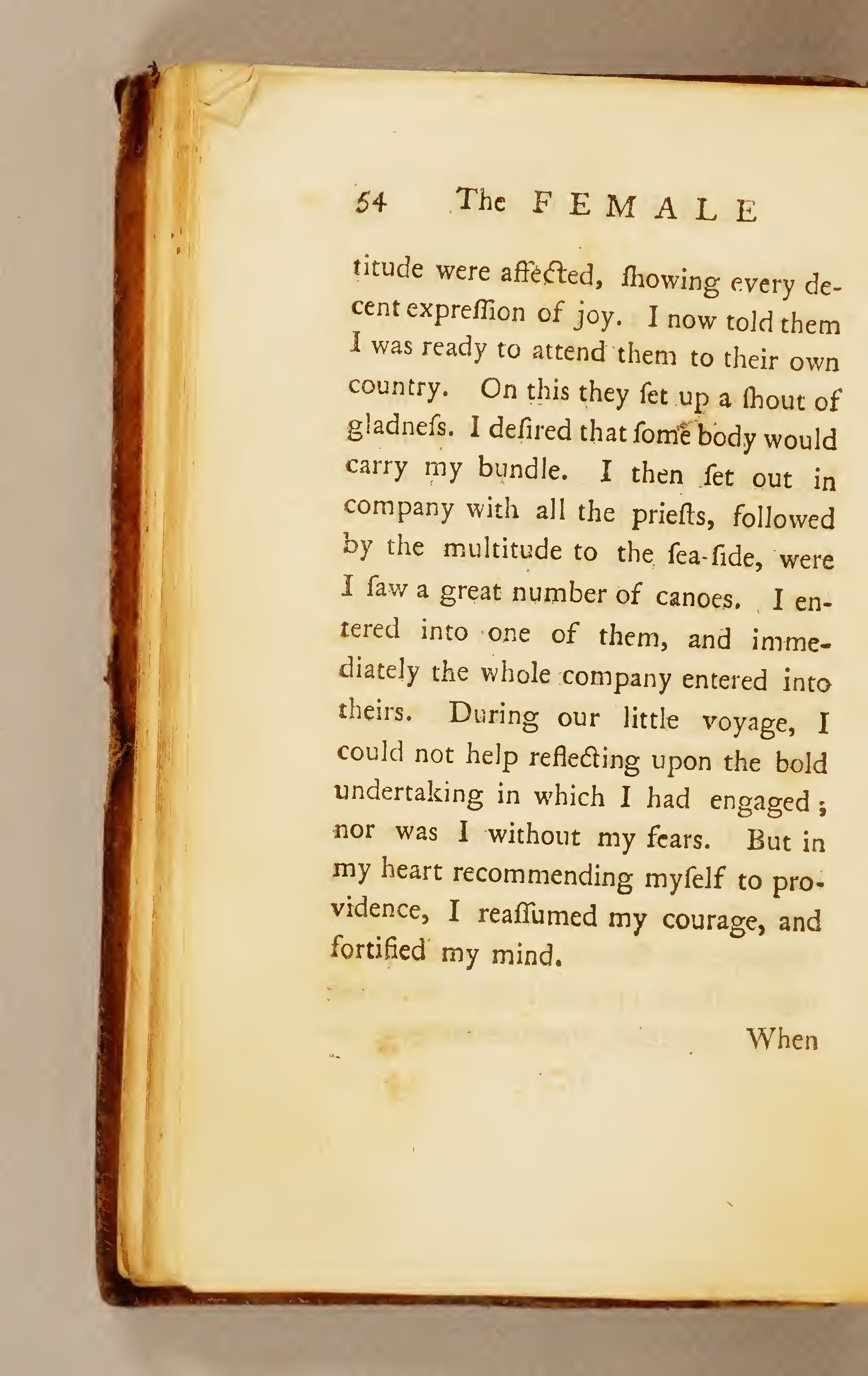

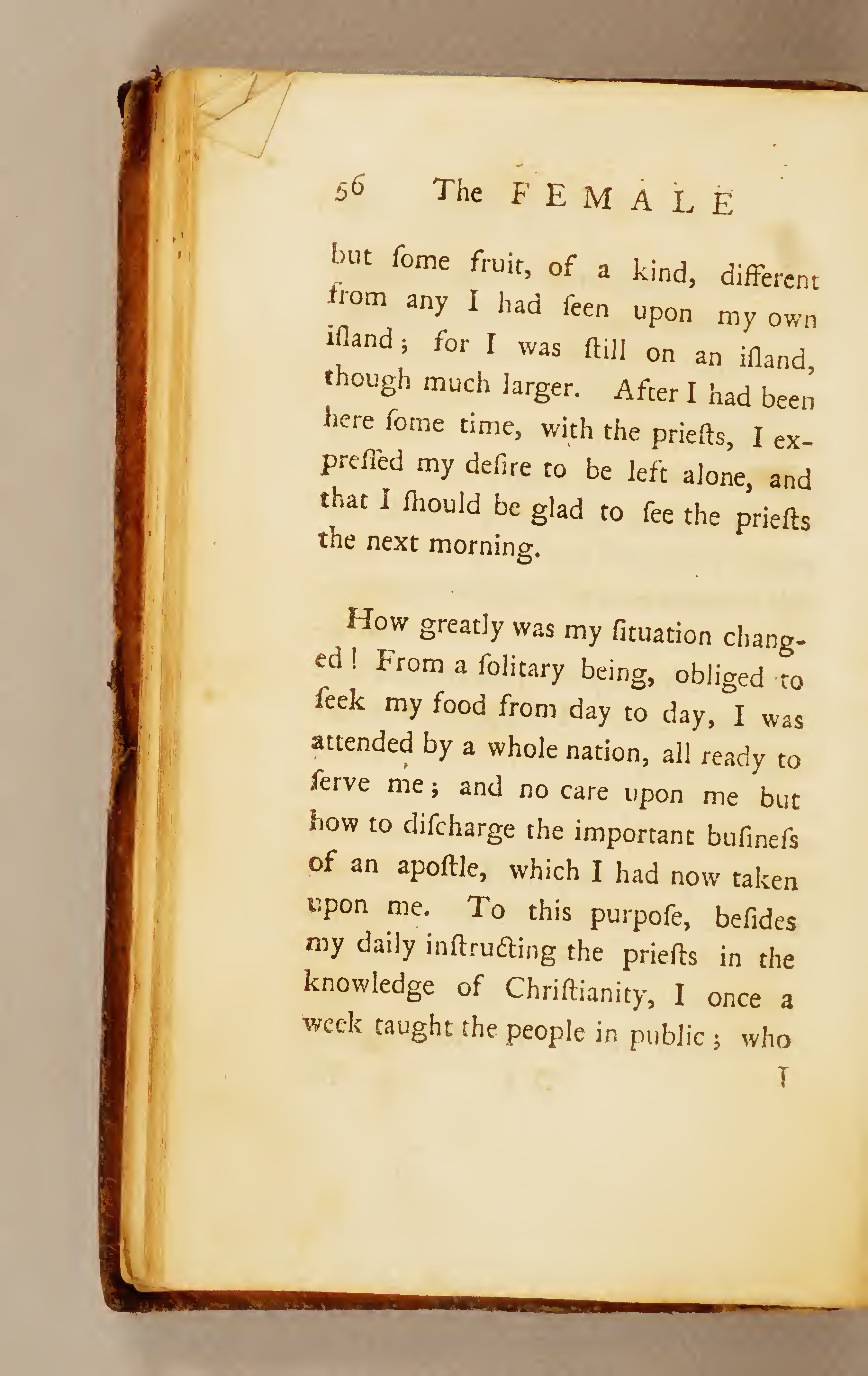
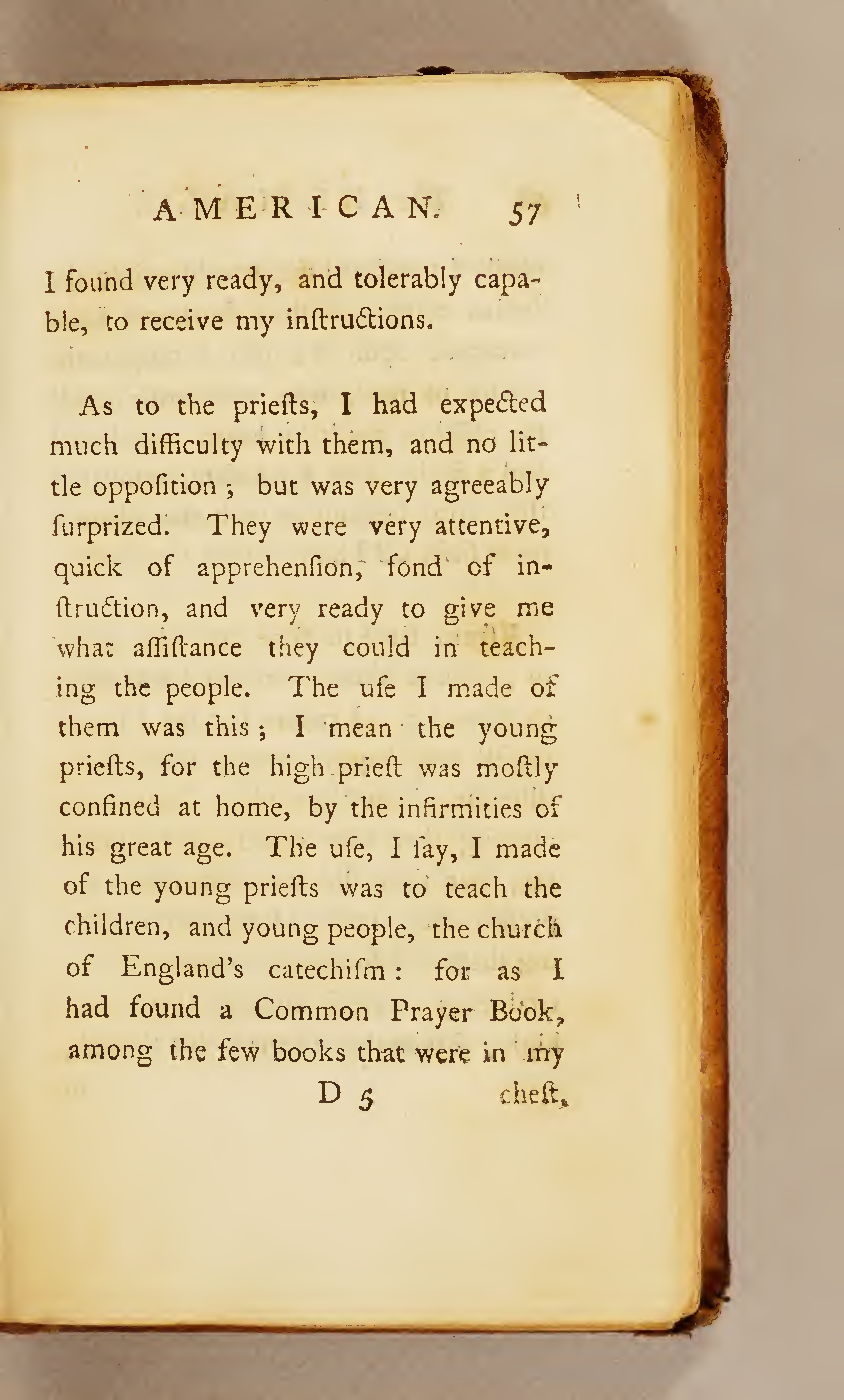
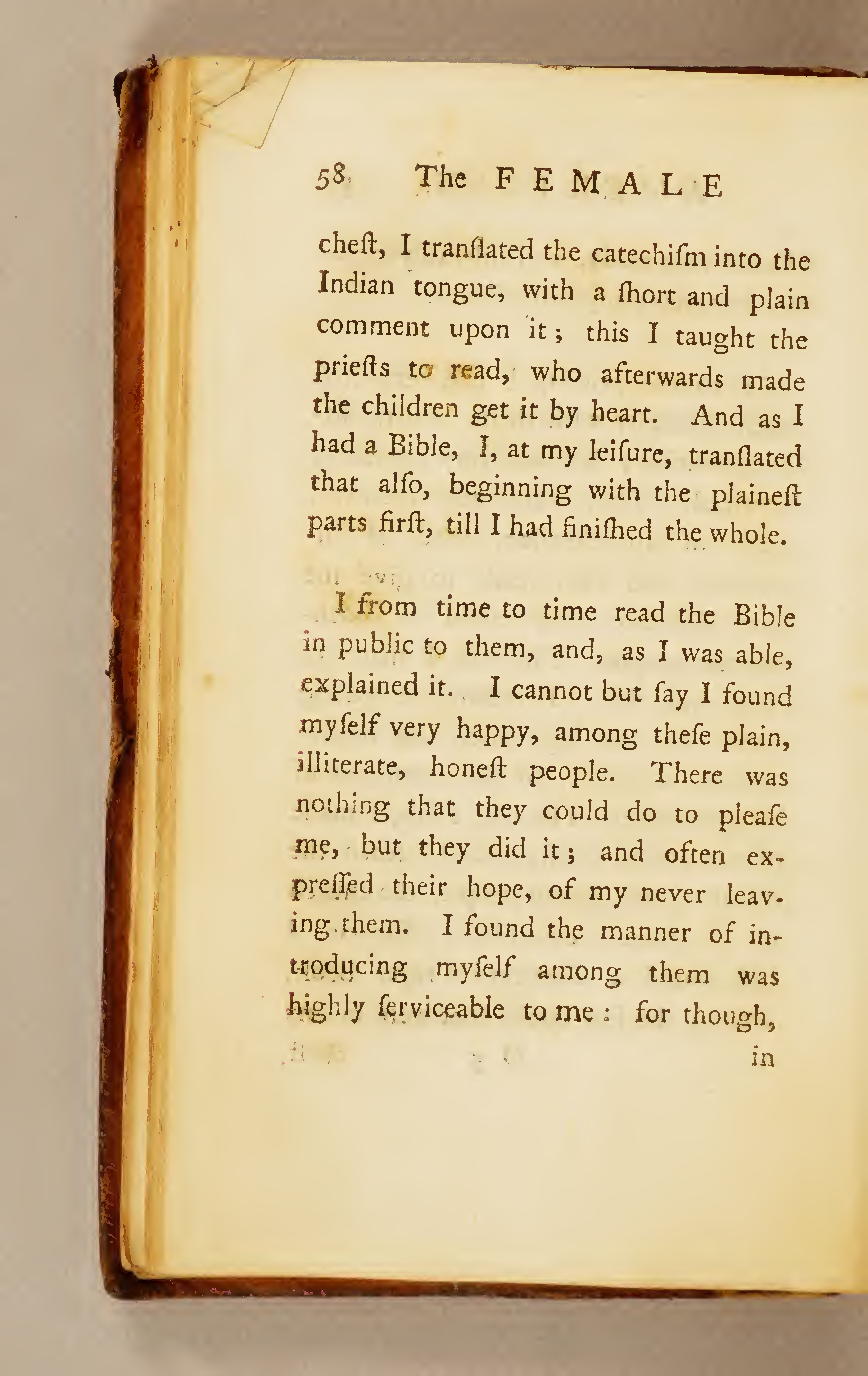
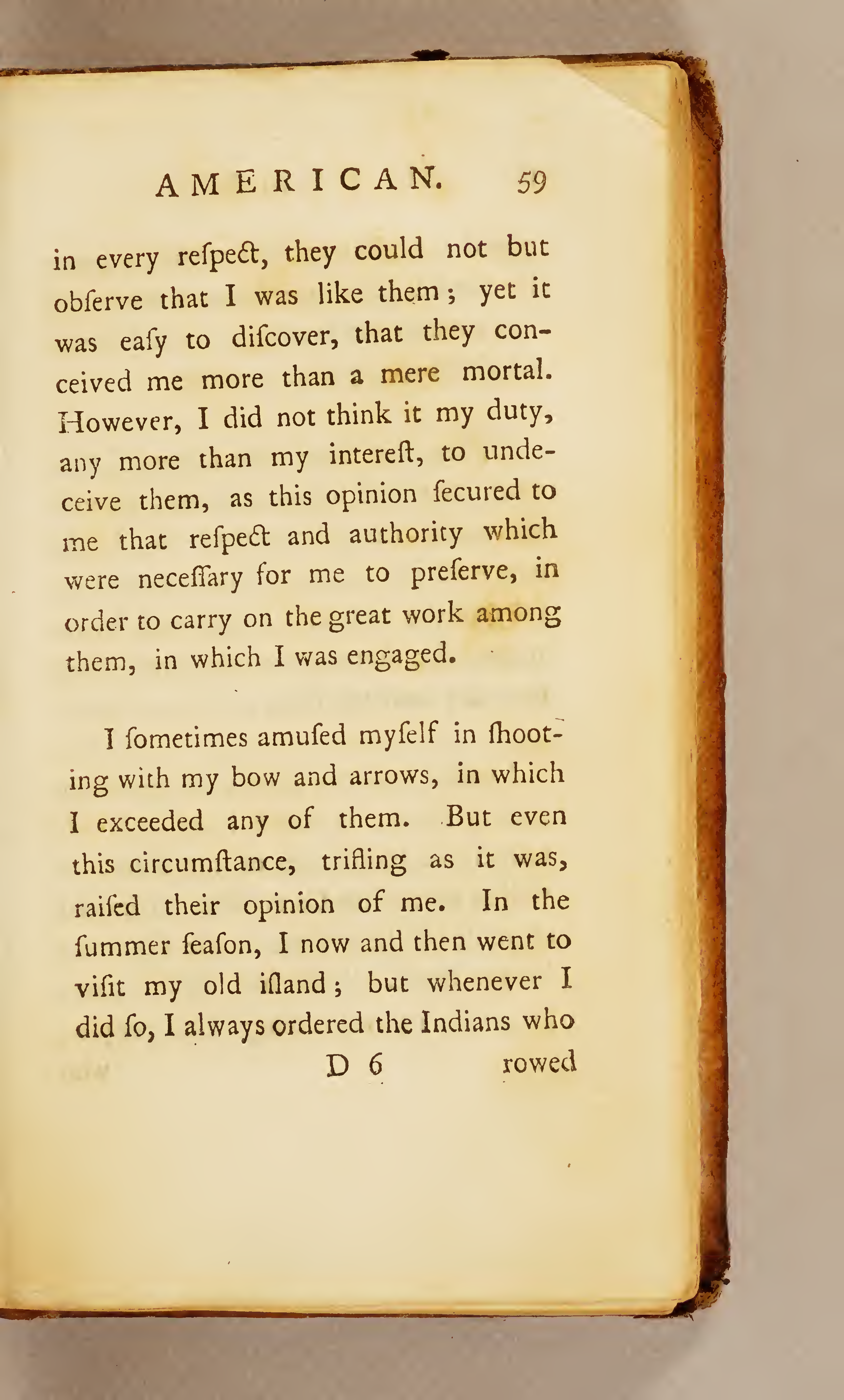

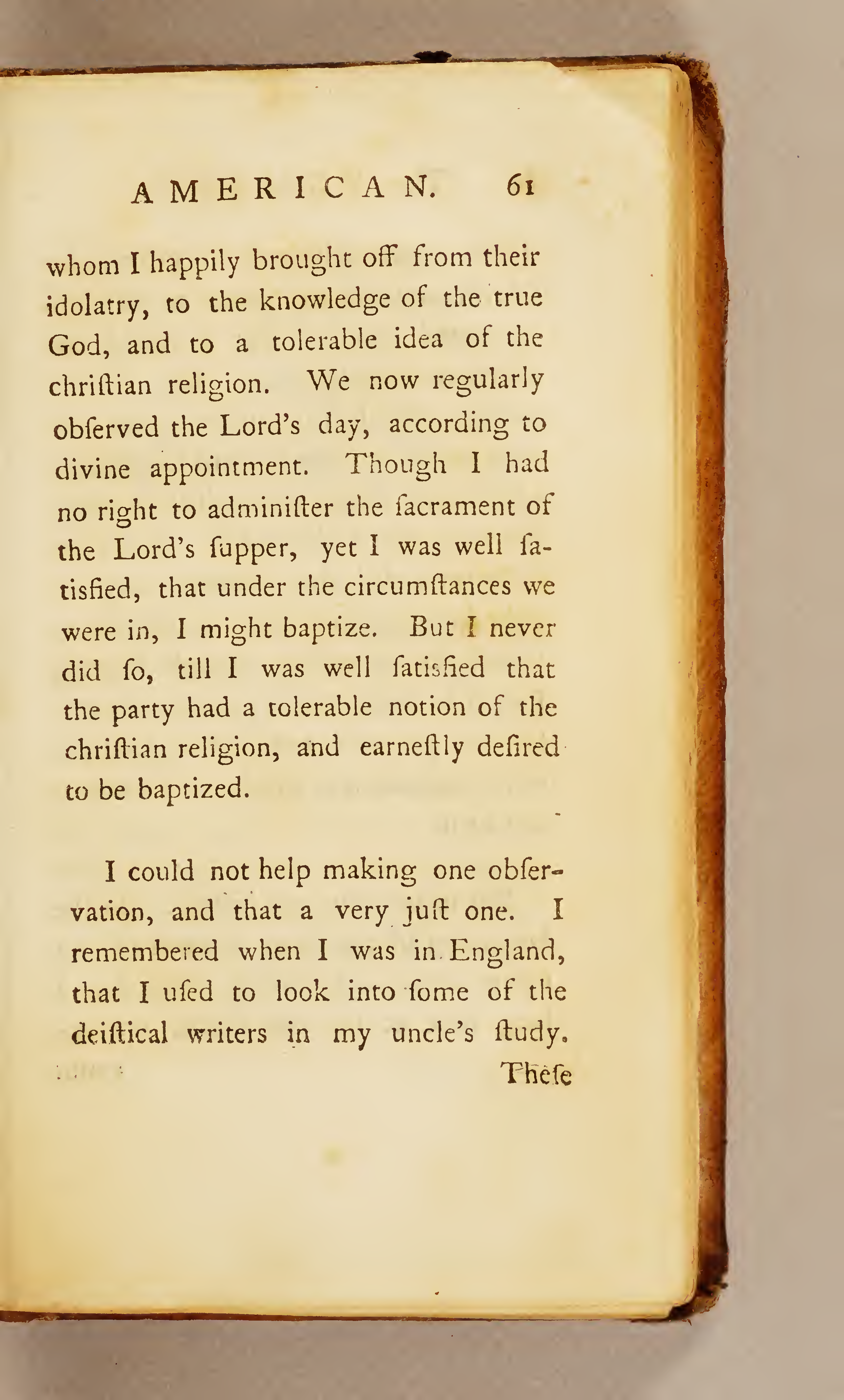
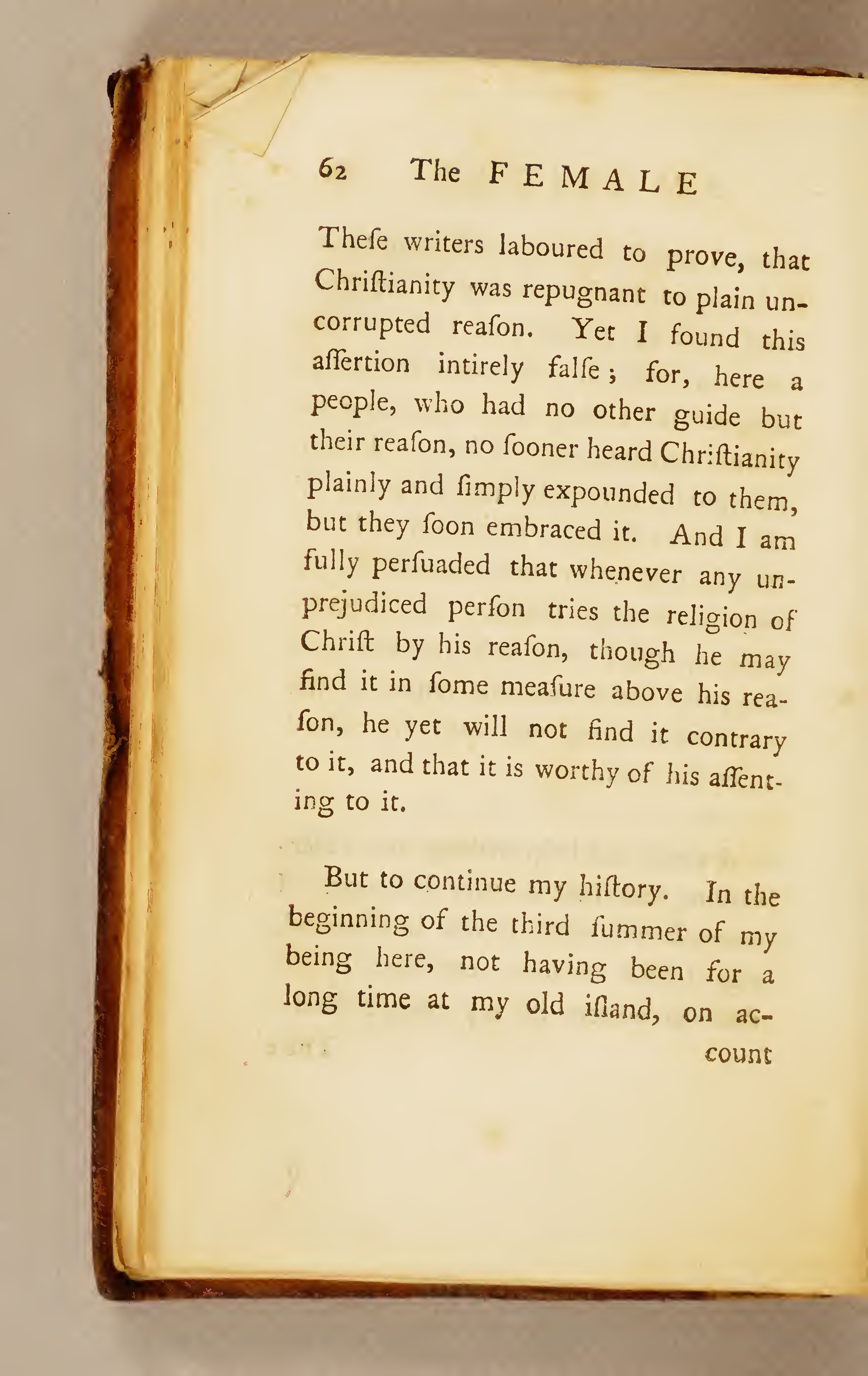
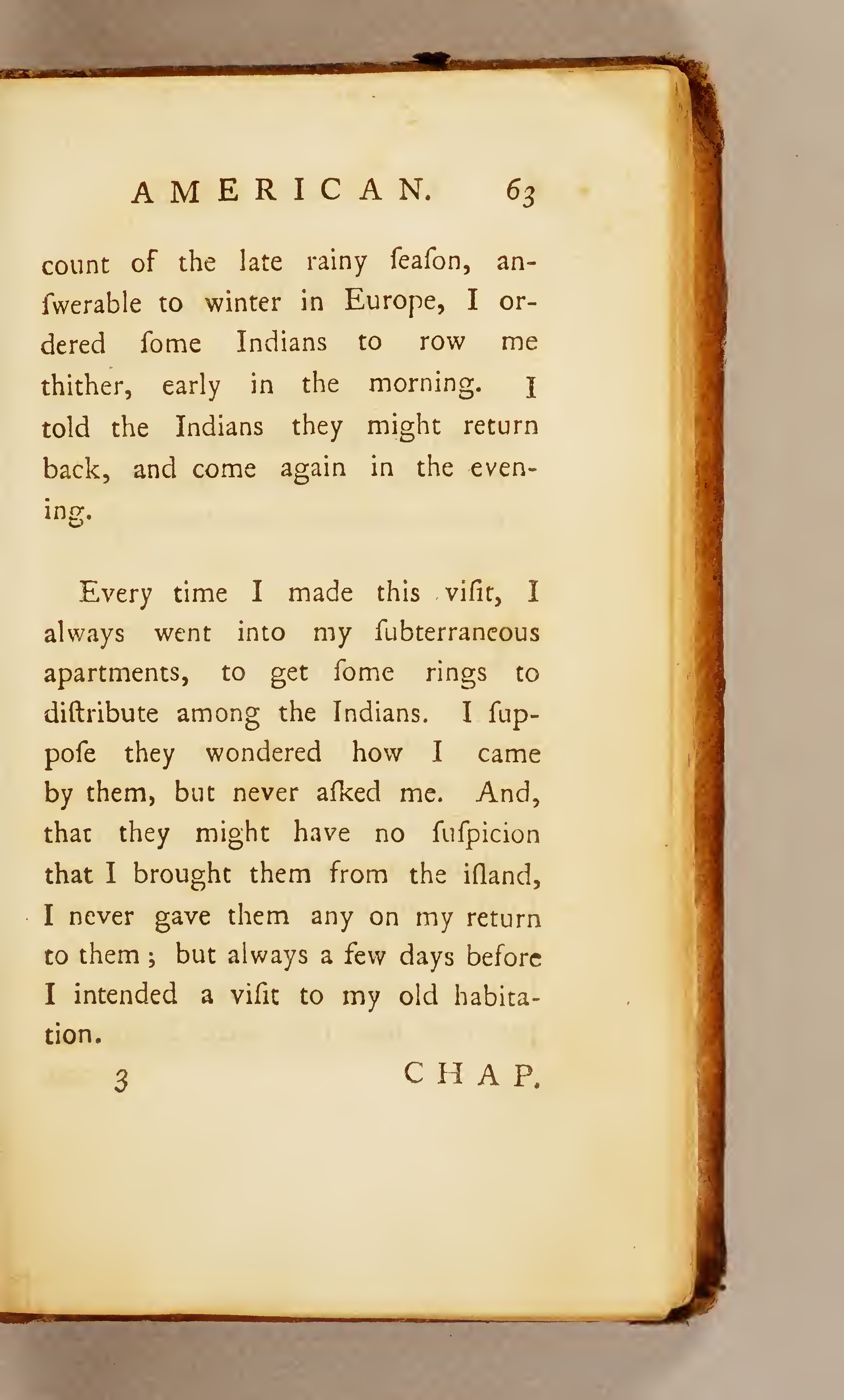
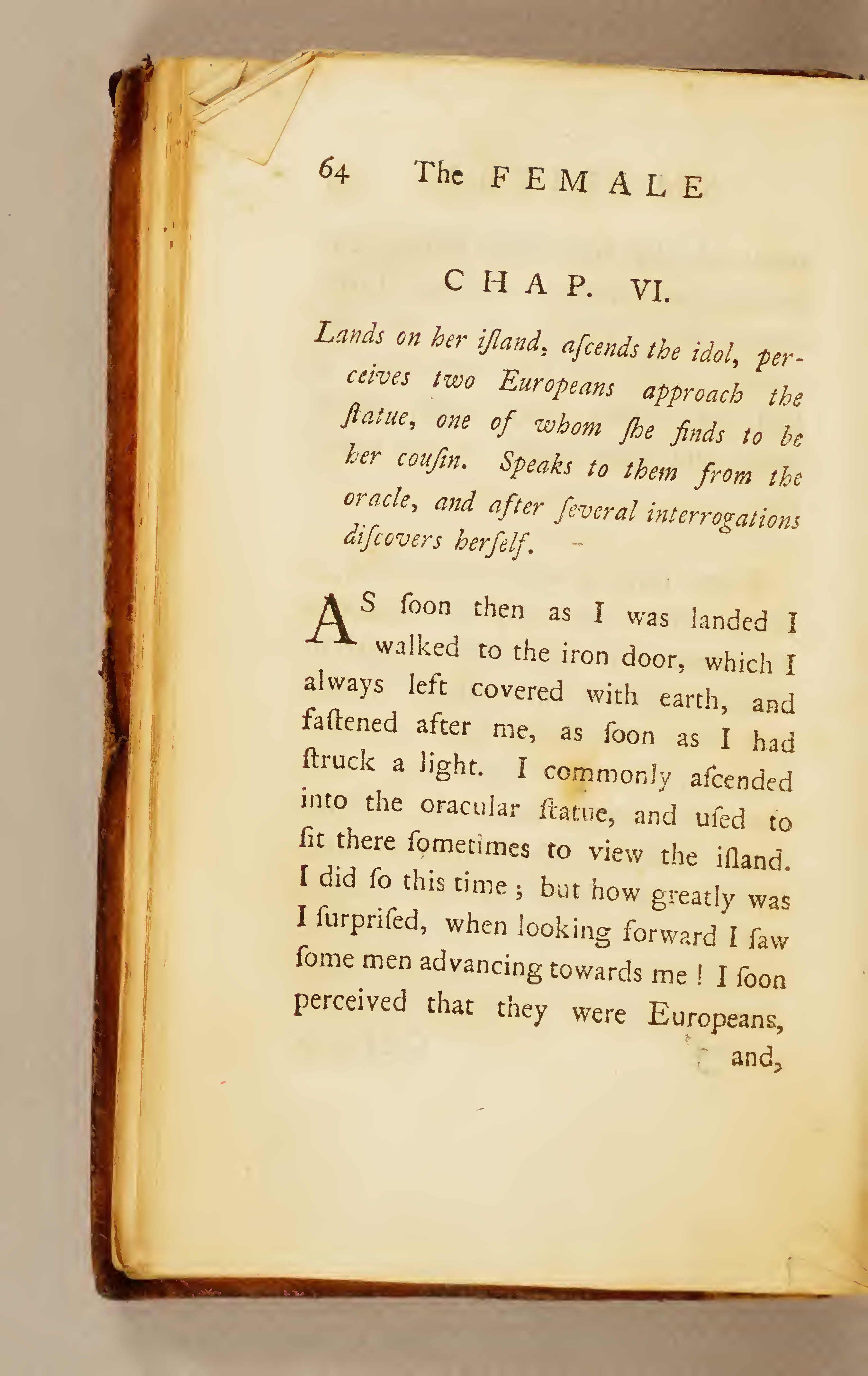
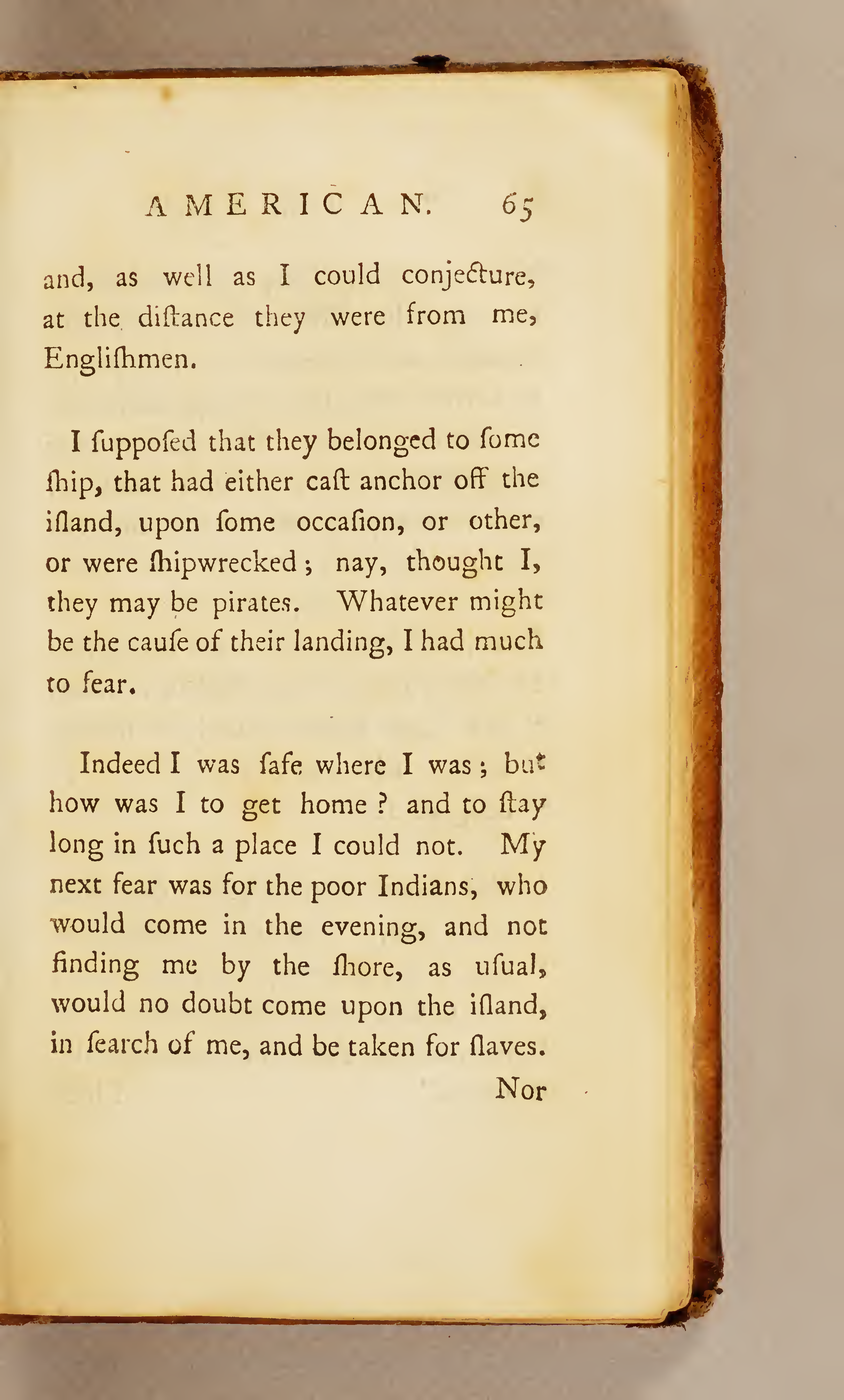
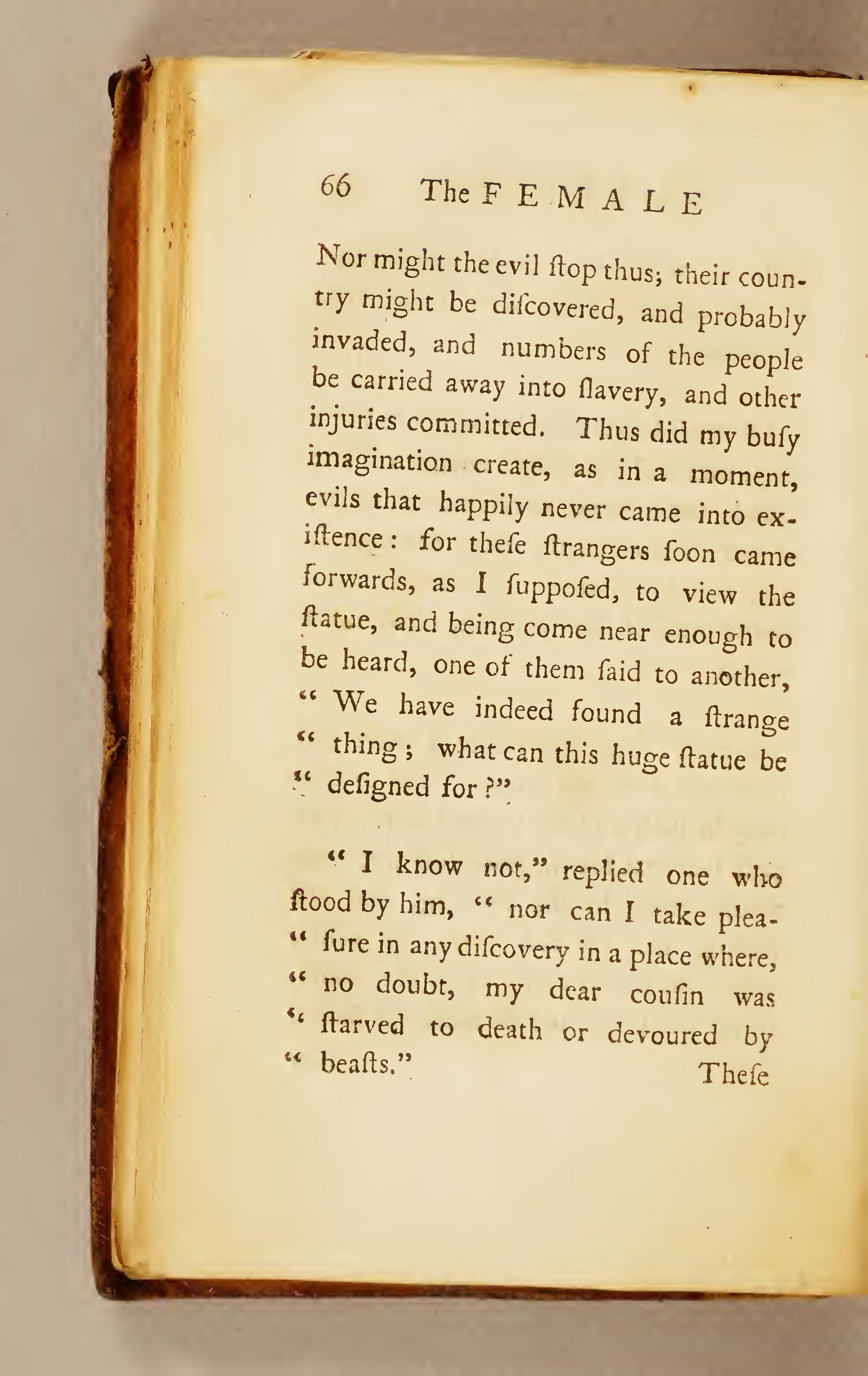
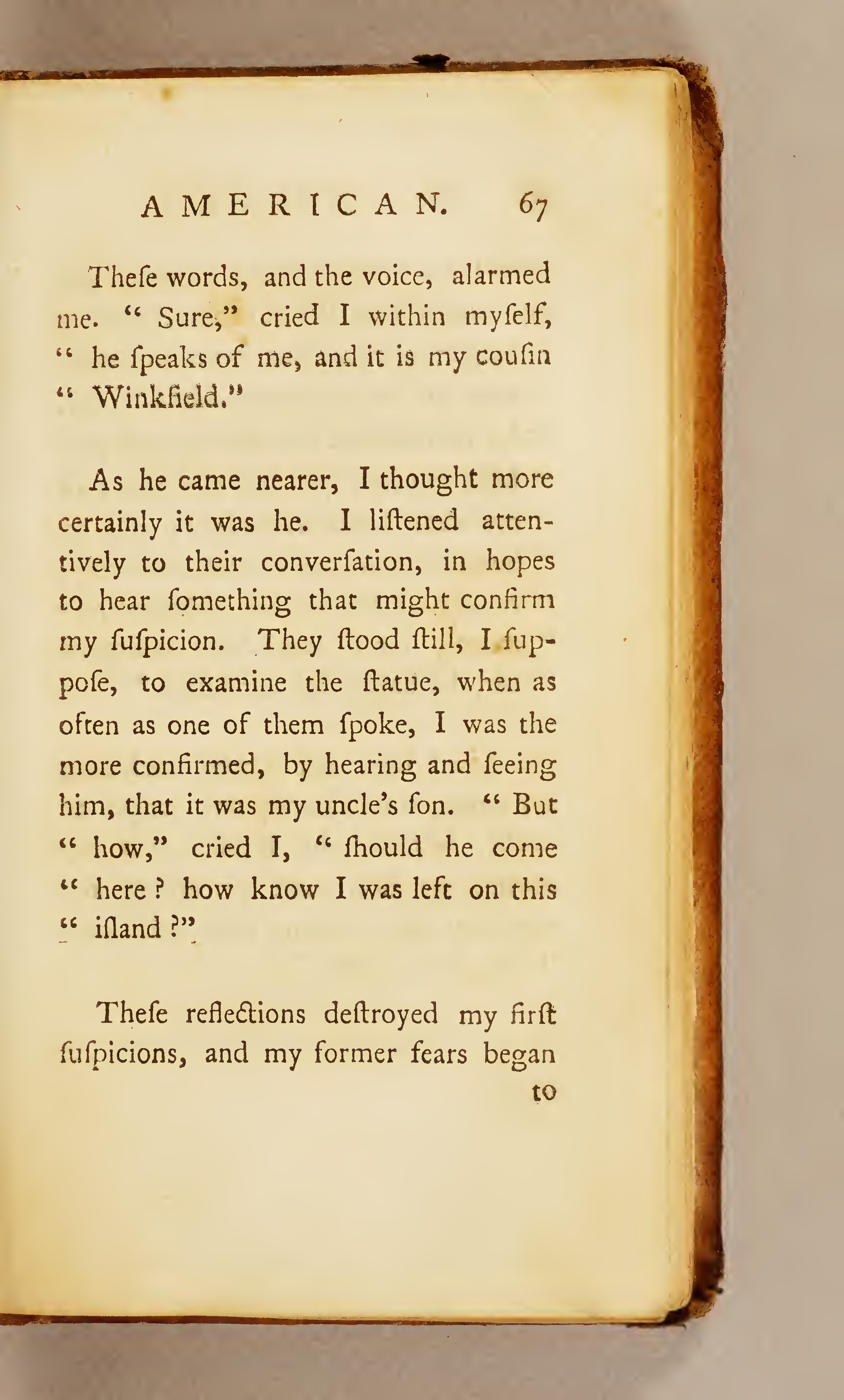
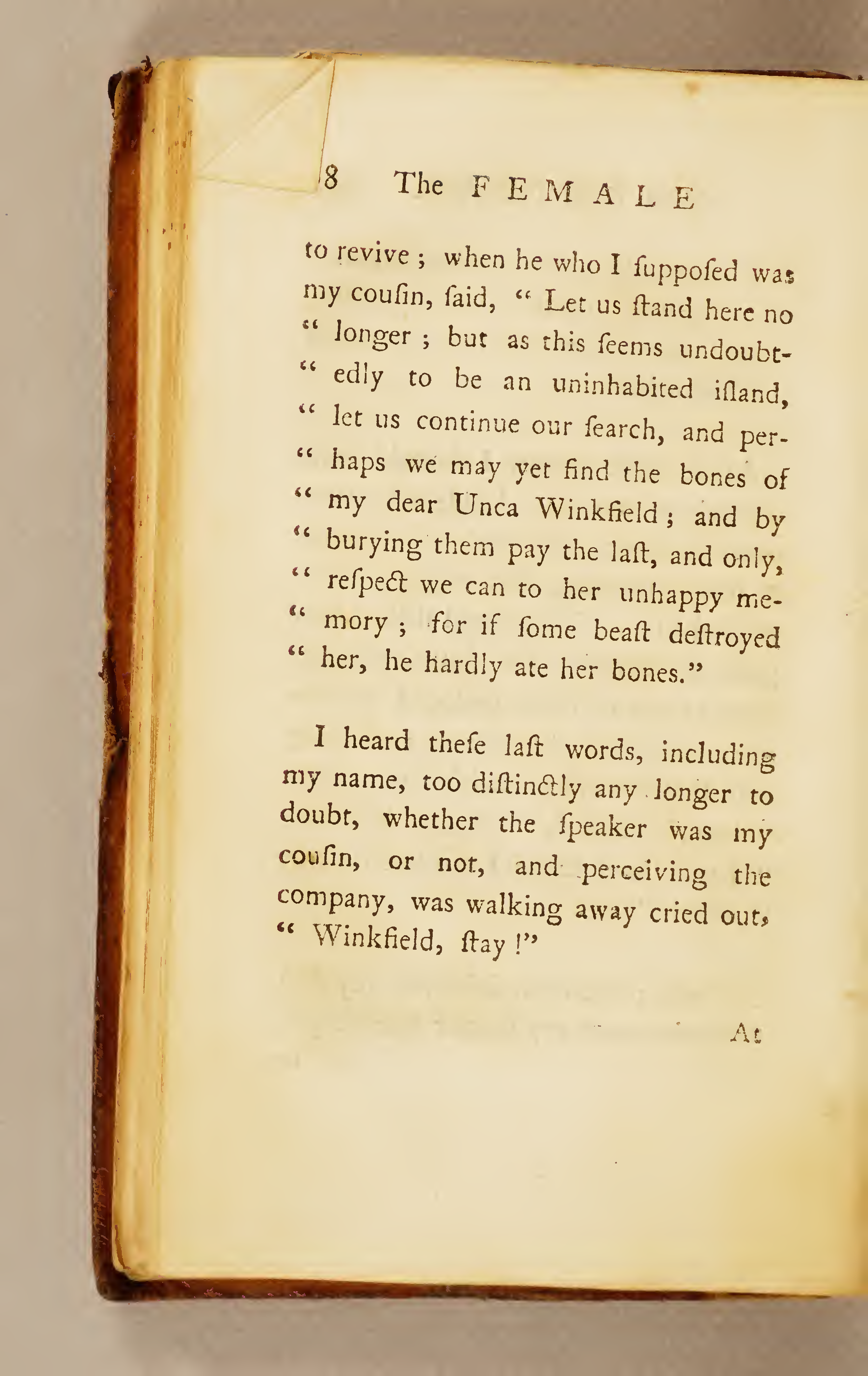
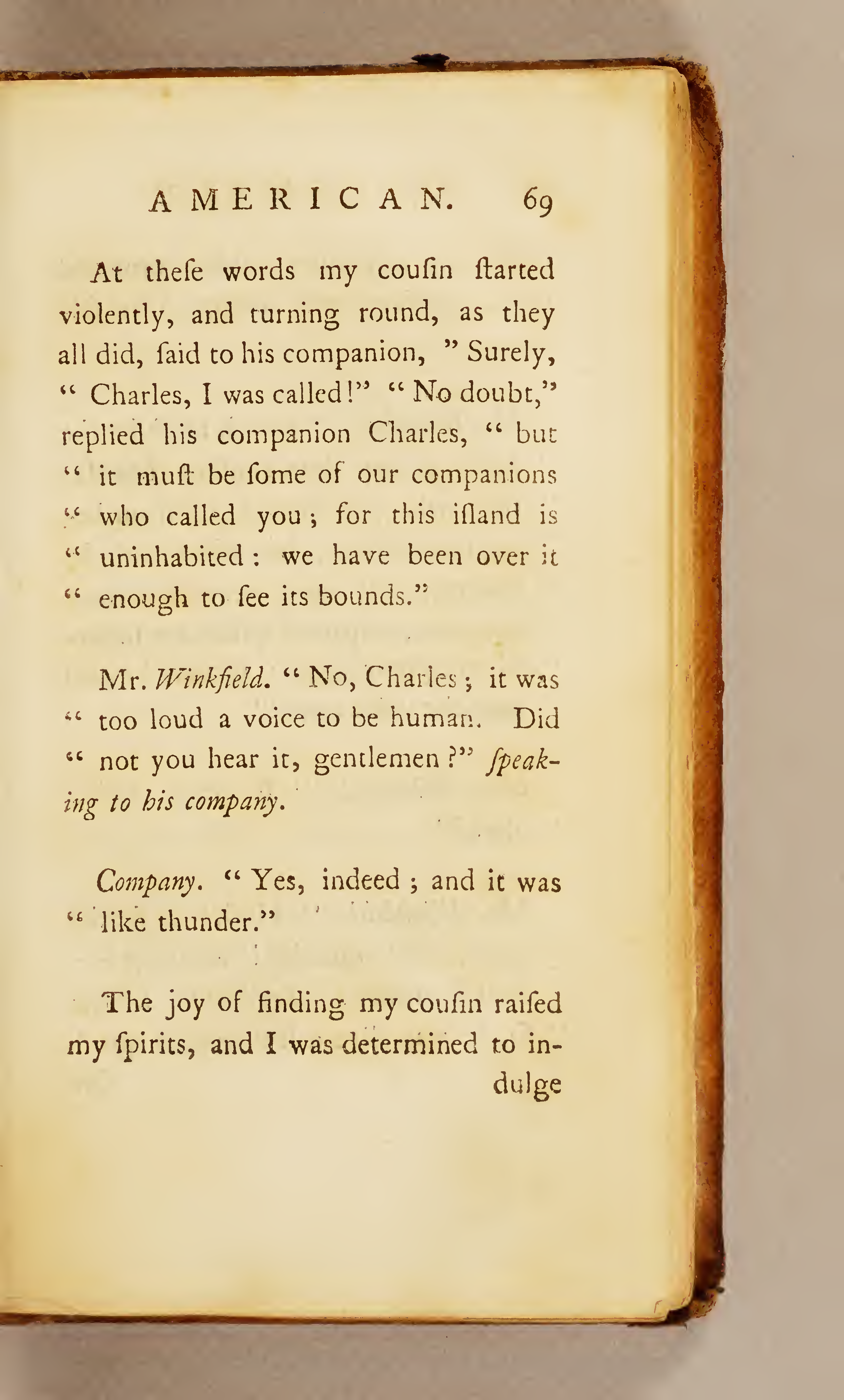
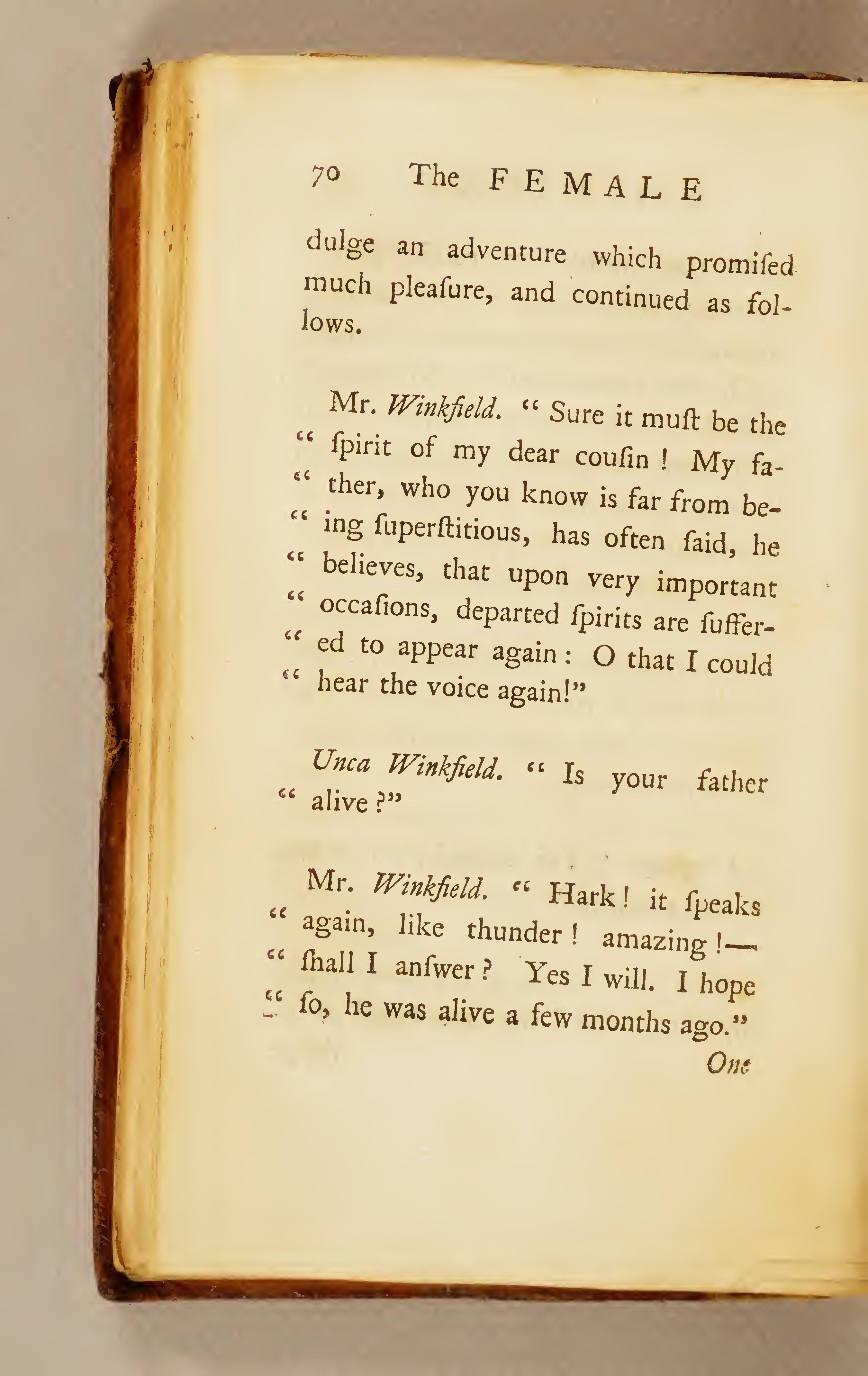
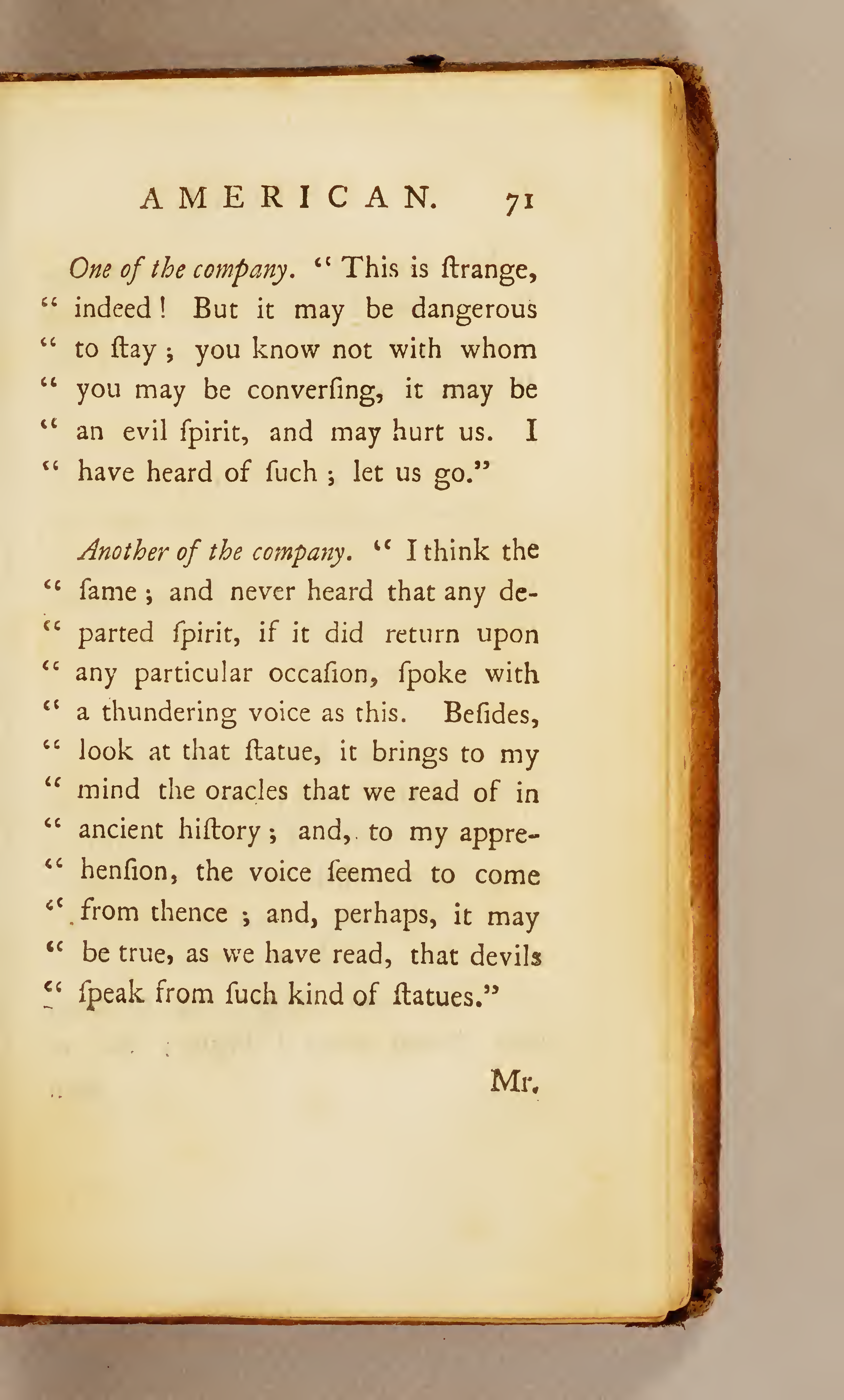
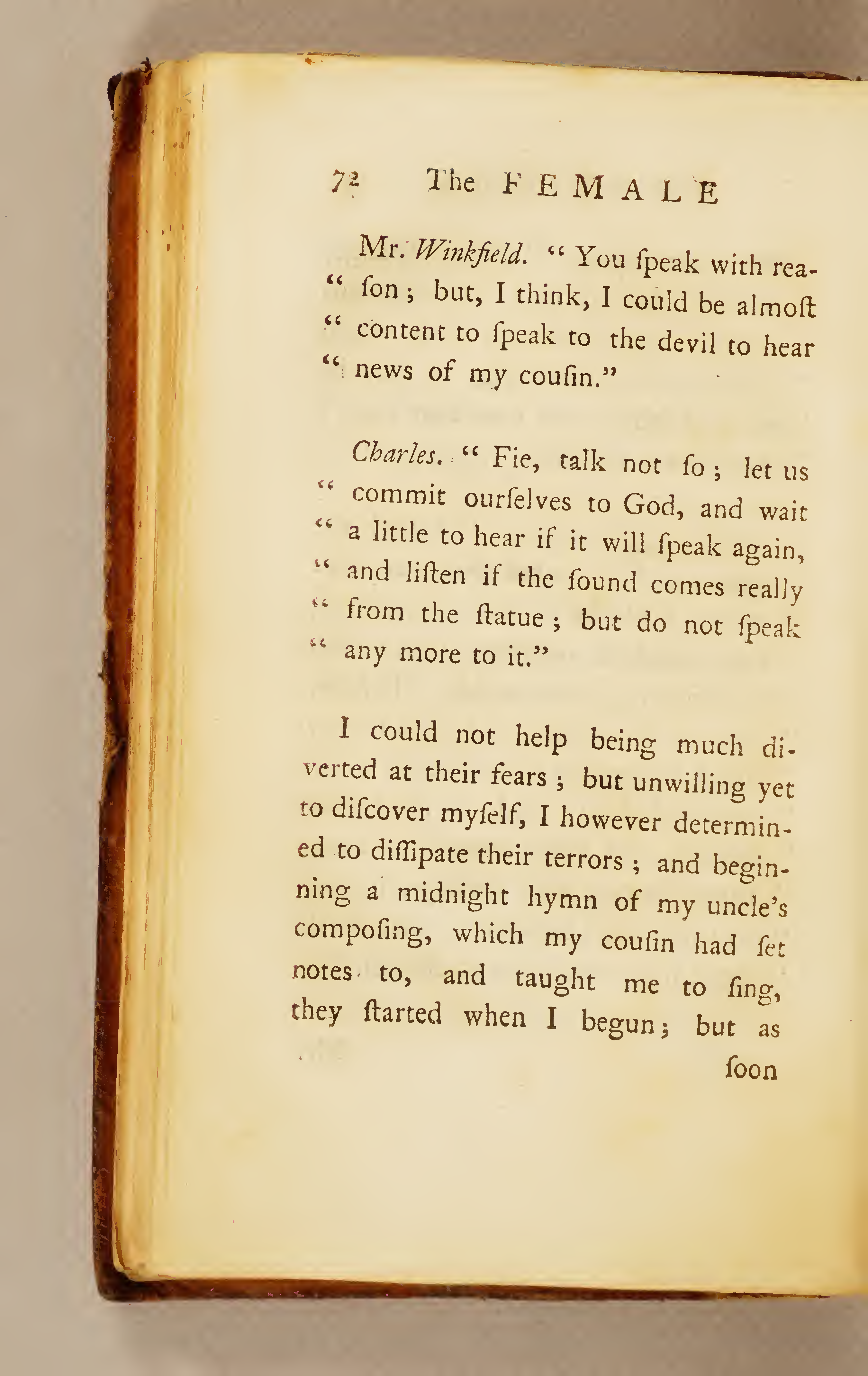
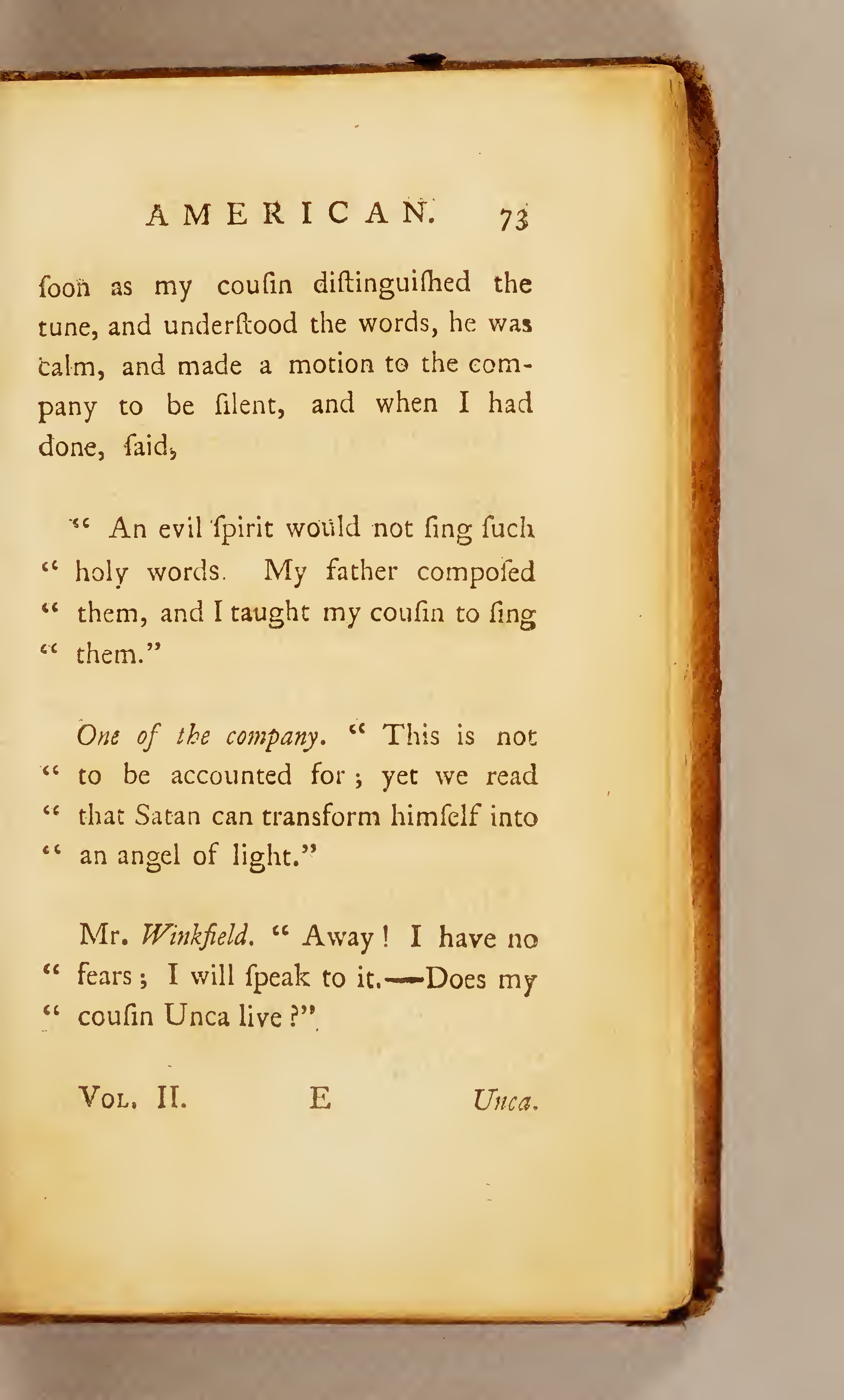
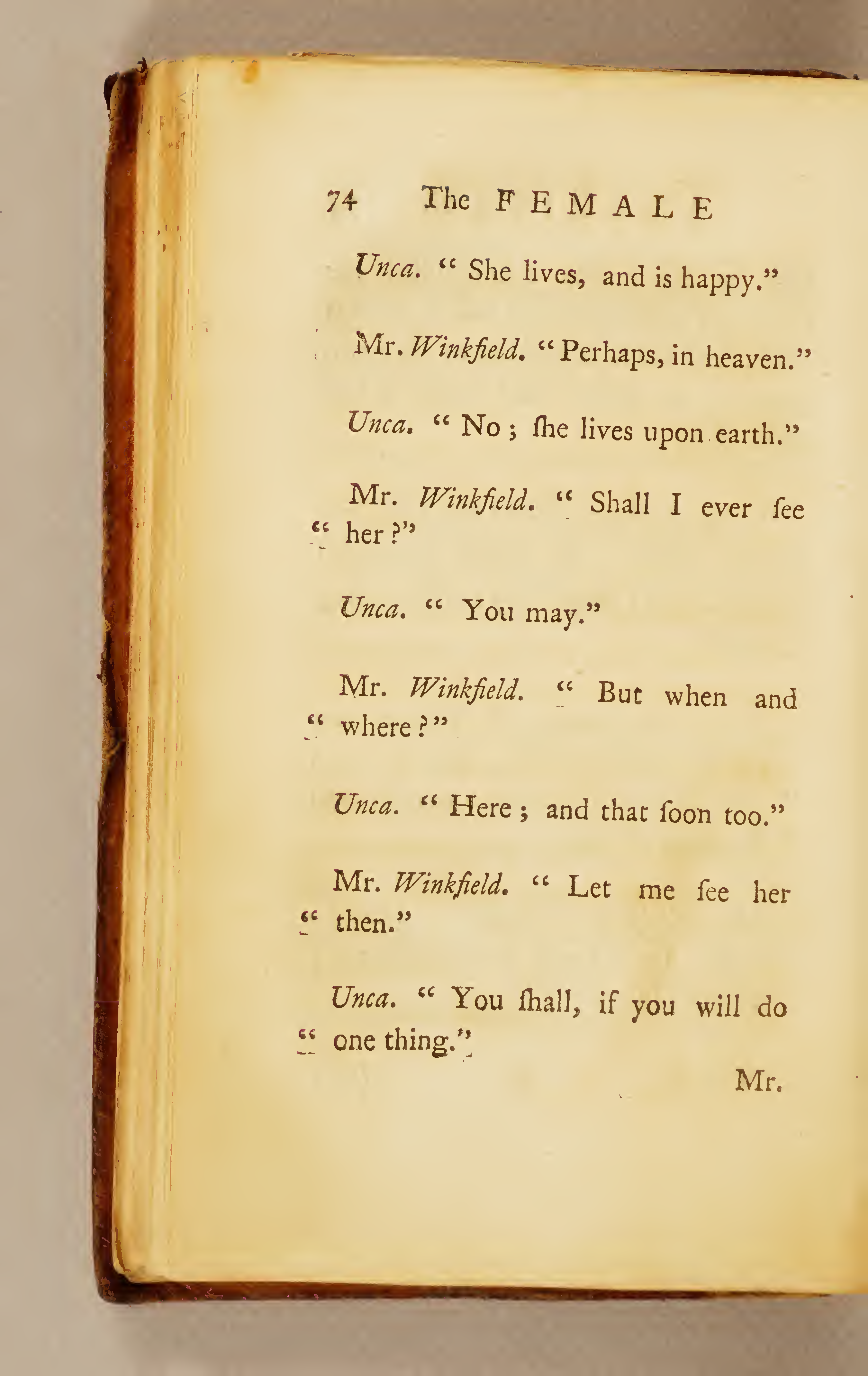
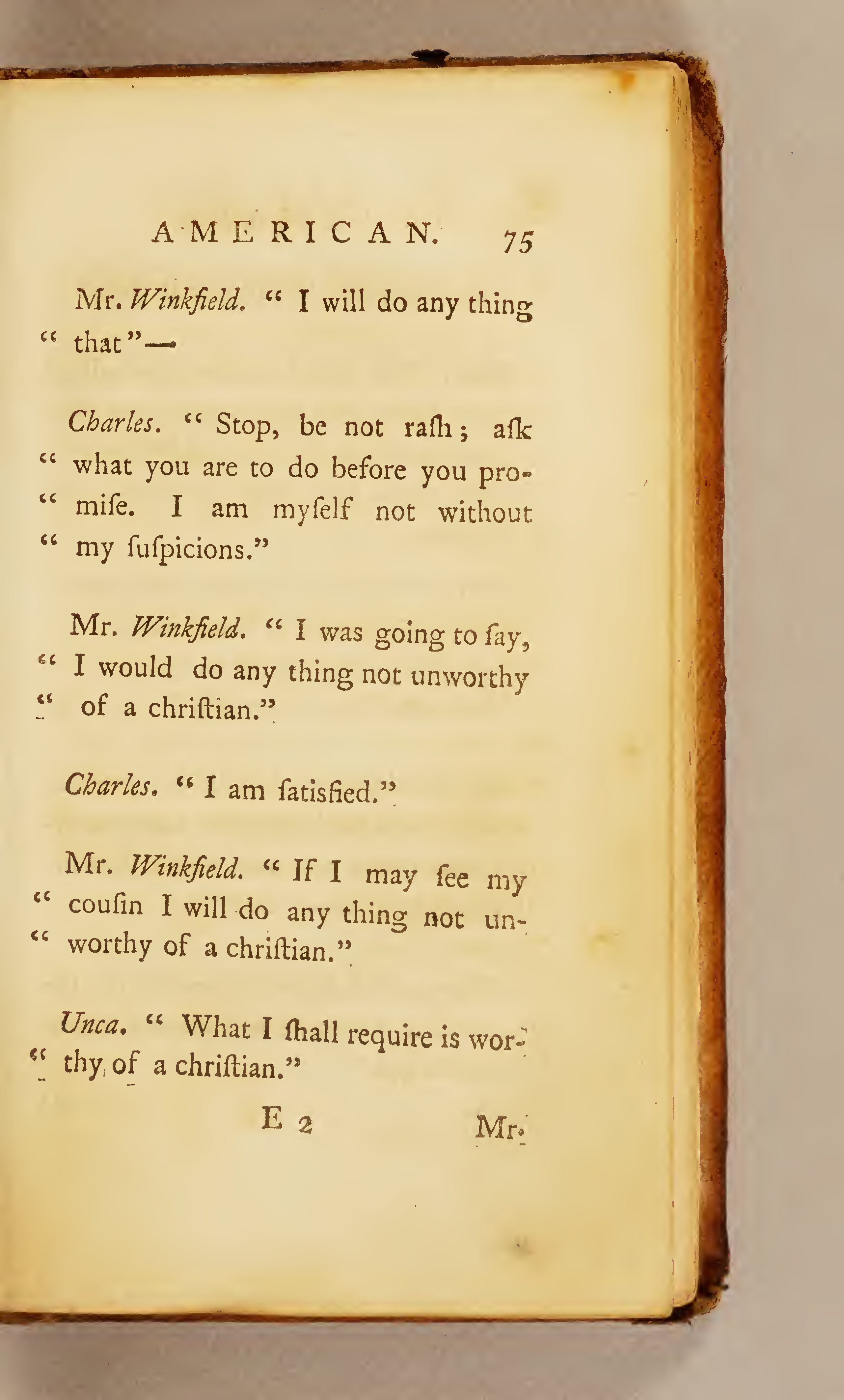
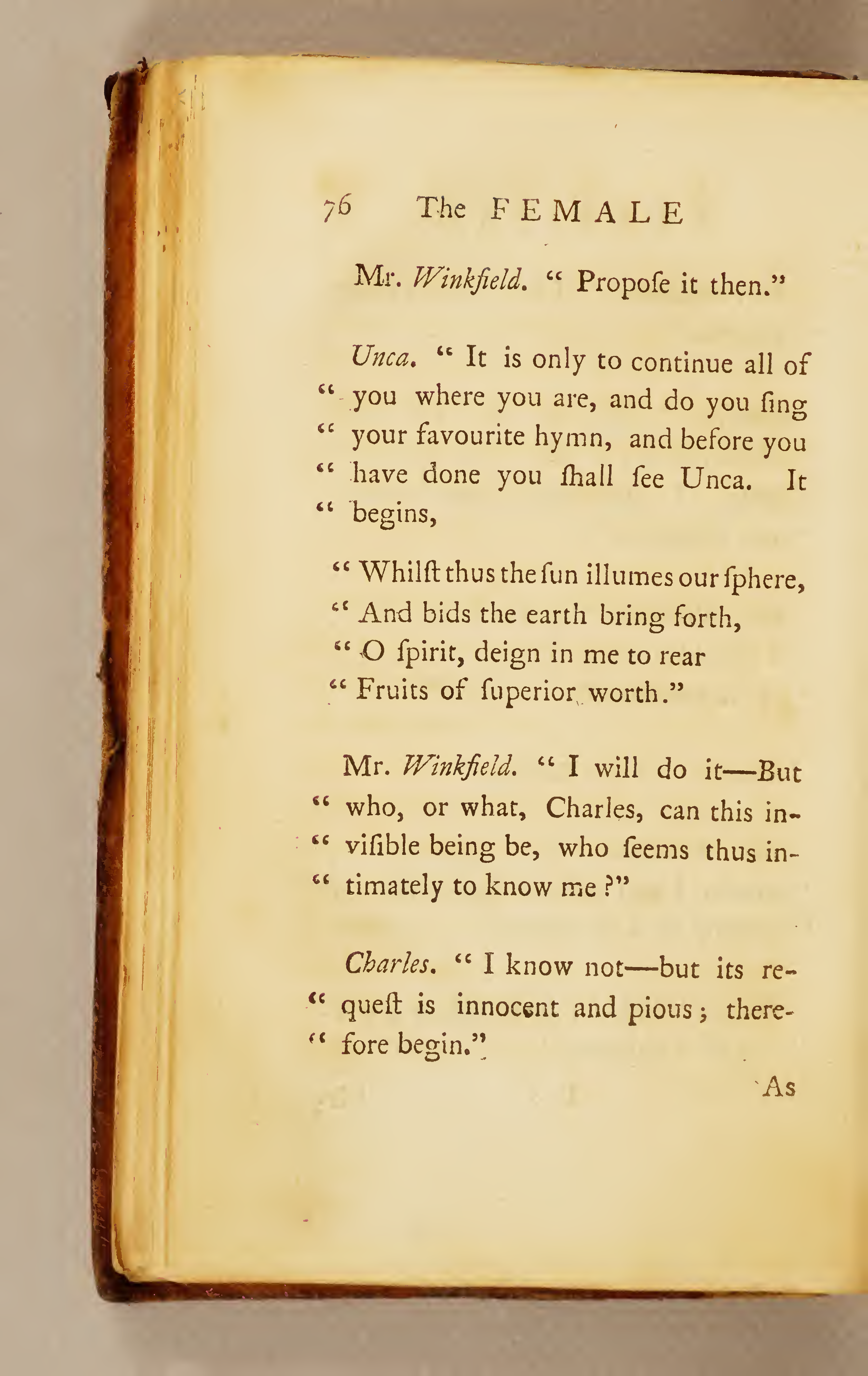
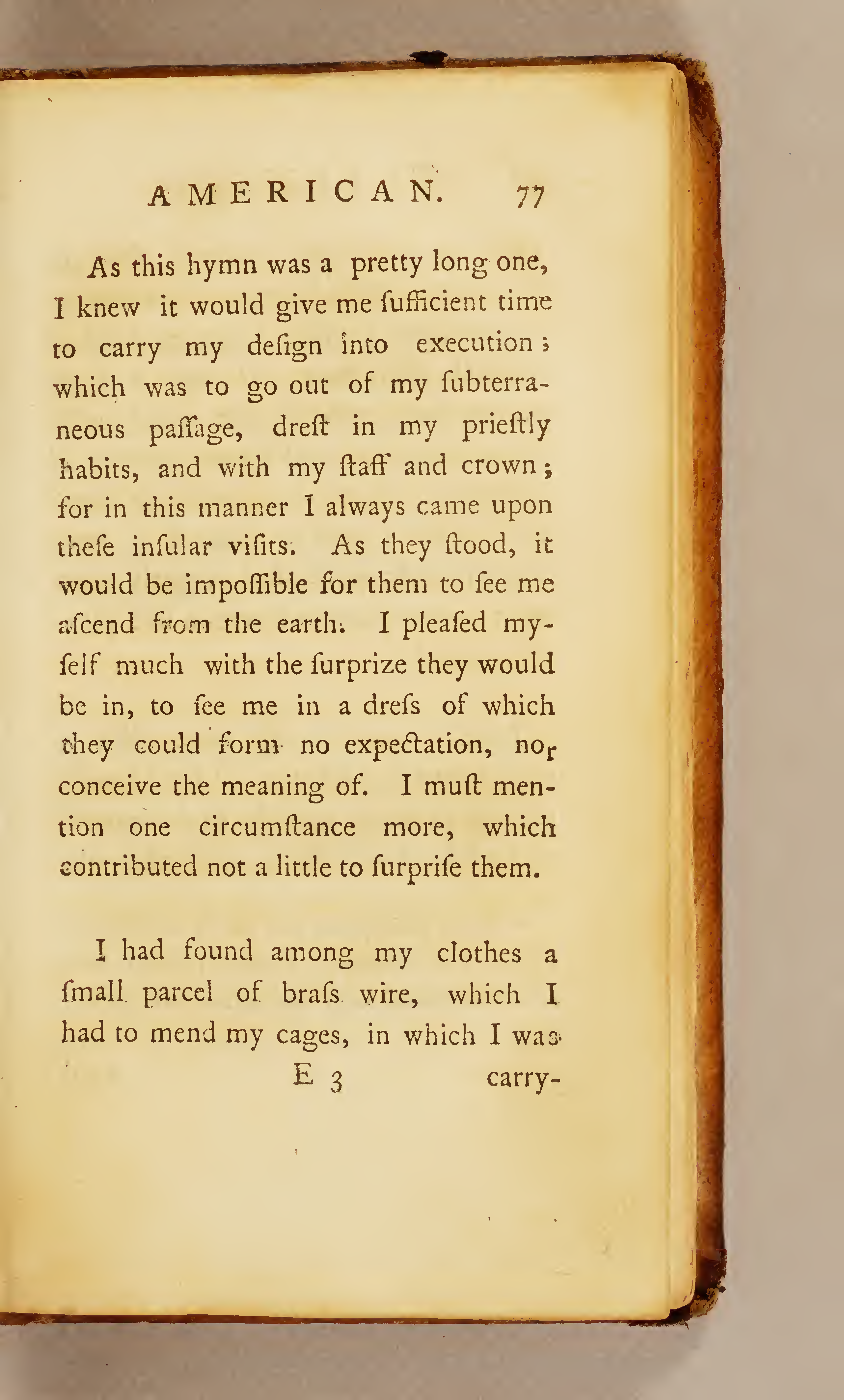
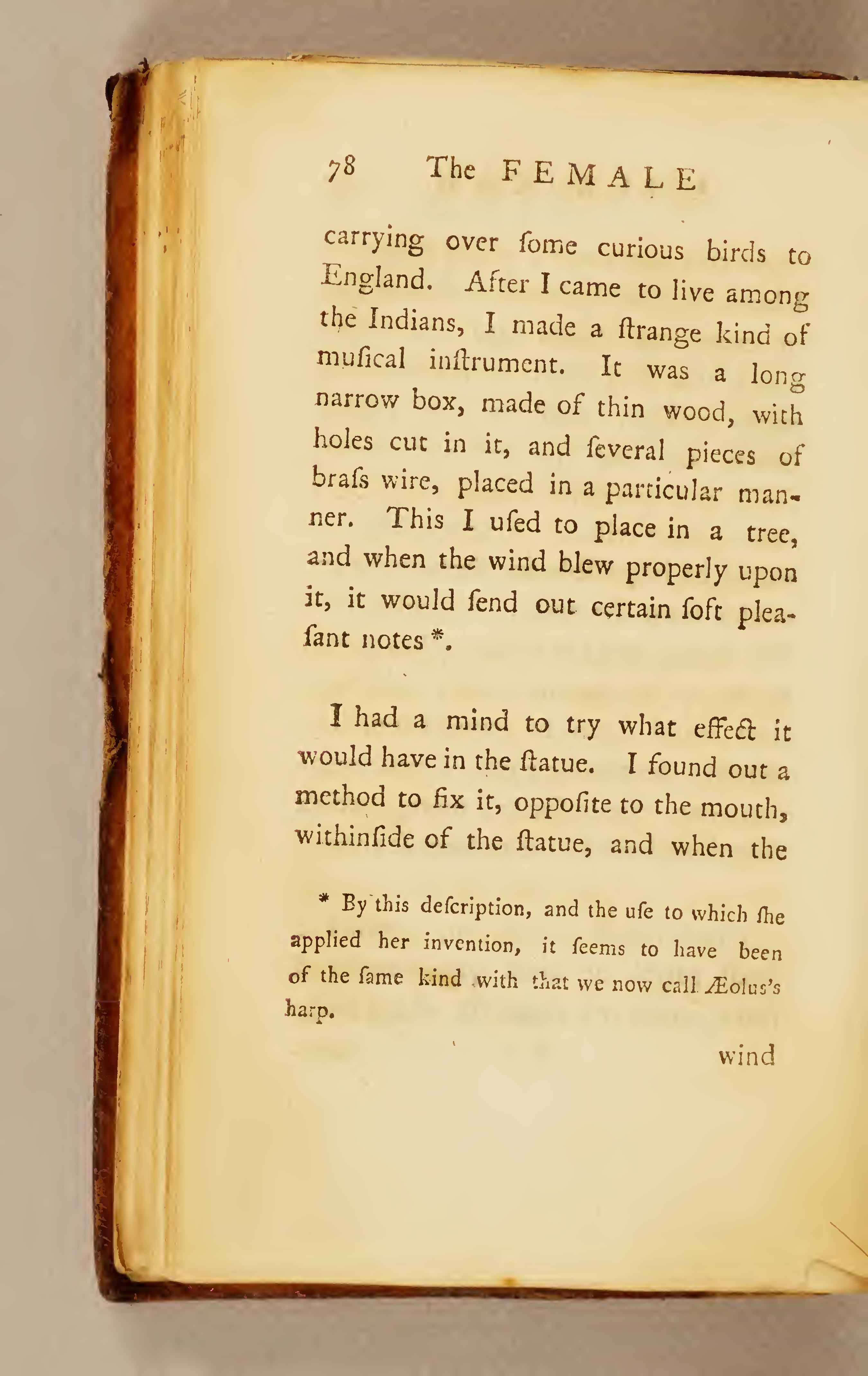
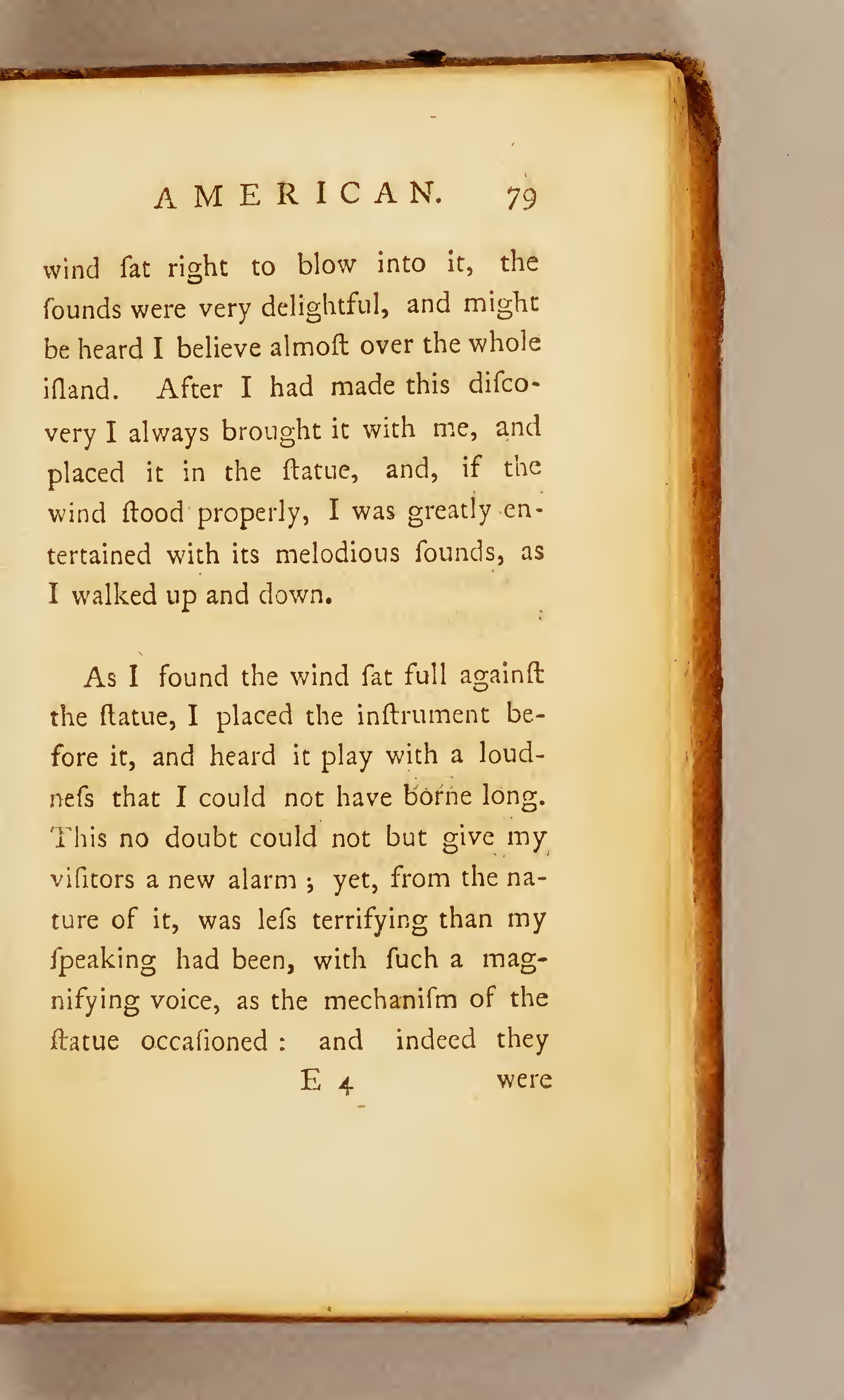
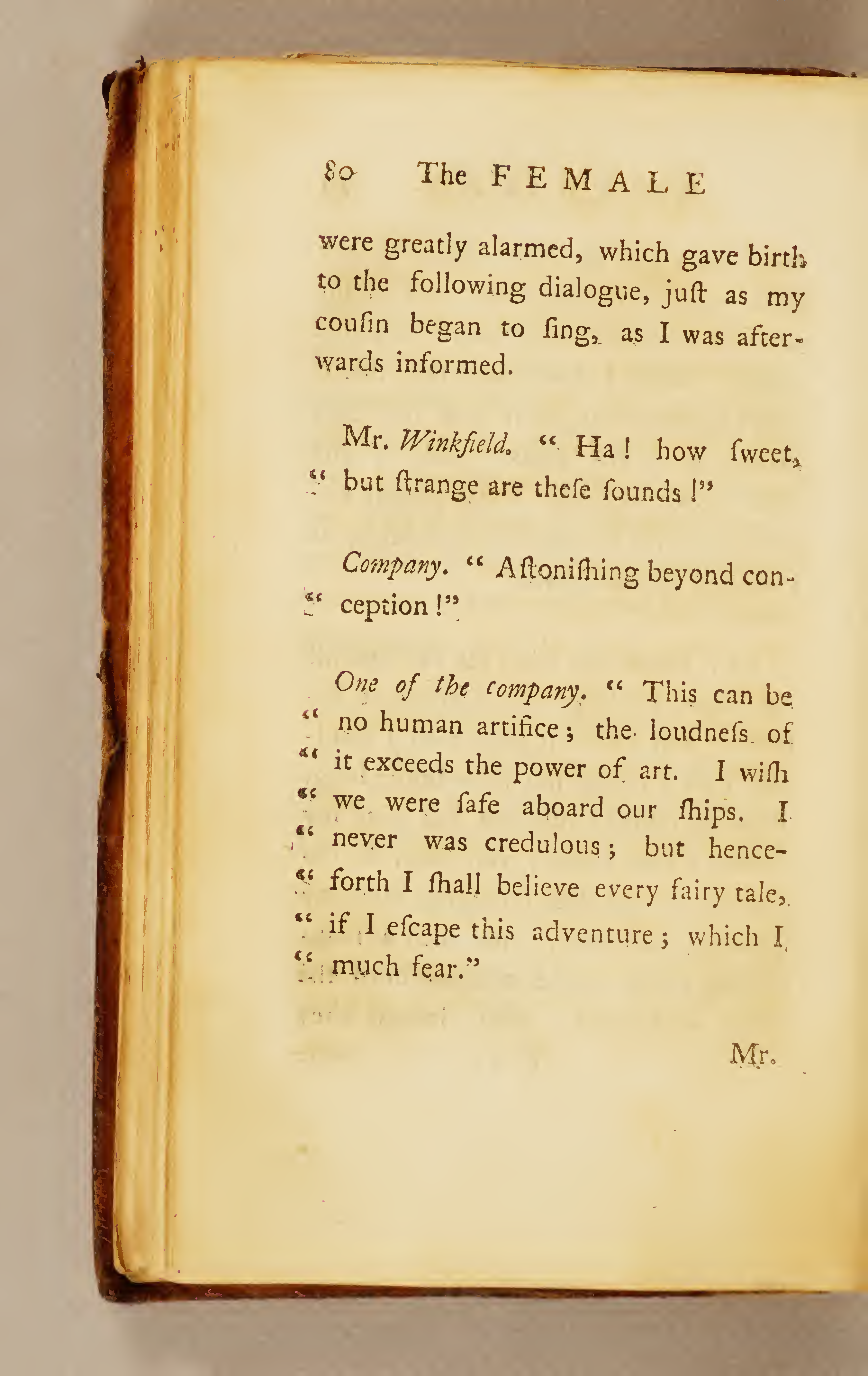
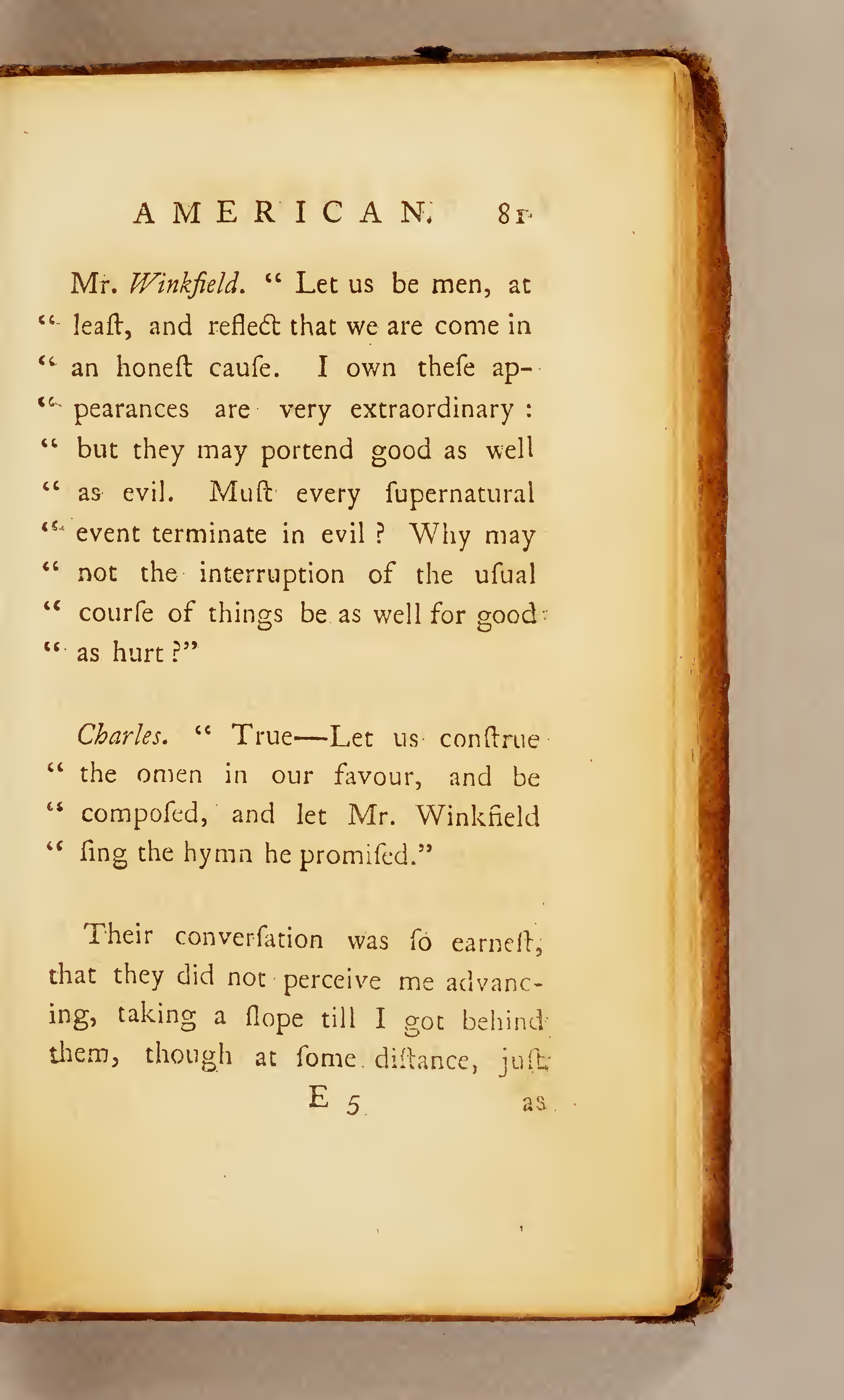
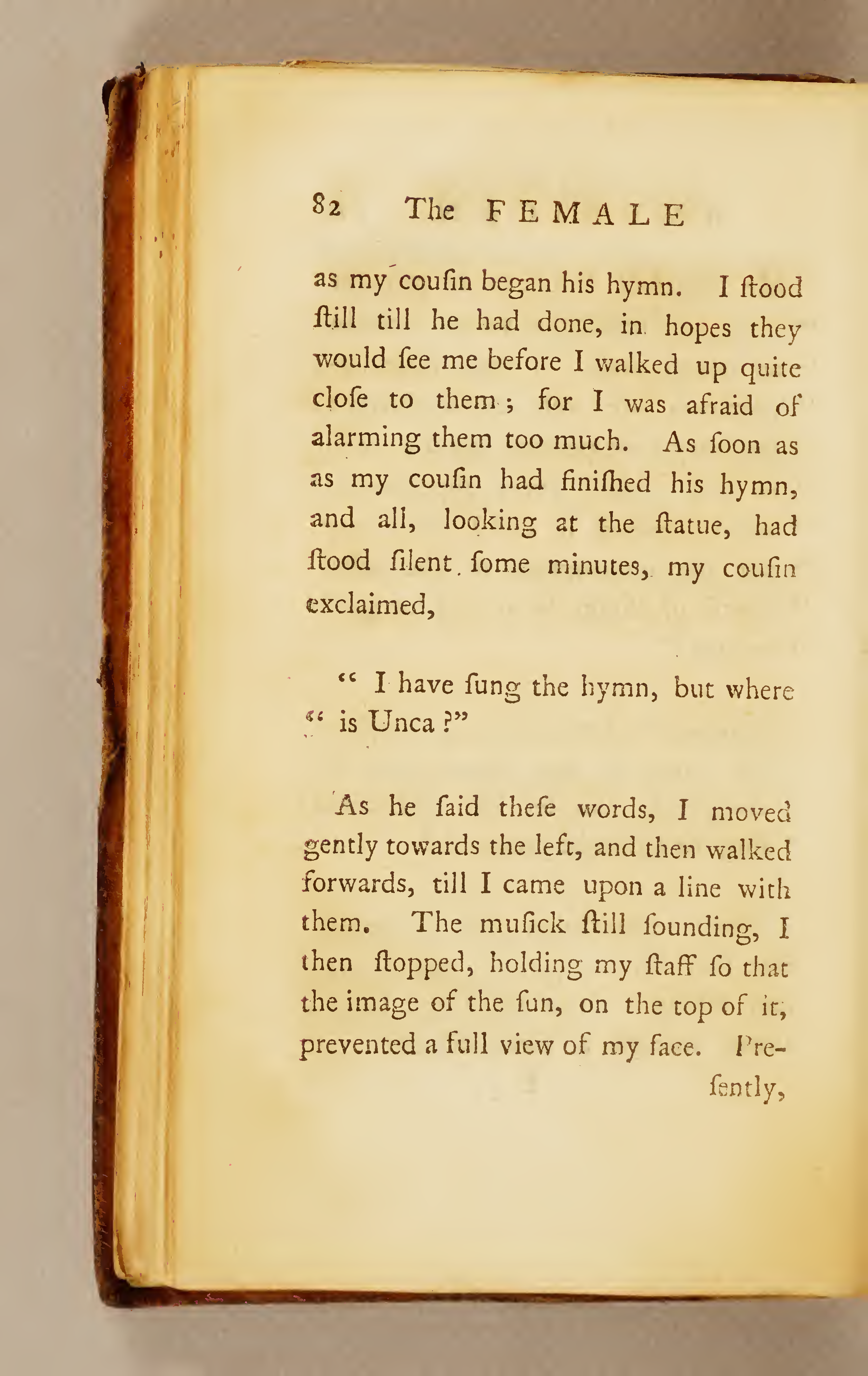
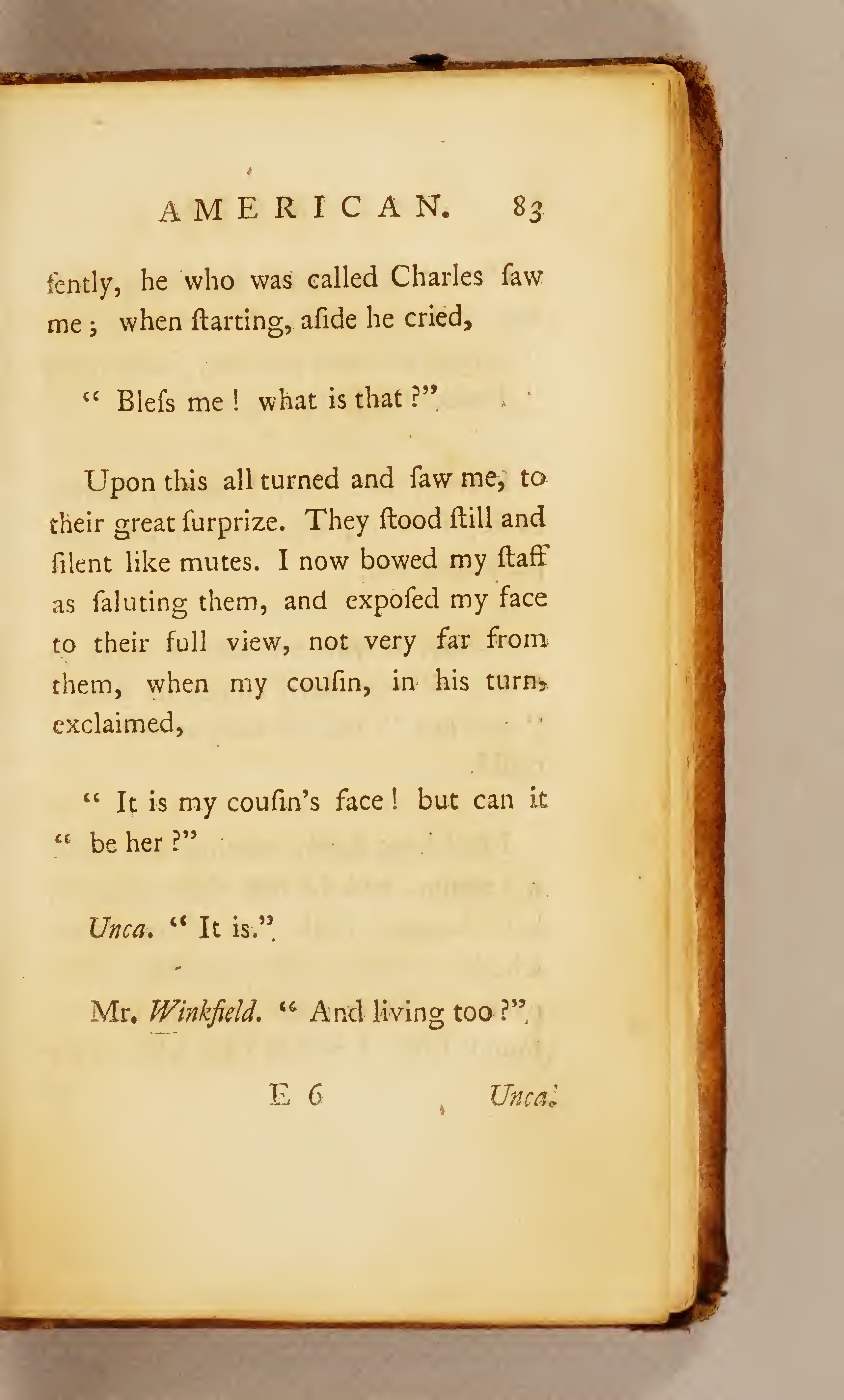
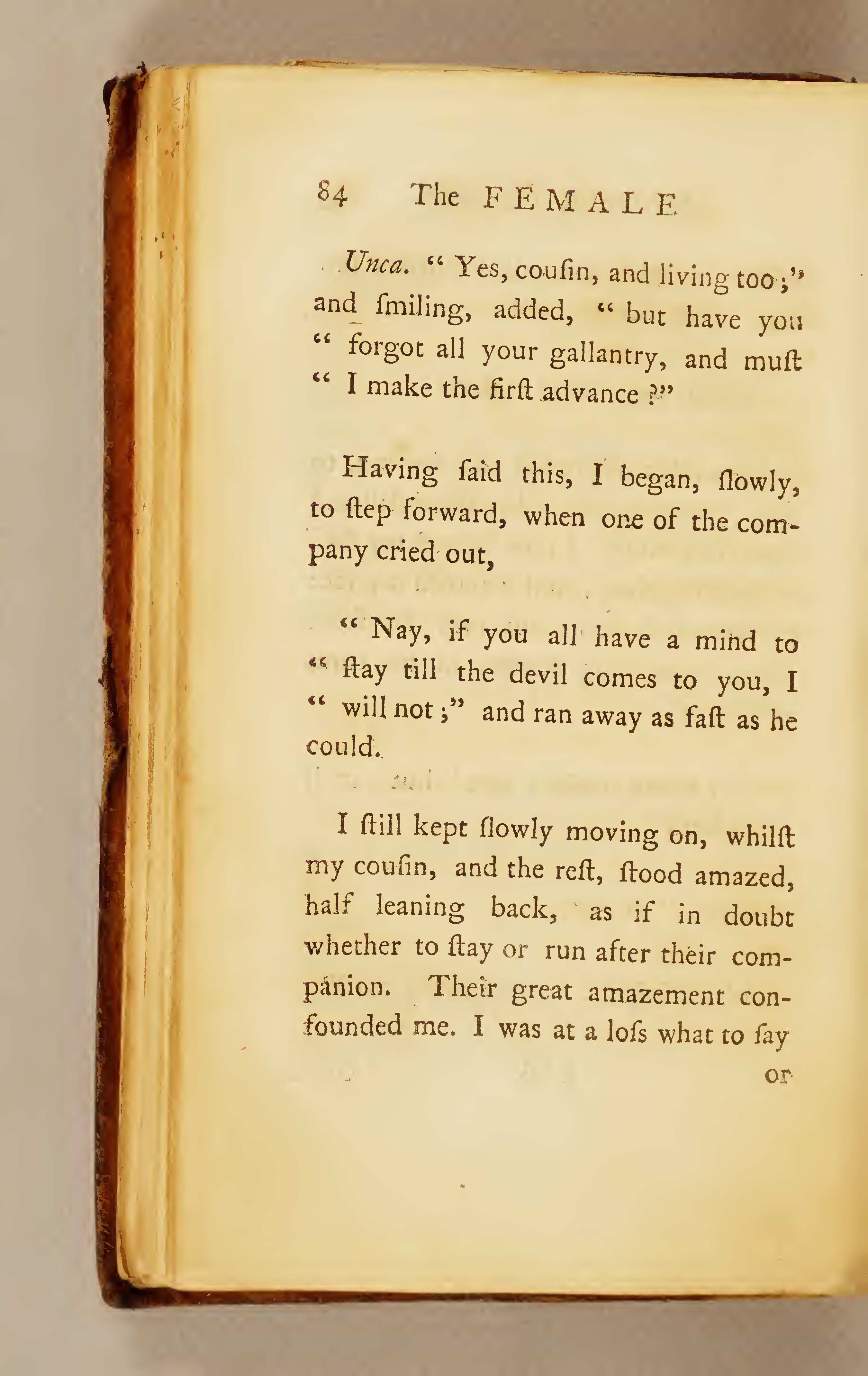
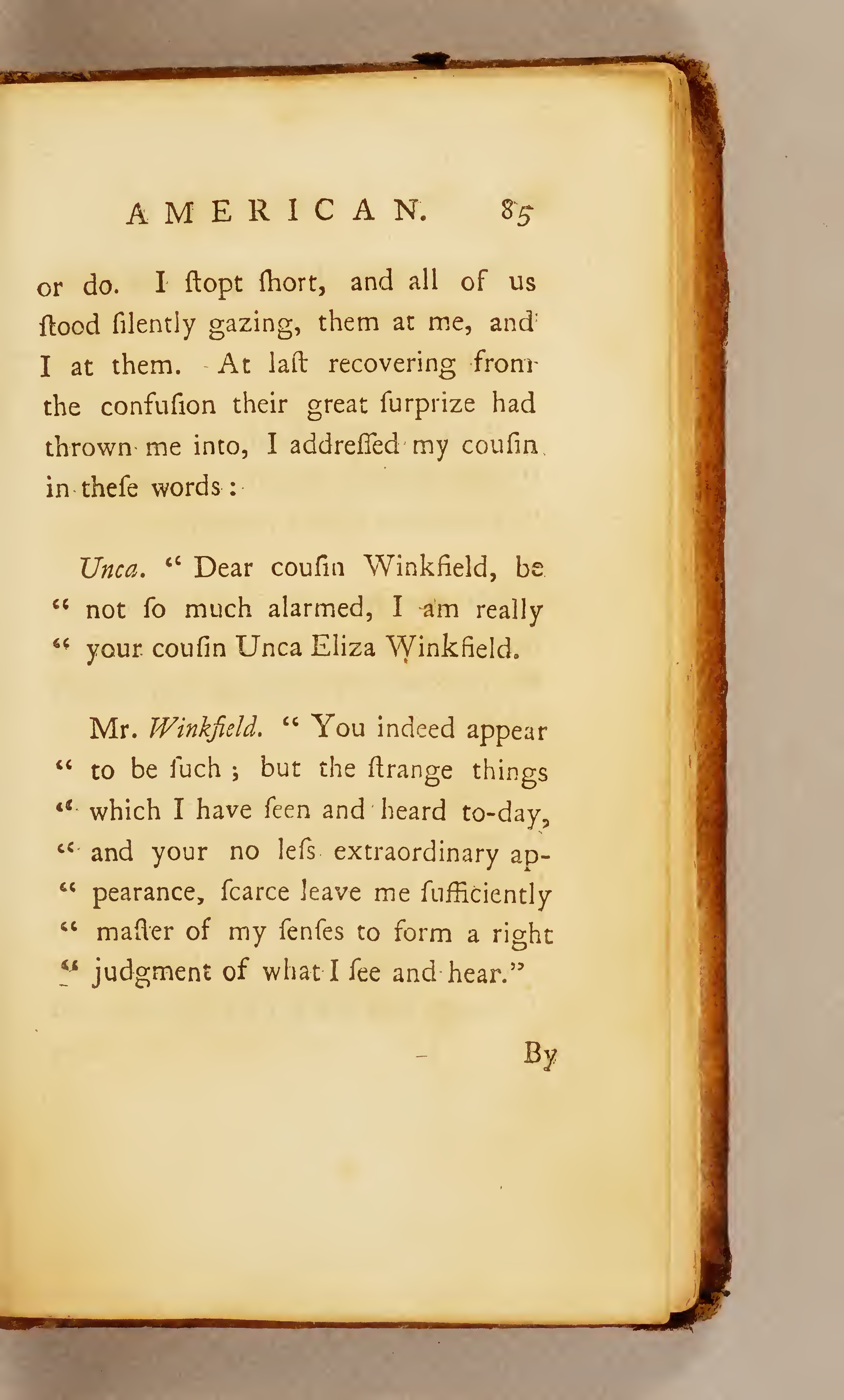
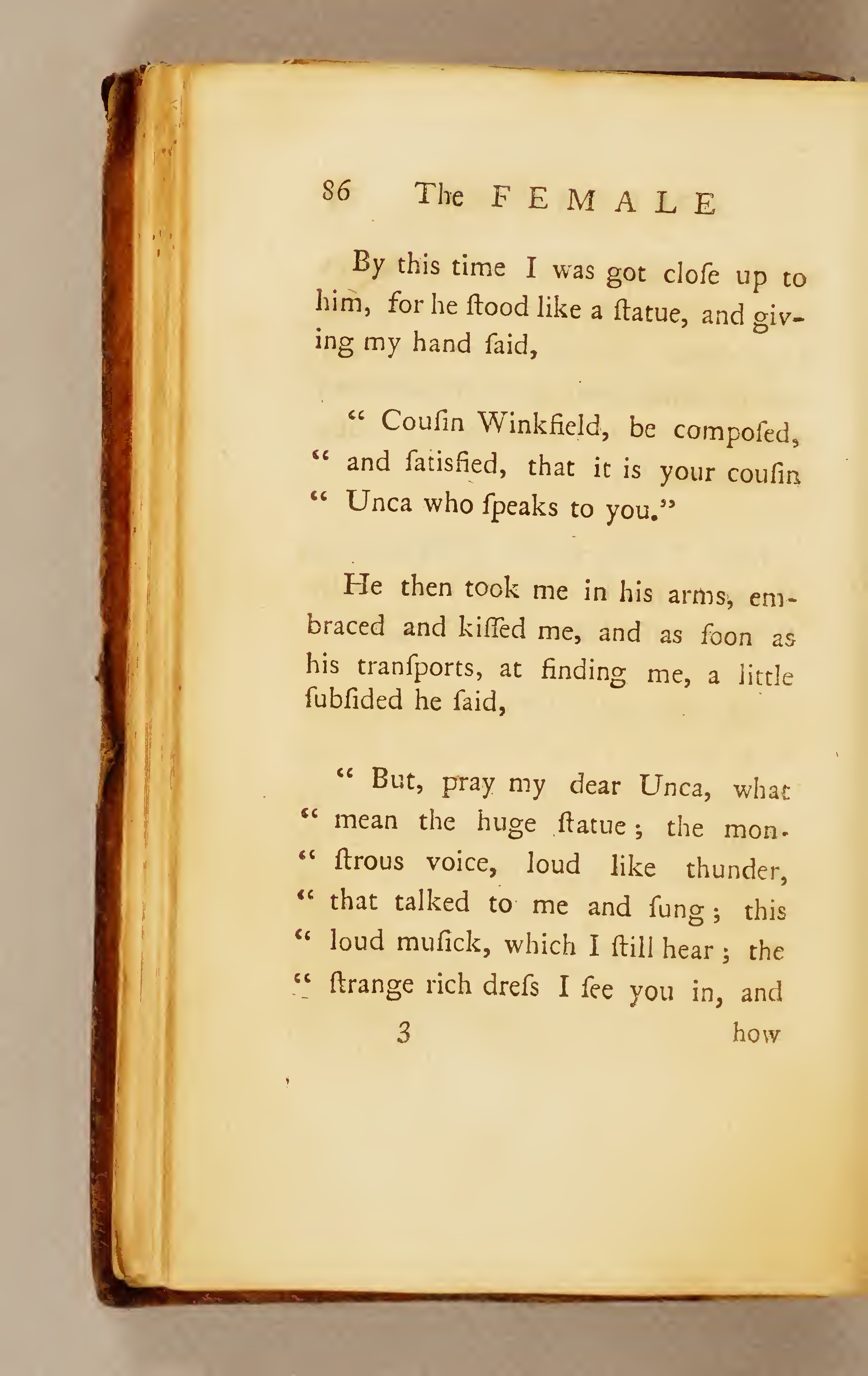

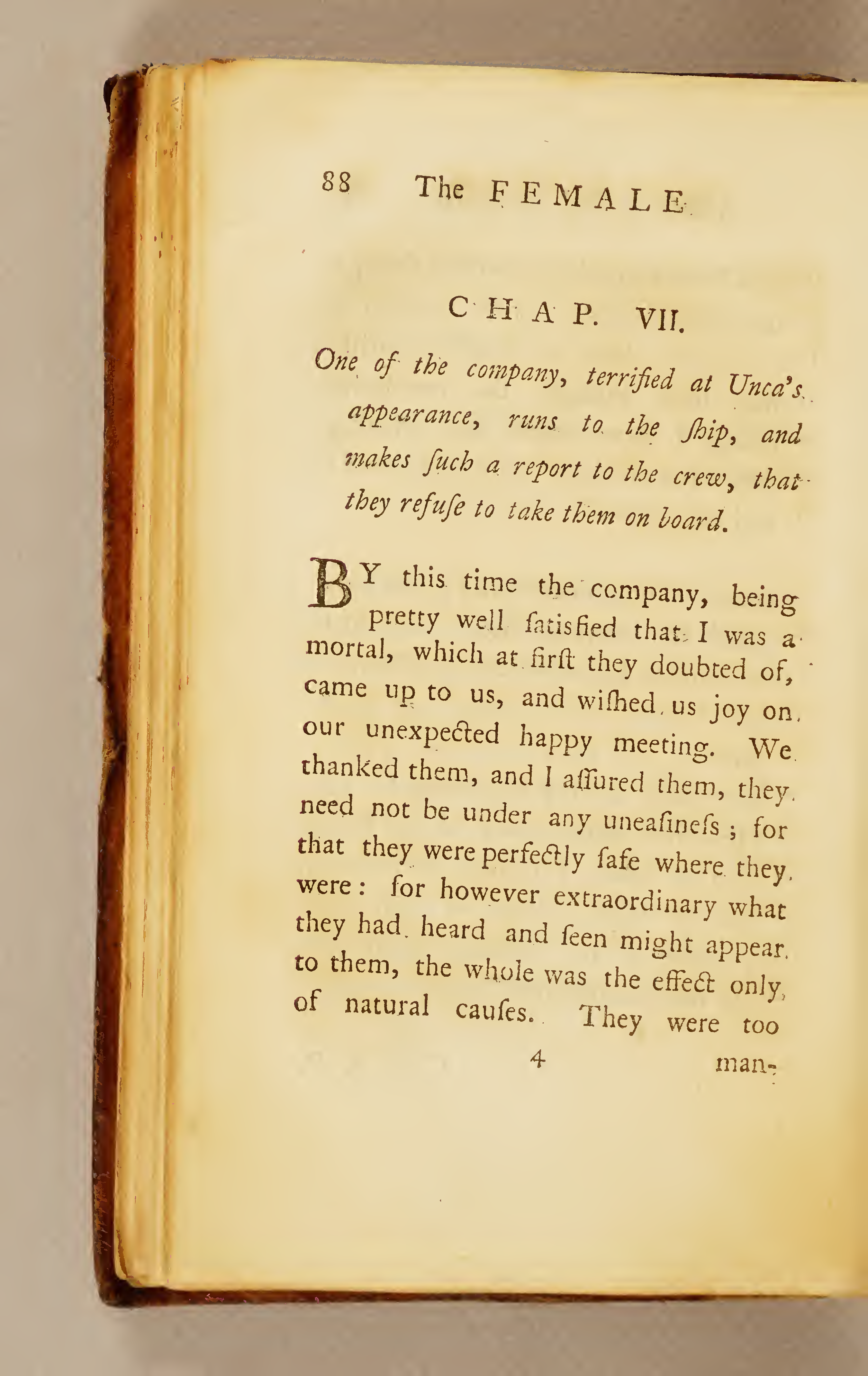
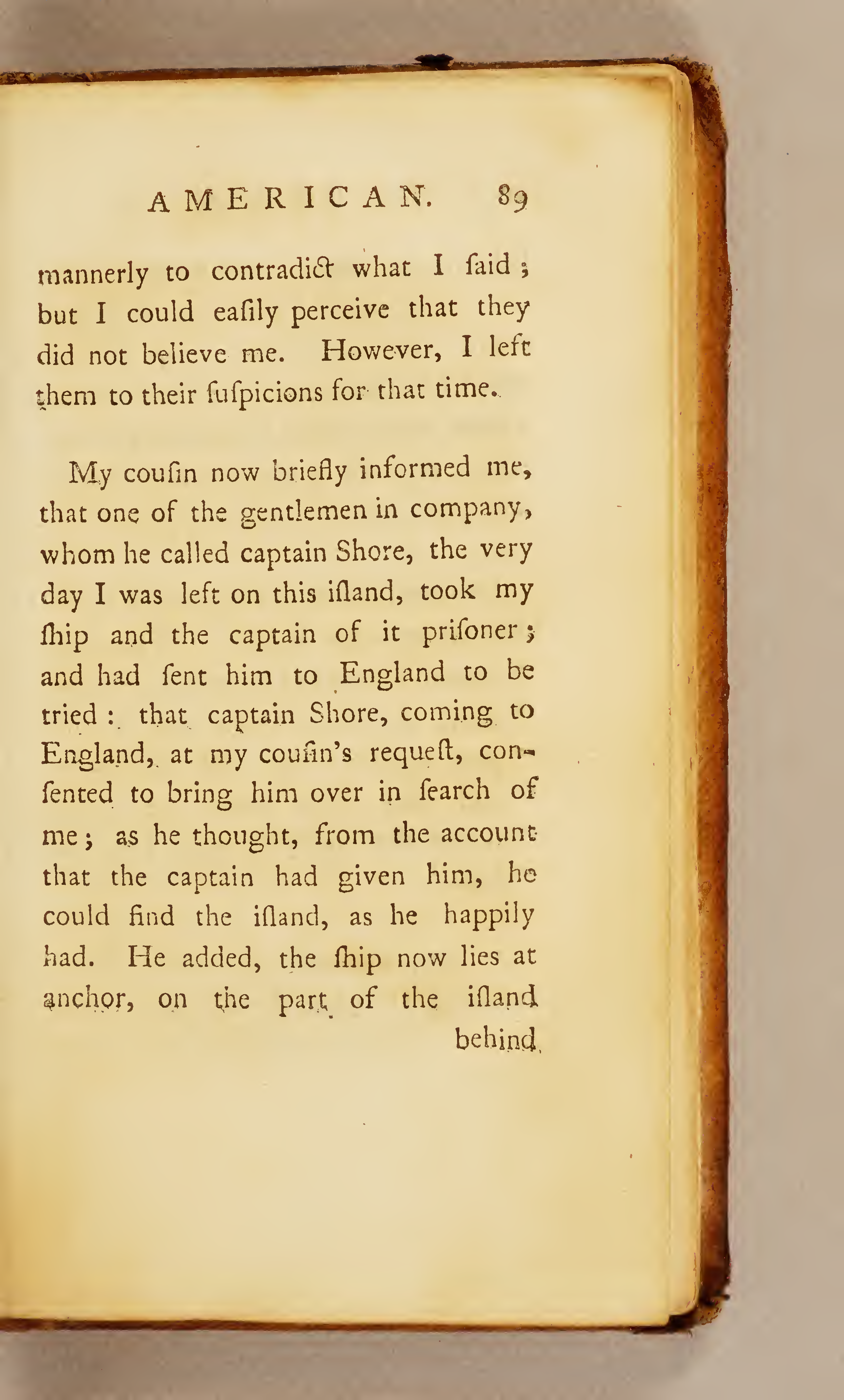
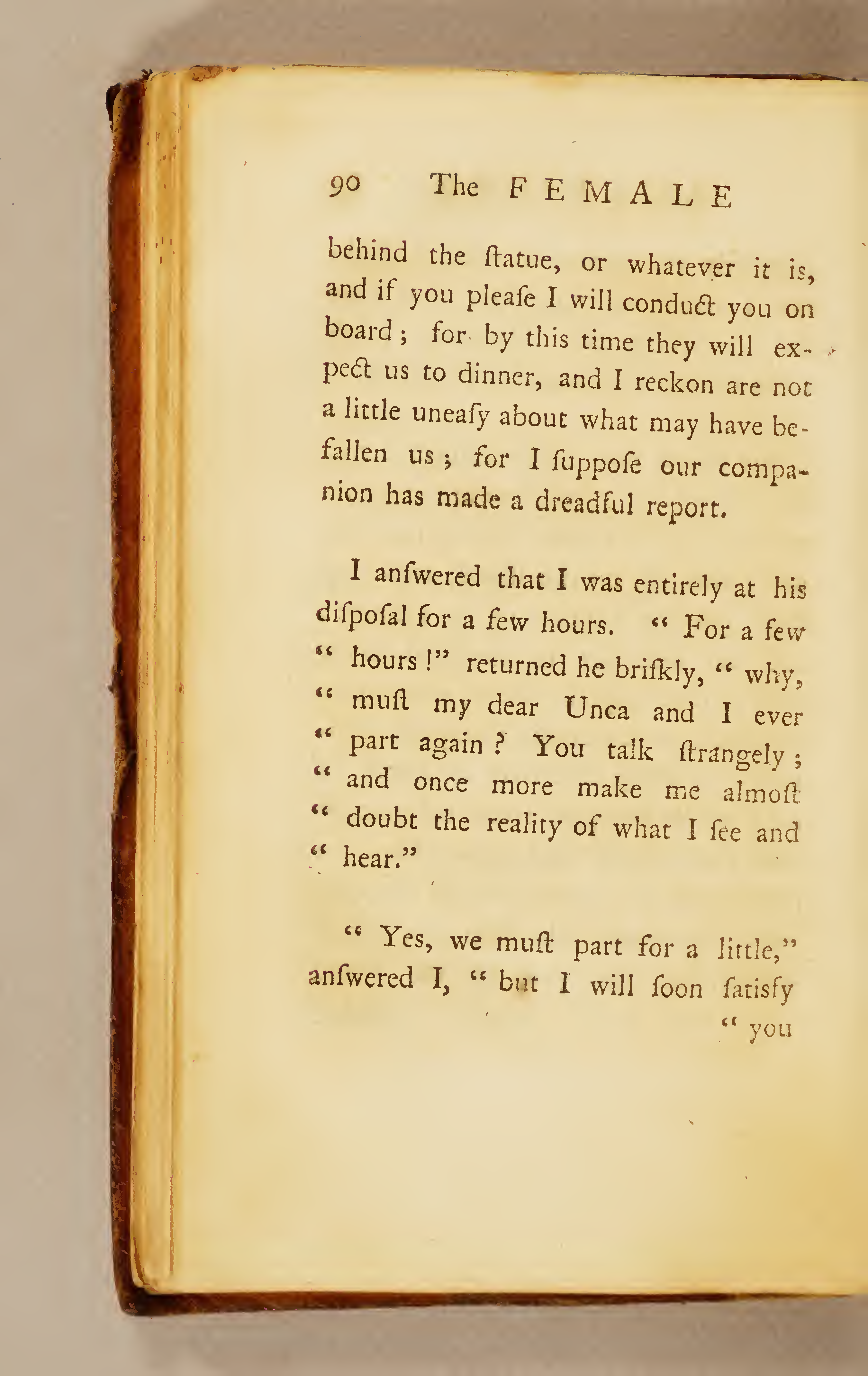
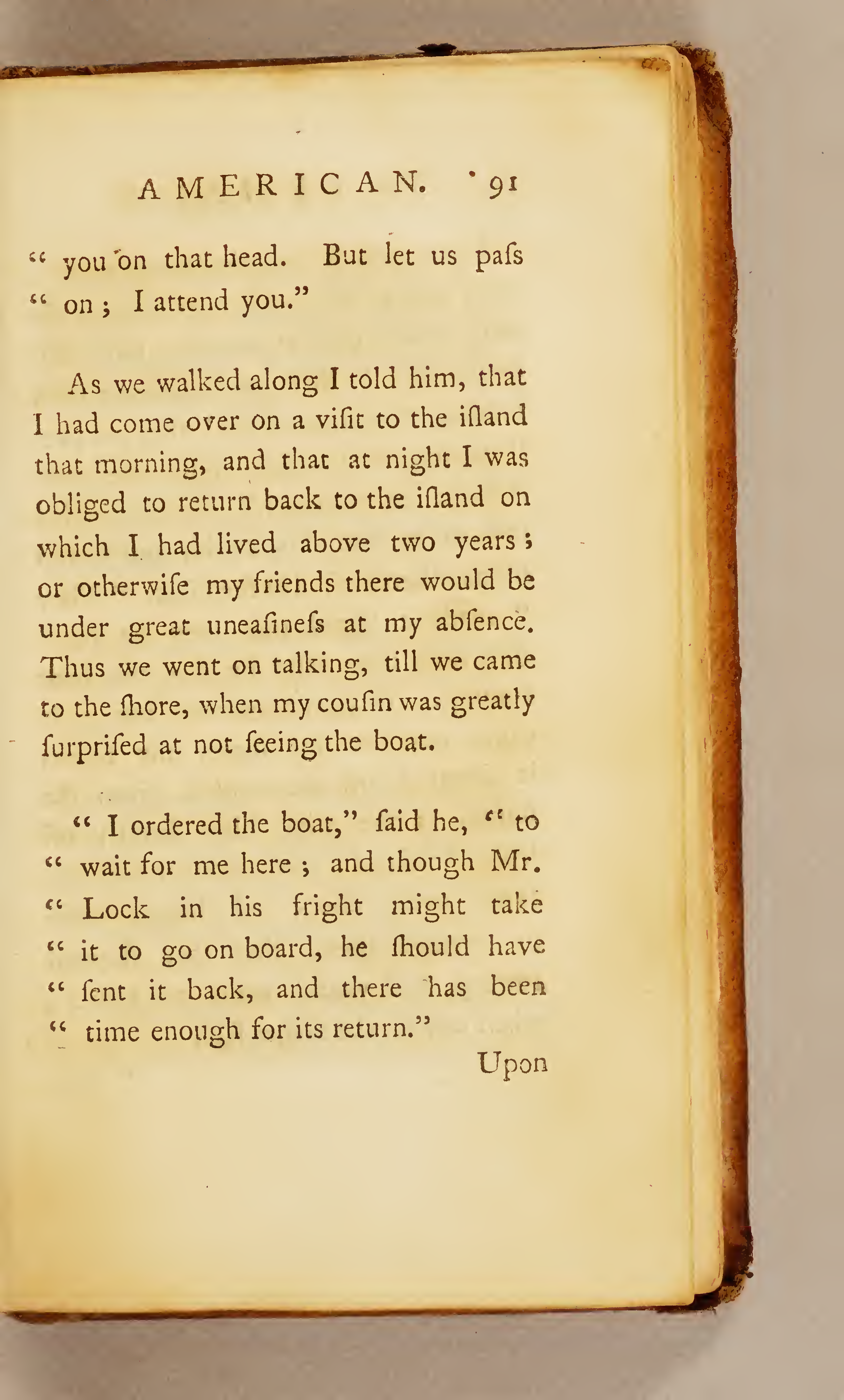
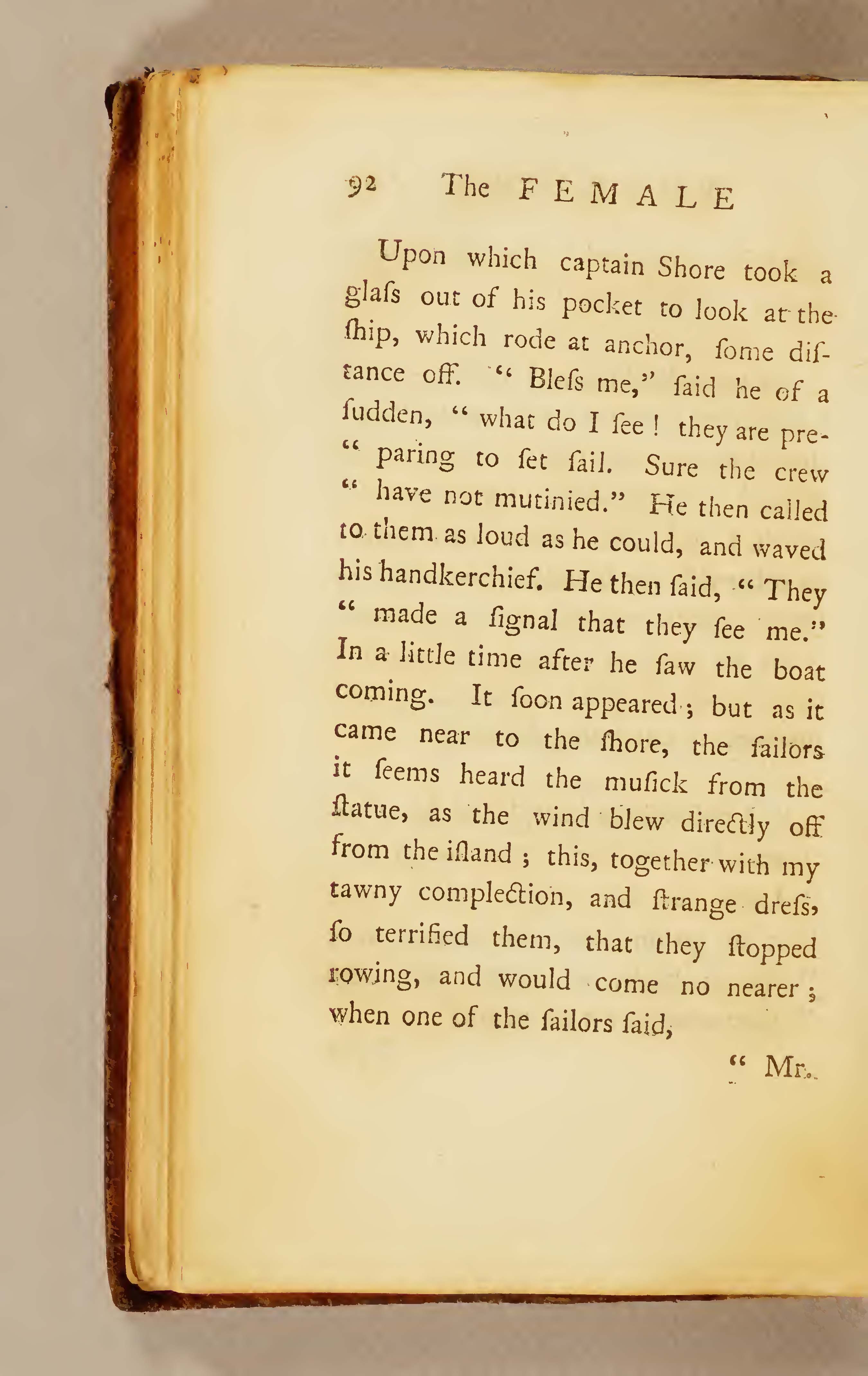
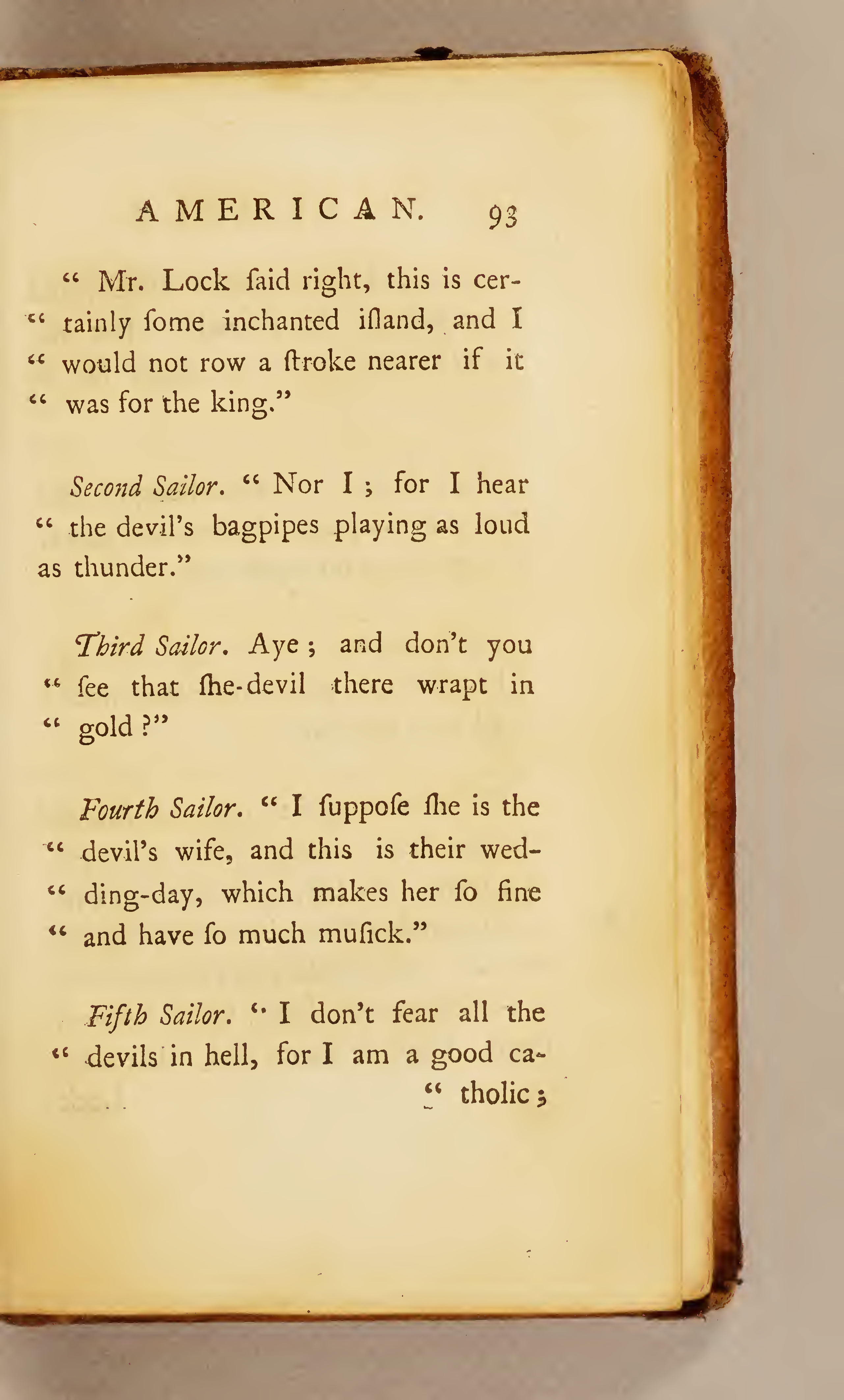
![Page 94 [page breaks after 'ca-']](https://anthologyassetsdev.lib.virginia.edu/winkfield-female-american-2/pageImages/fa_Page_095.png)
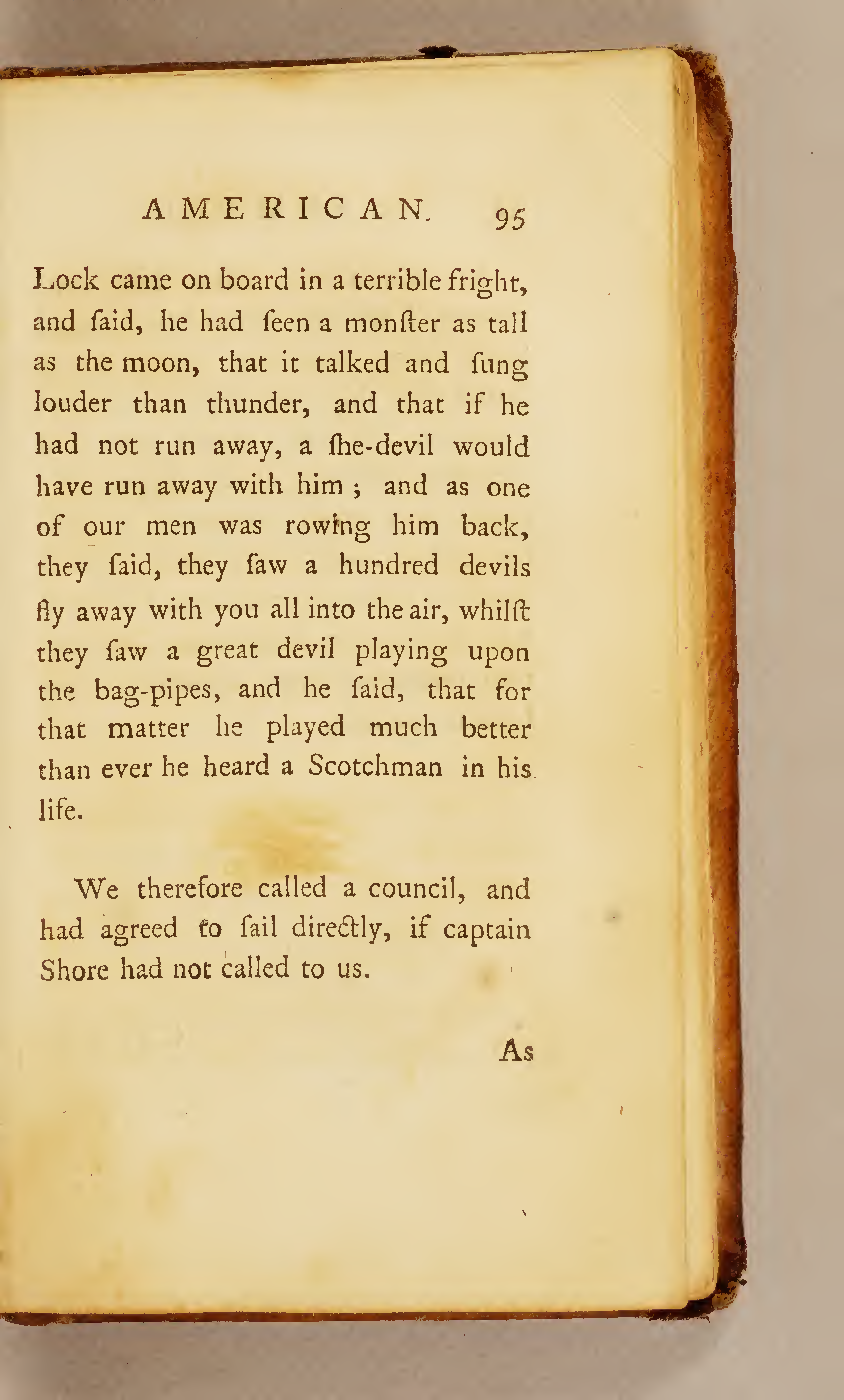
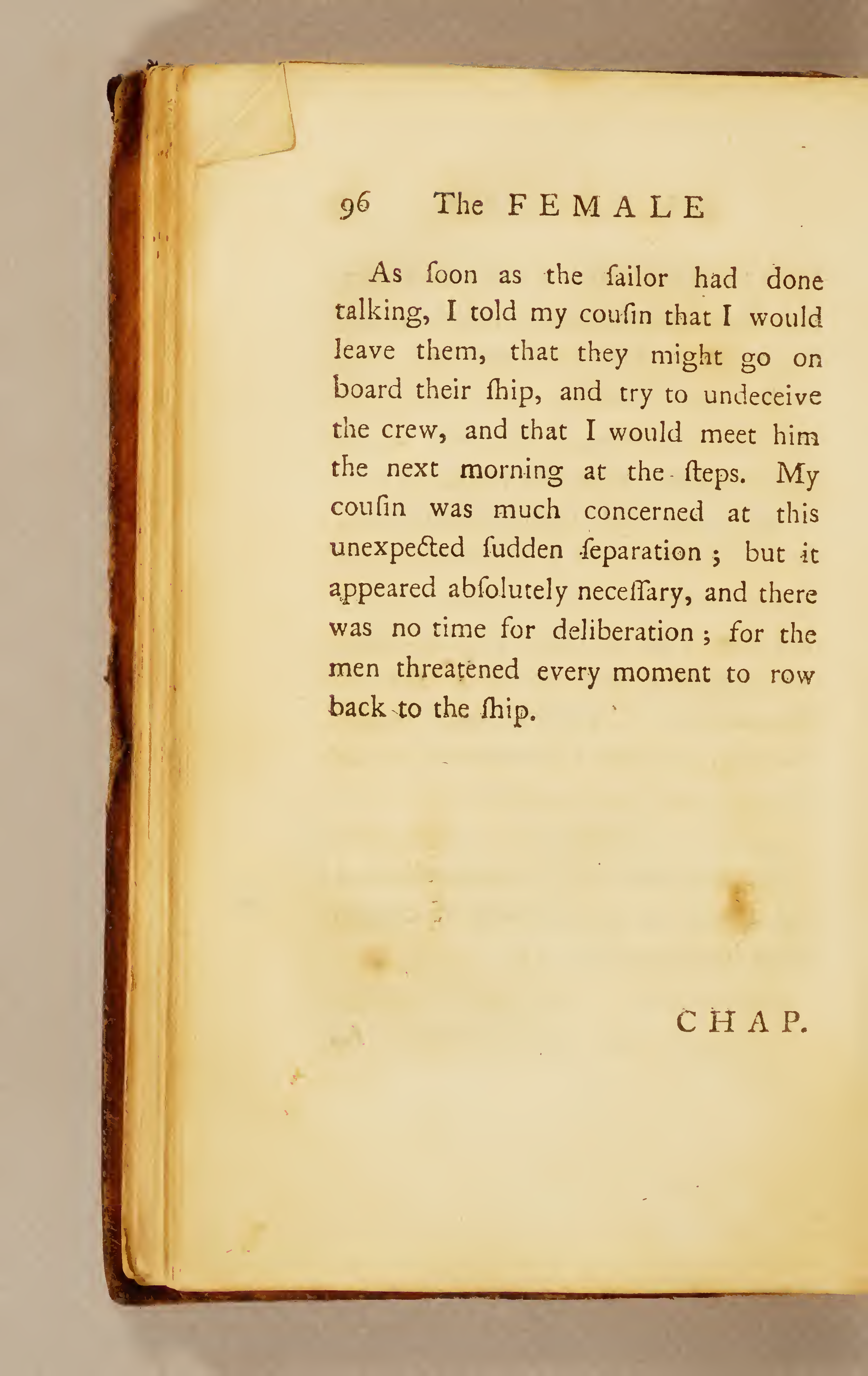
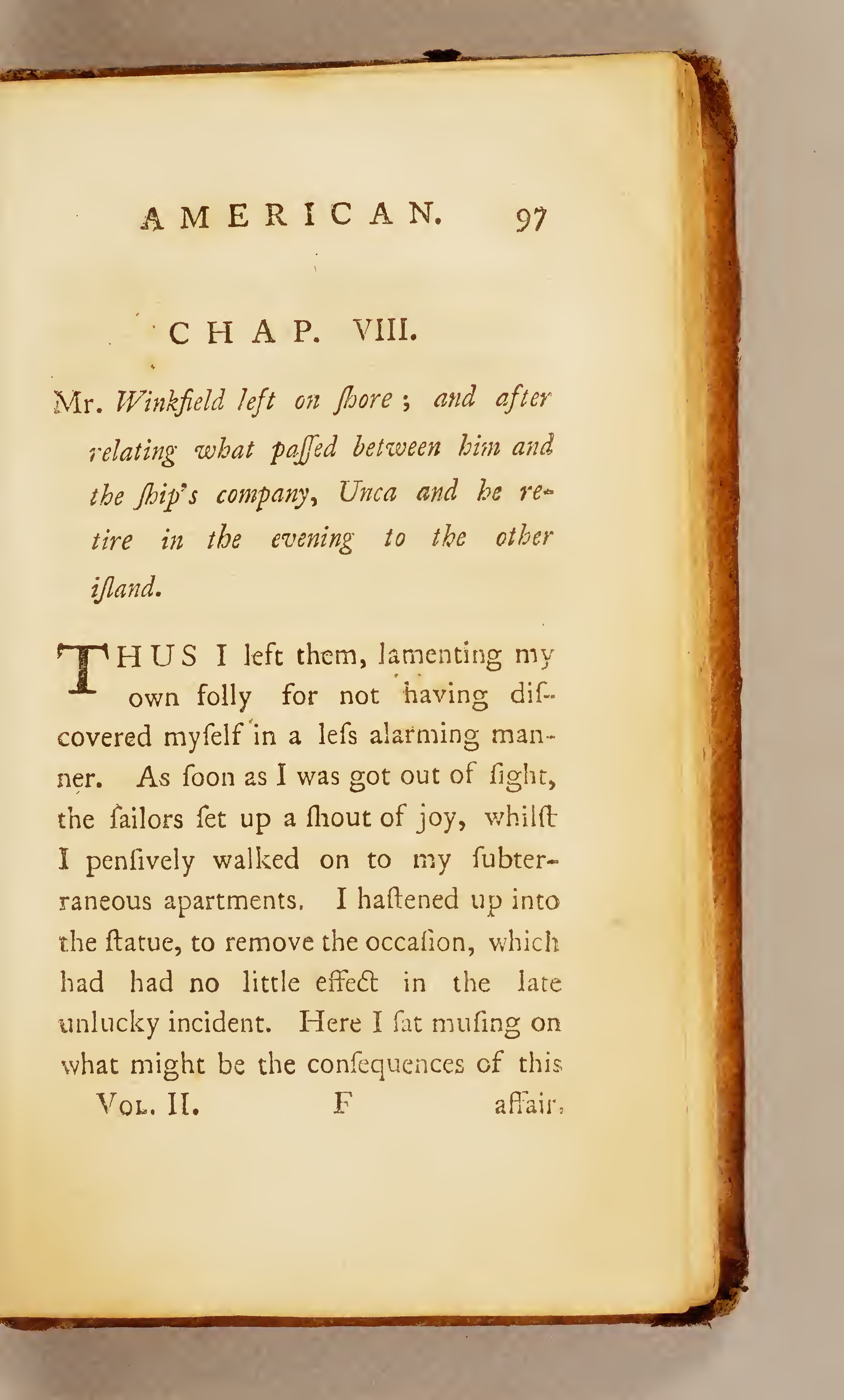
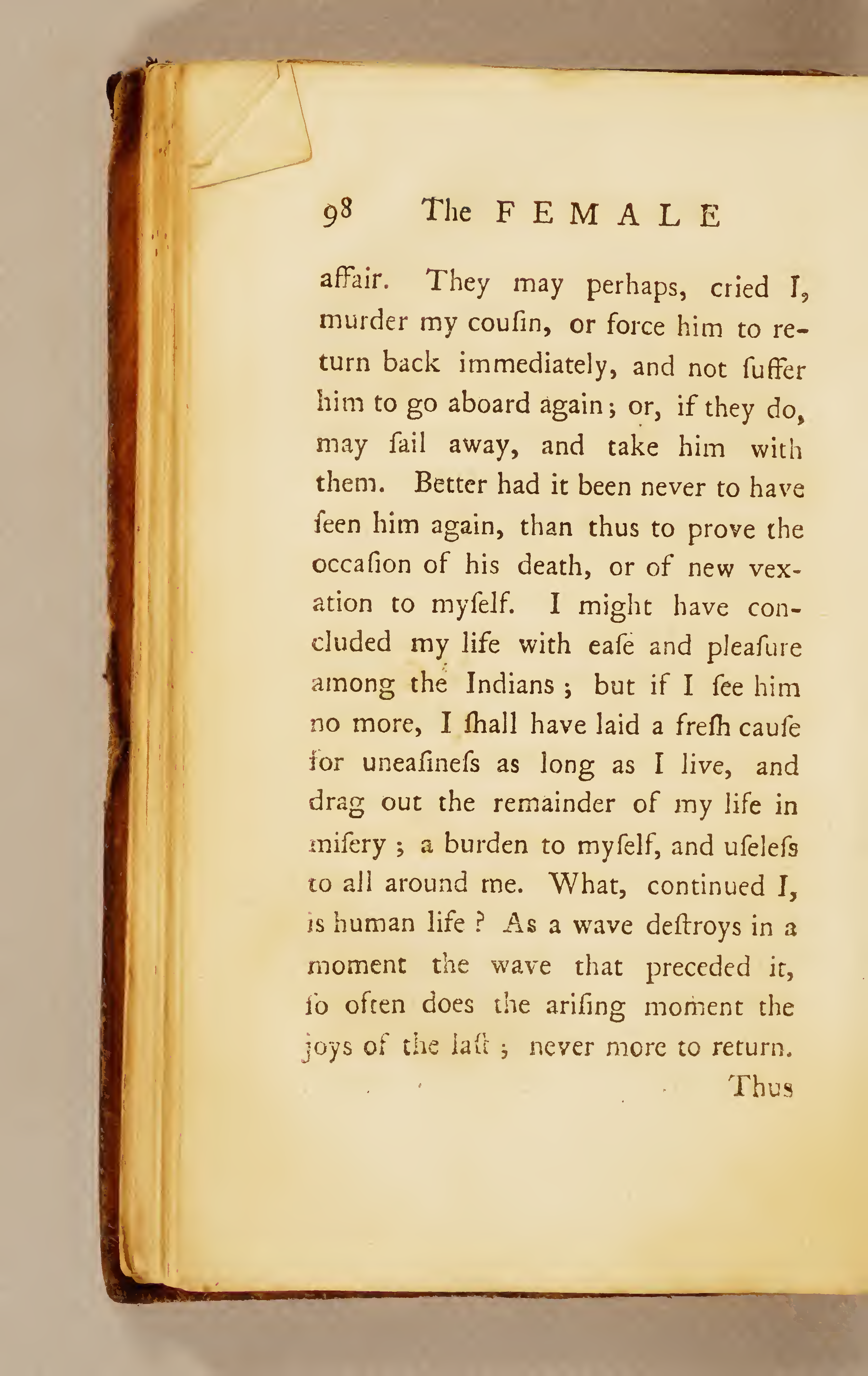
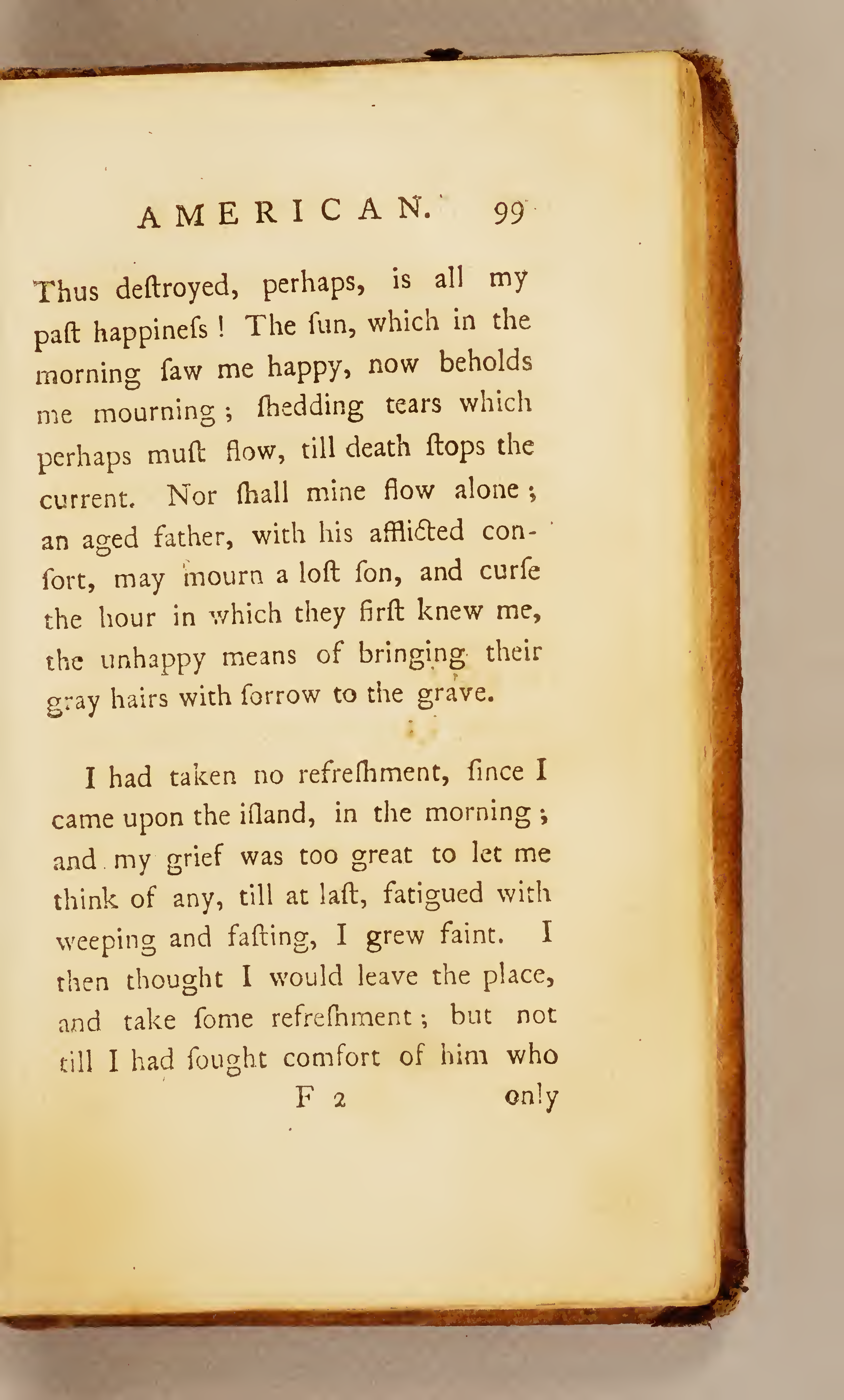
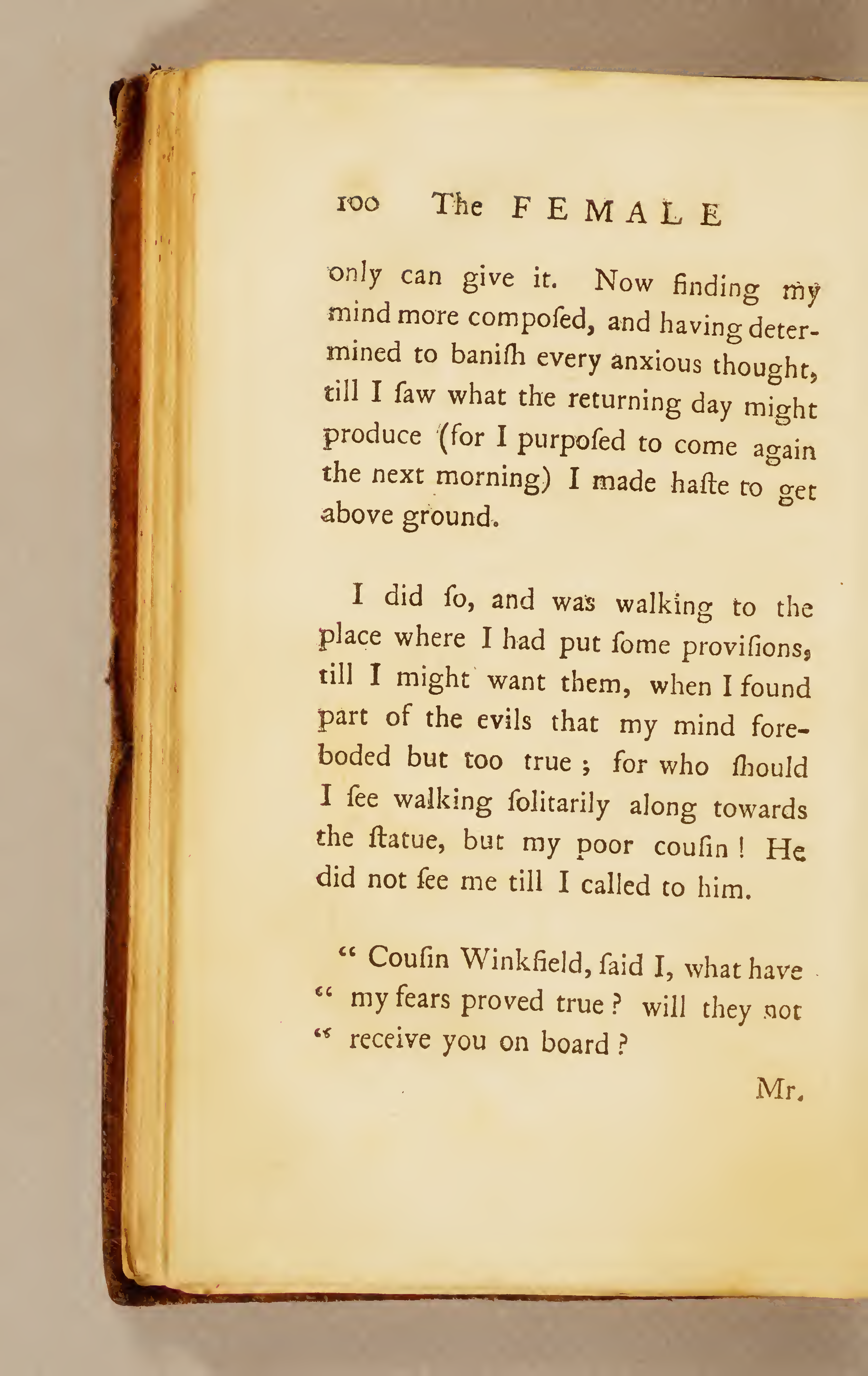
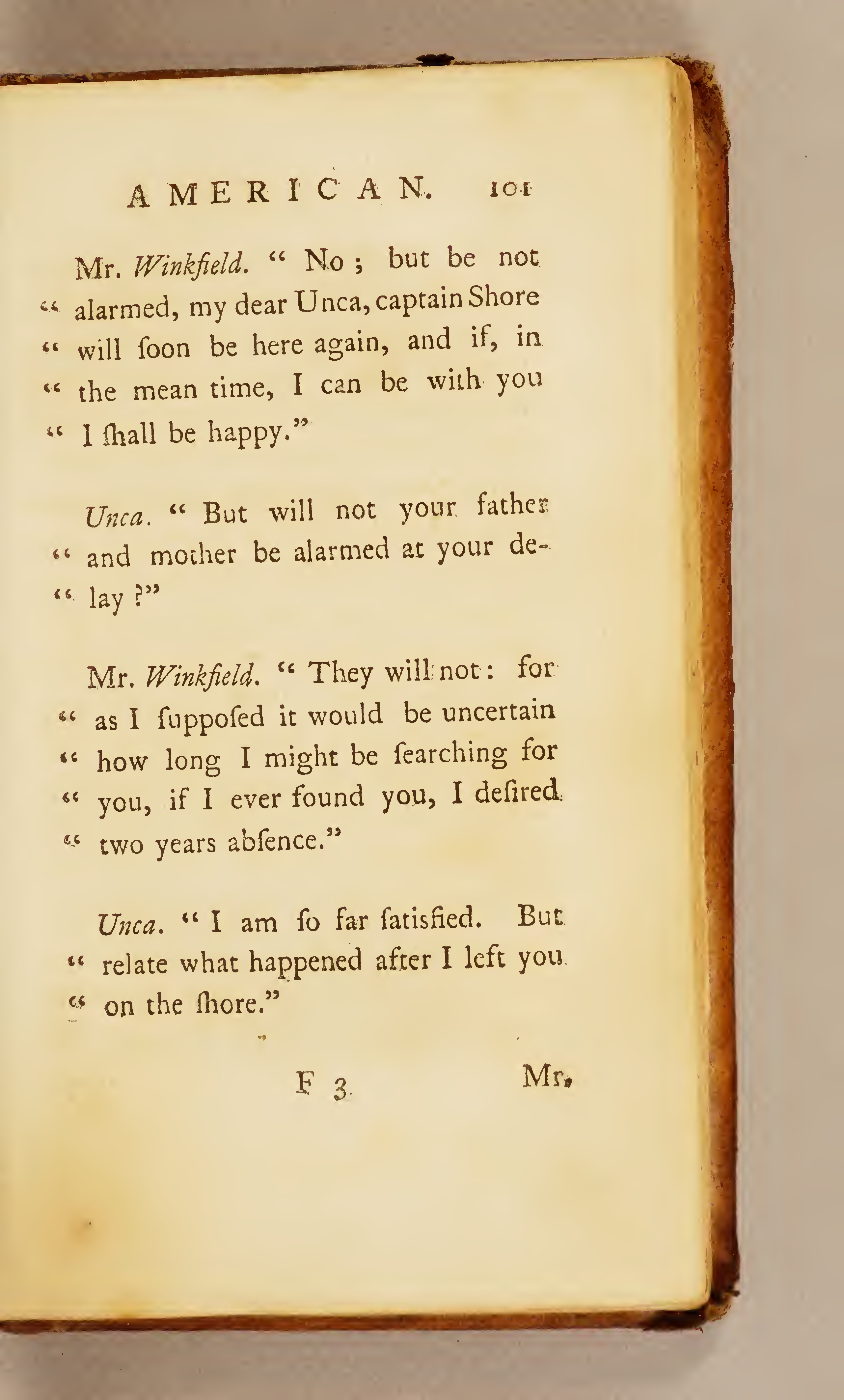
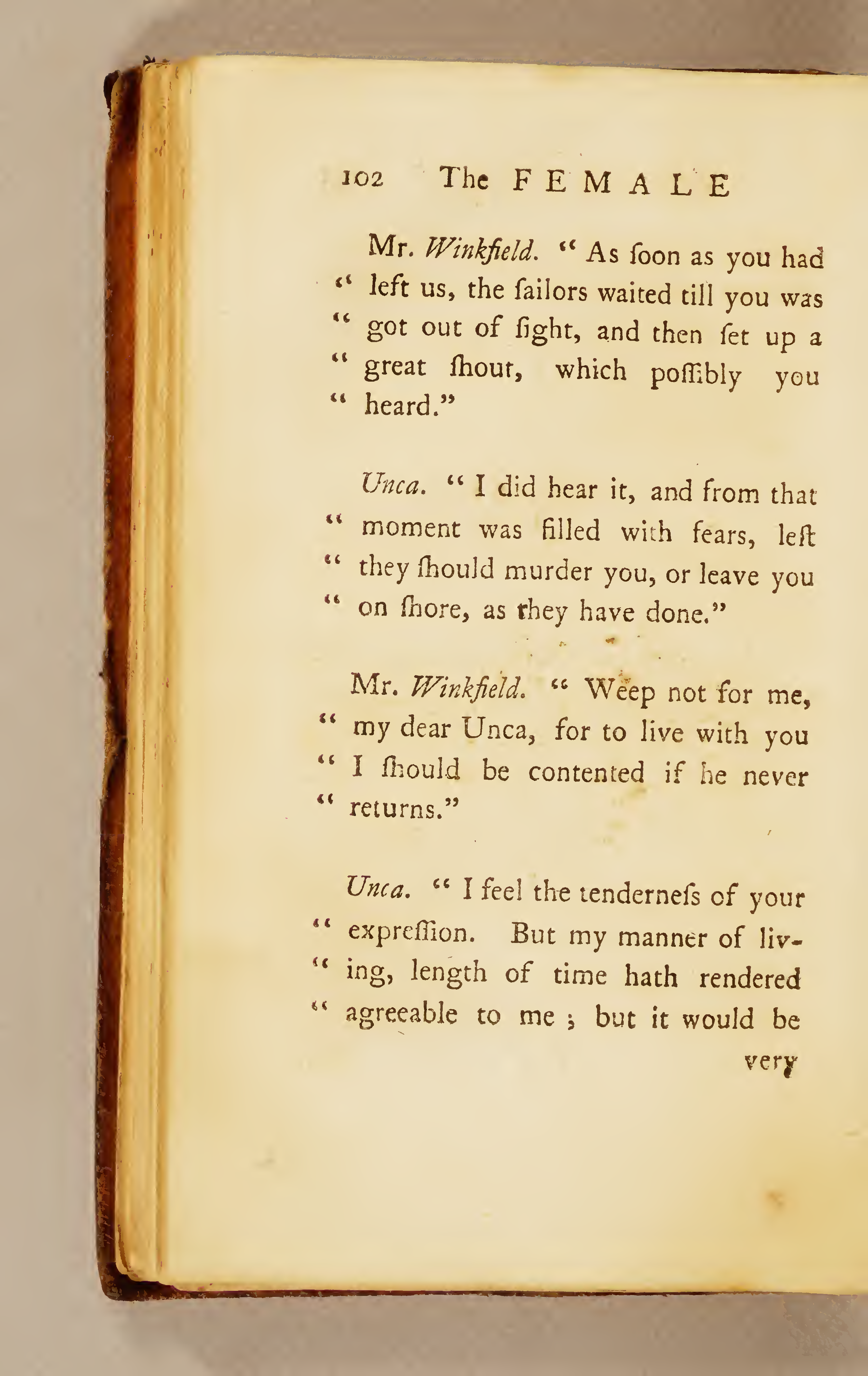

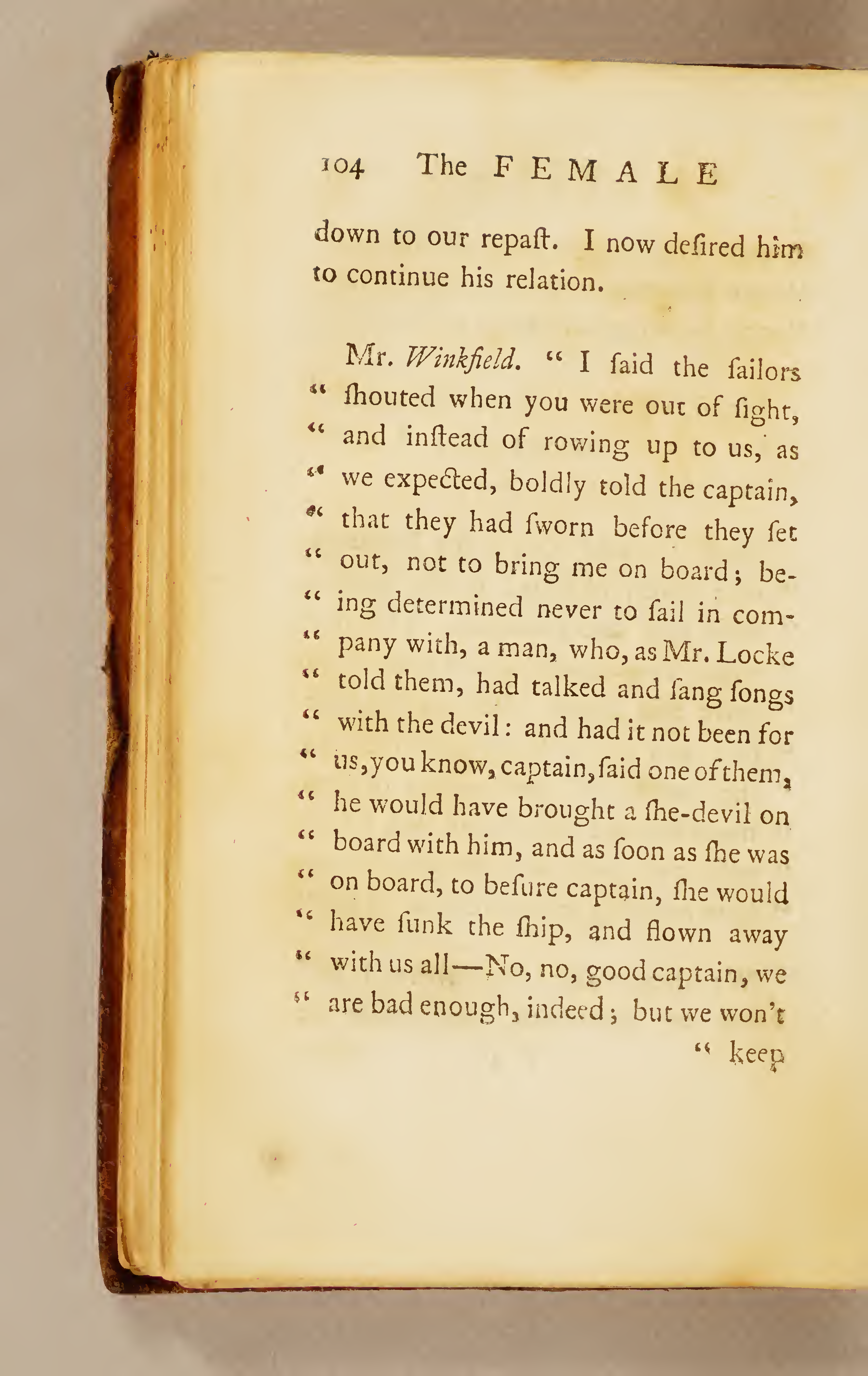
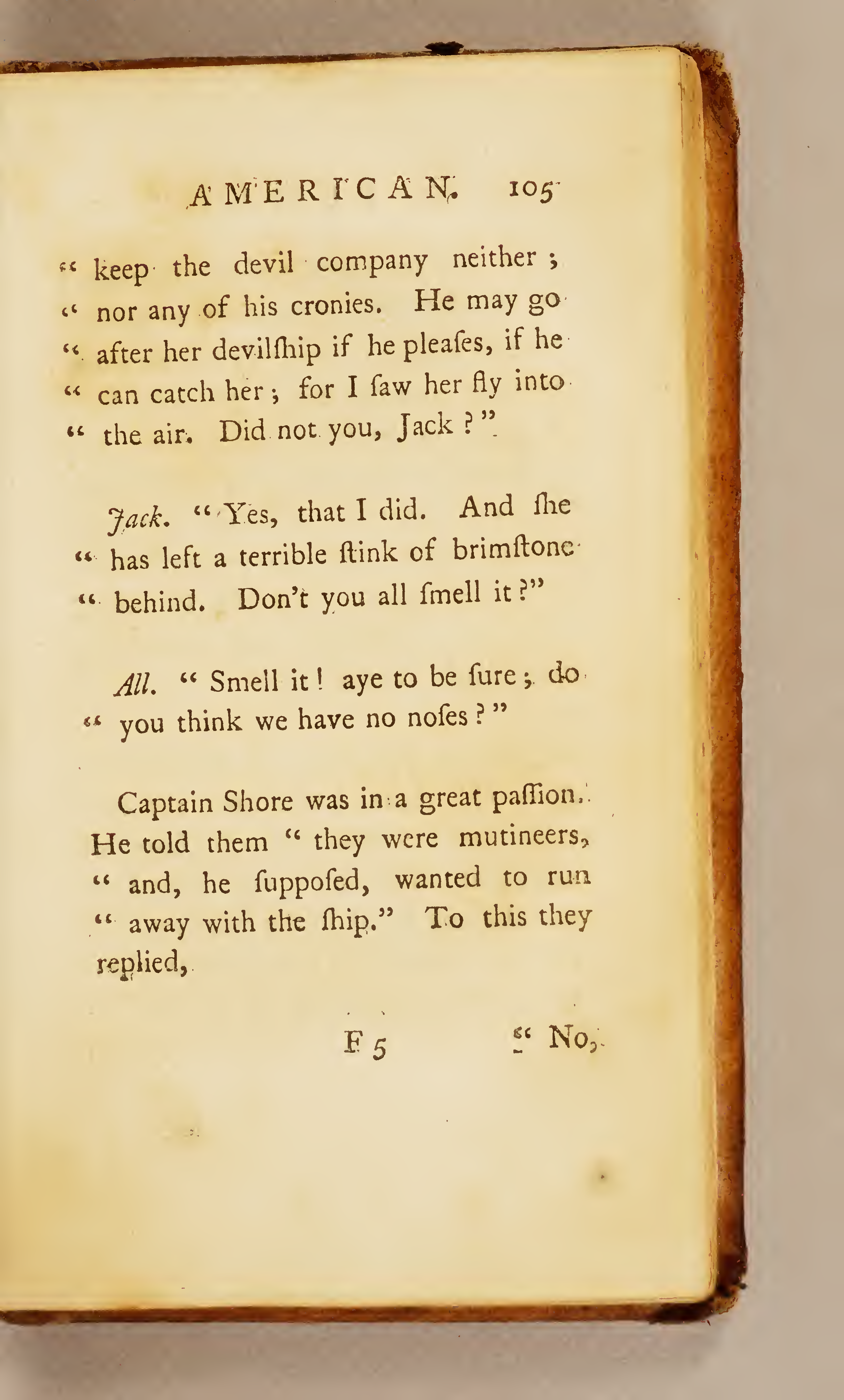
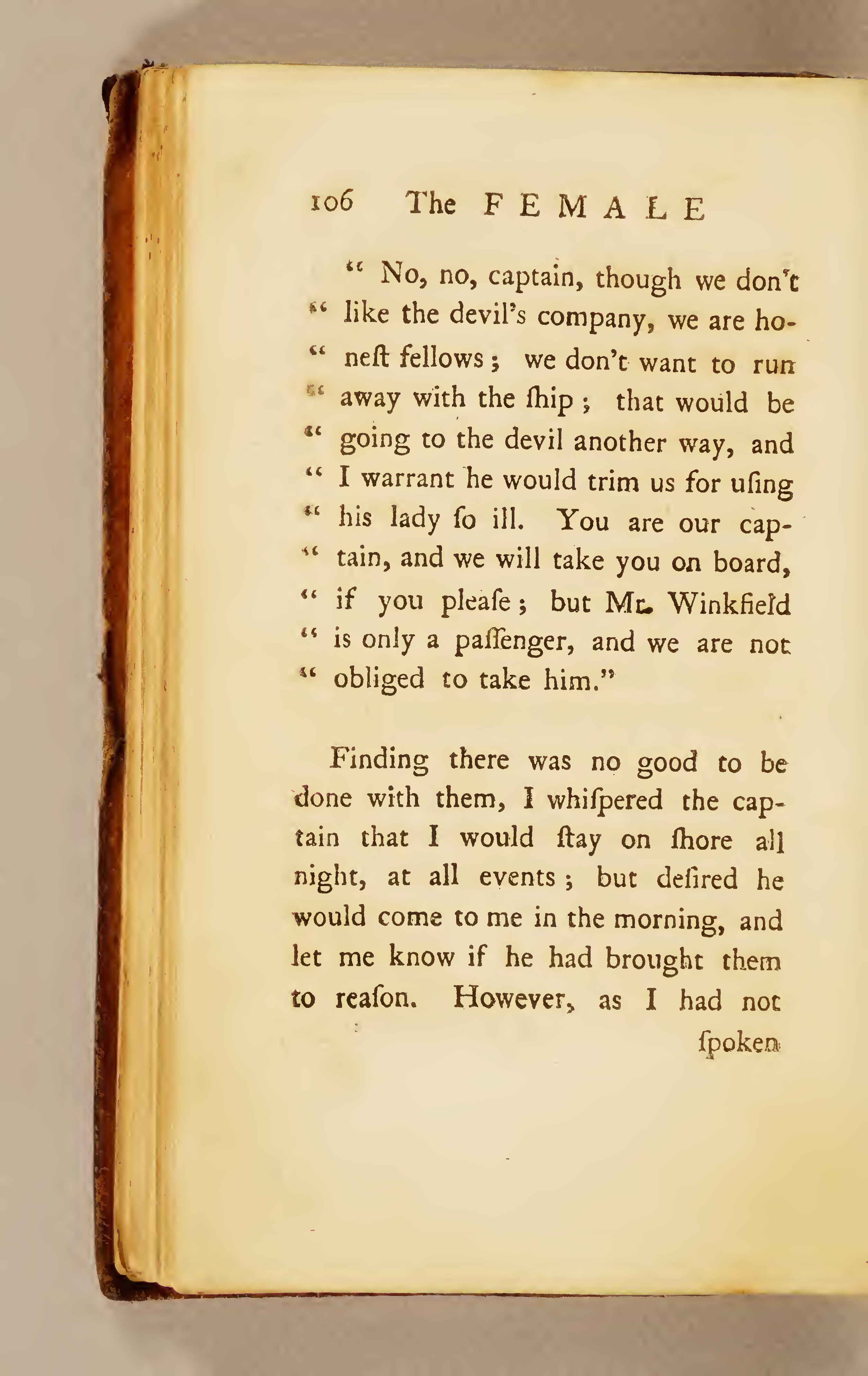
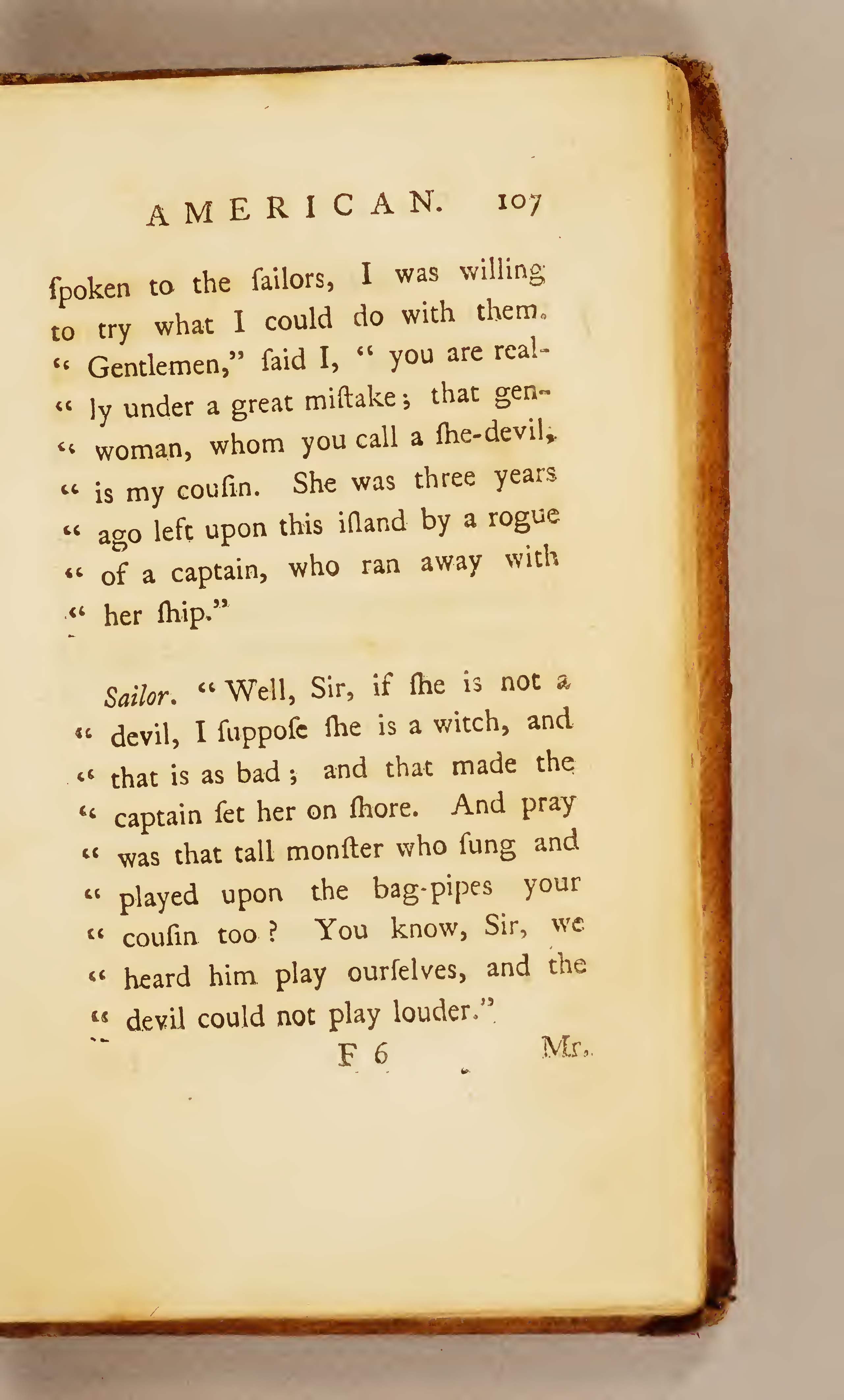
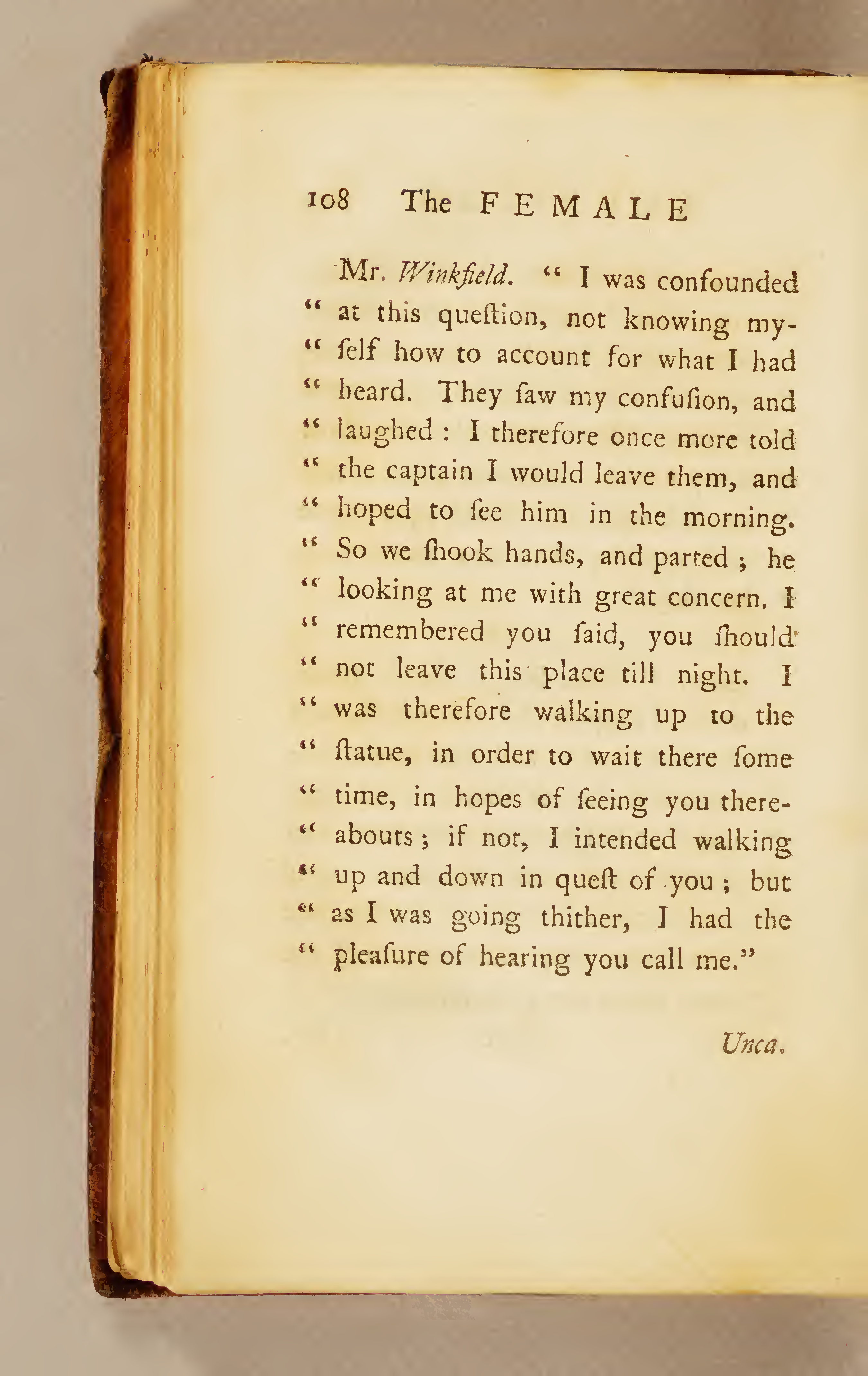
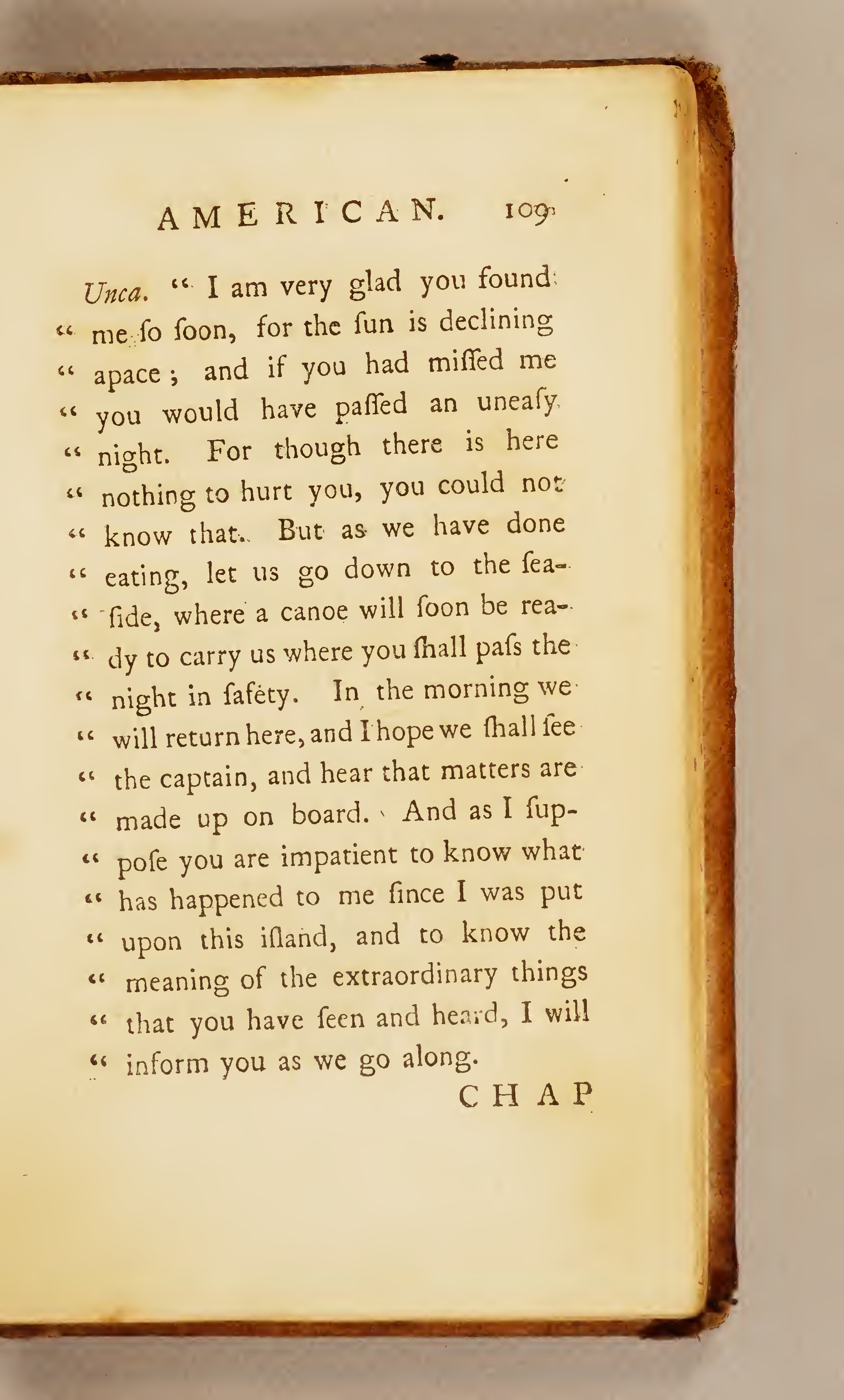
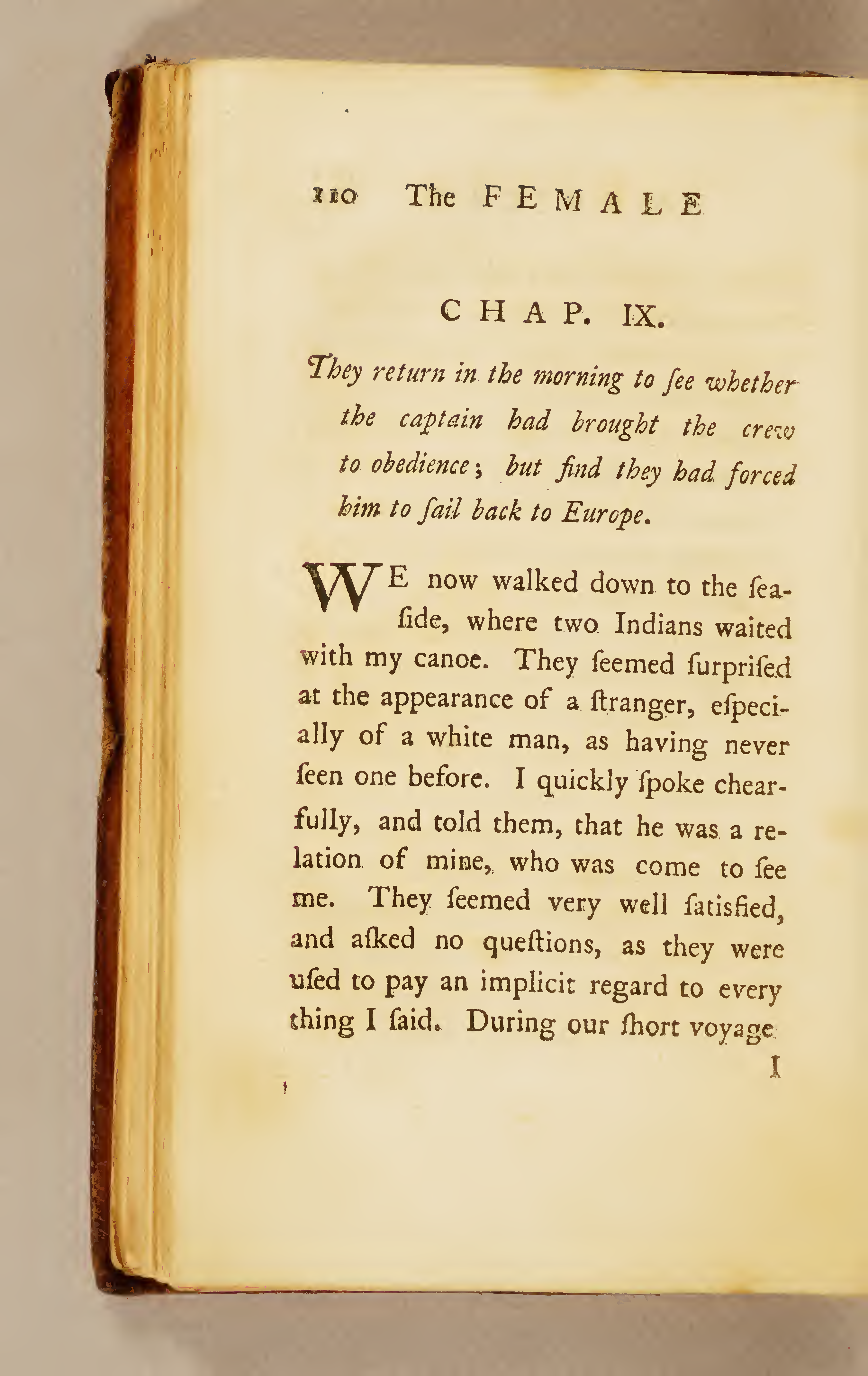
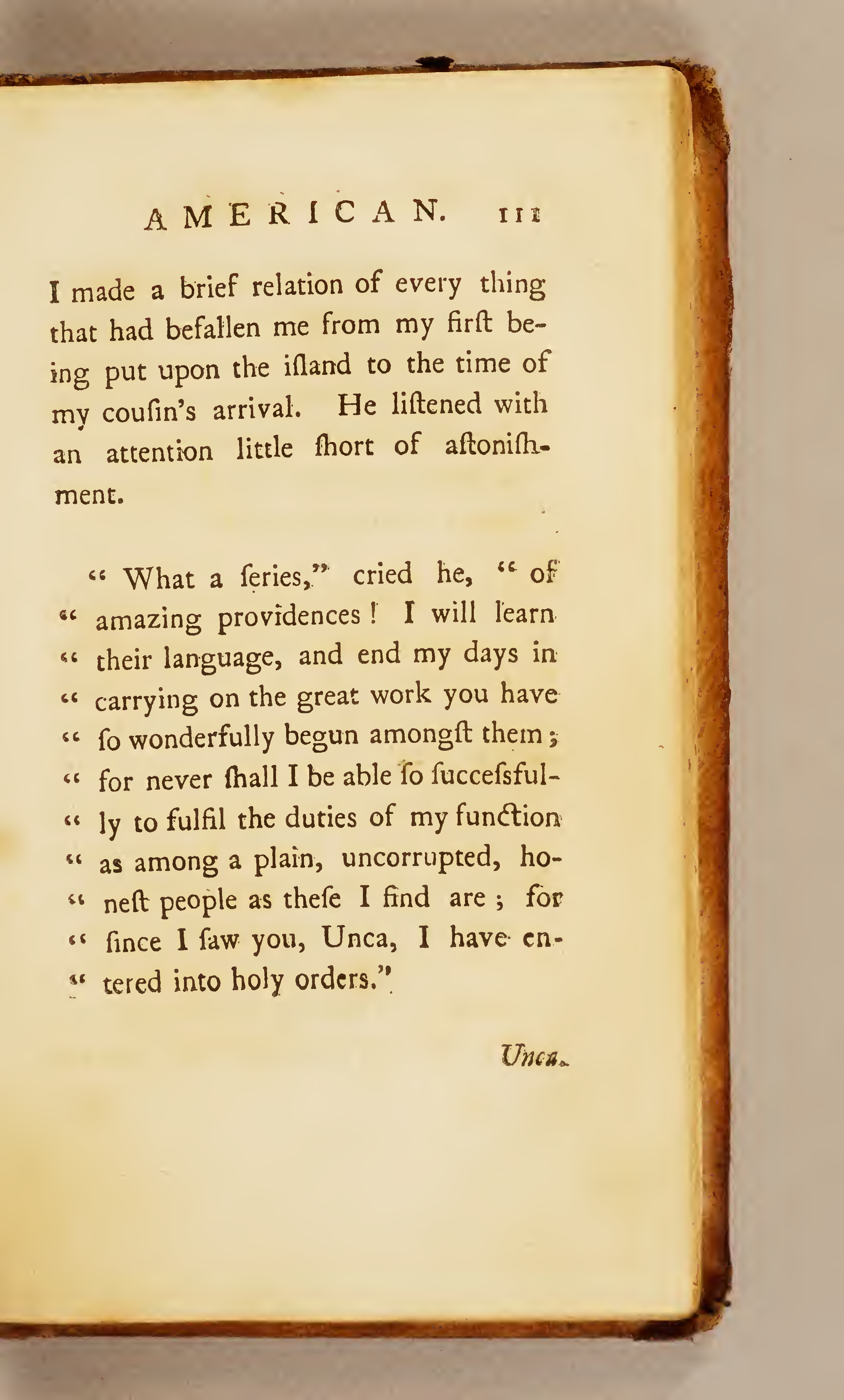
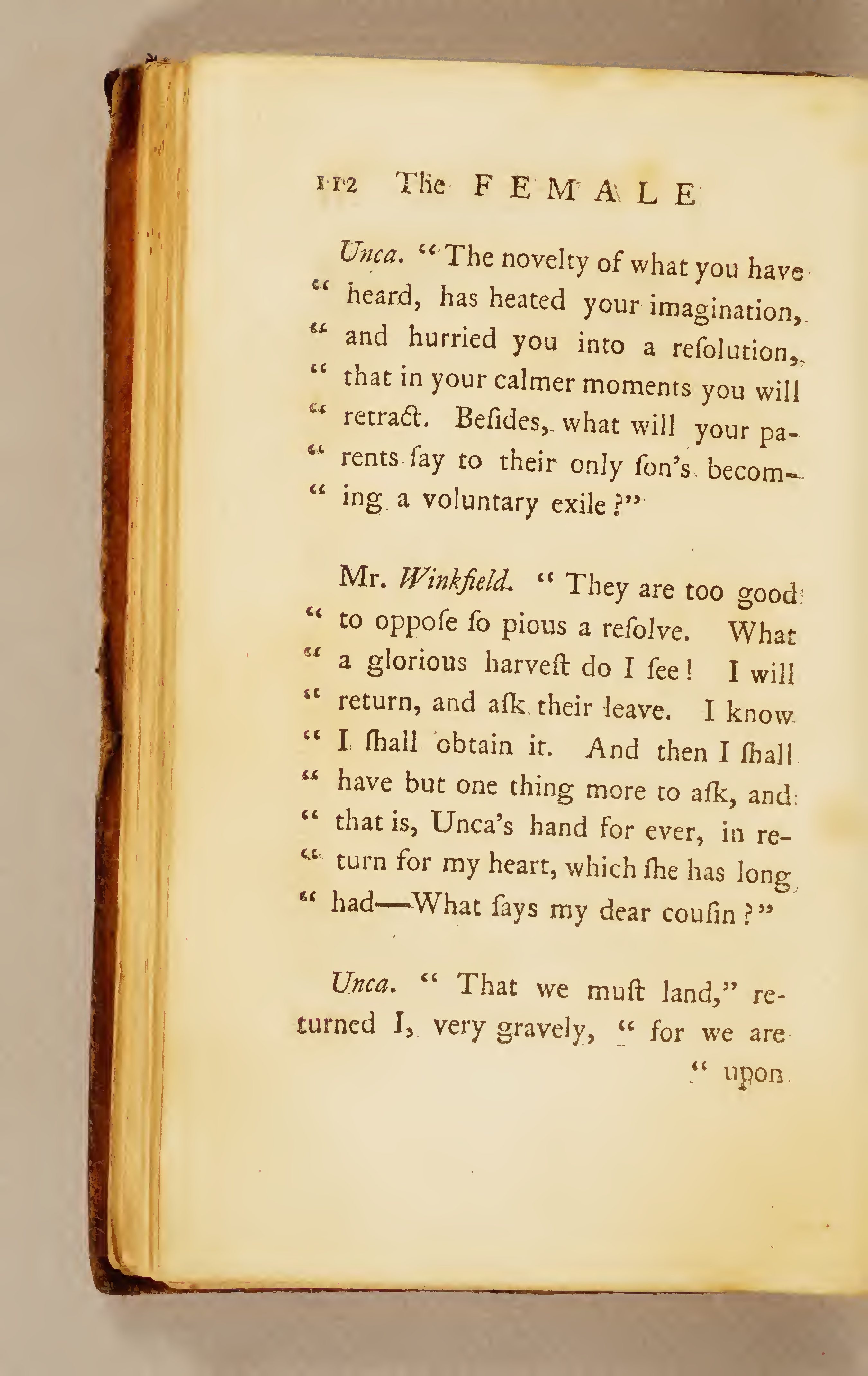
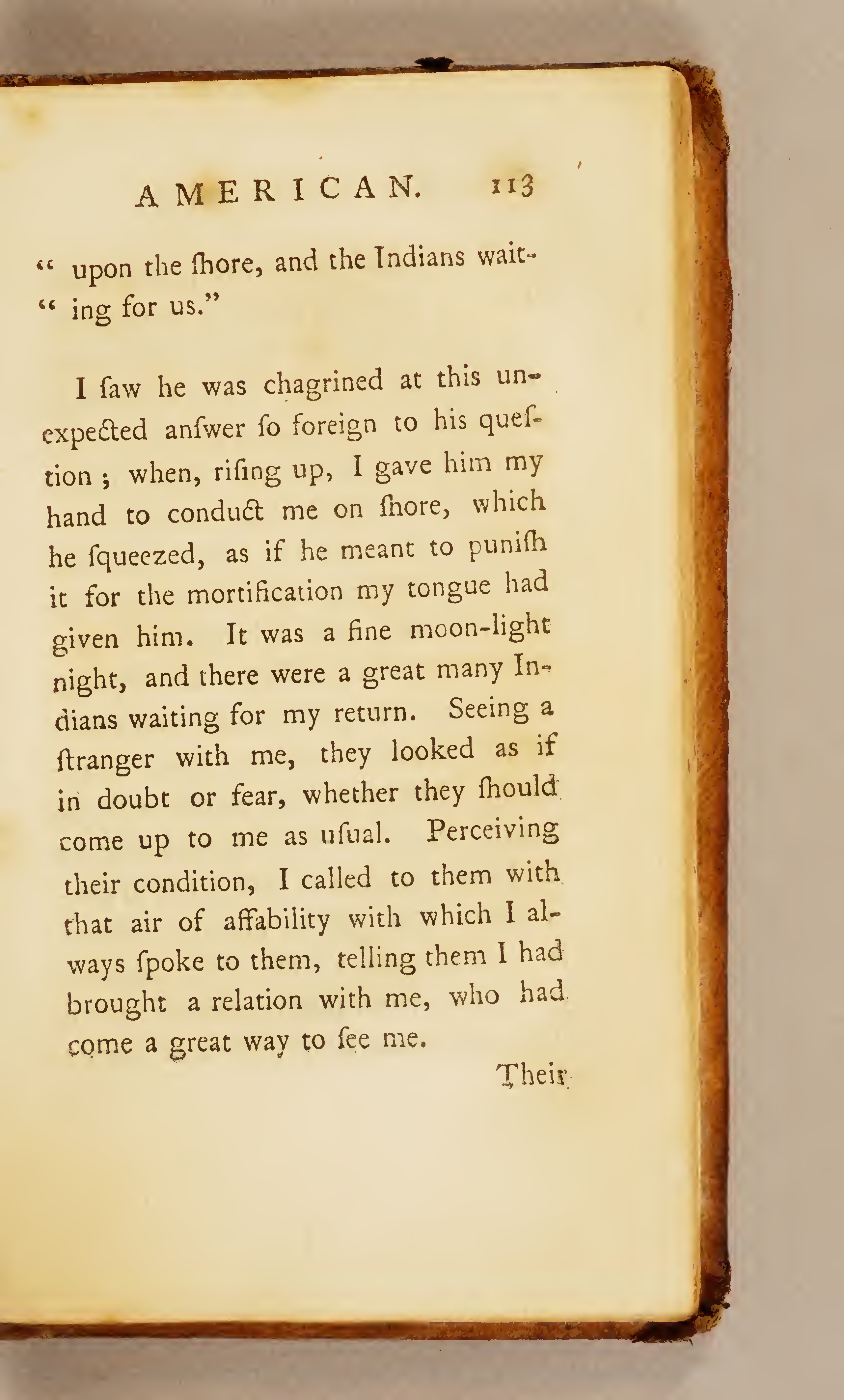
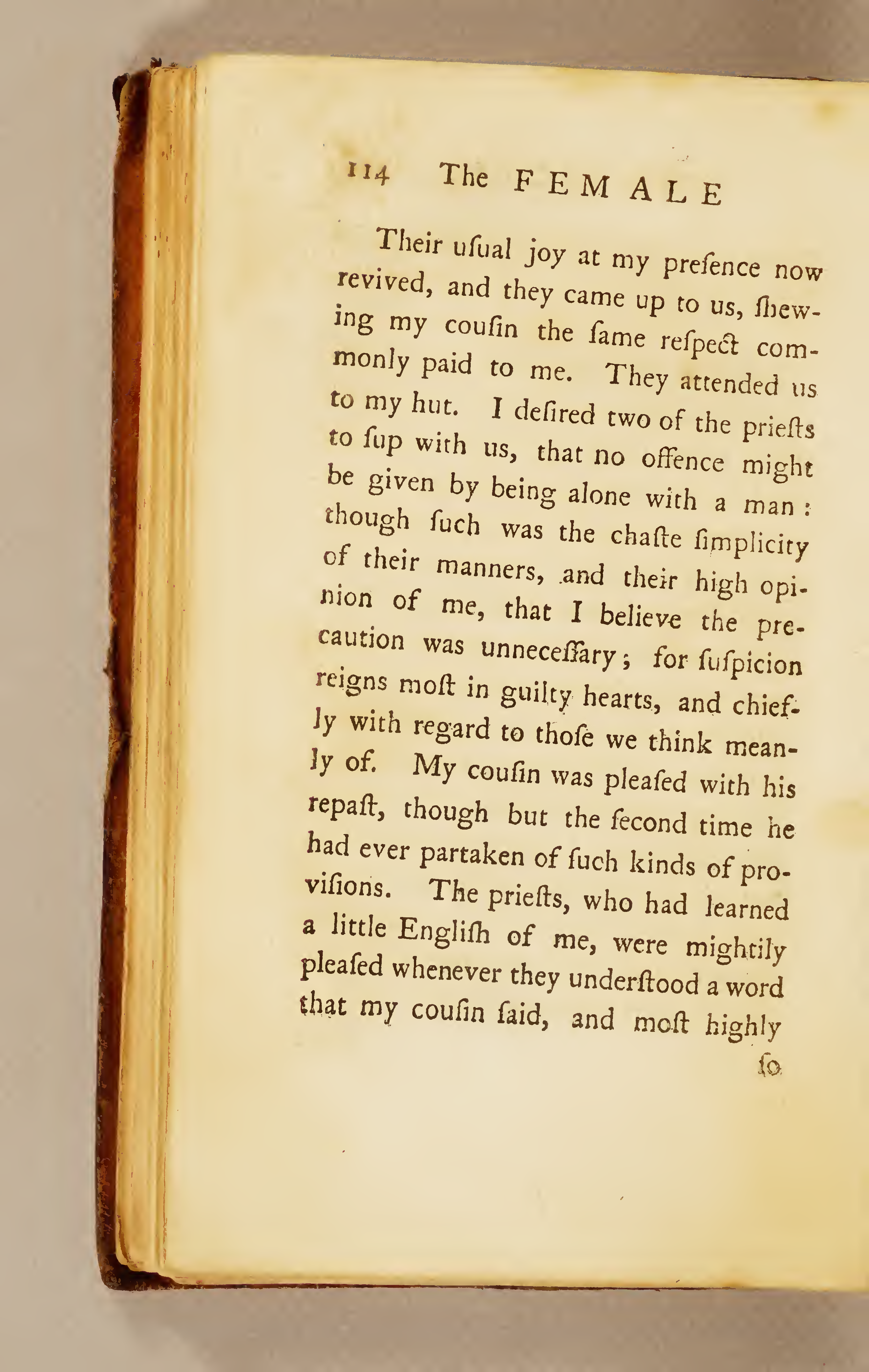
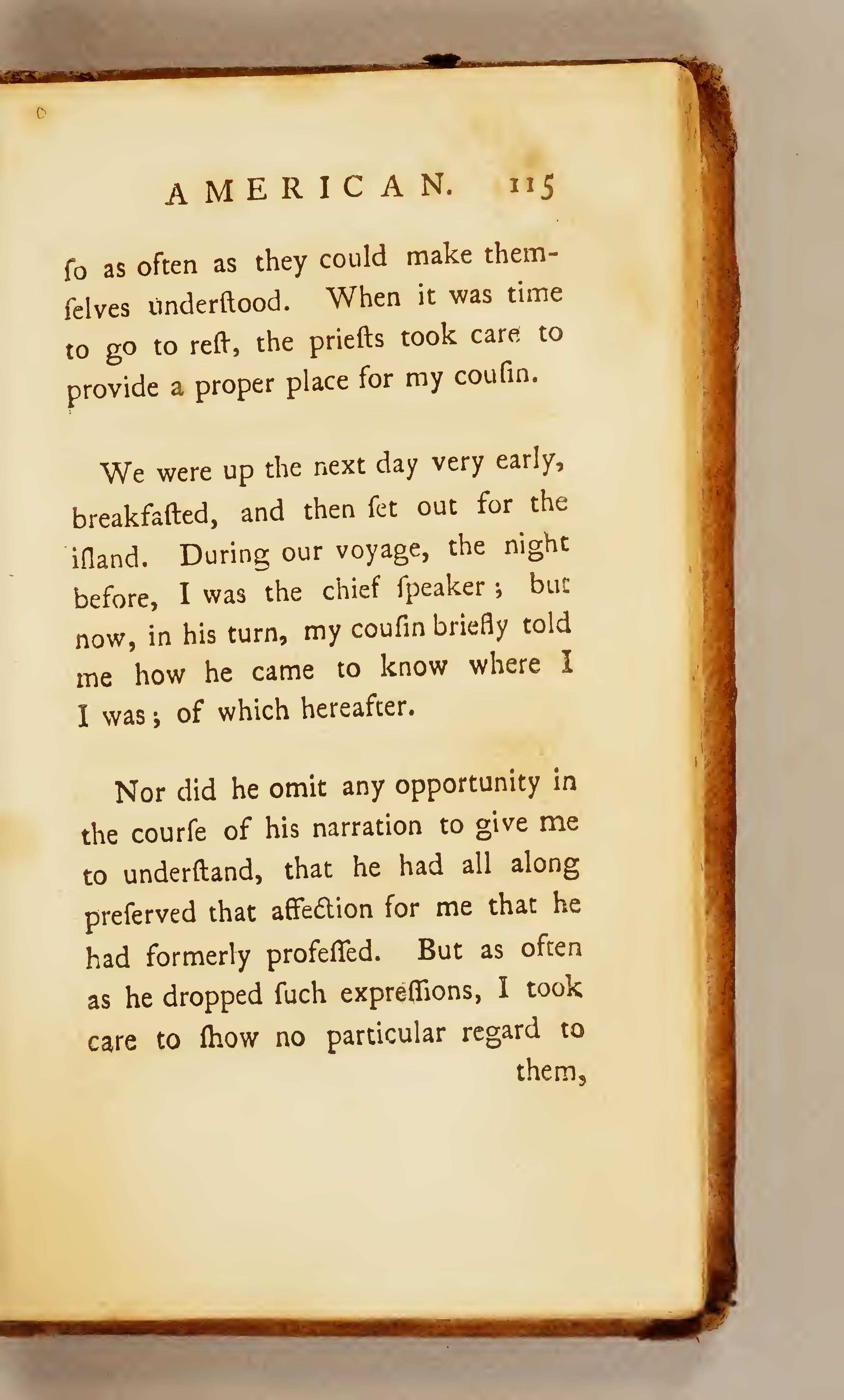
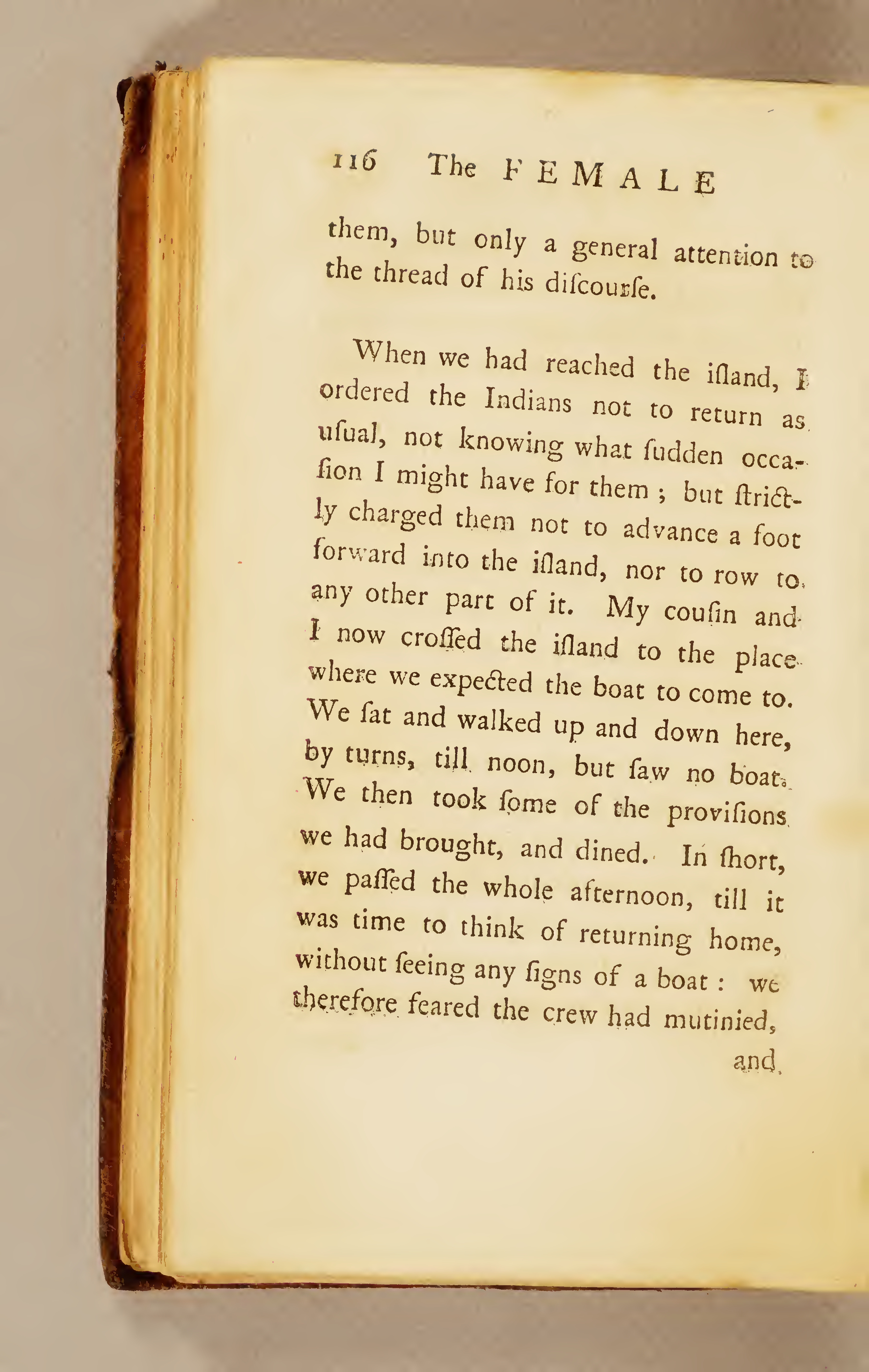

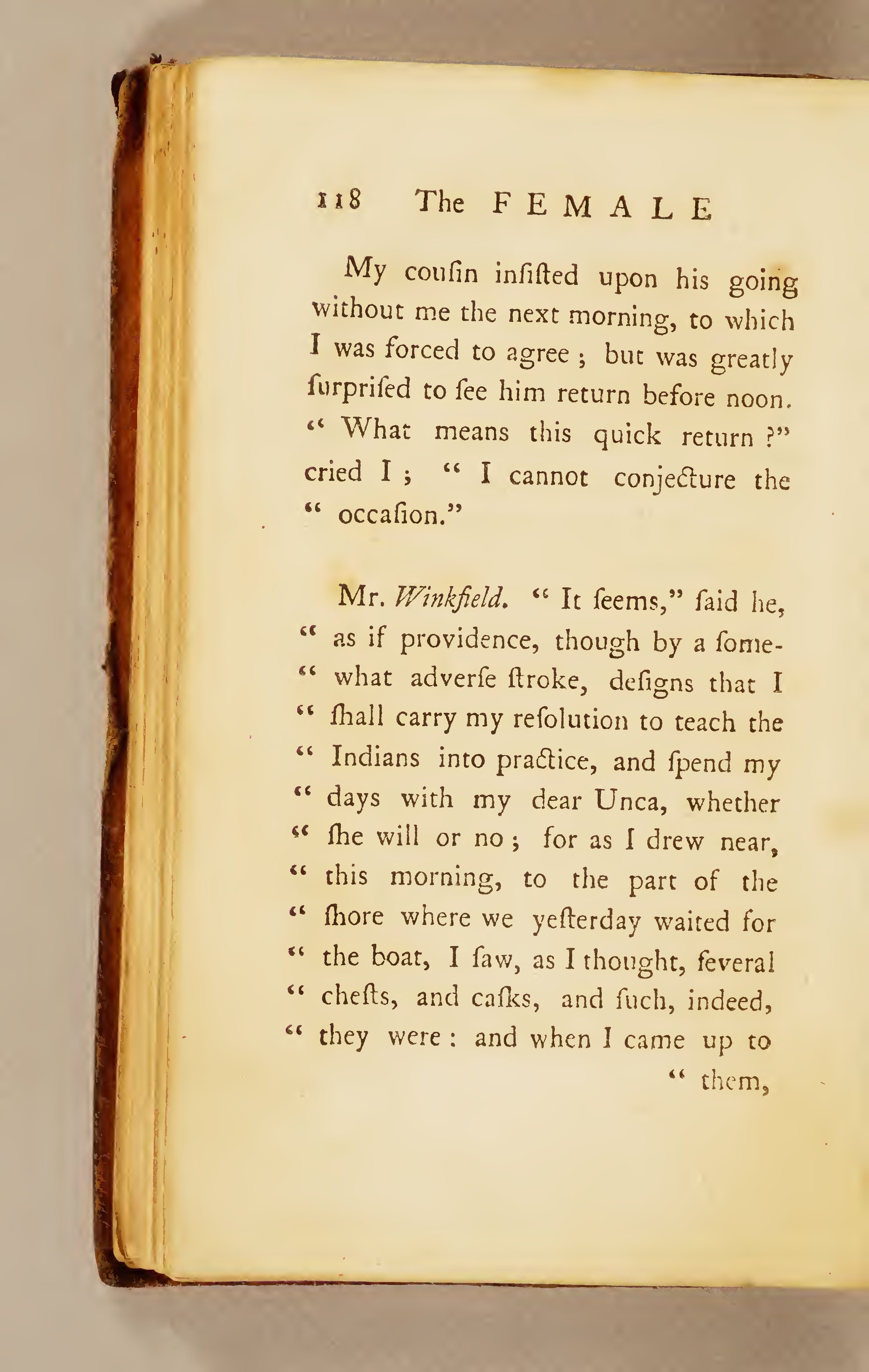
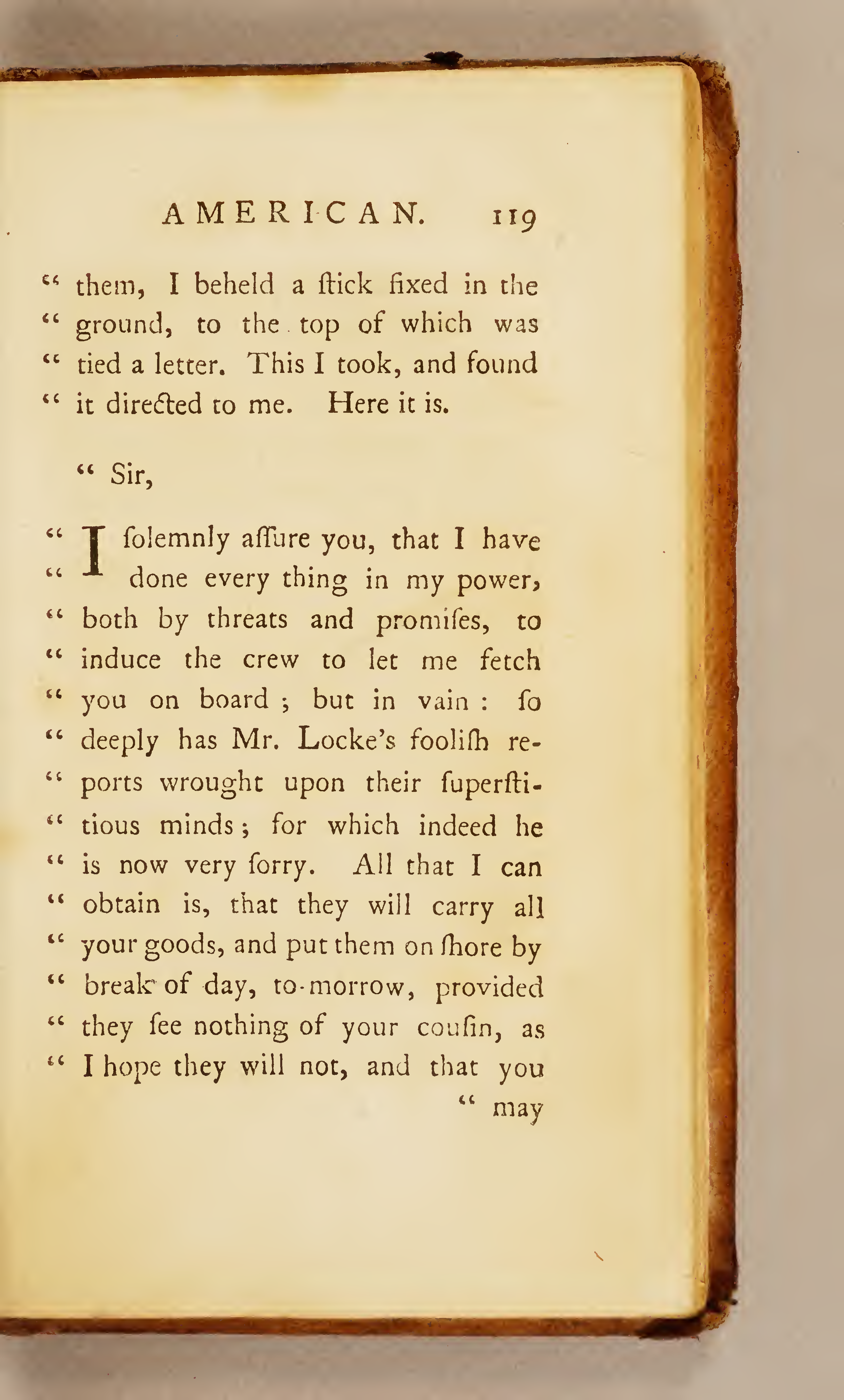
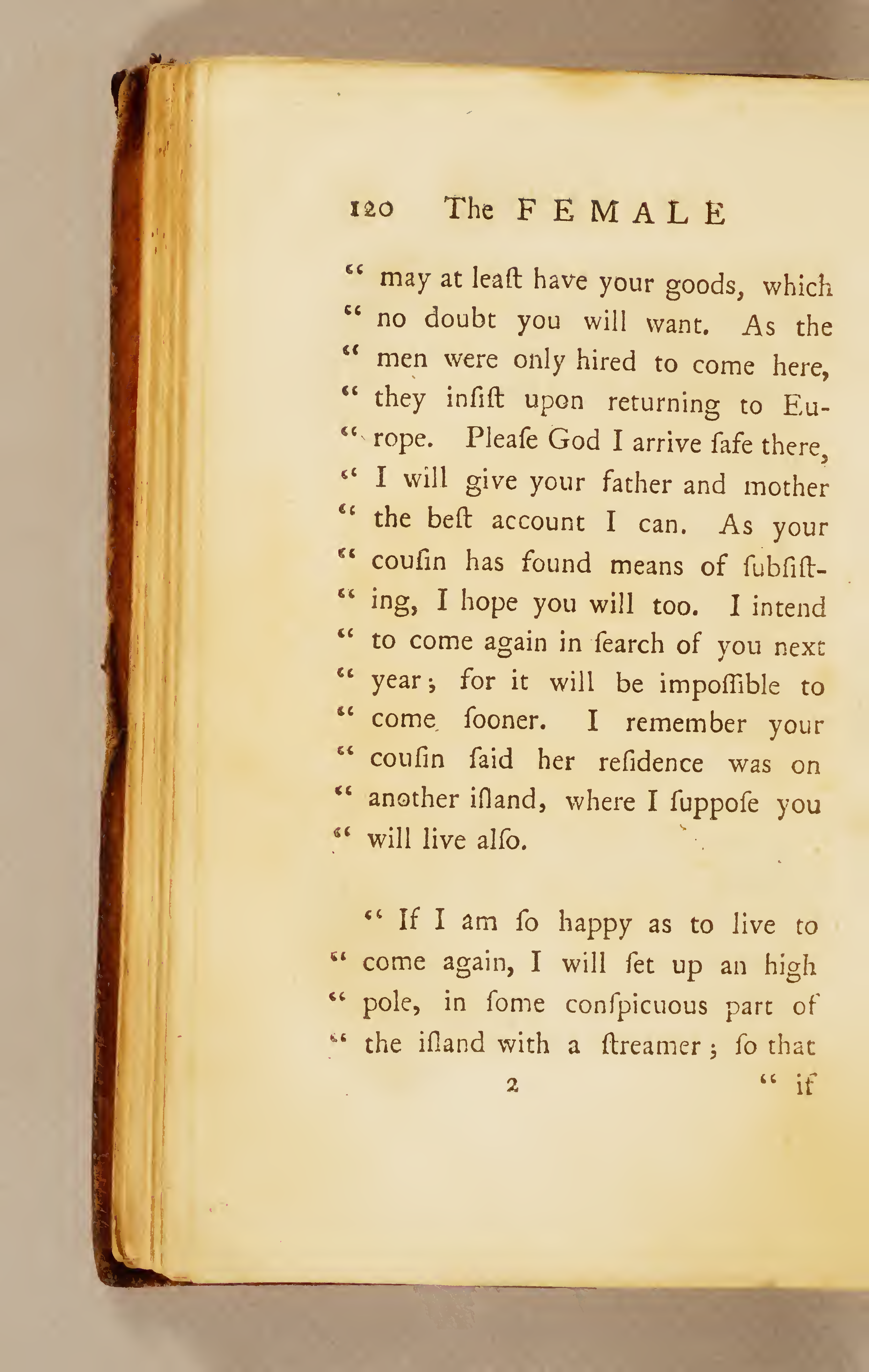
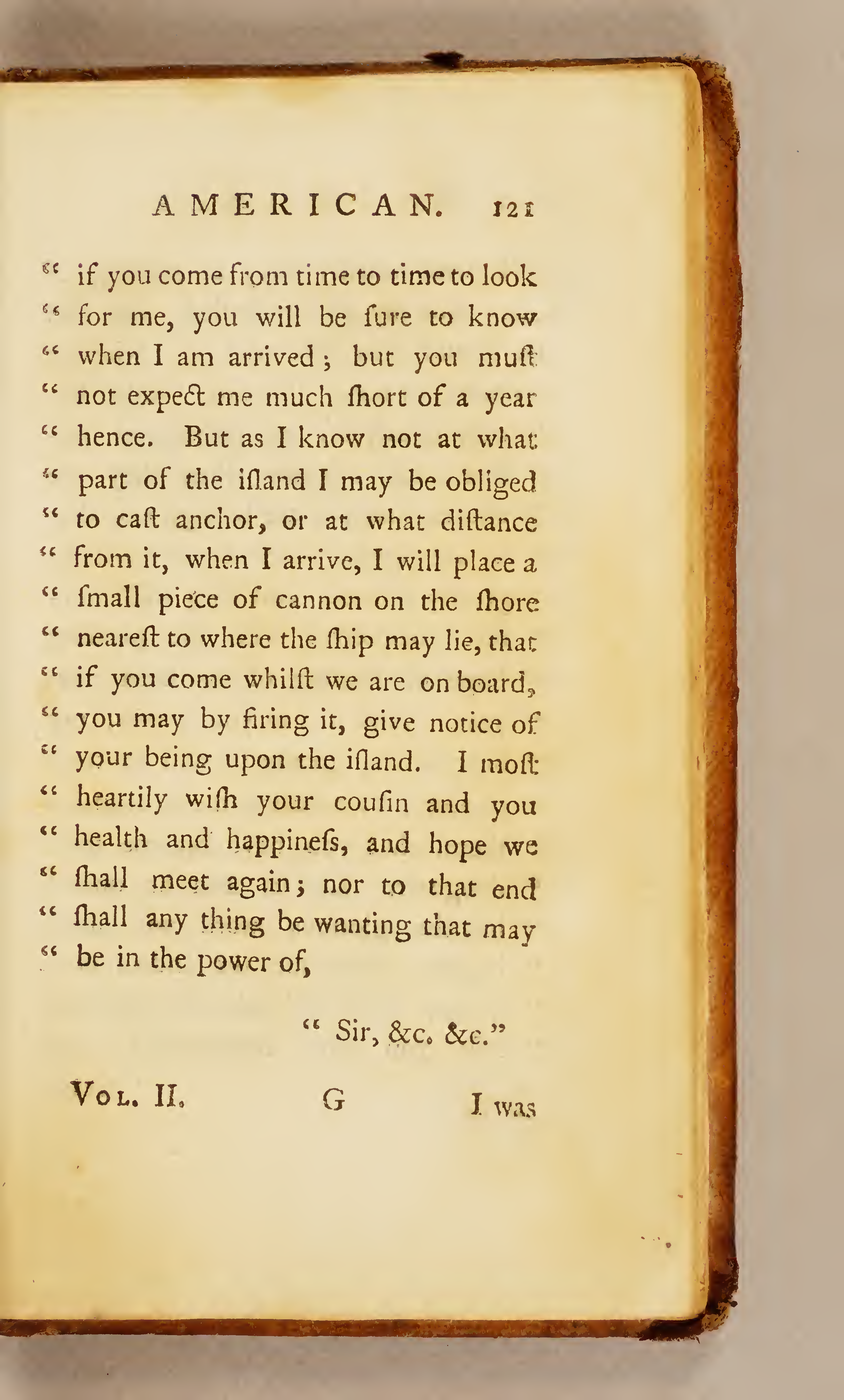
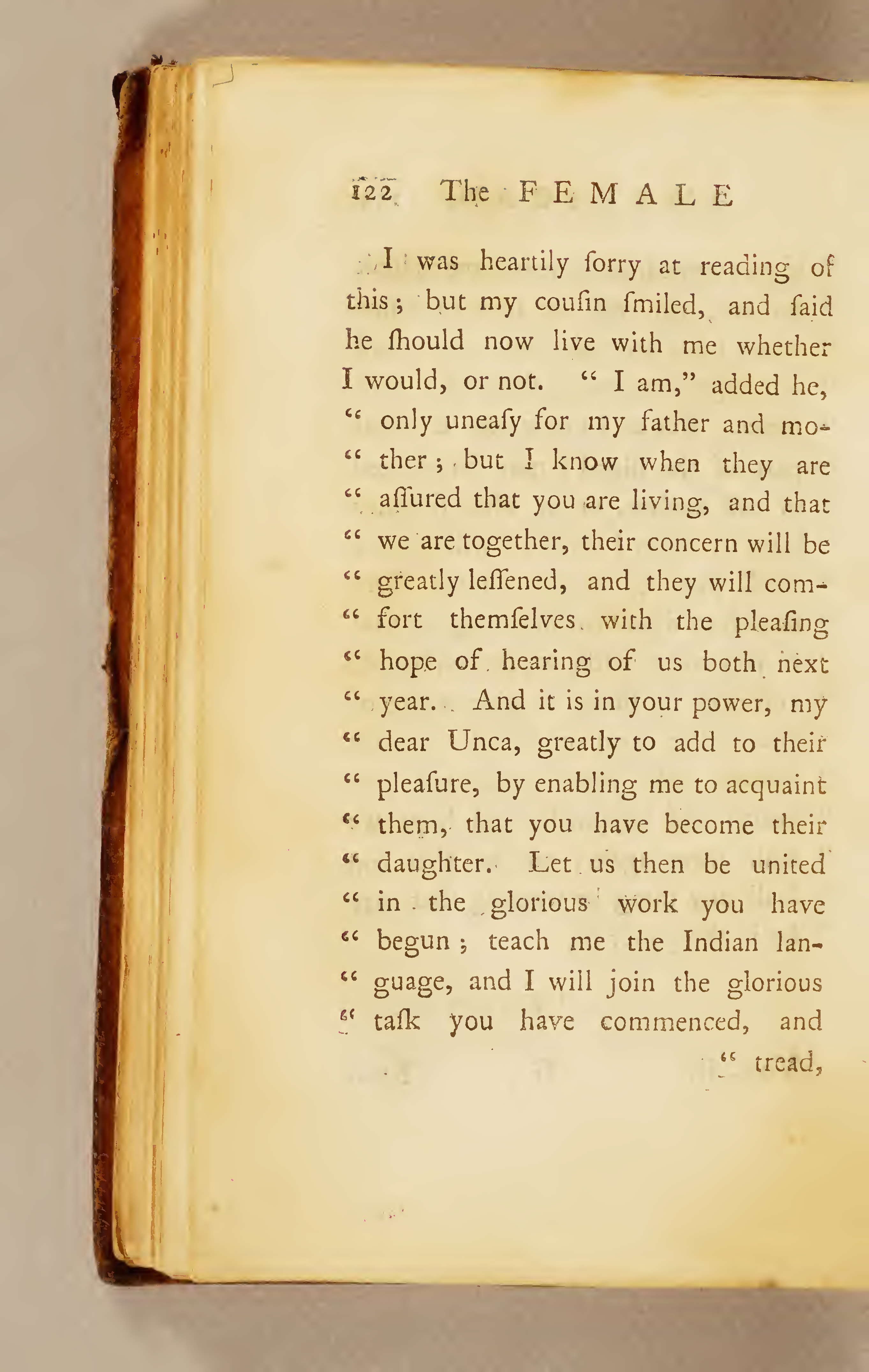

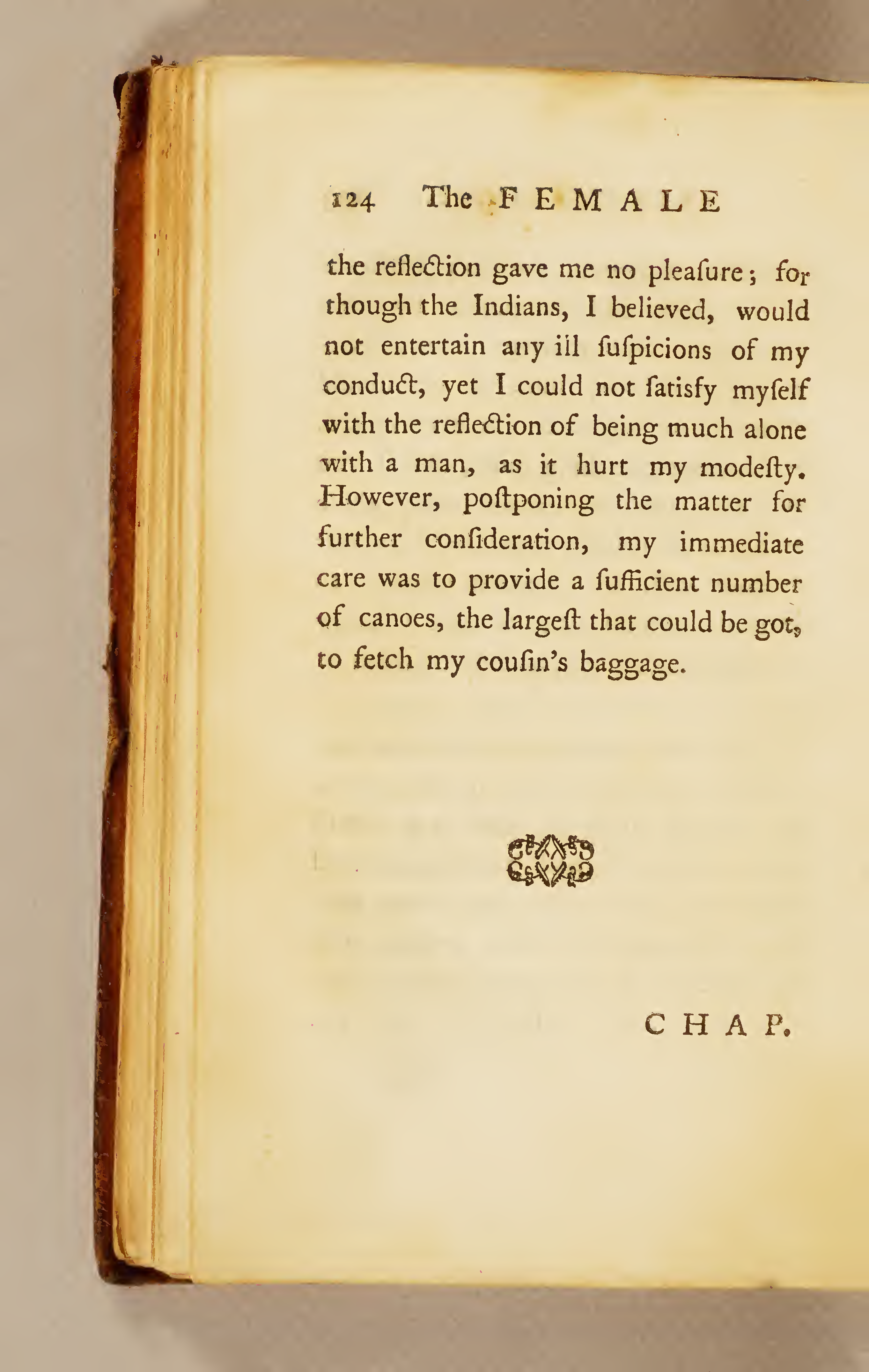
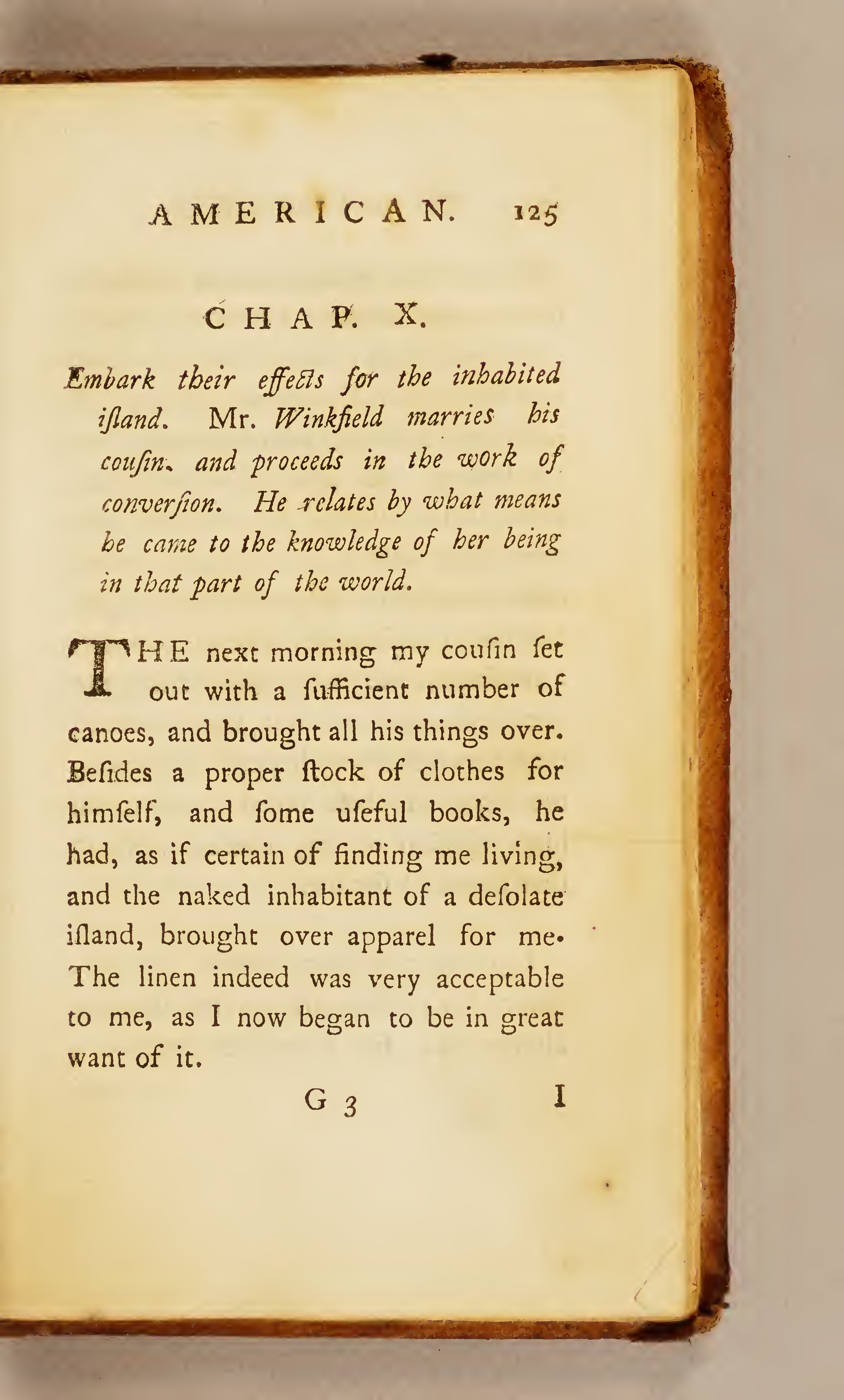
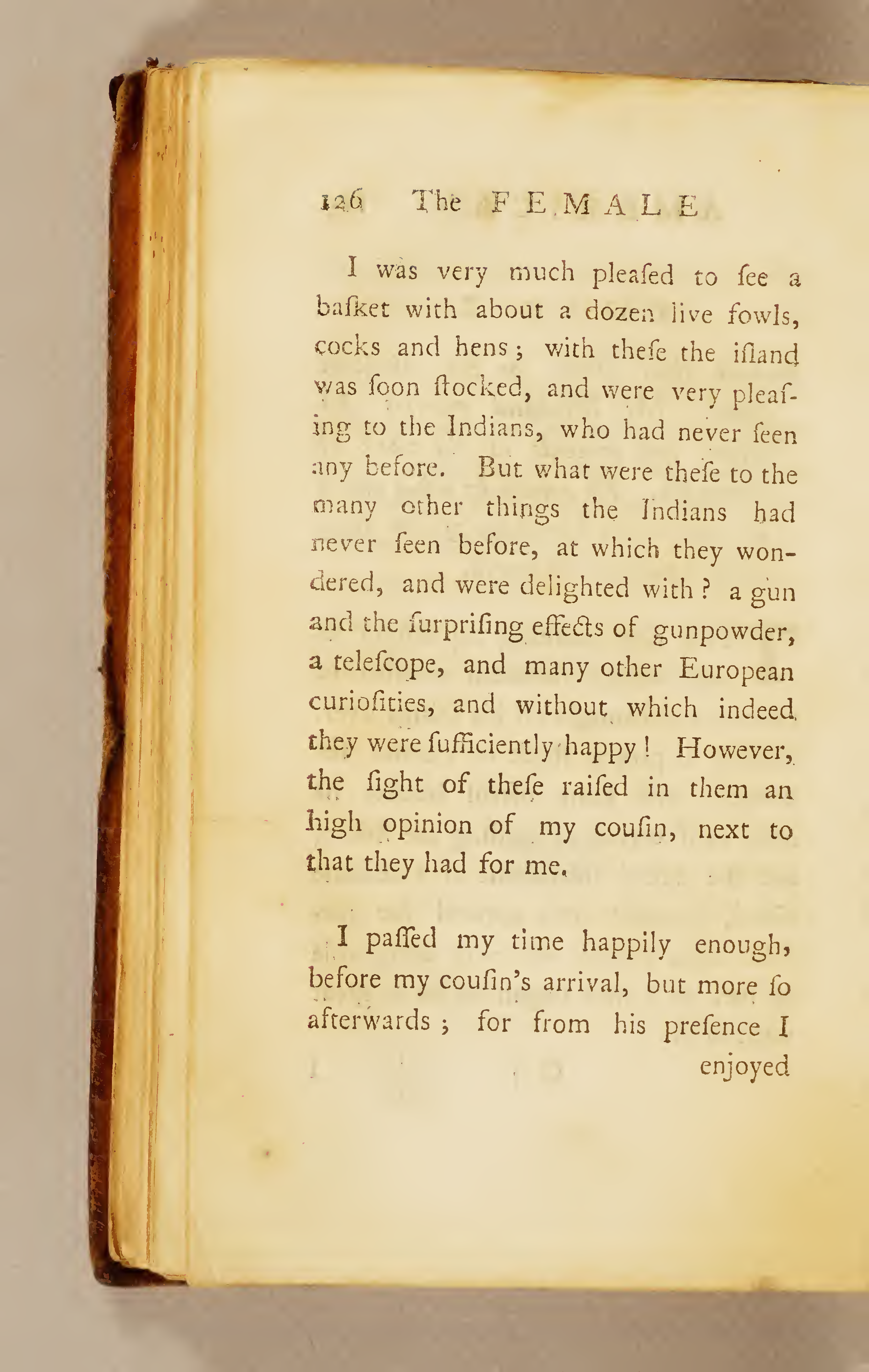
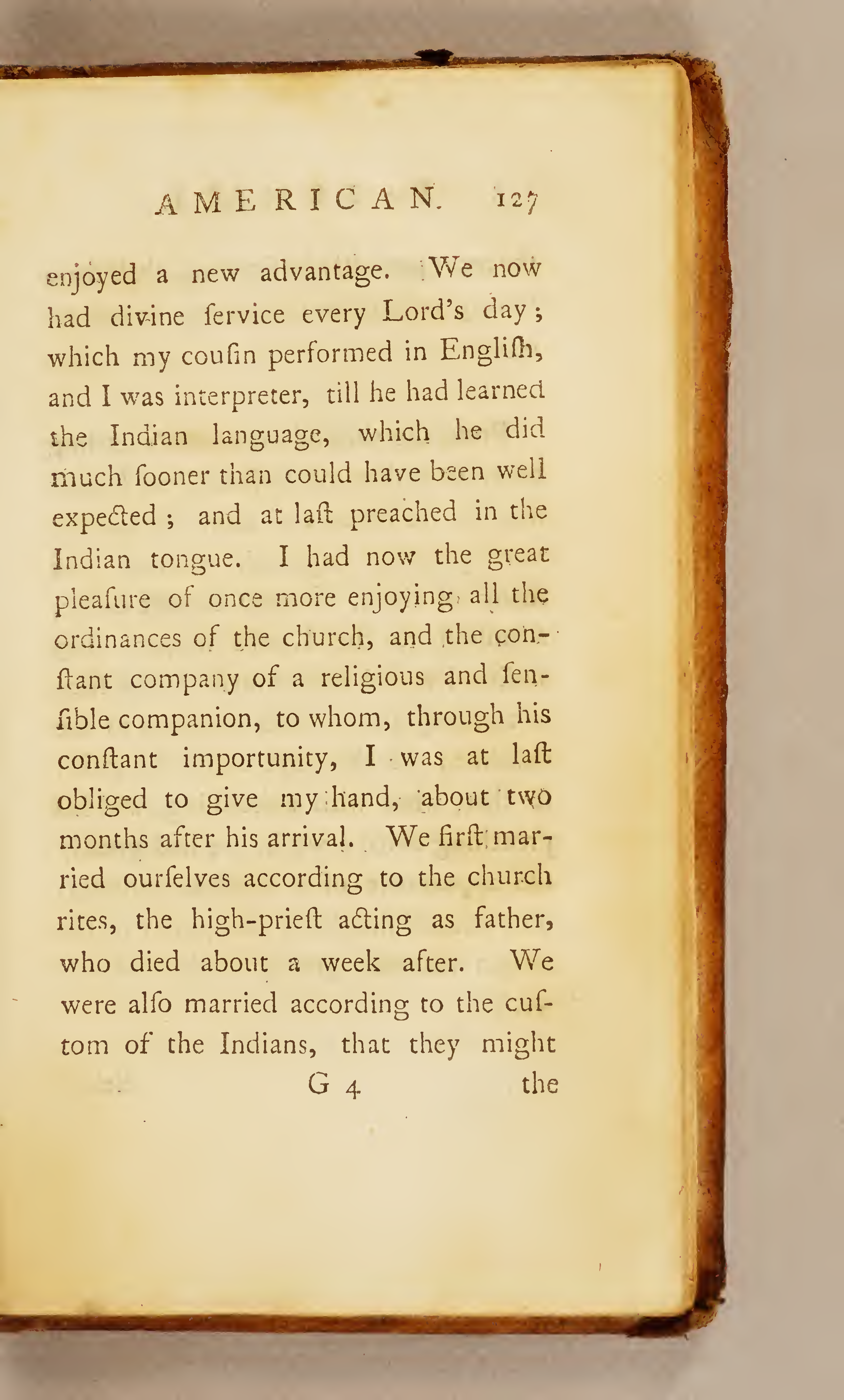
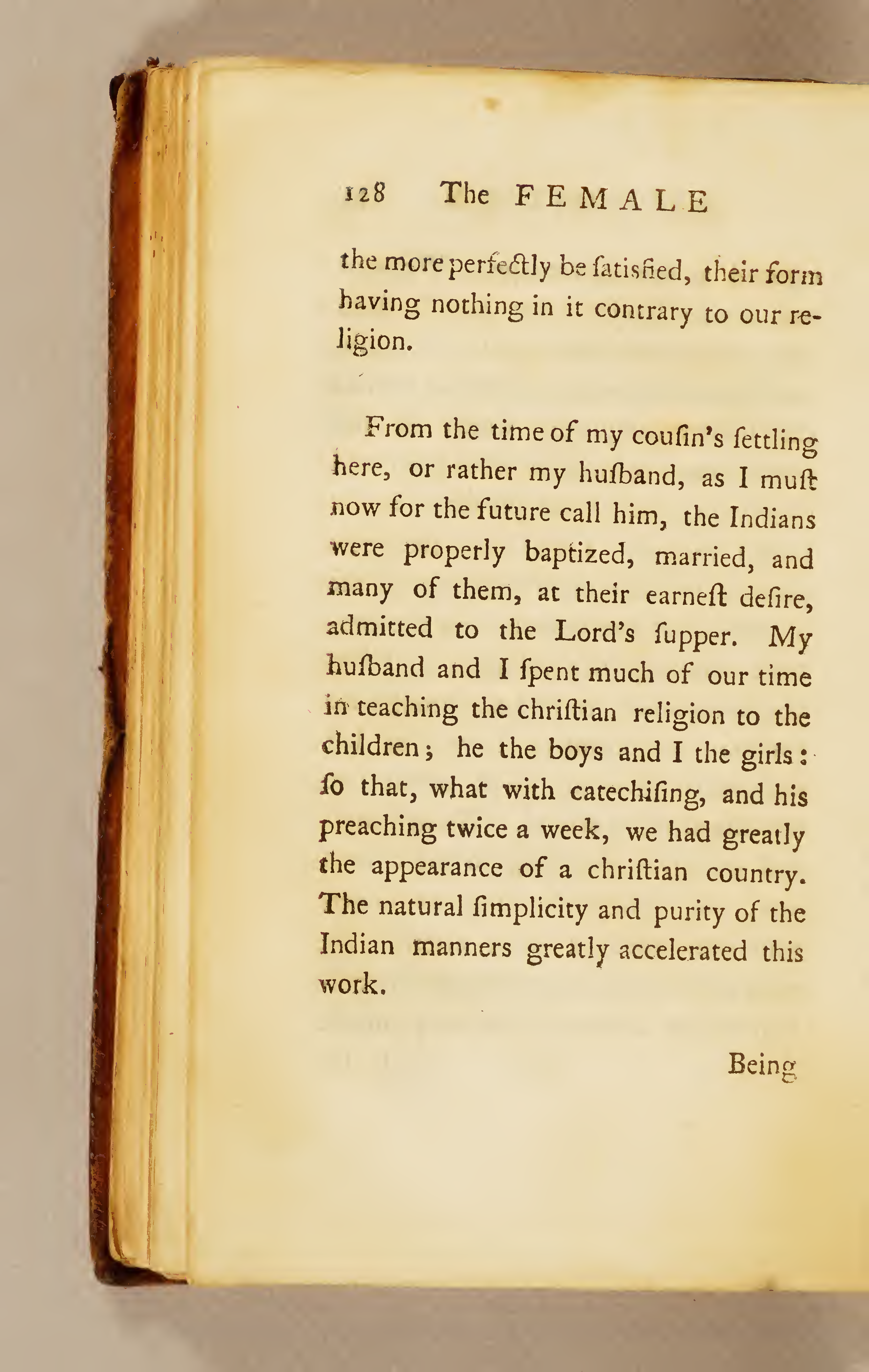
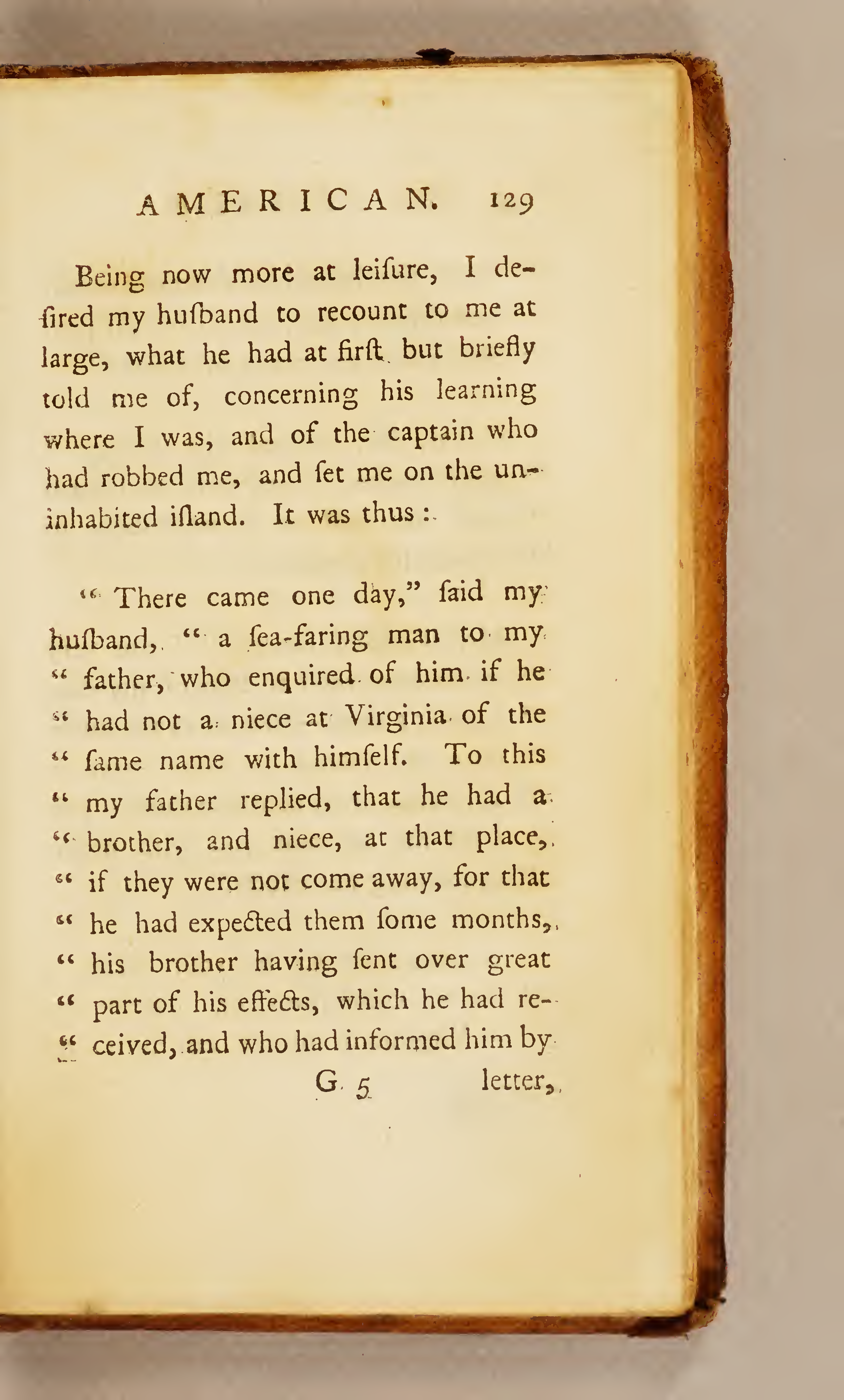

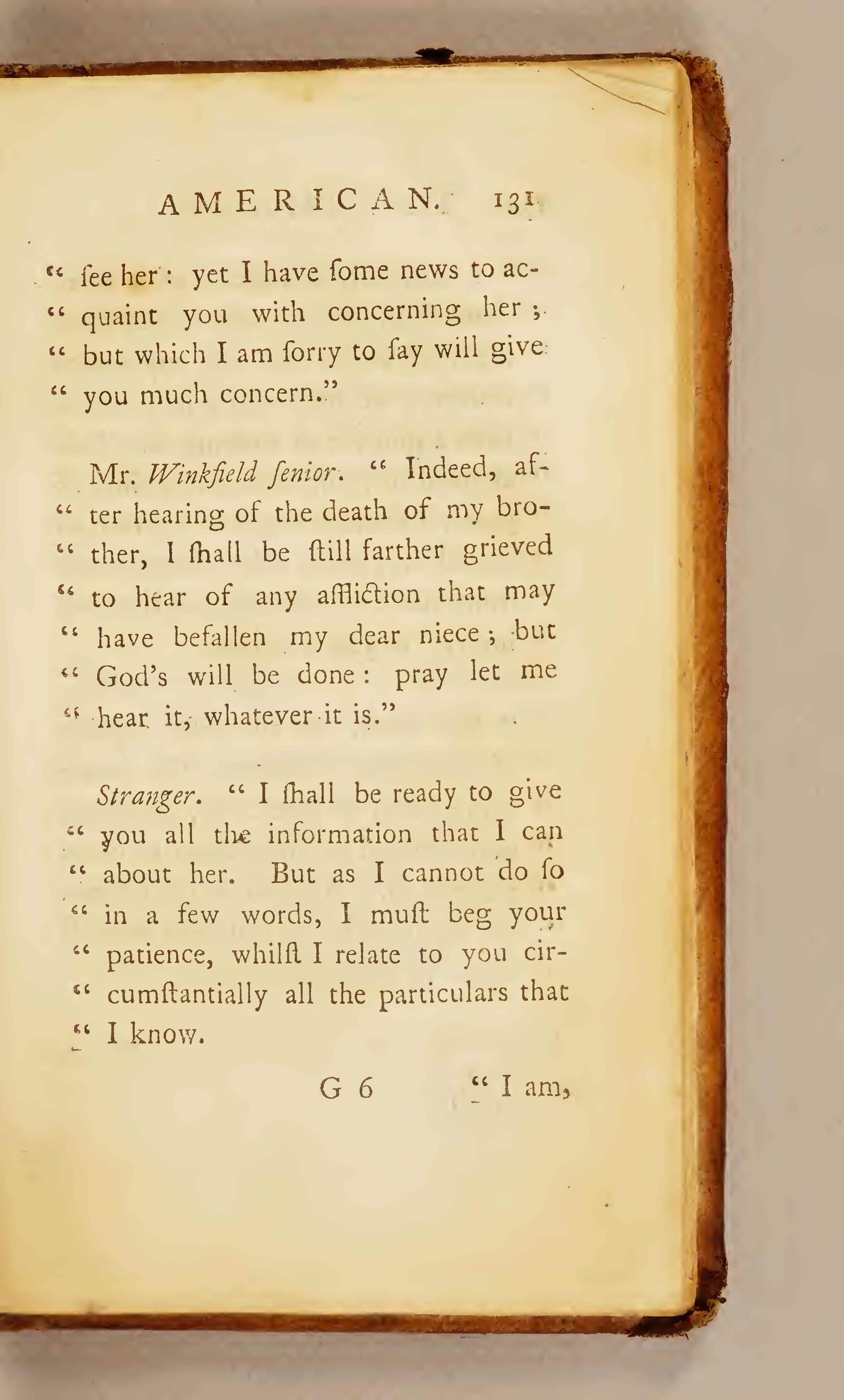
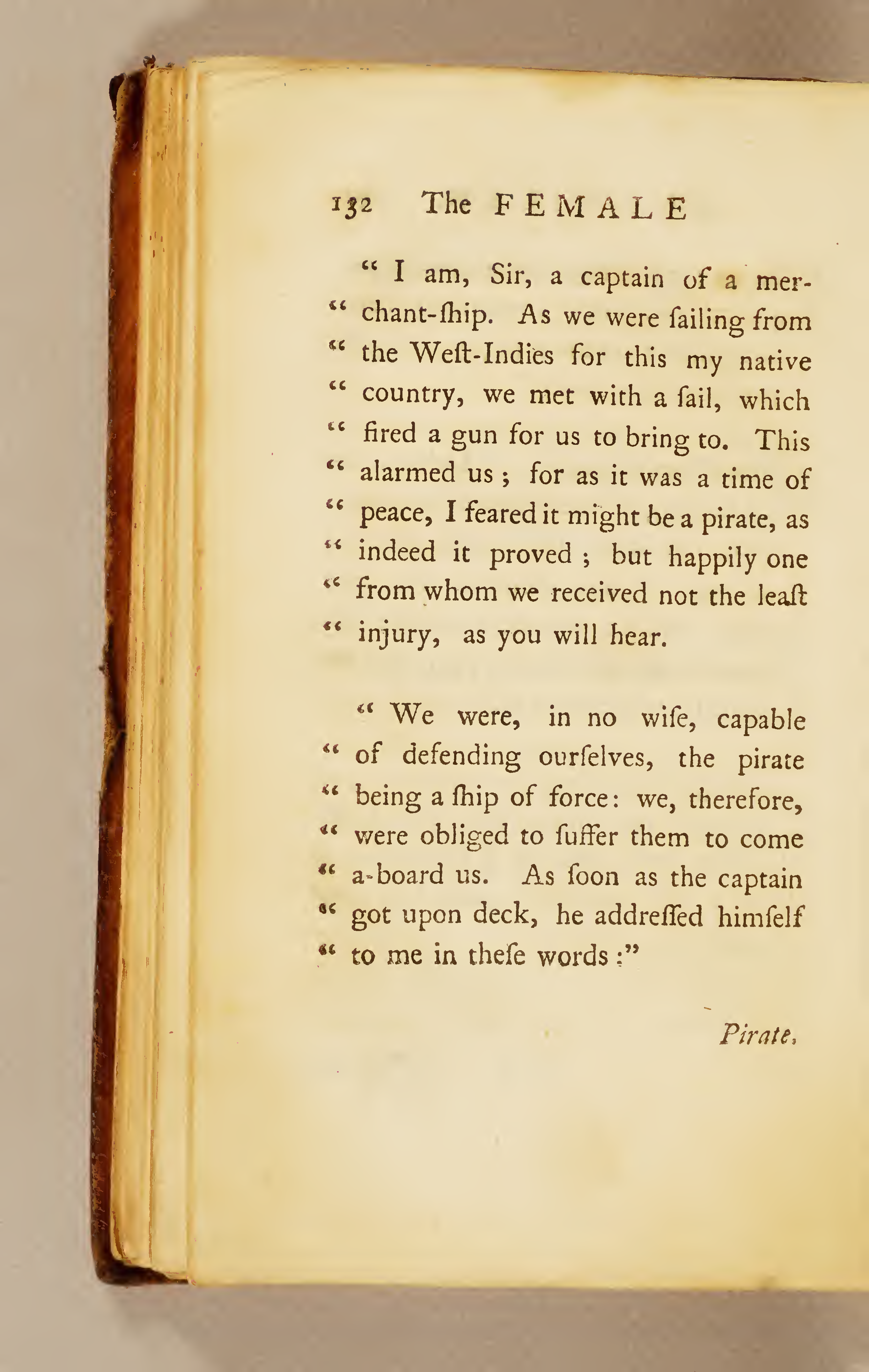
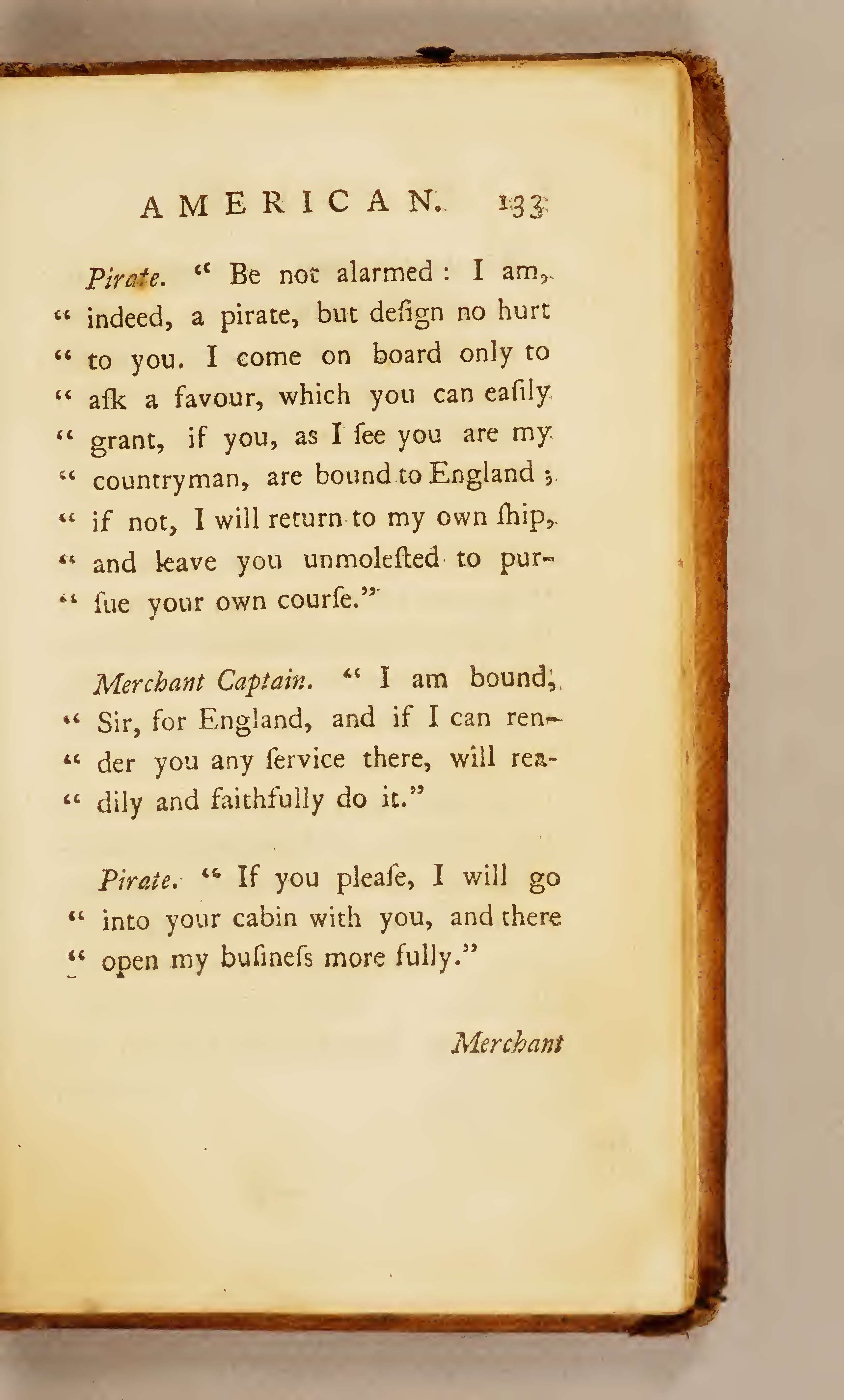
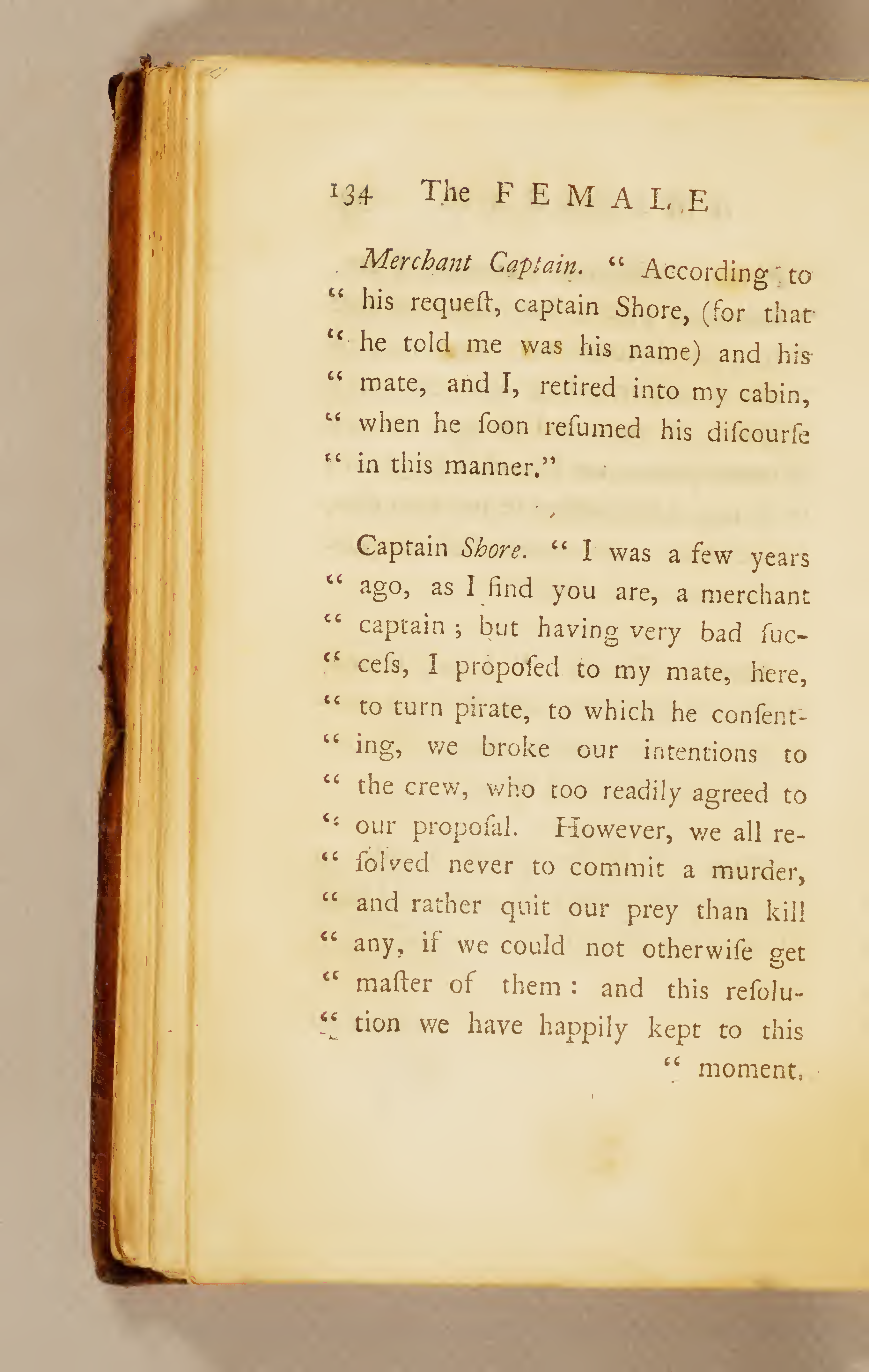
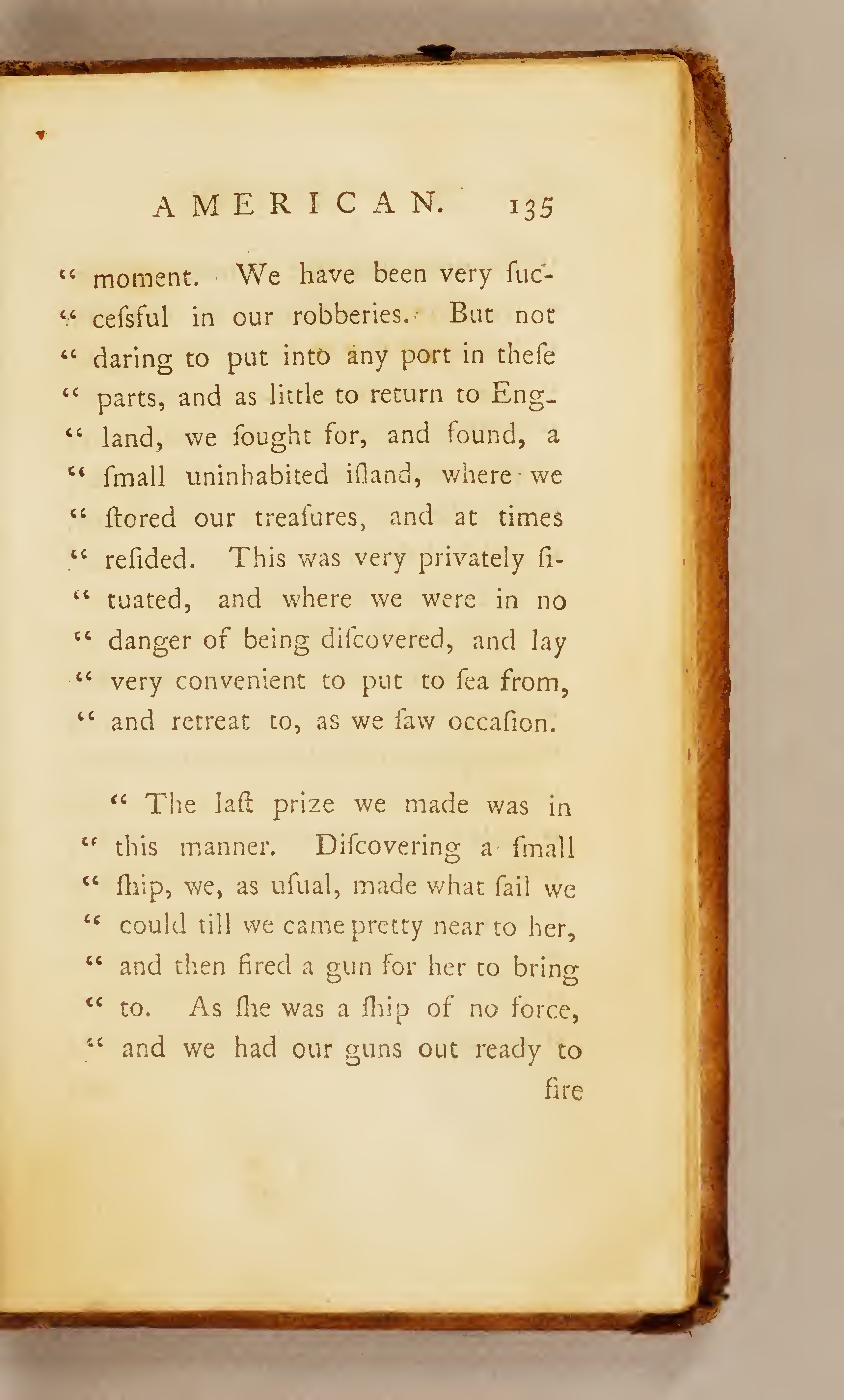
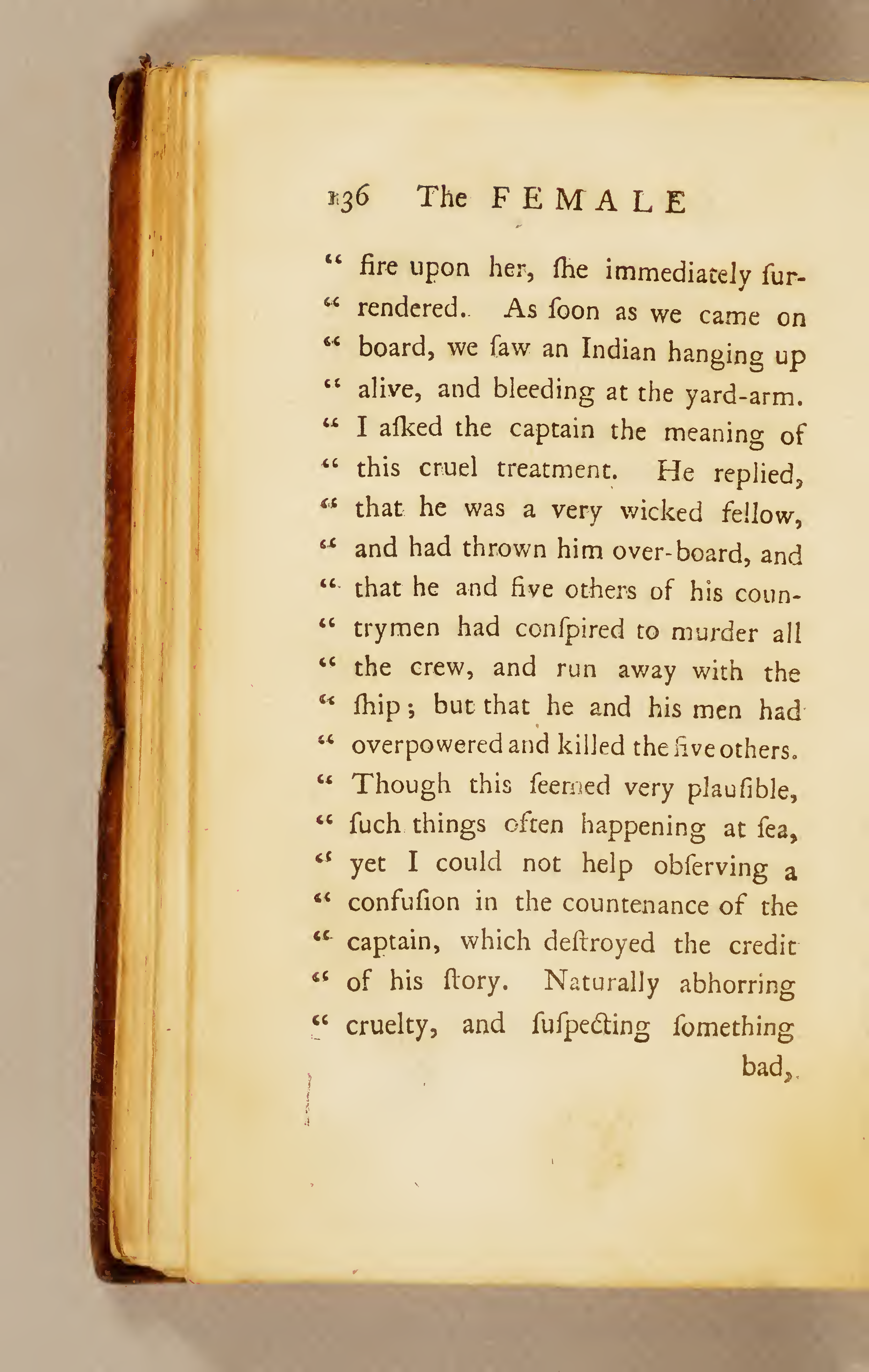
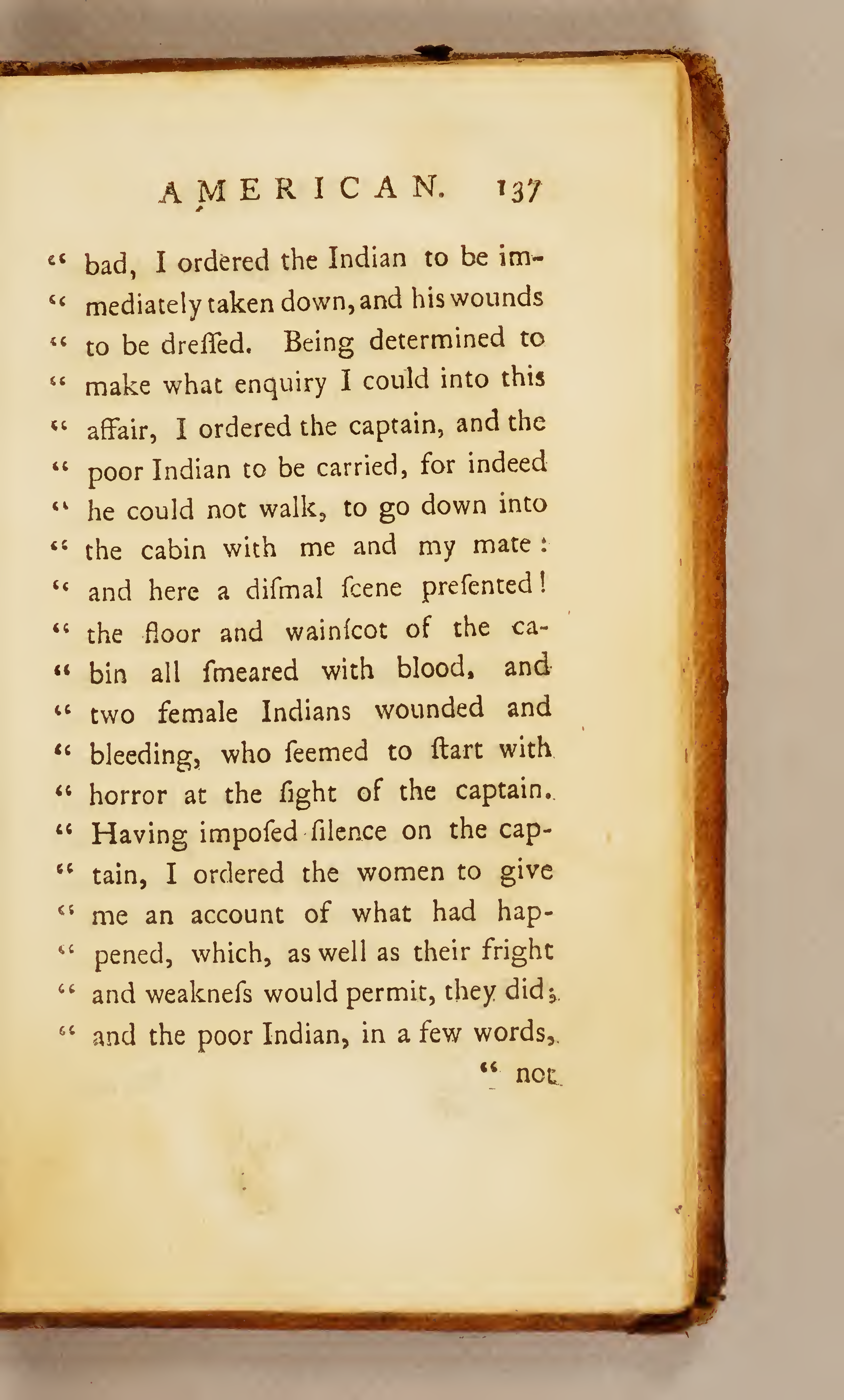
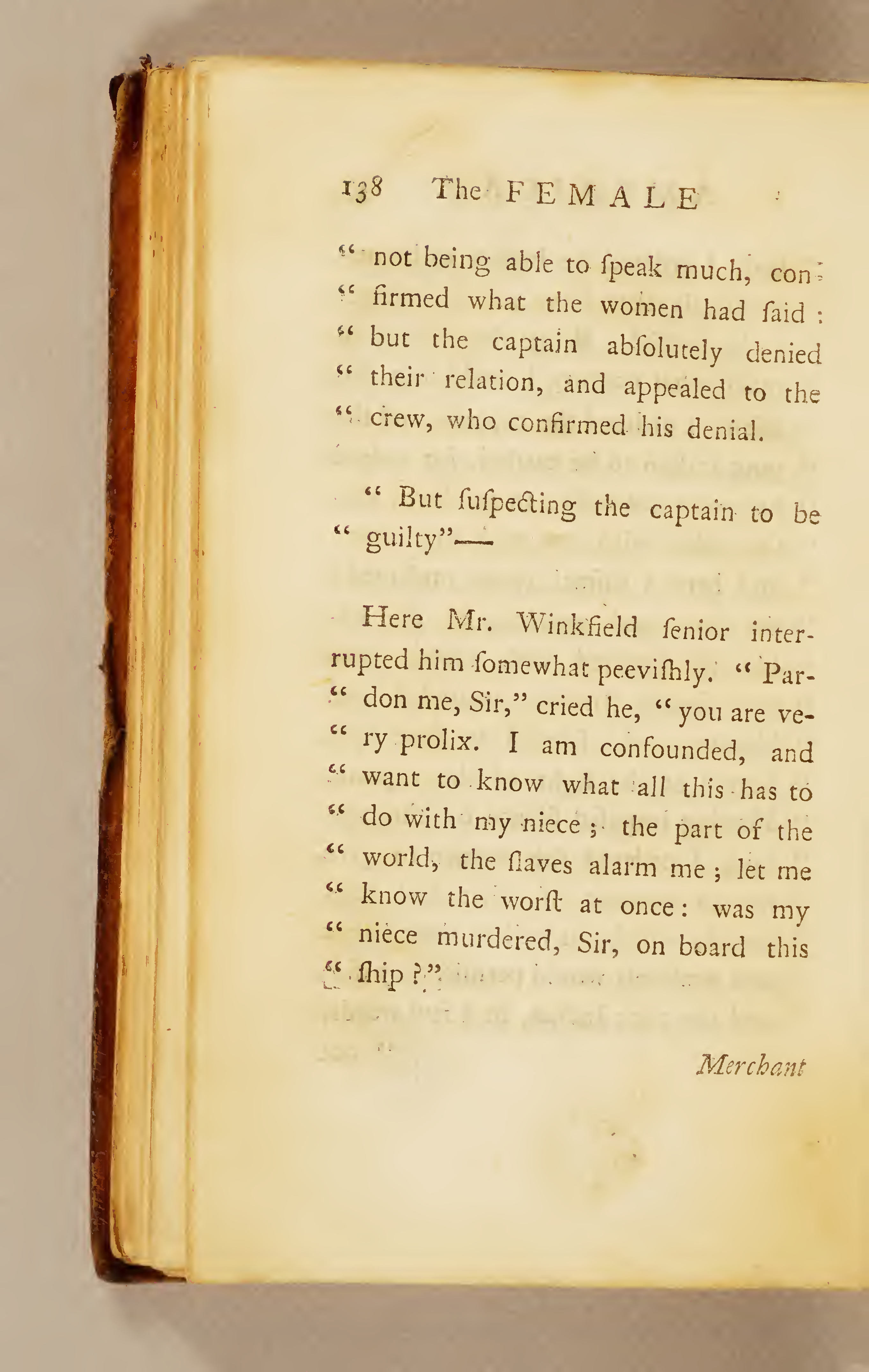
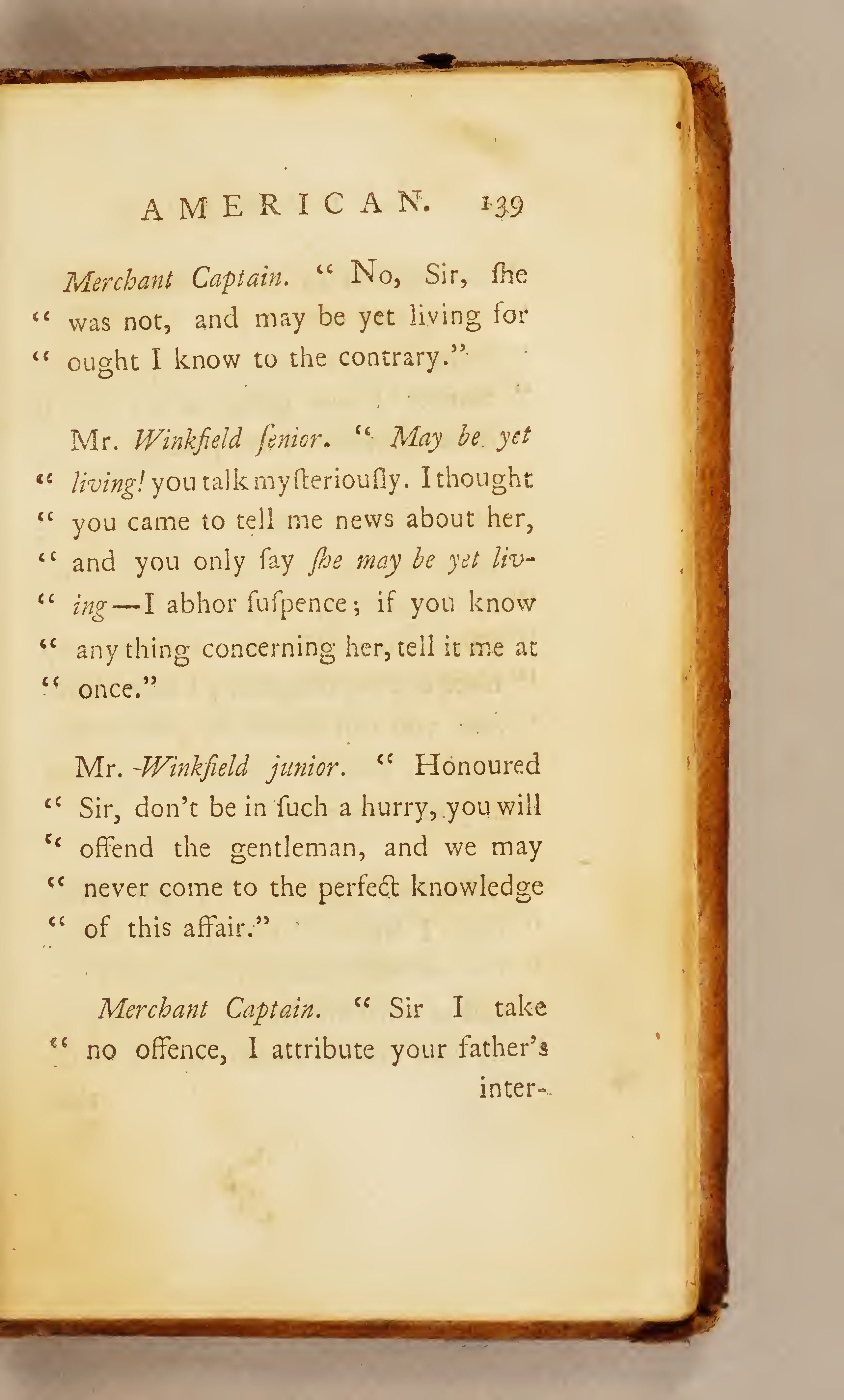
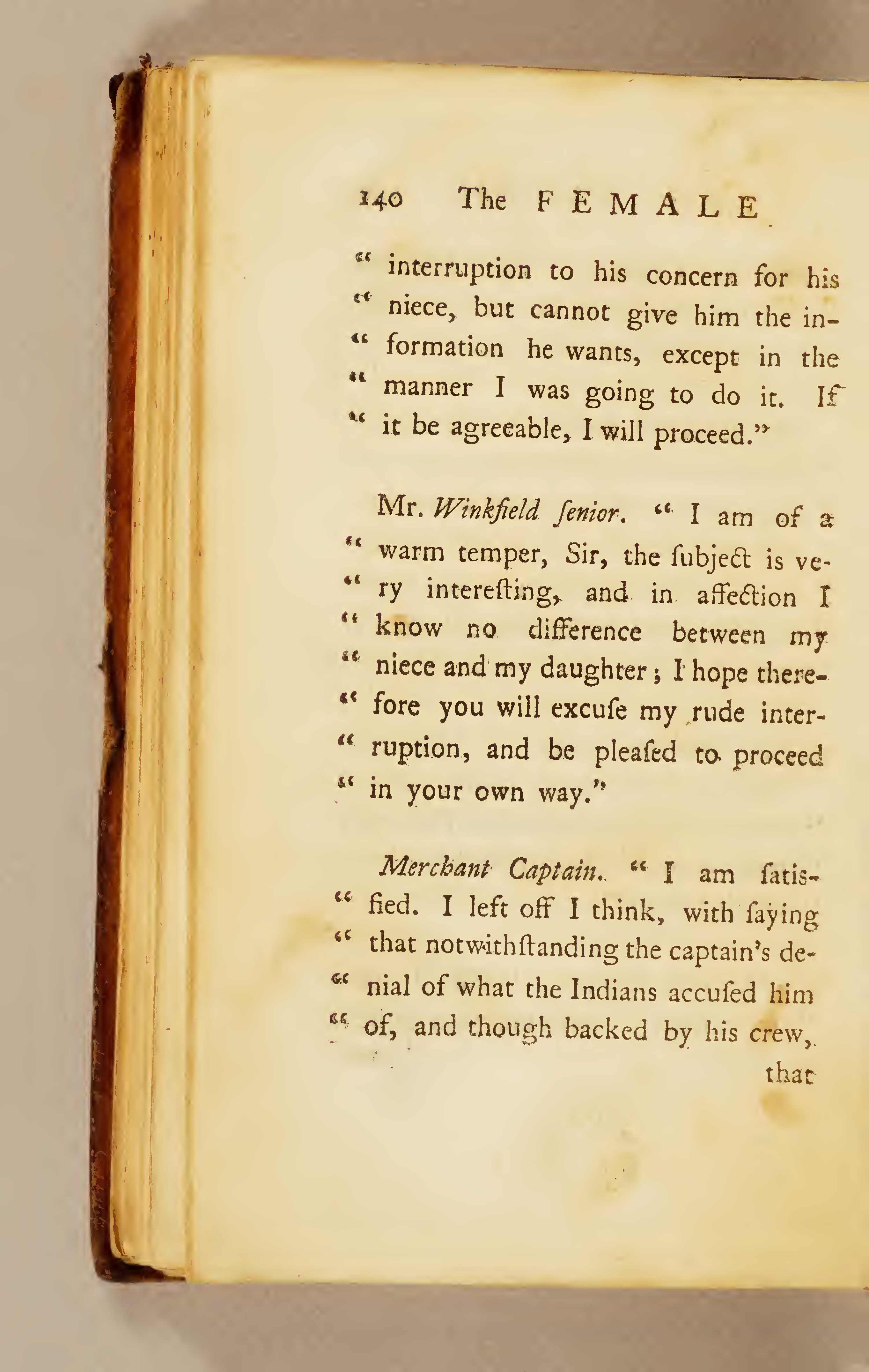
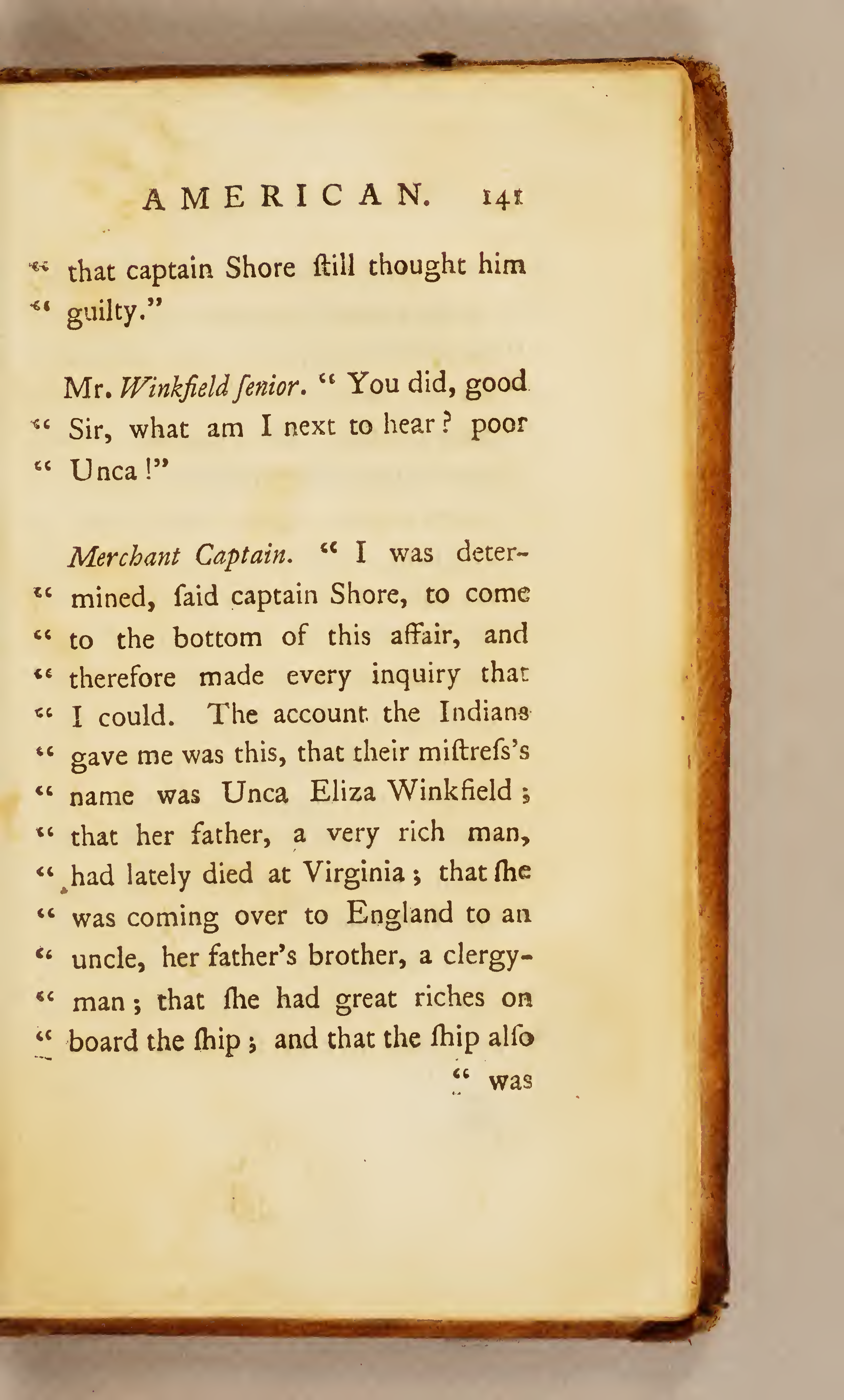
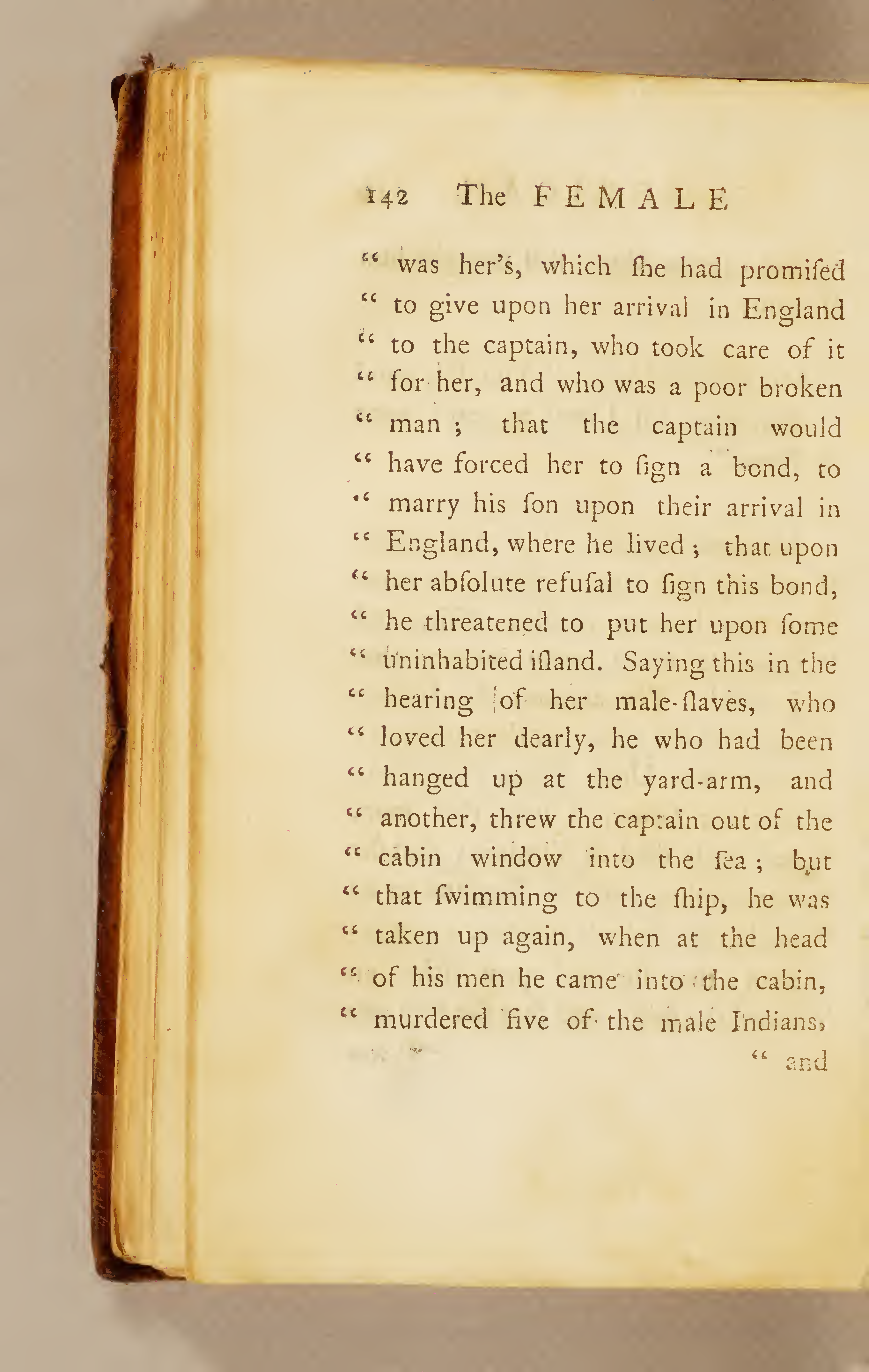
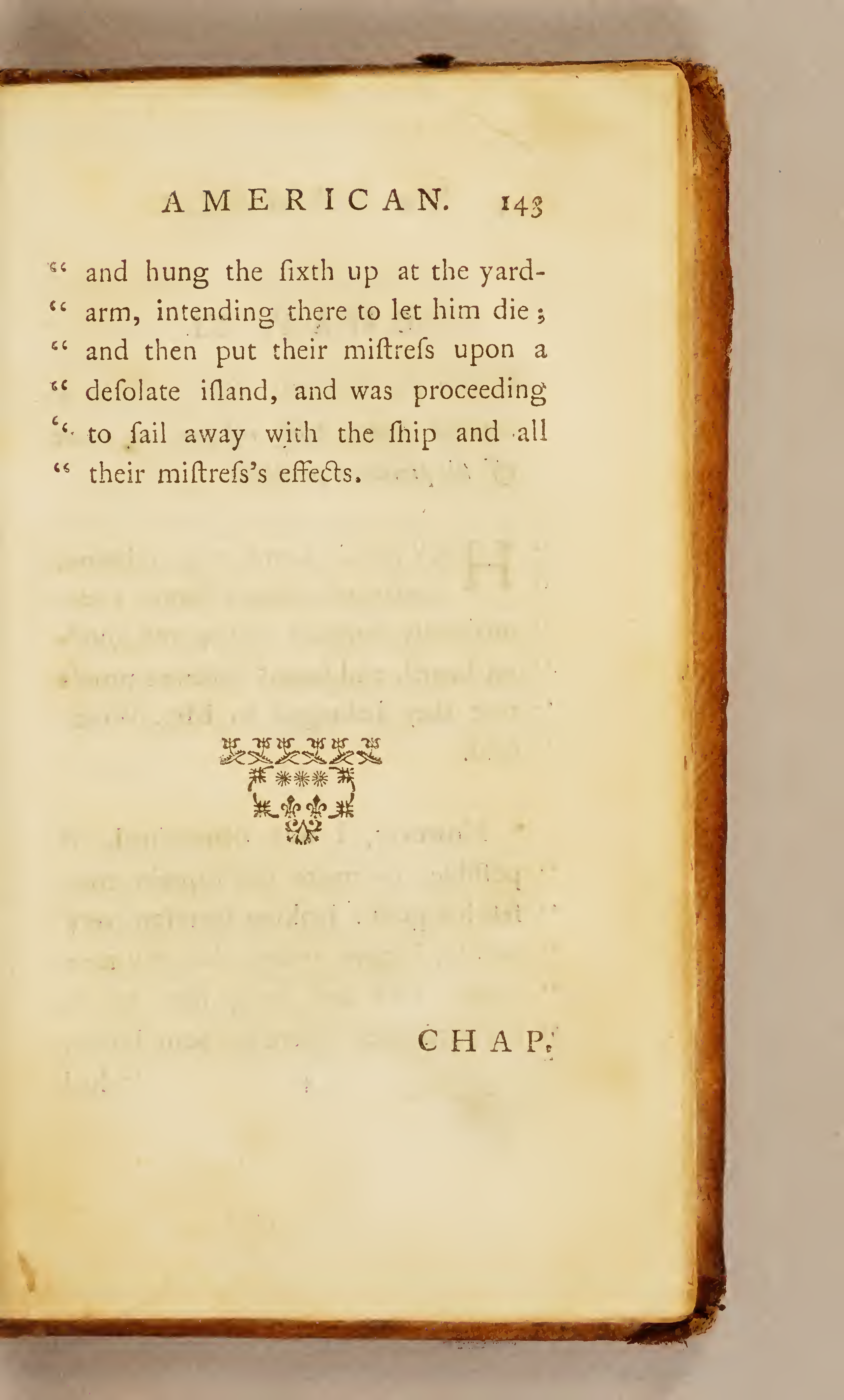
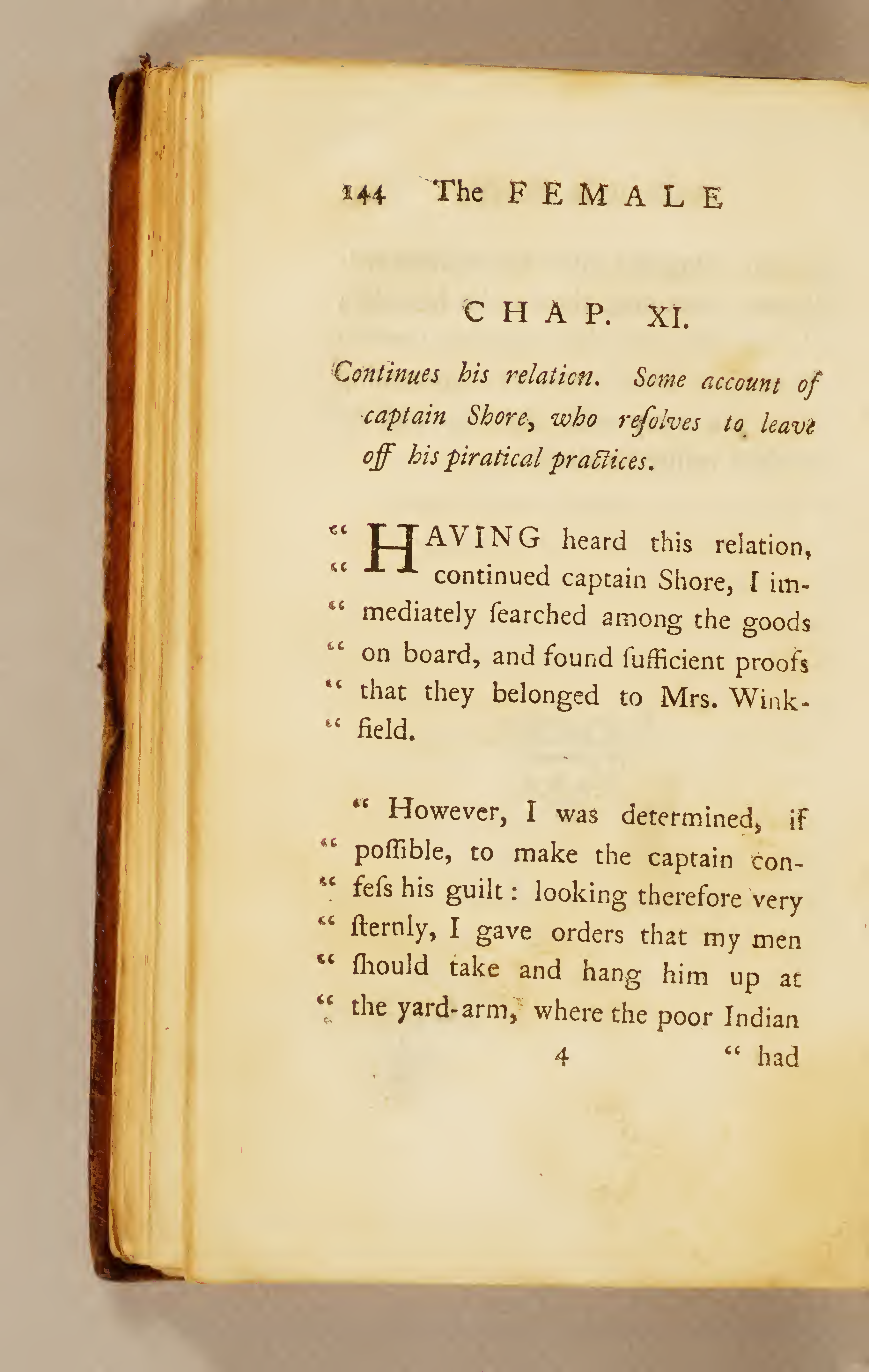
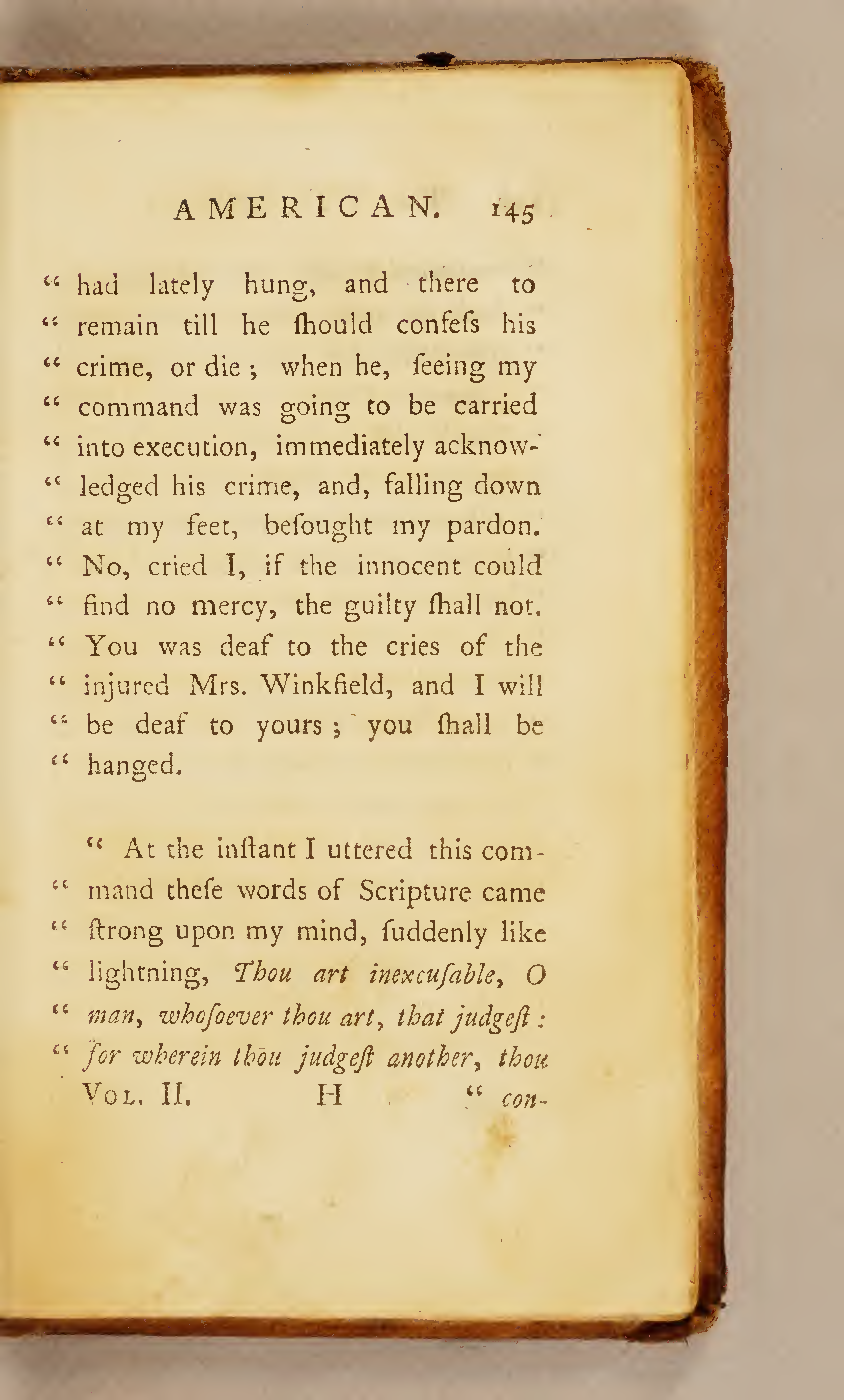
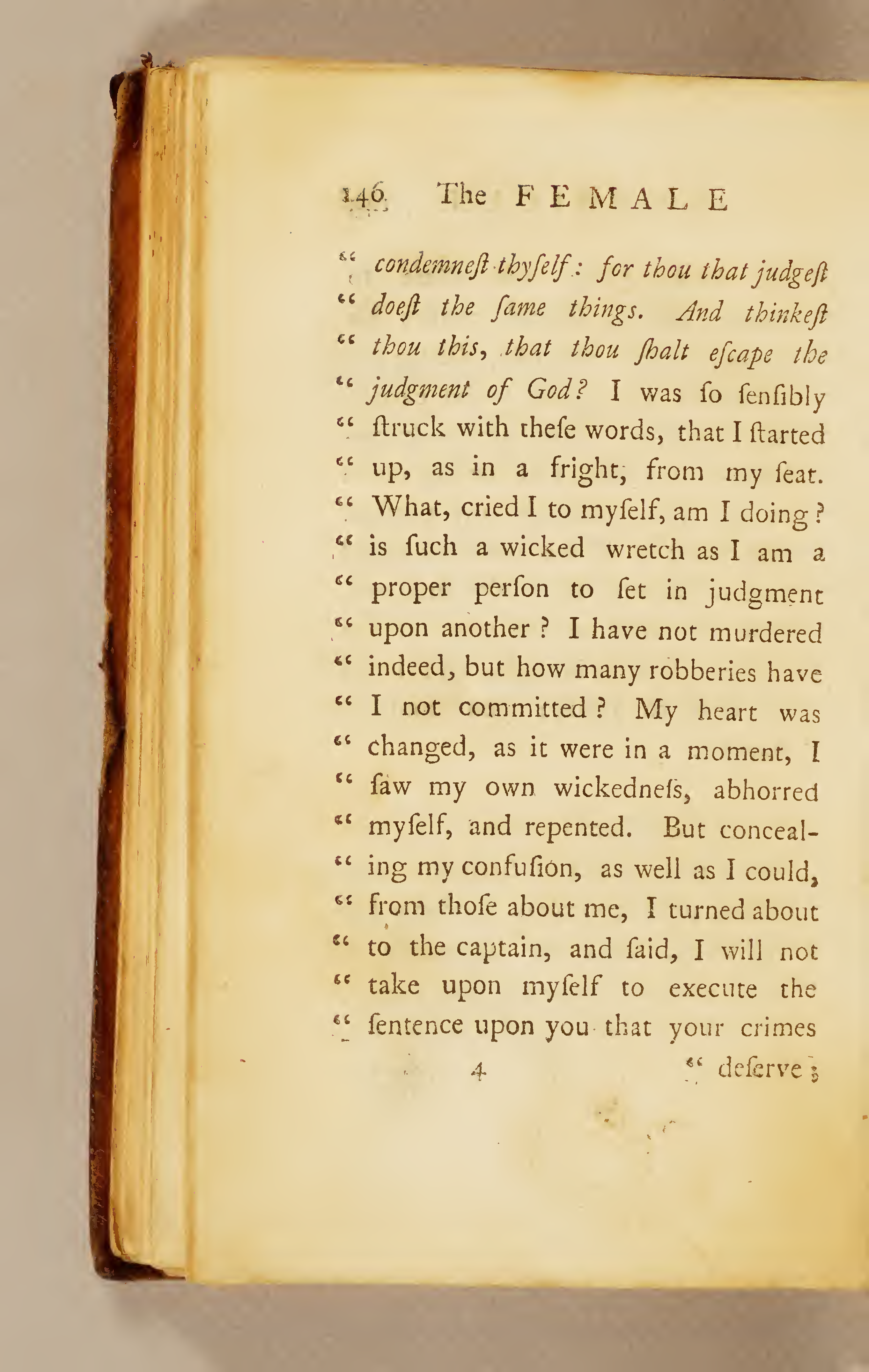
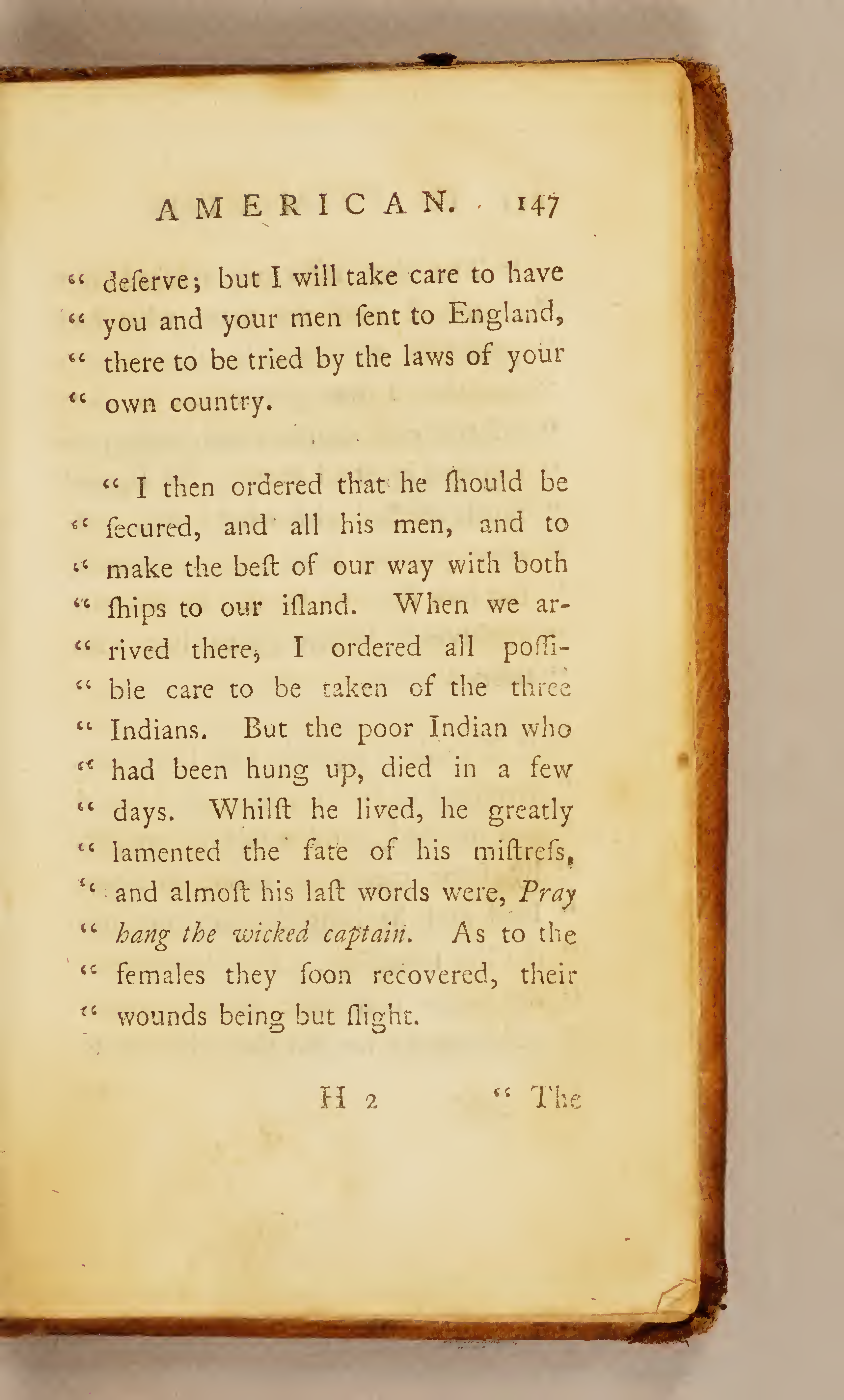
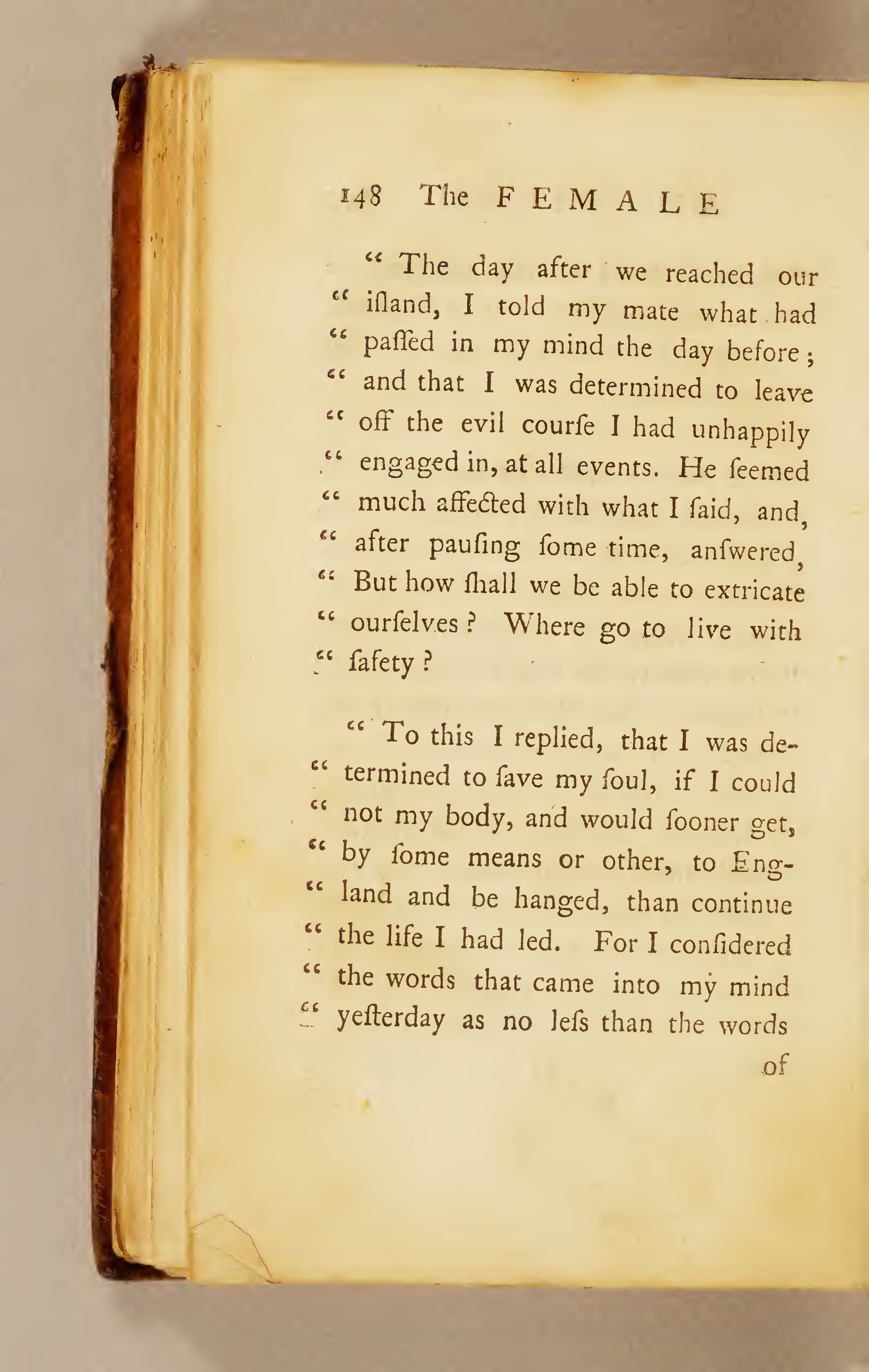
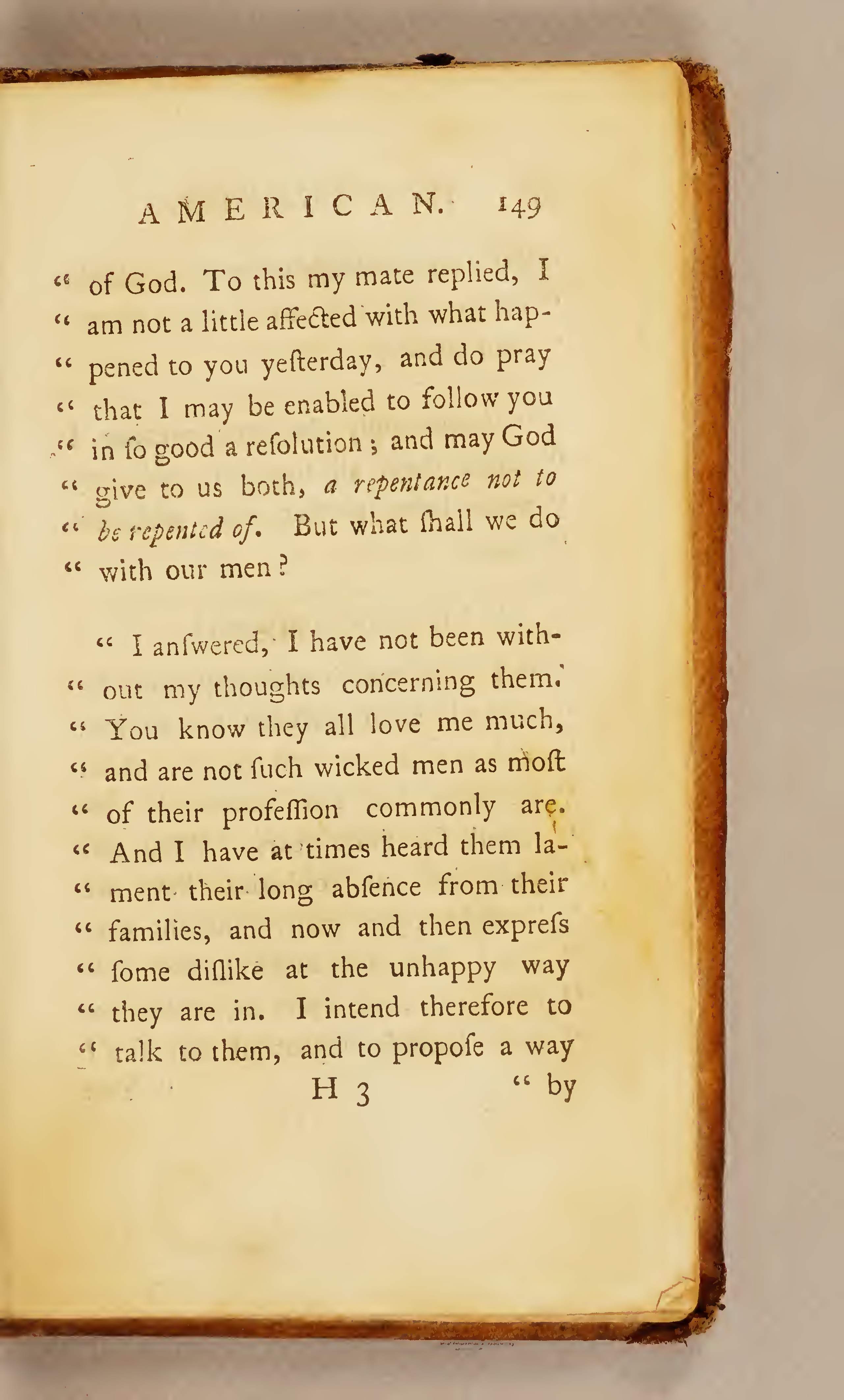
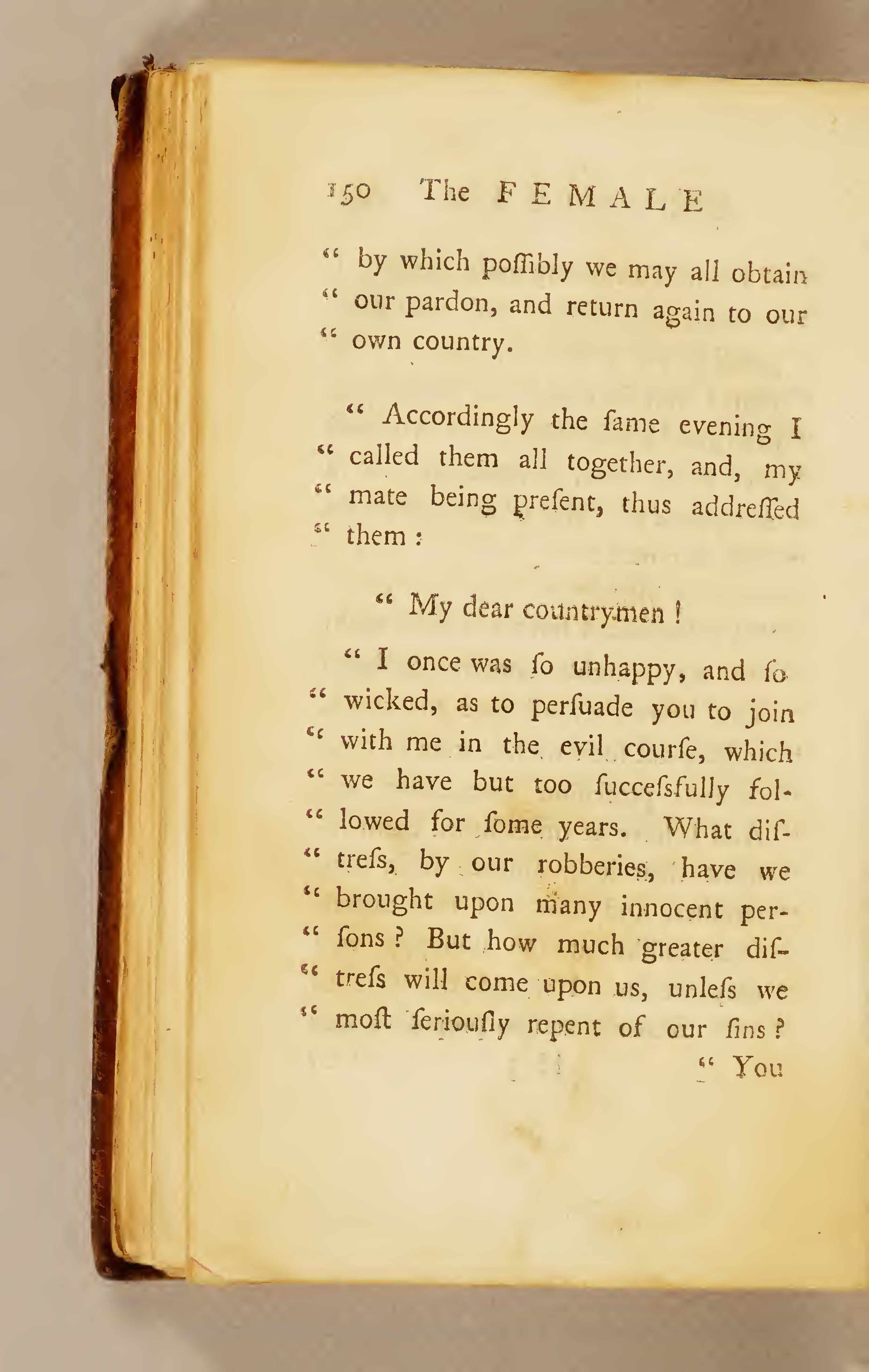
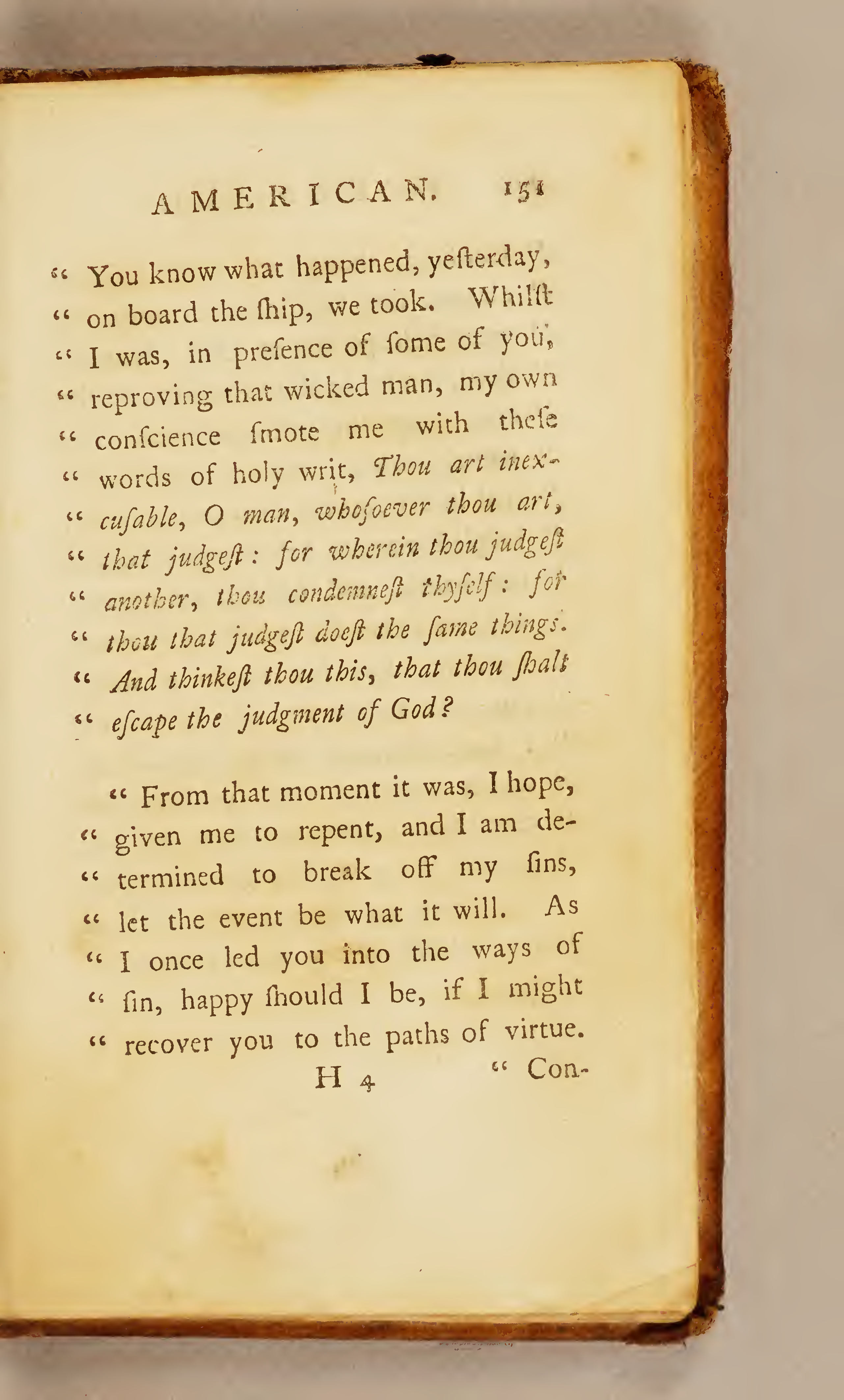
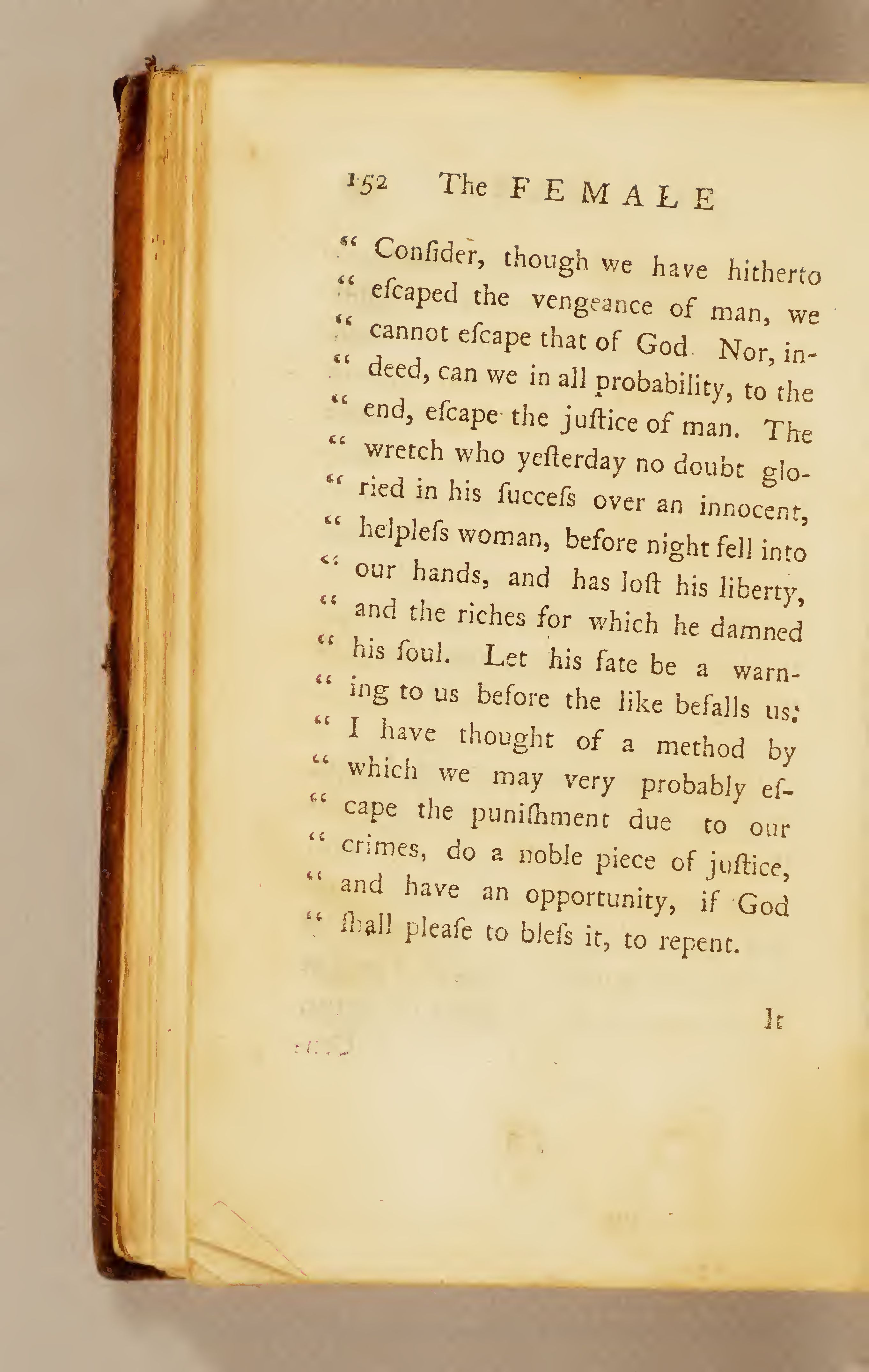
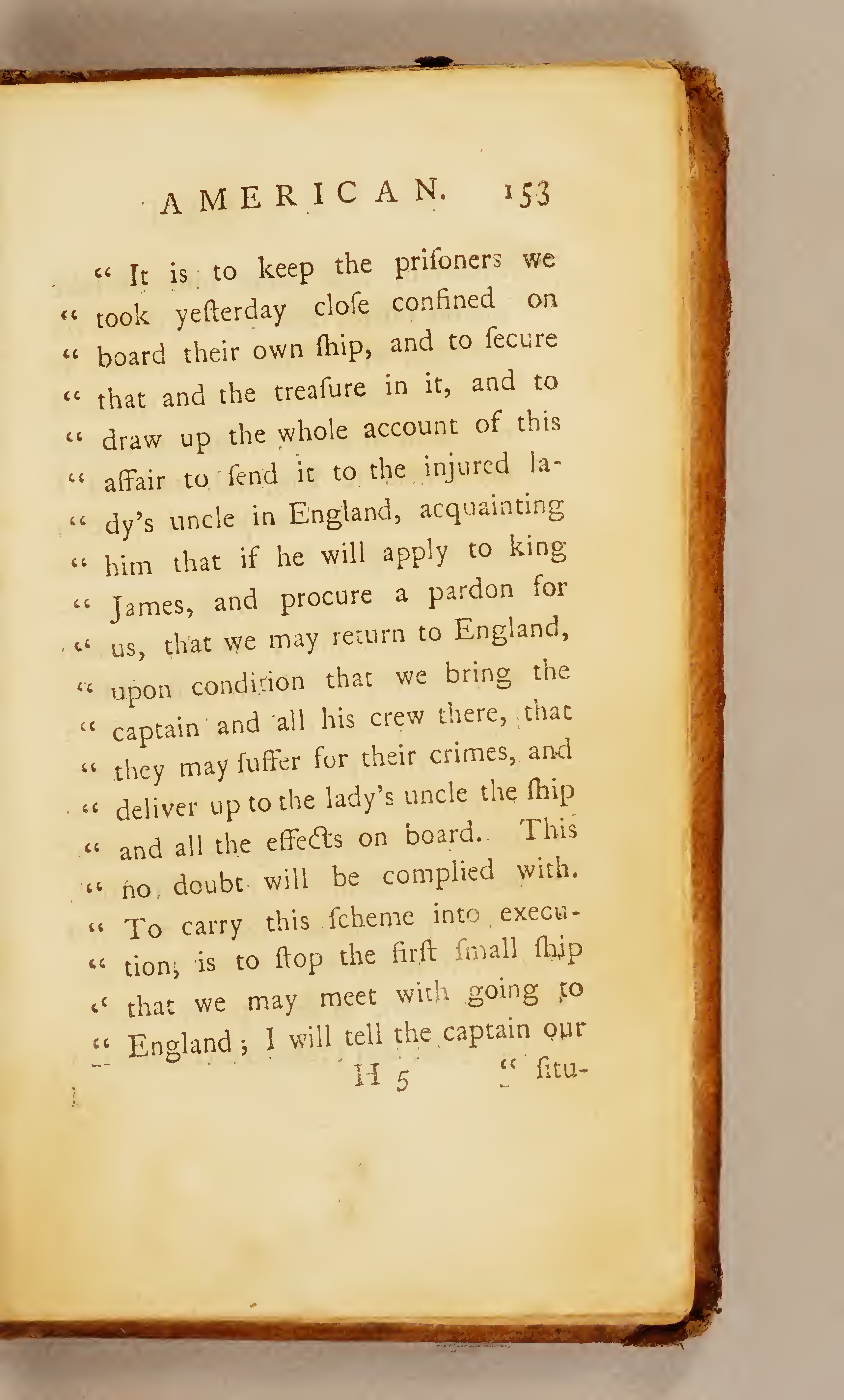
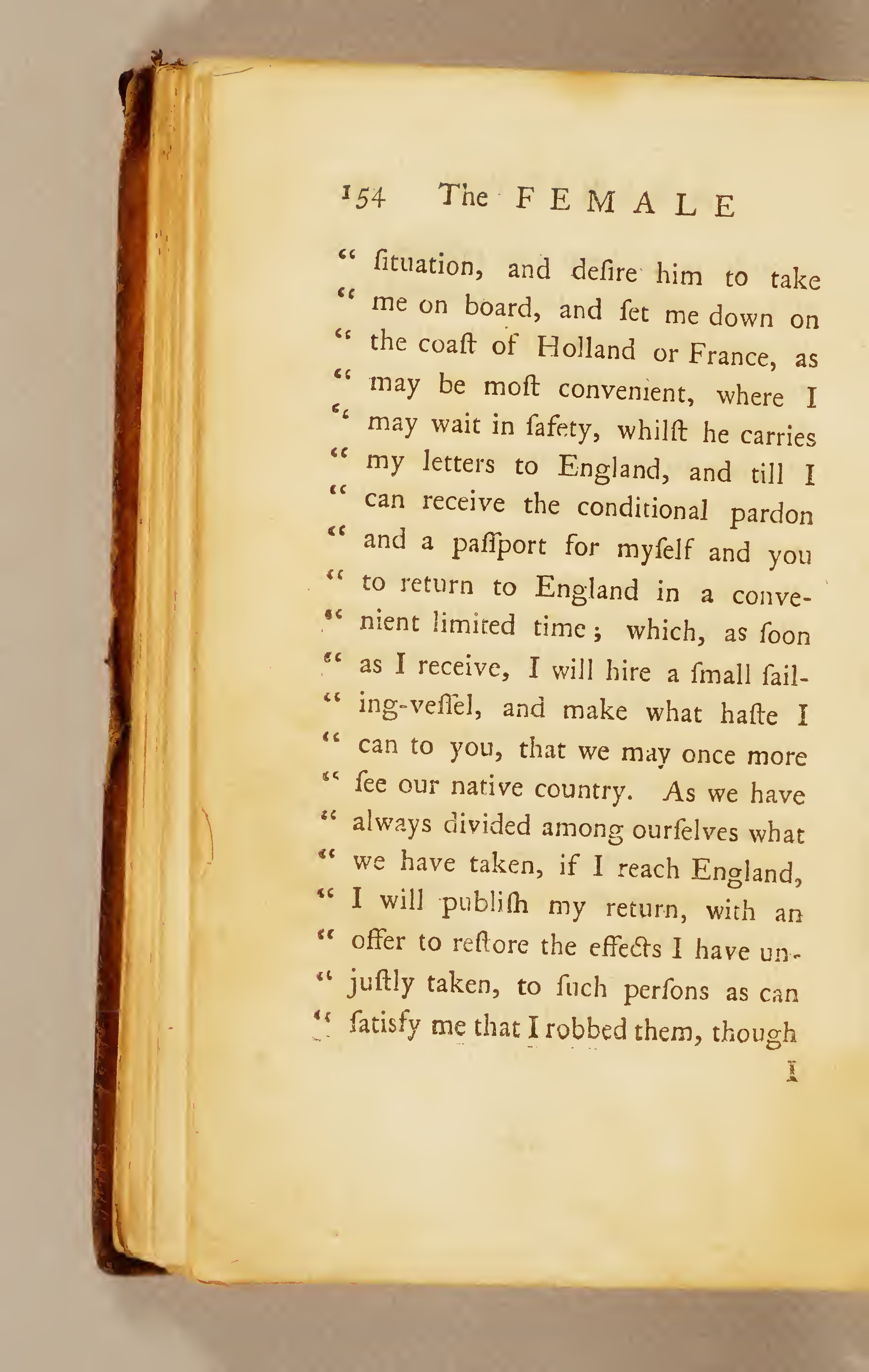
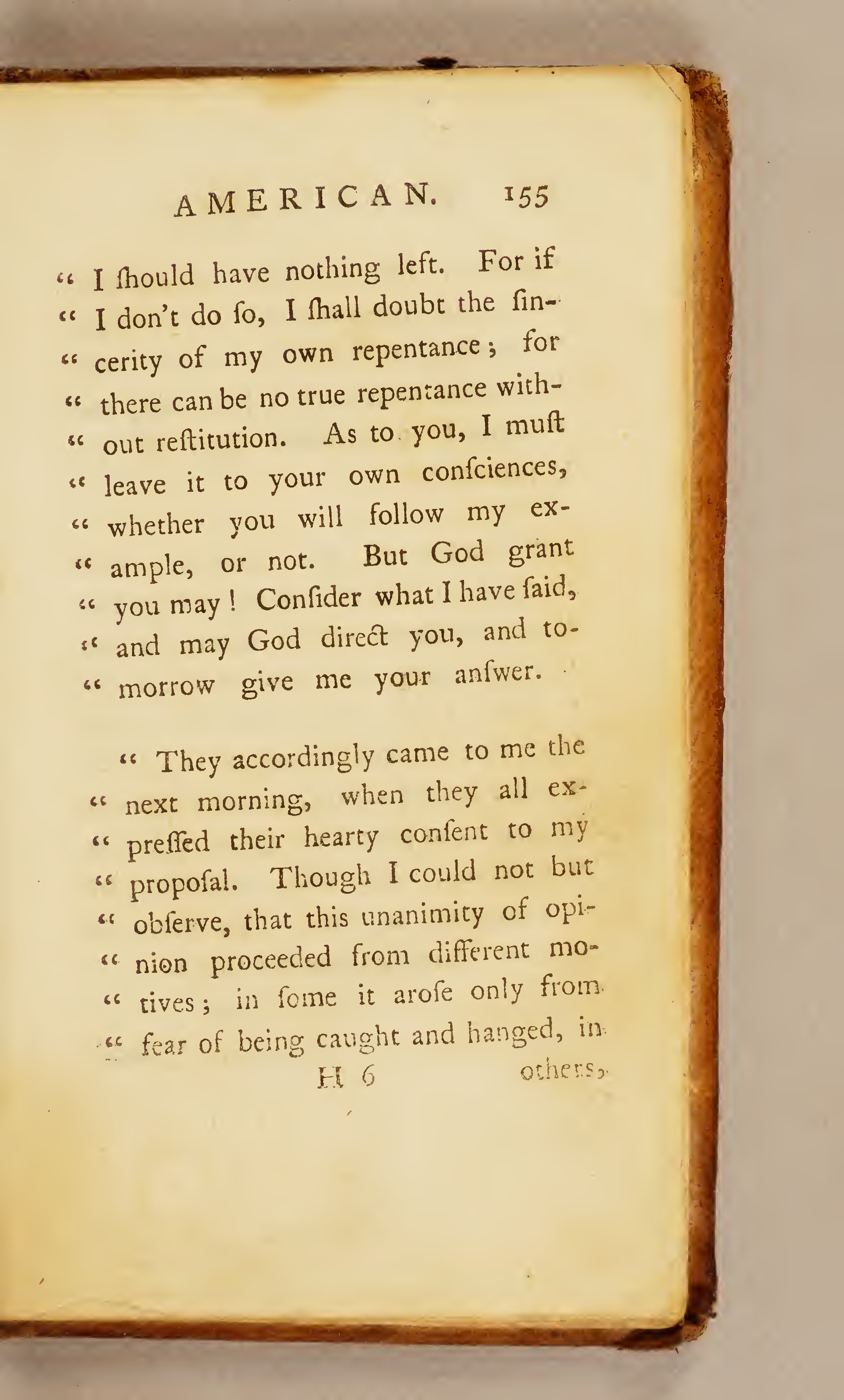
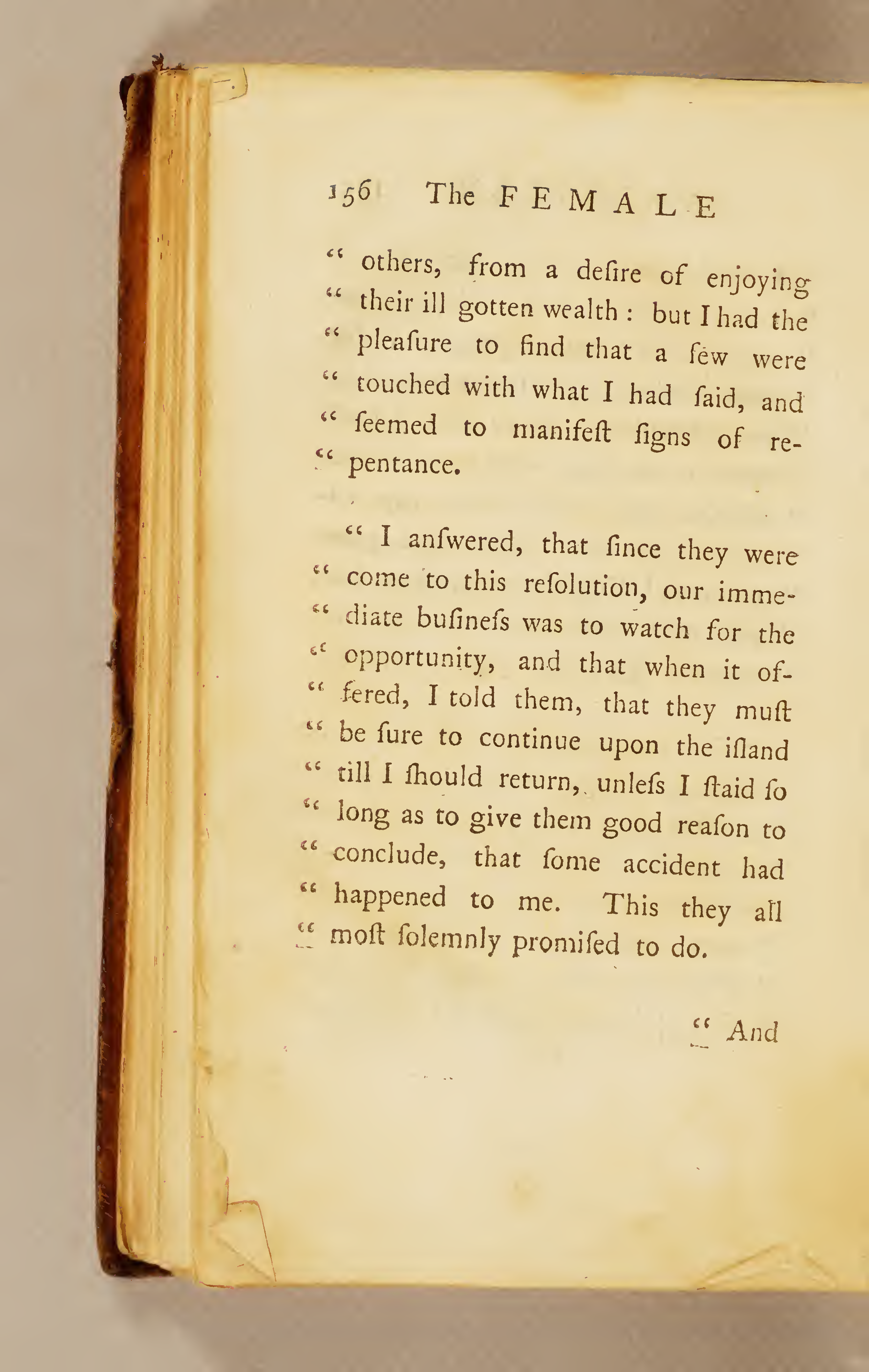
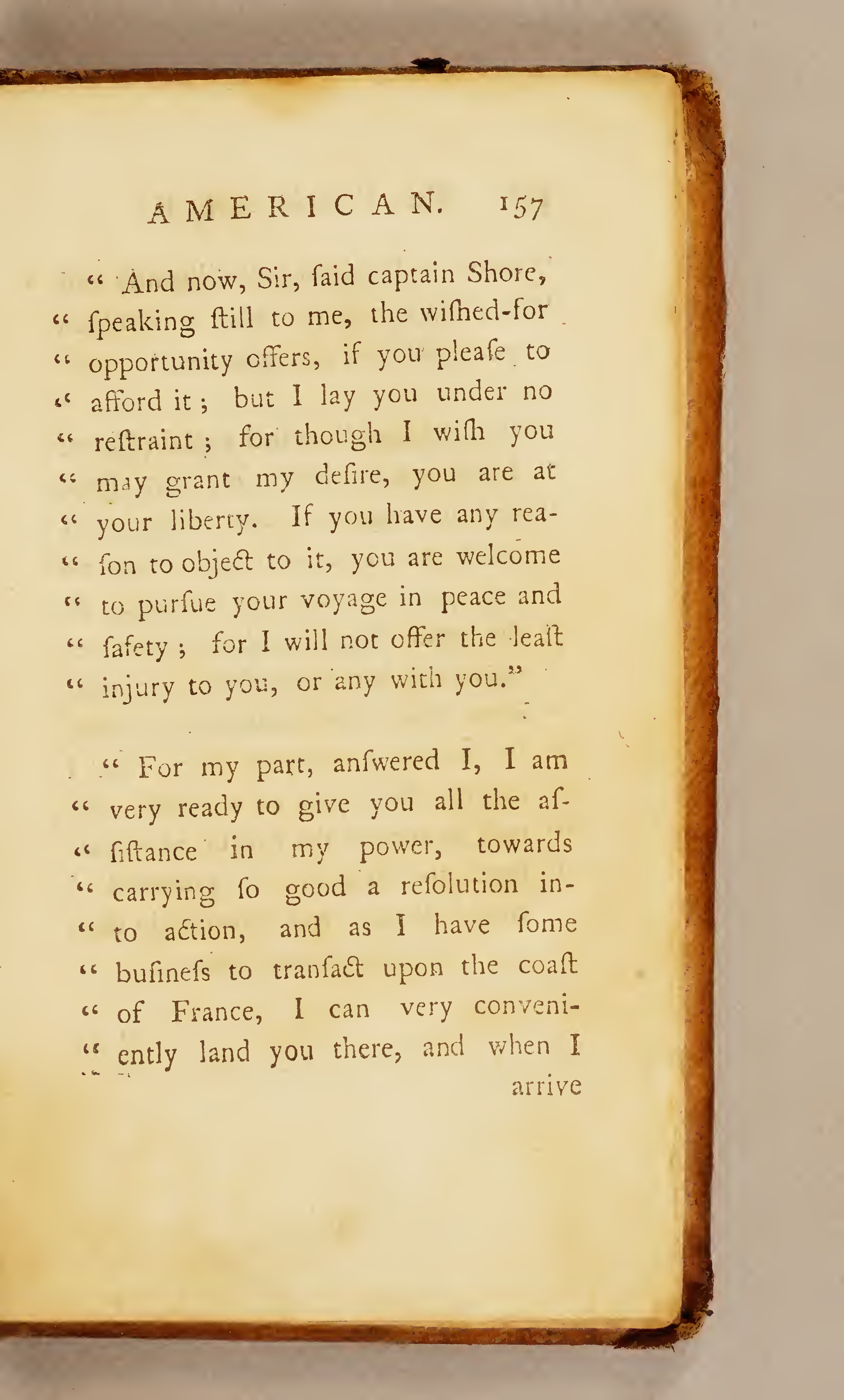
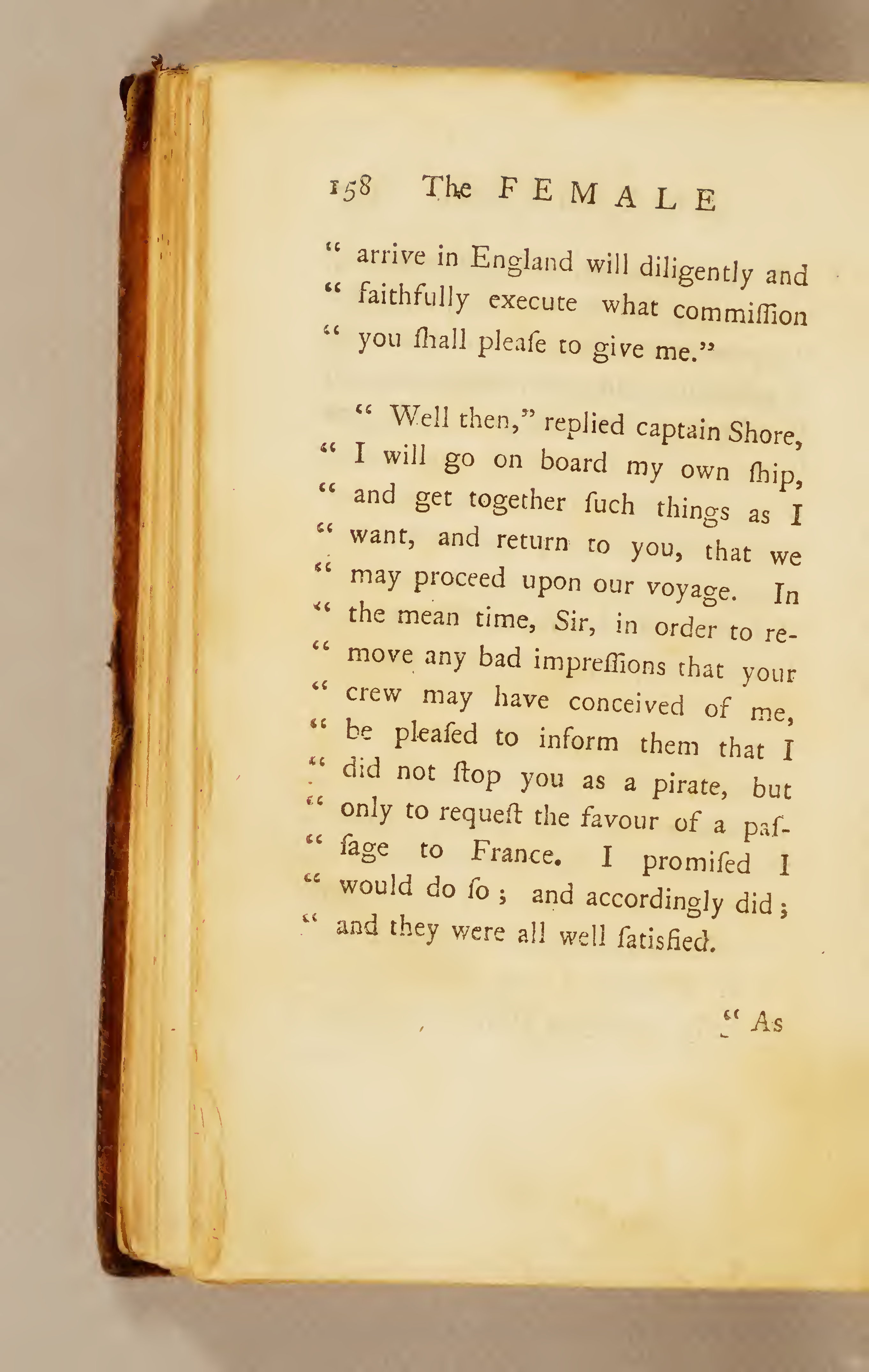

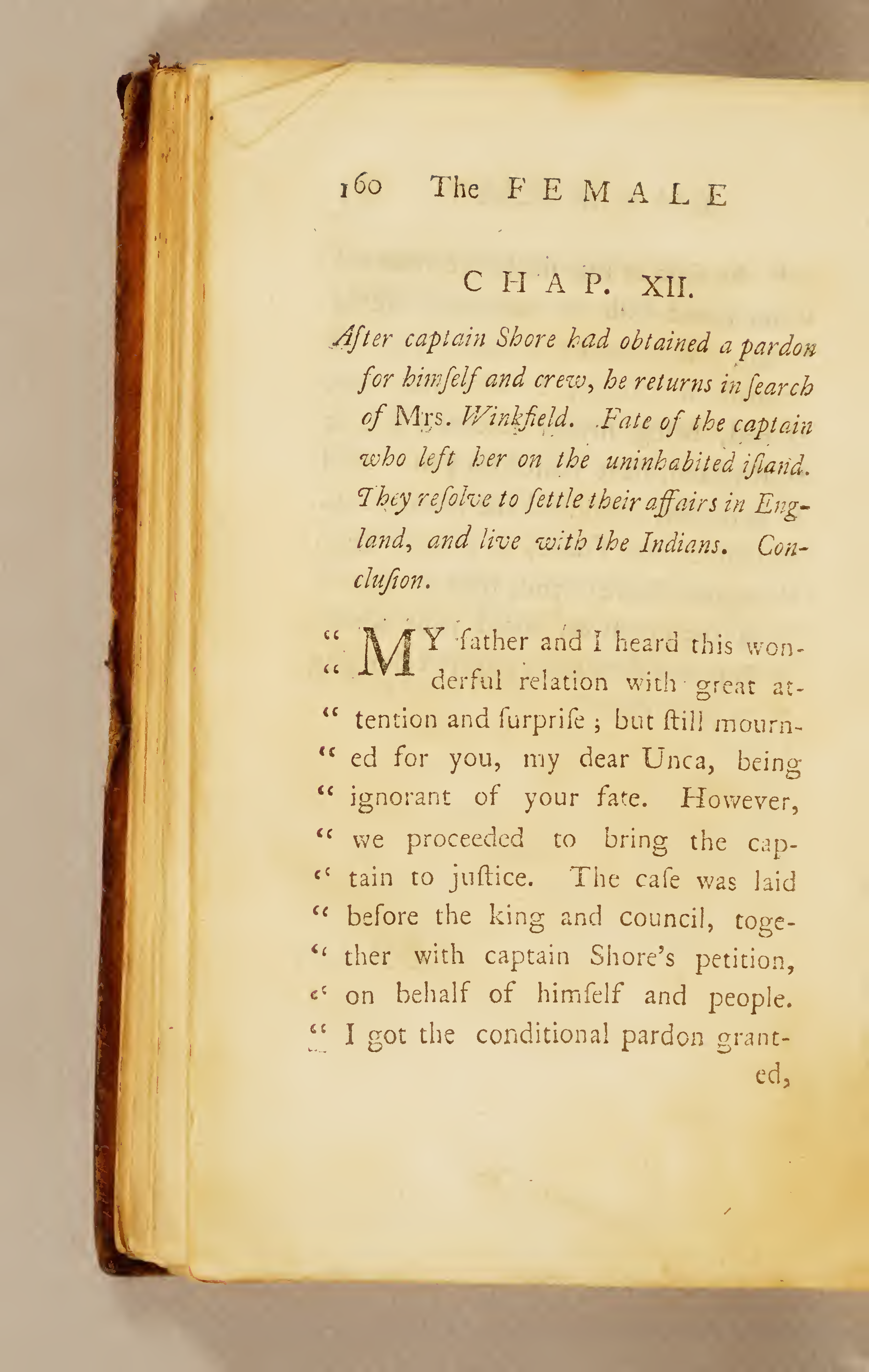
![Page 161 [page breaks after 'grant']](https://anthologyassetsdev.lib.virginia.edu/winkfield-female-american-2/pageImages/fa_Page_162.png)
